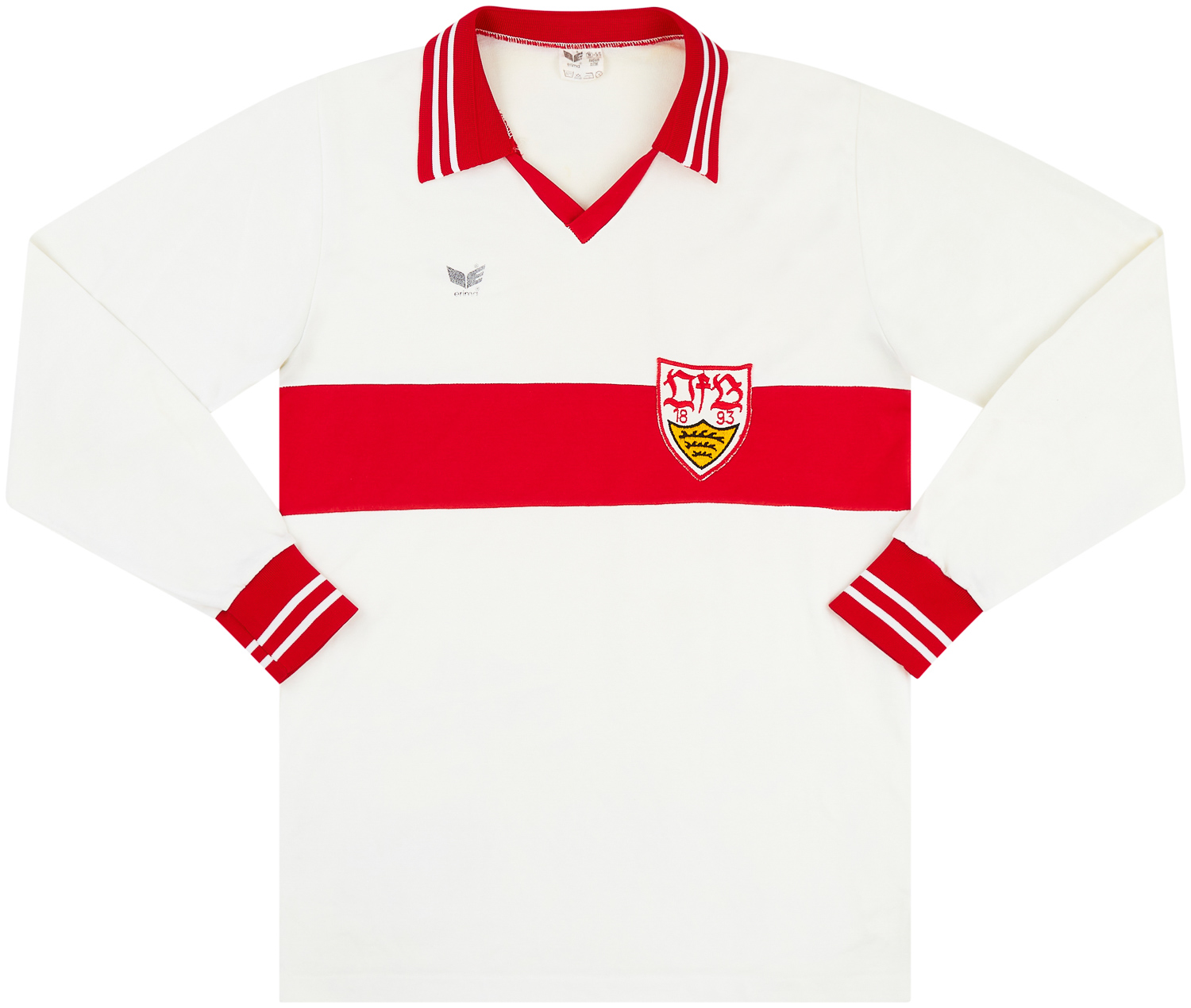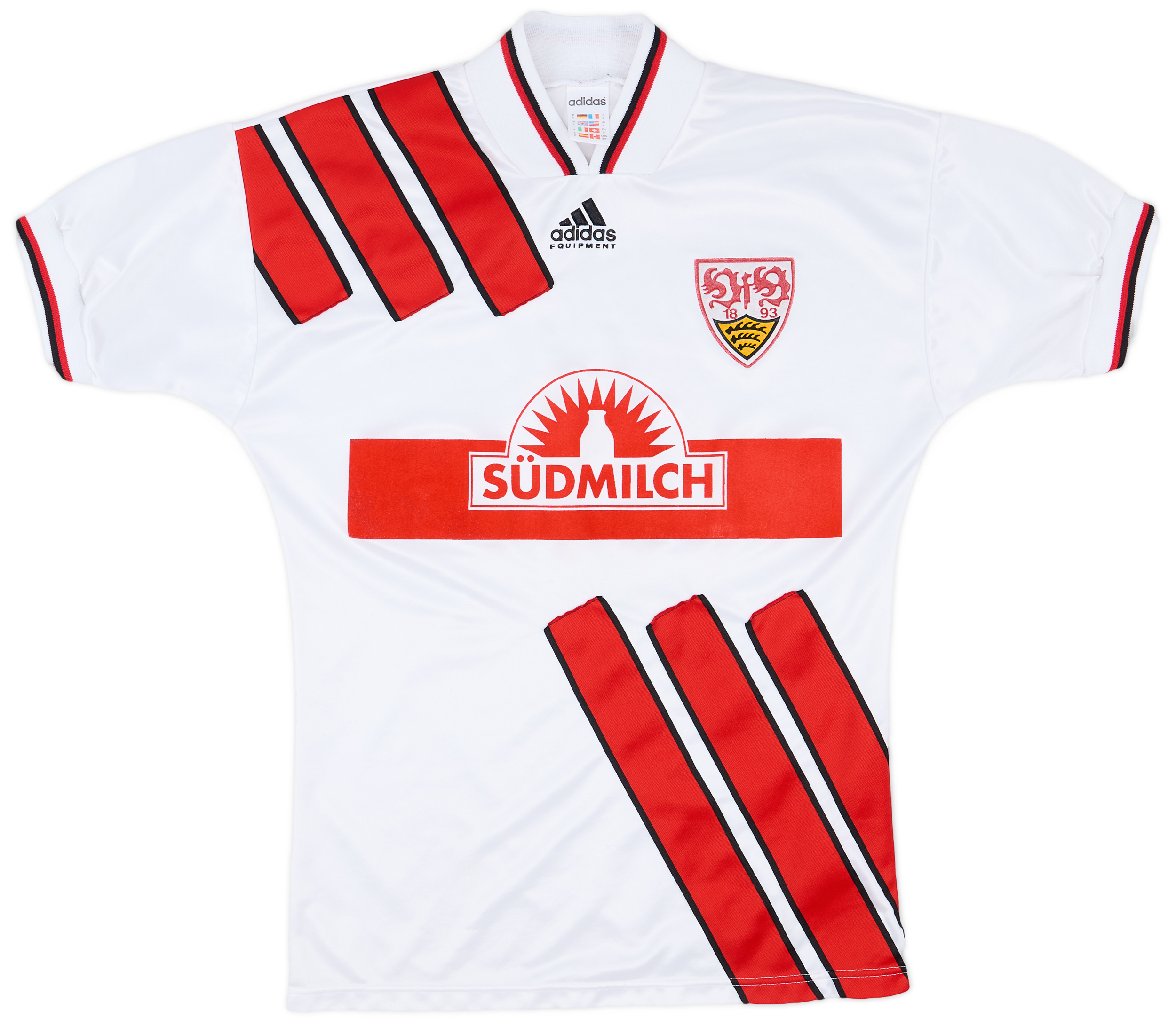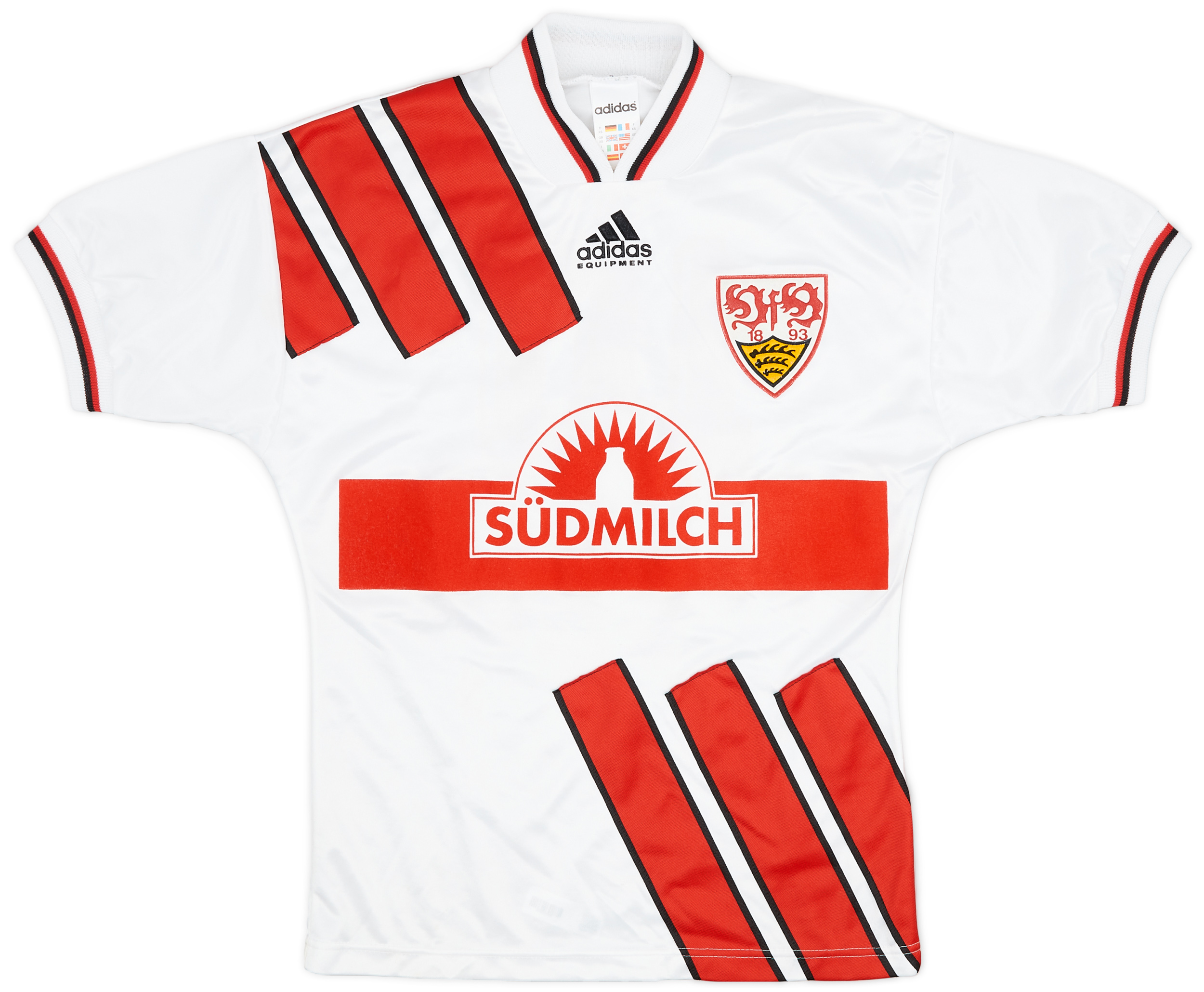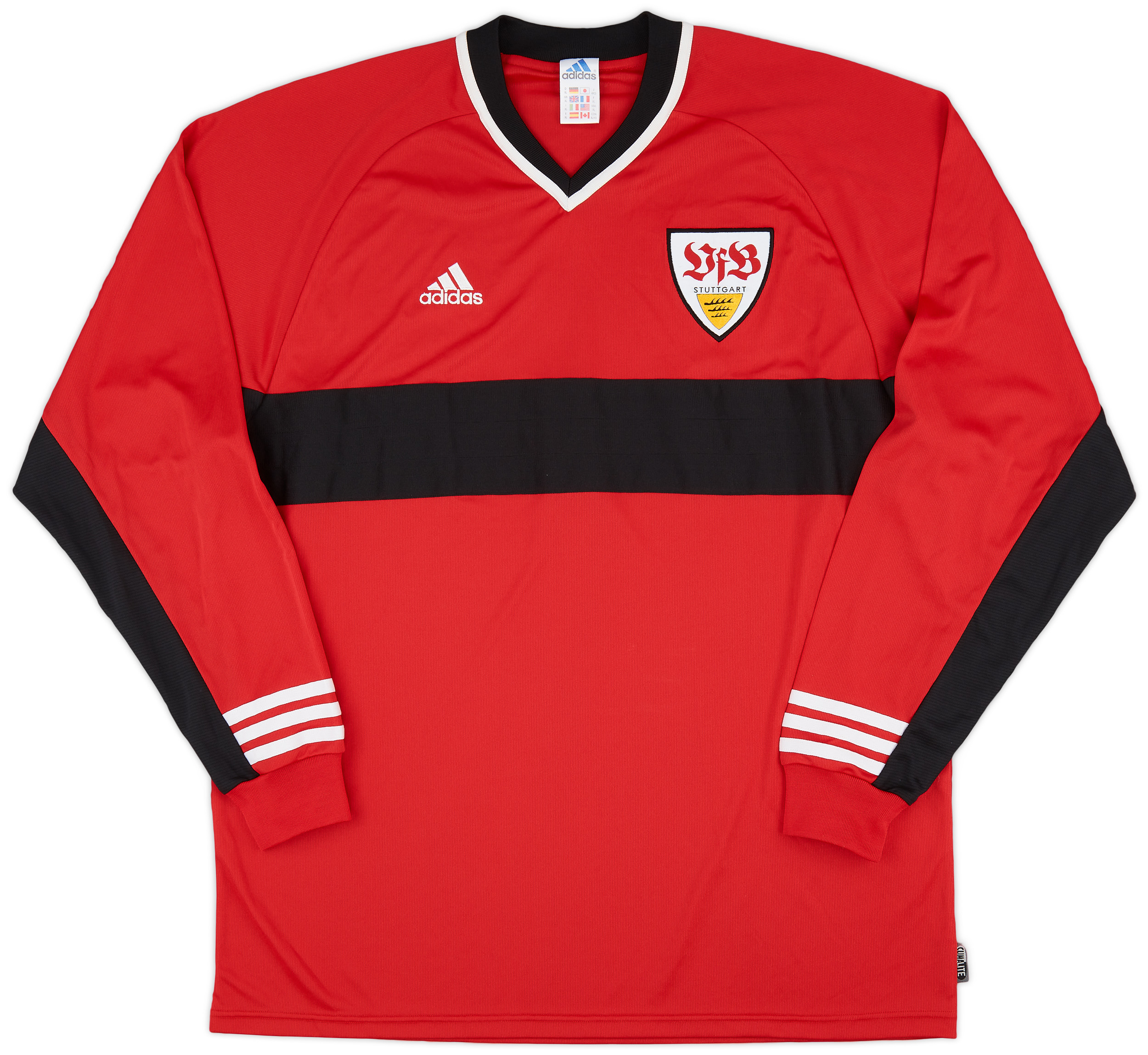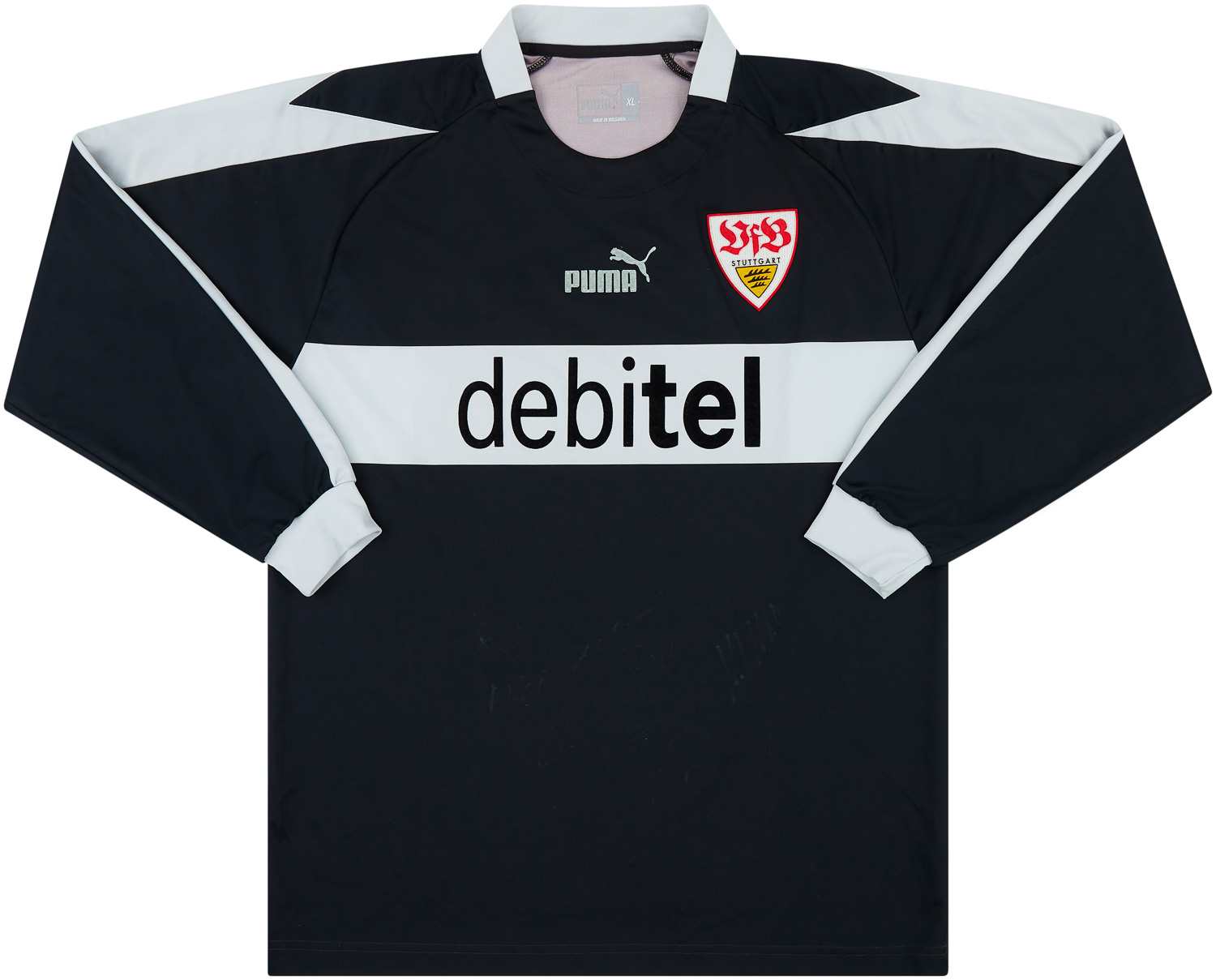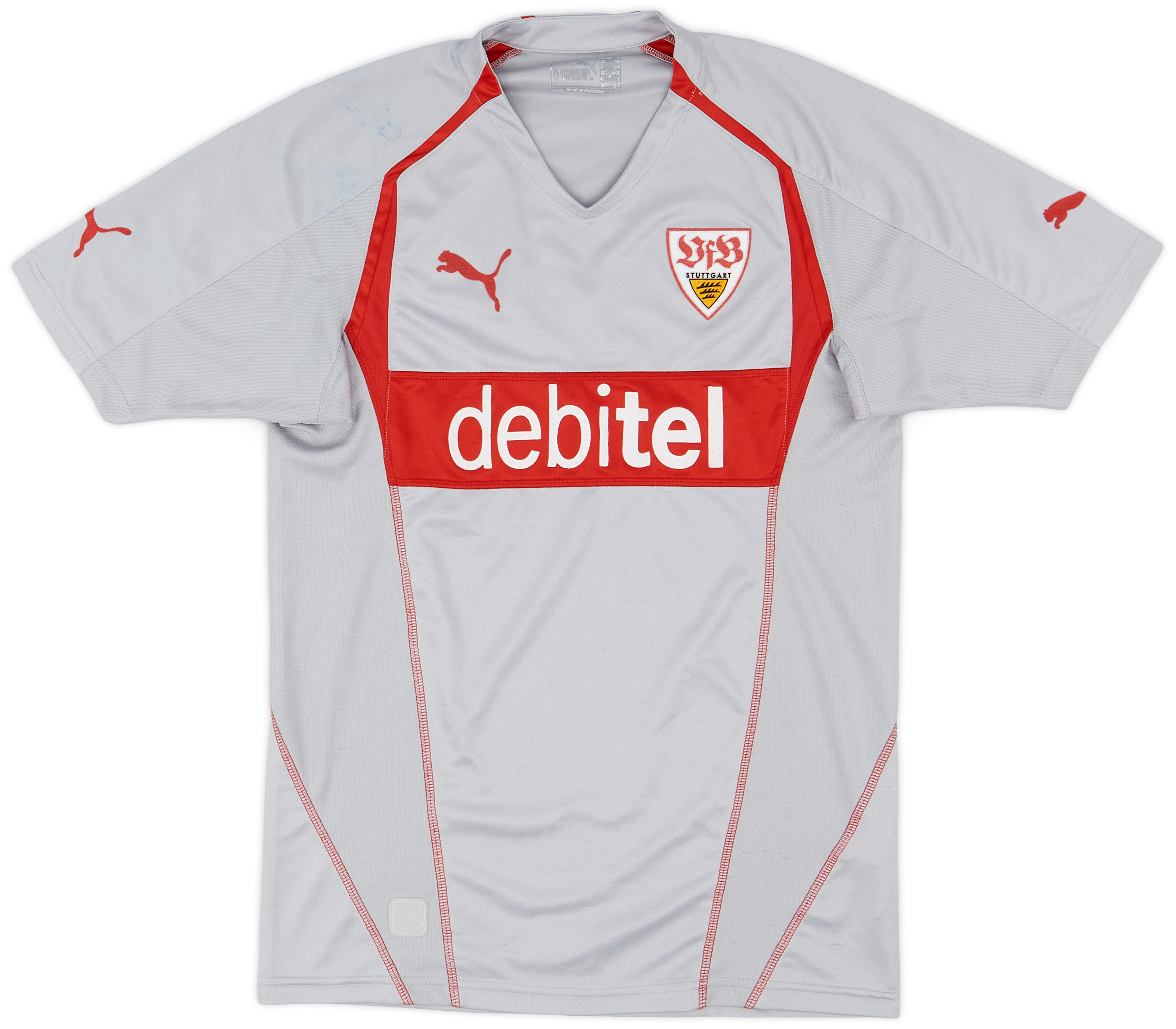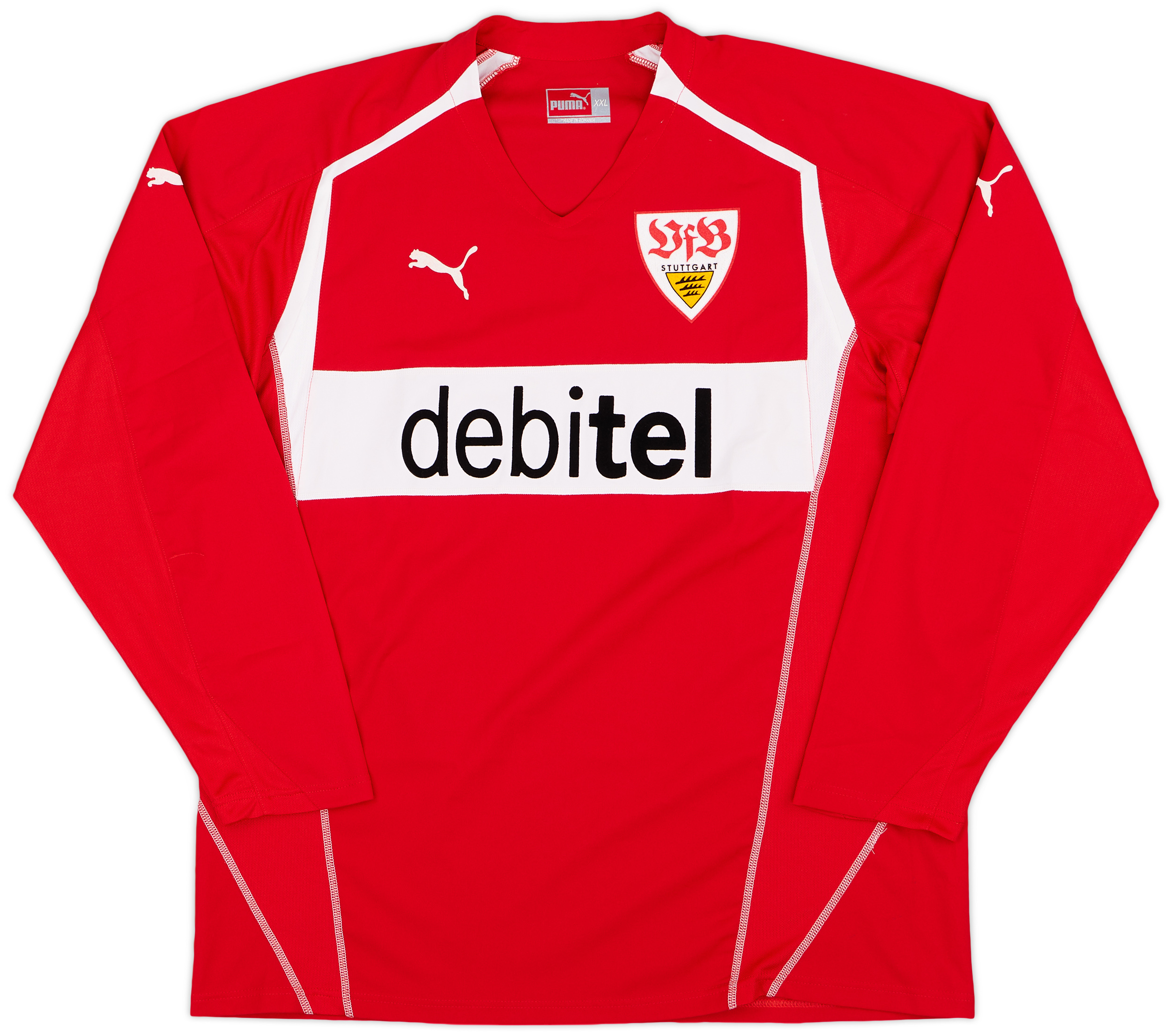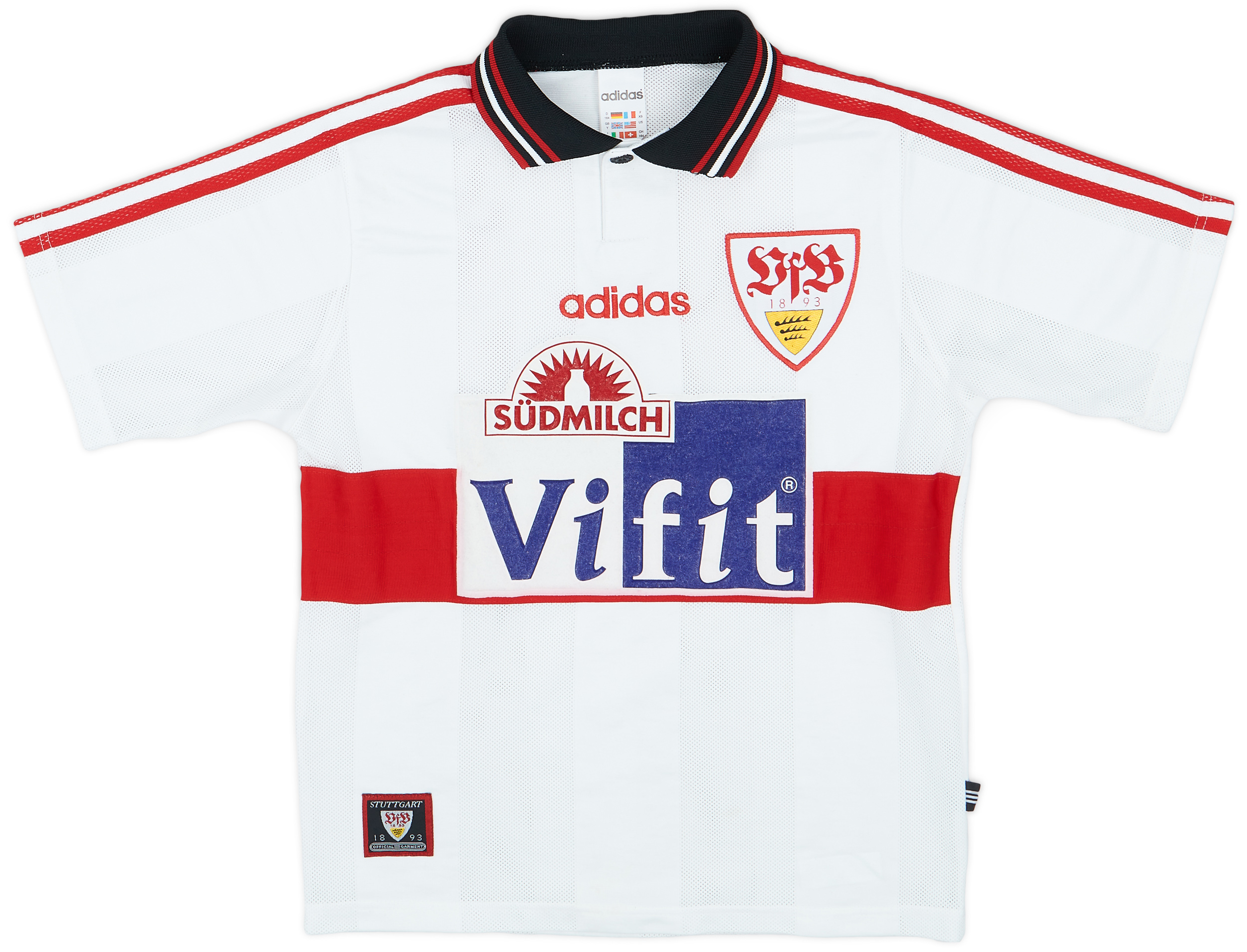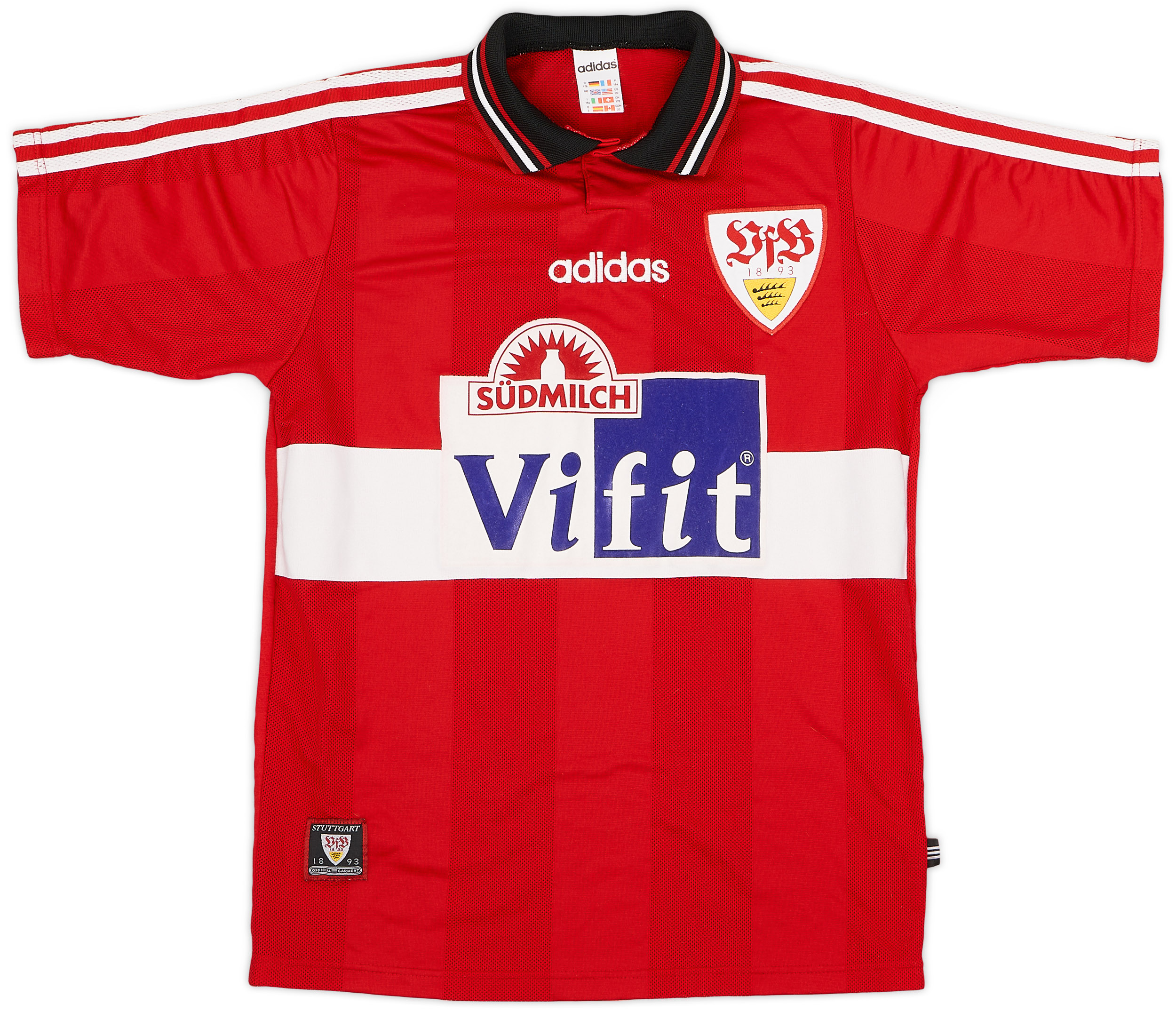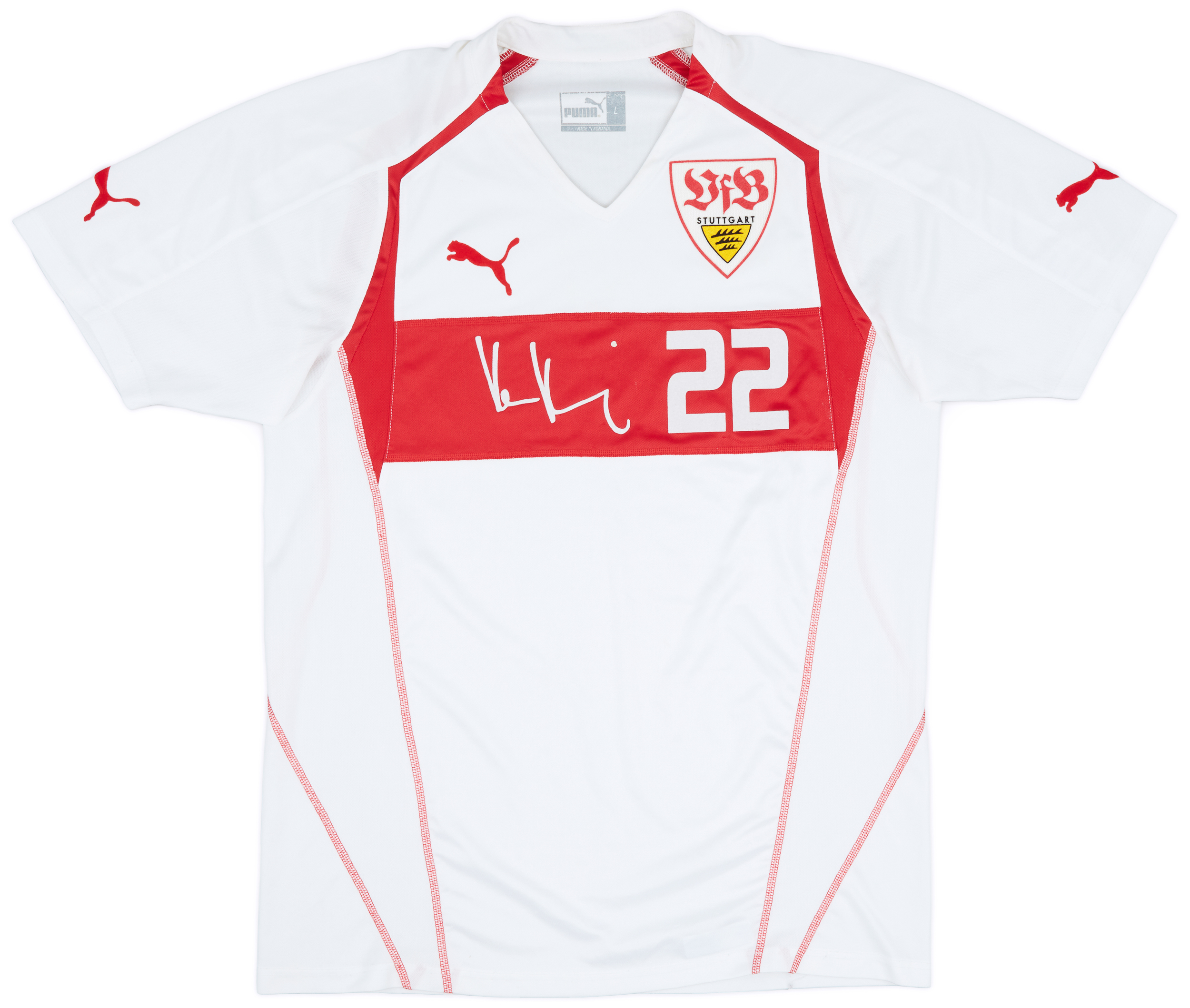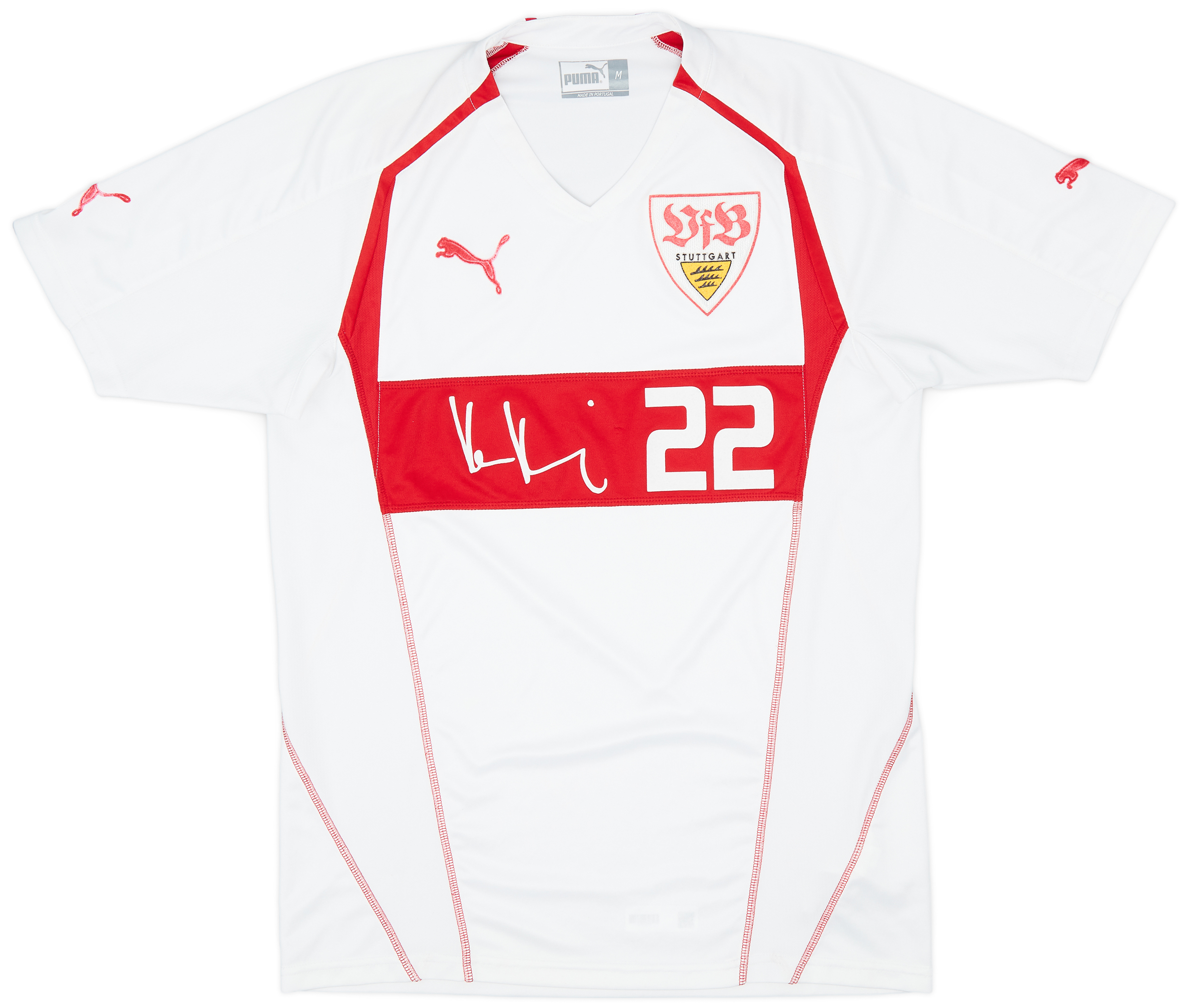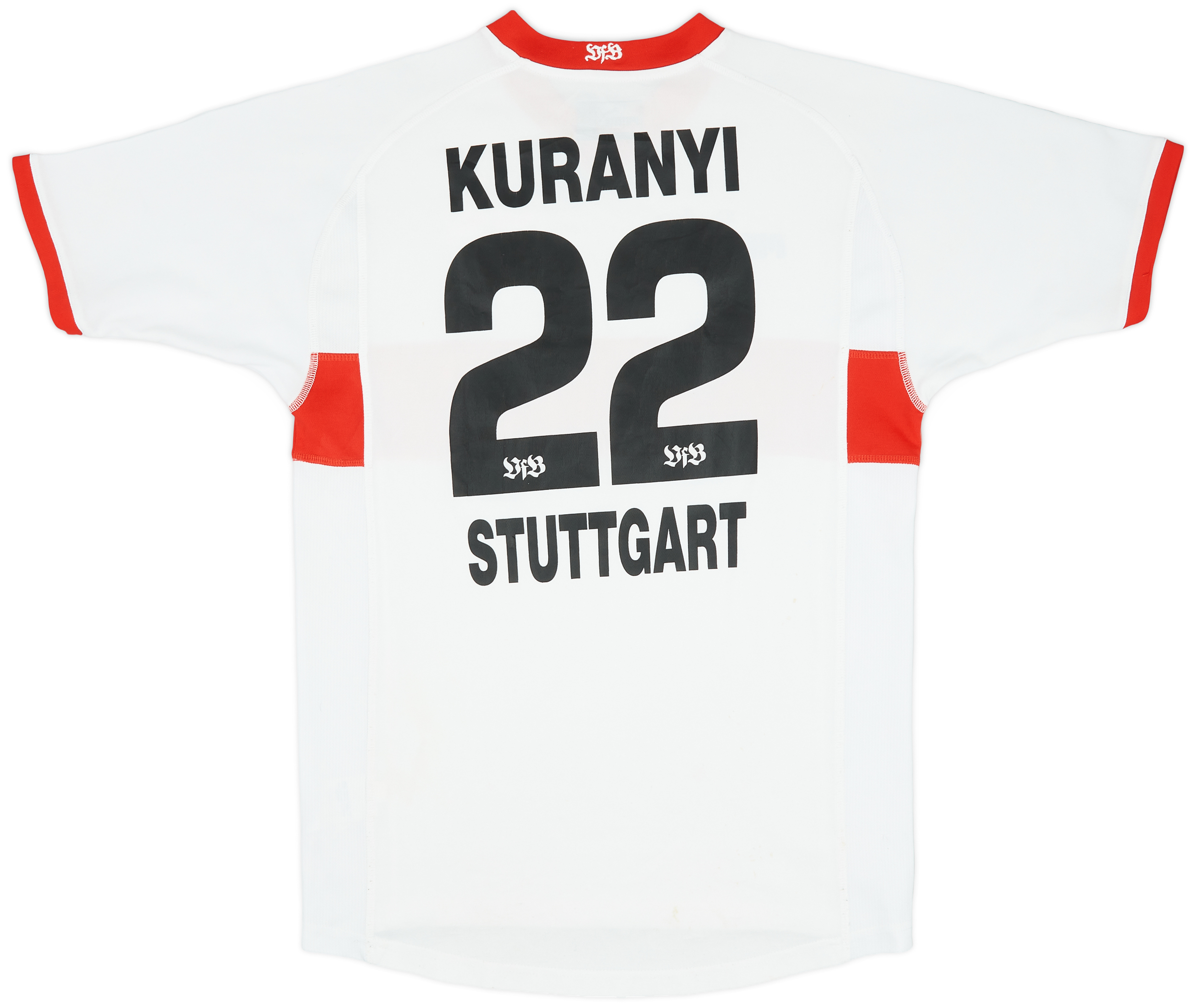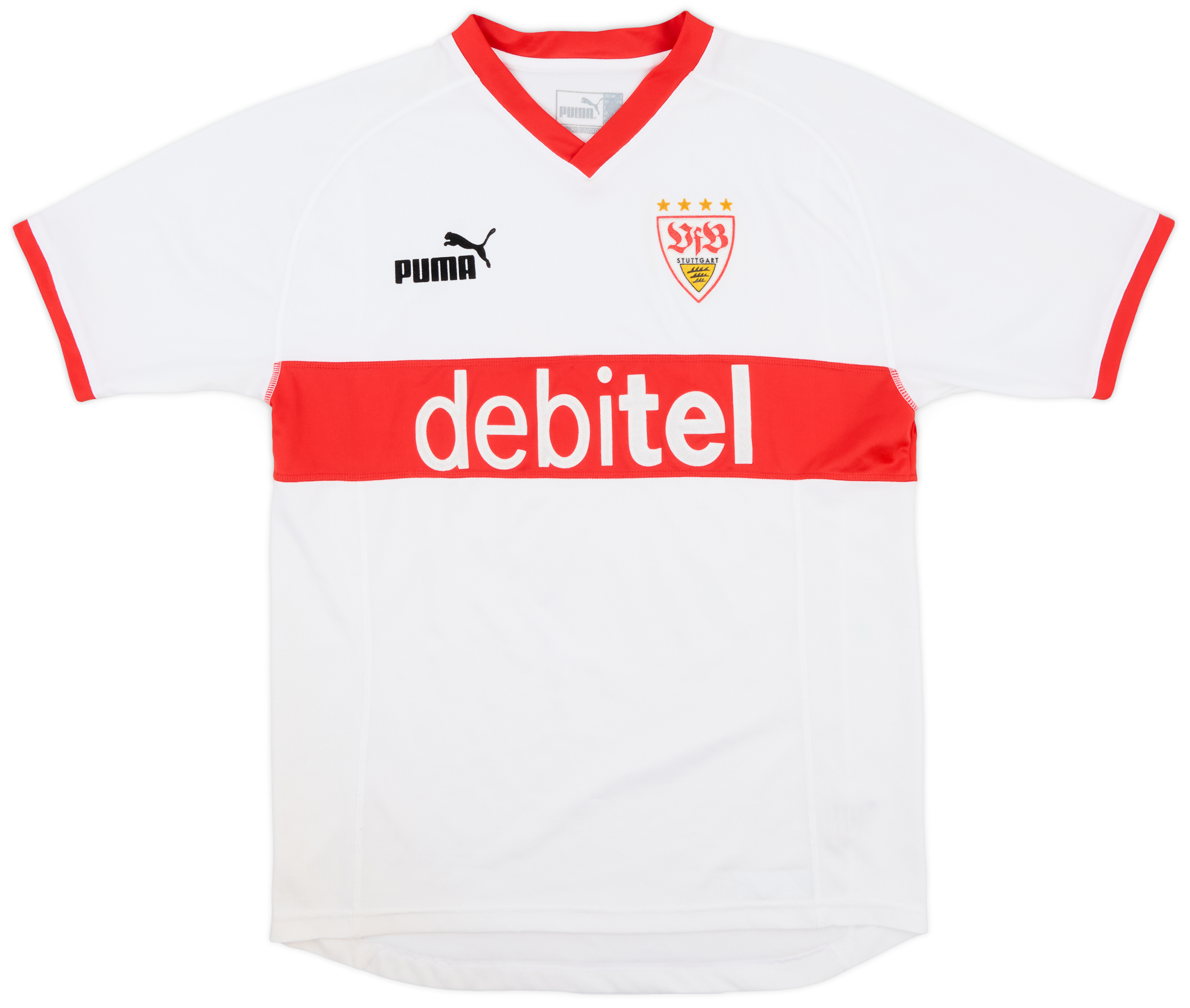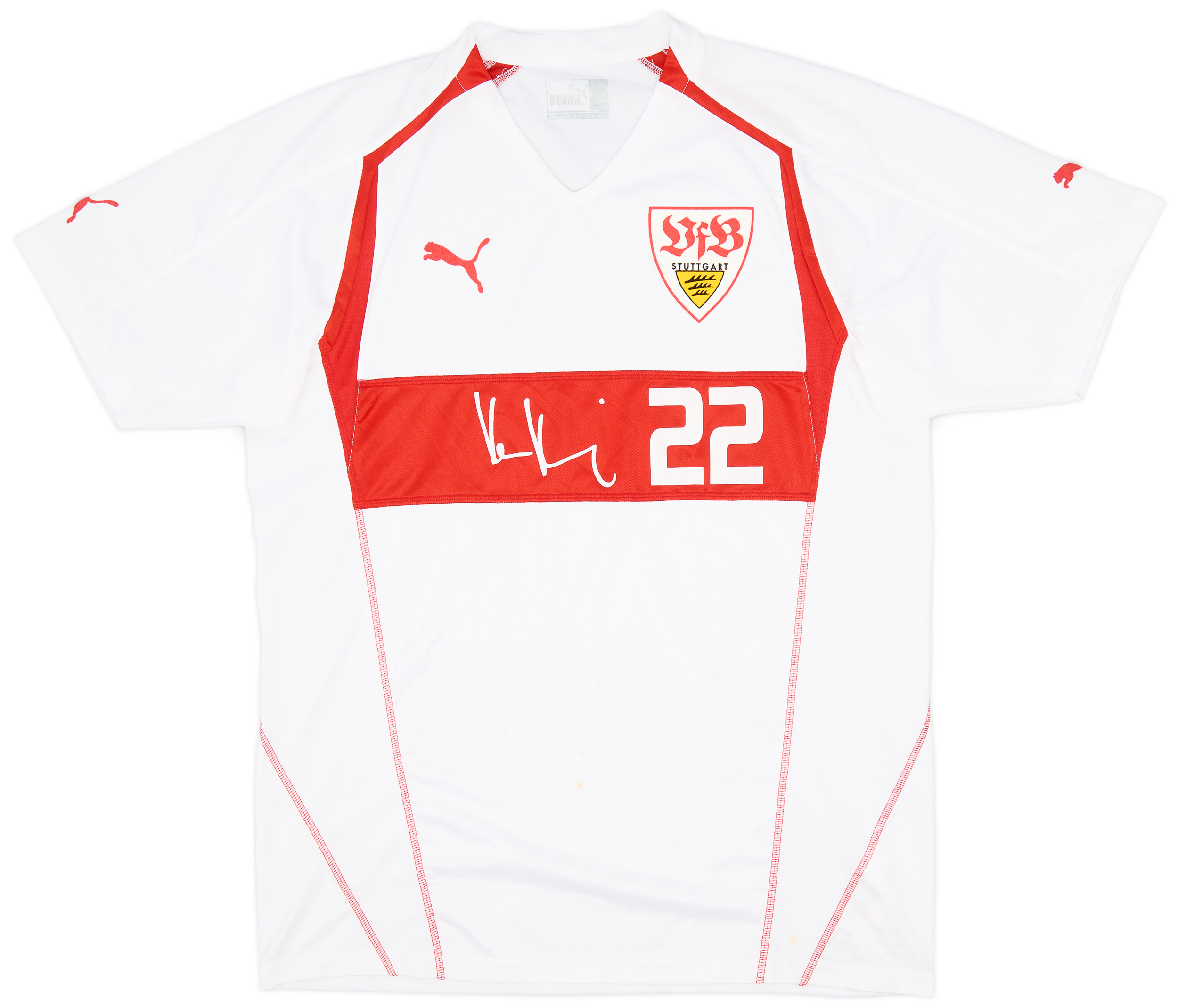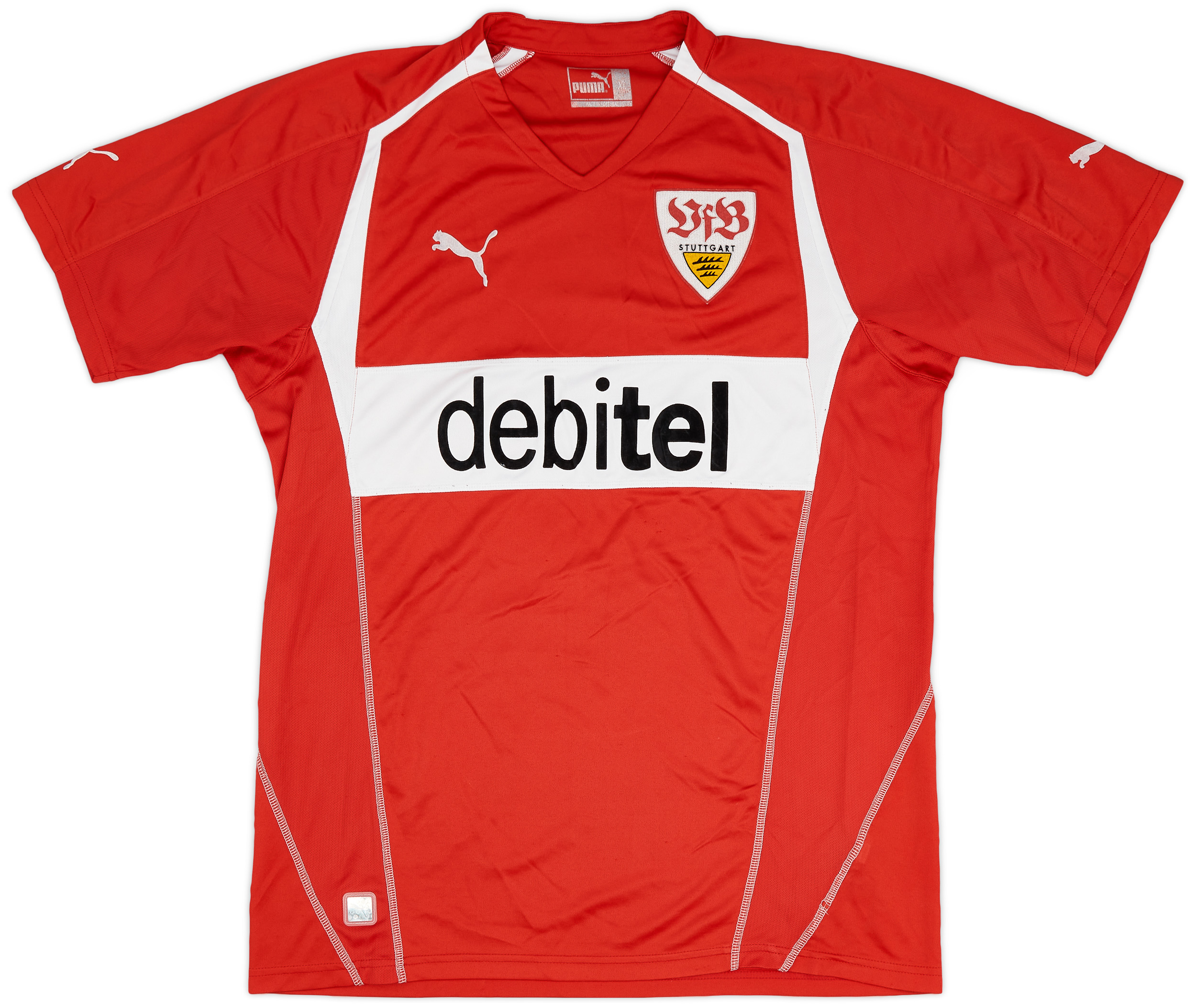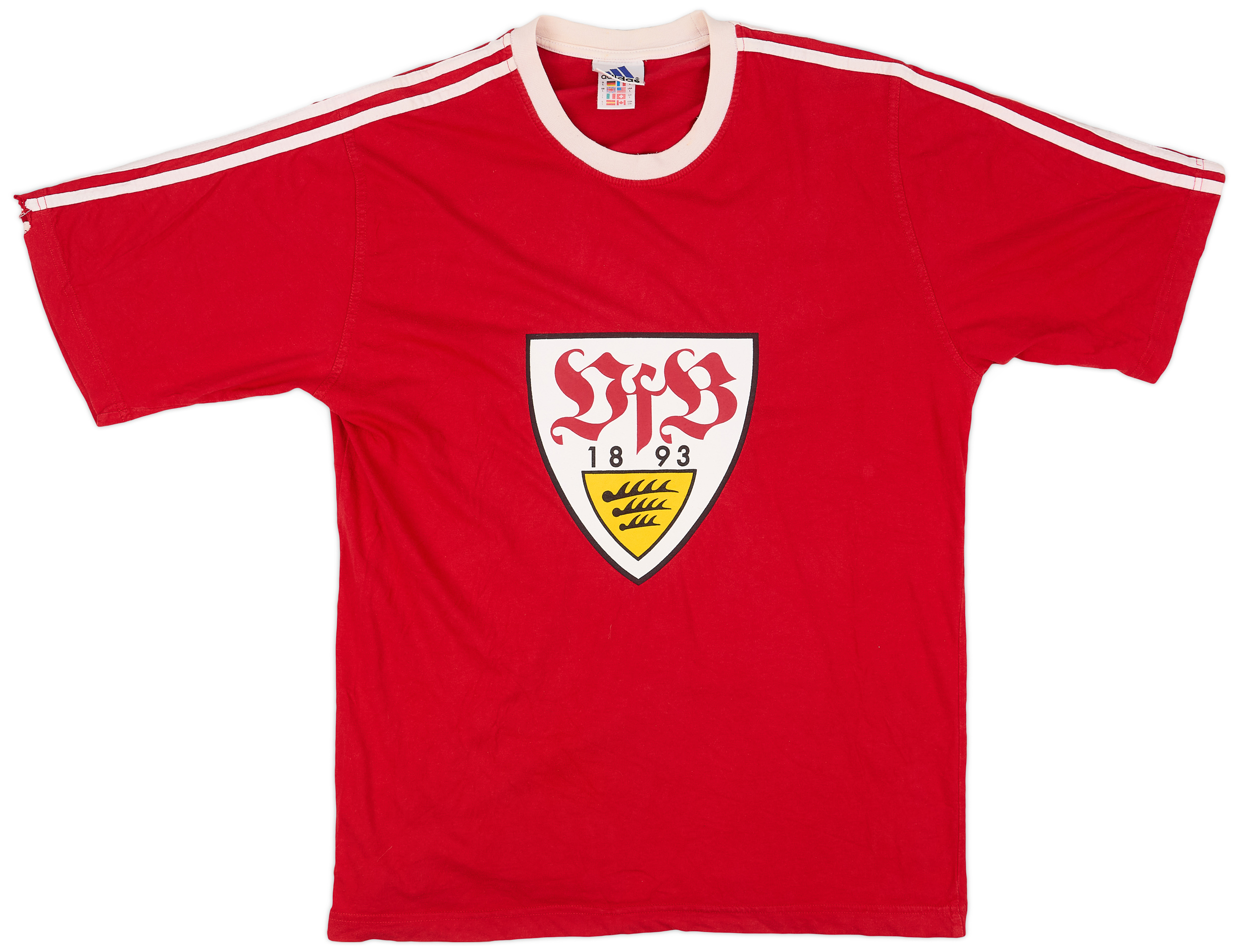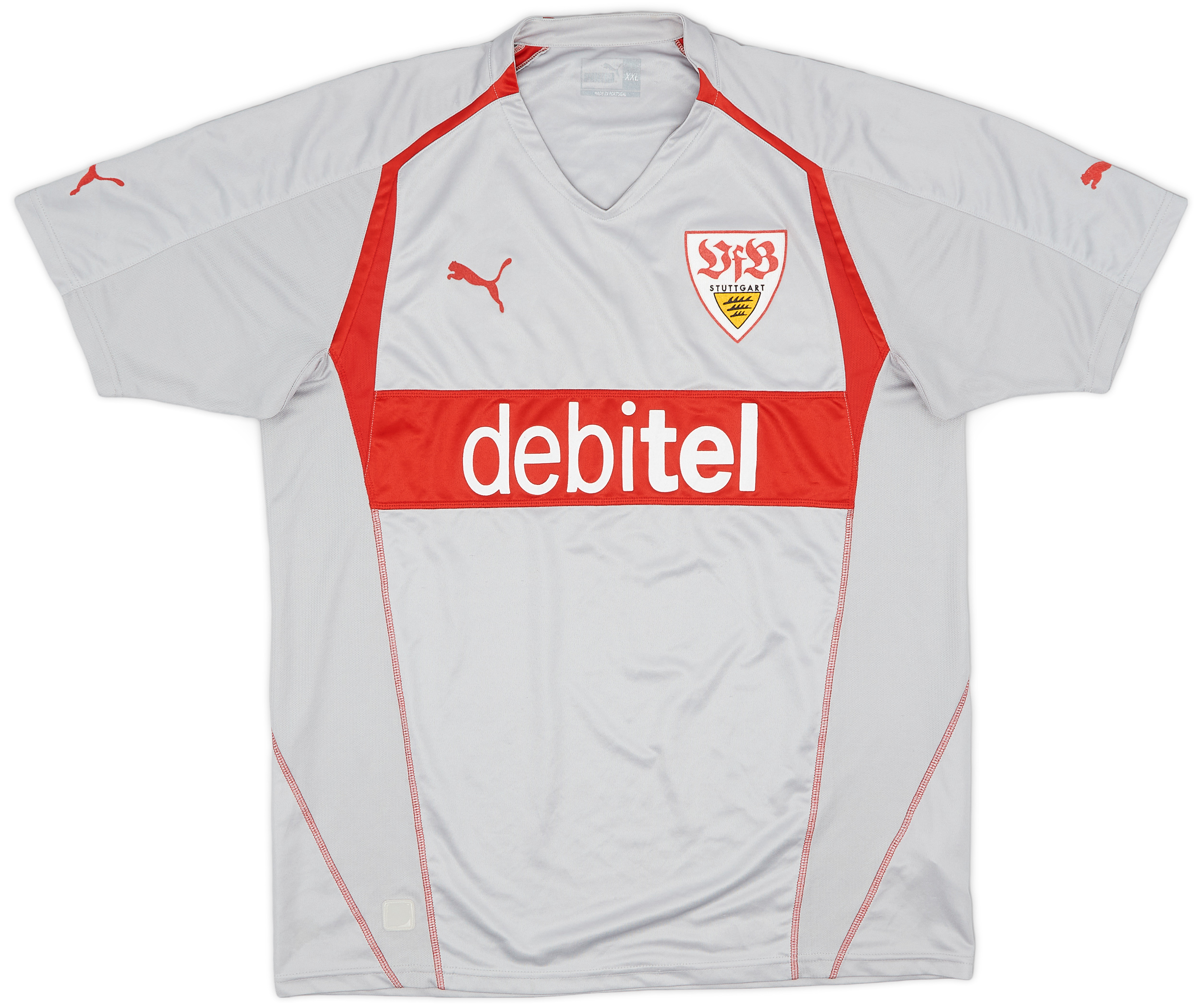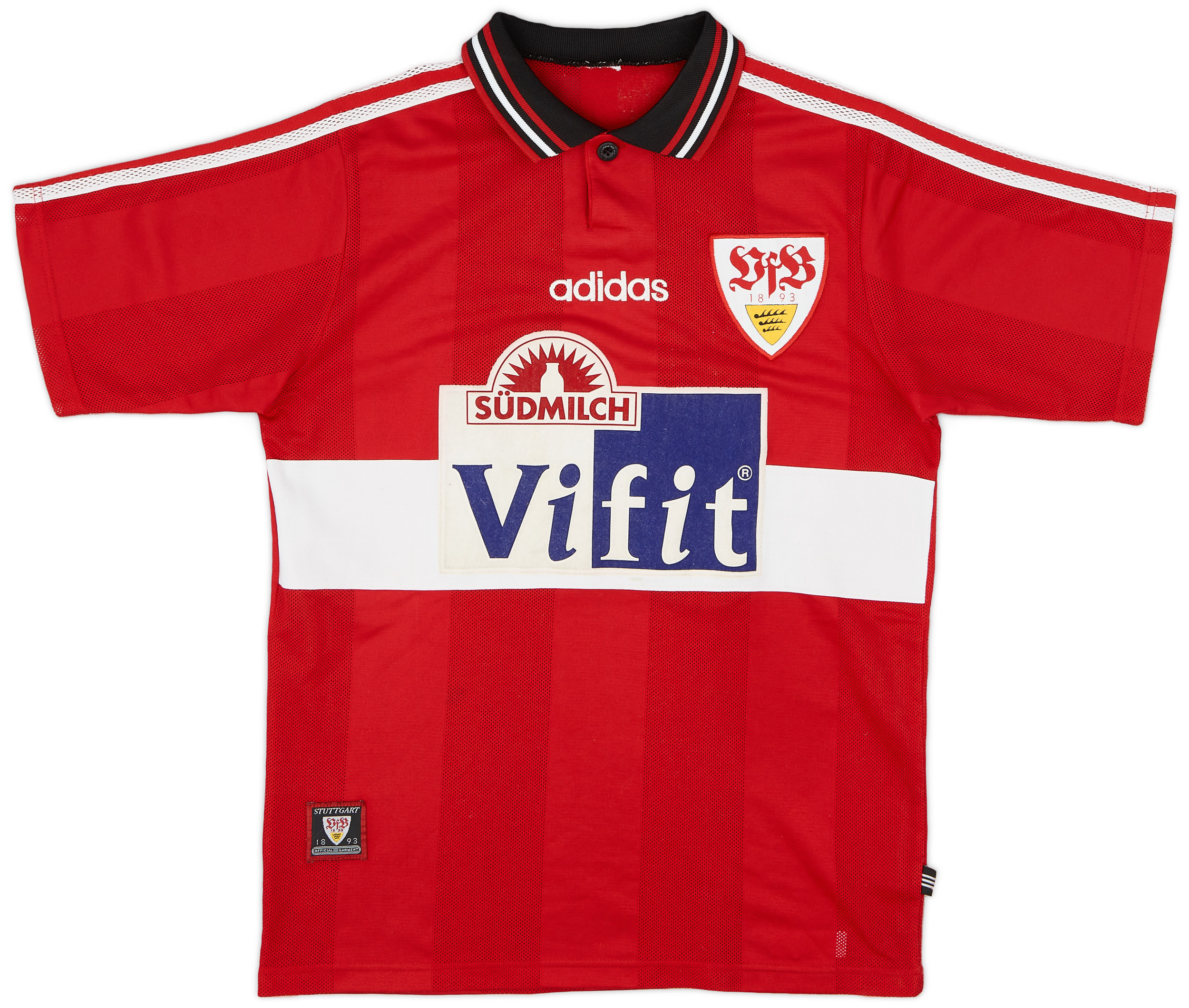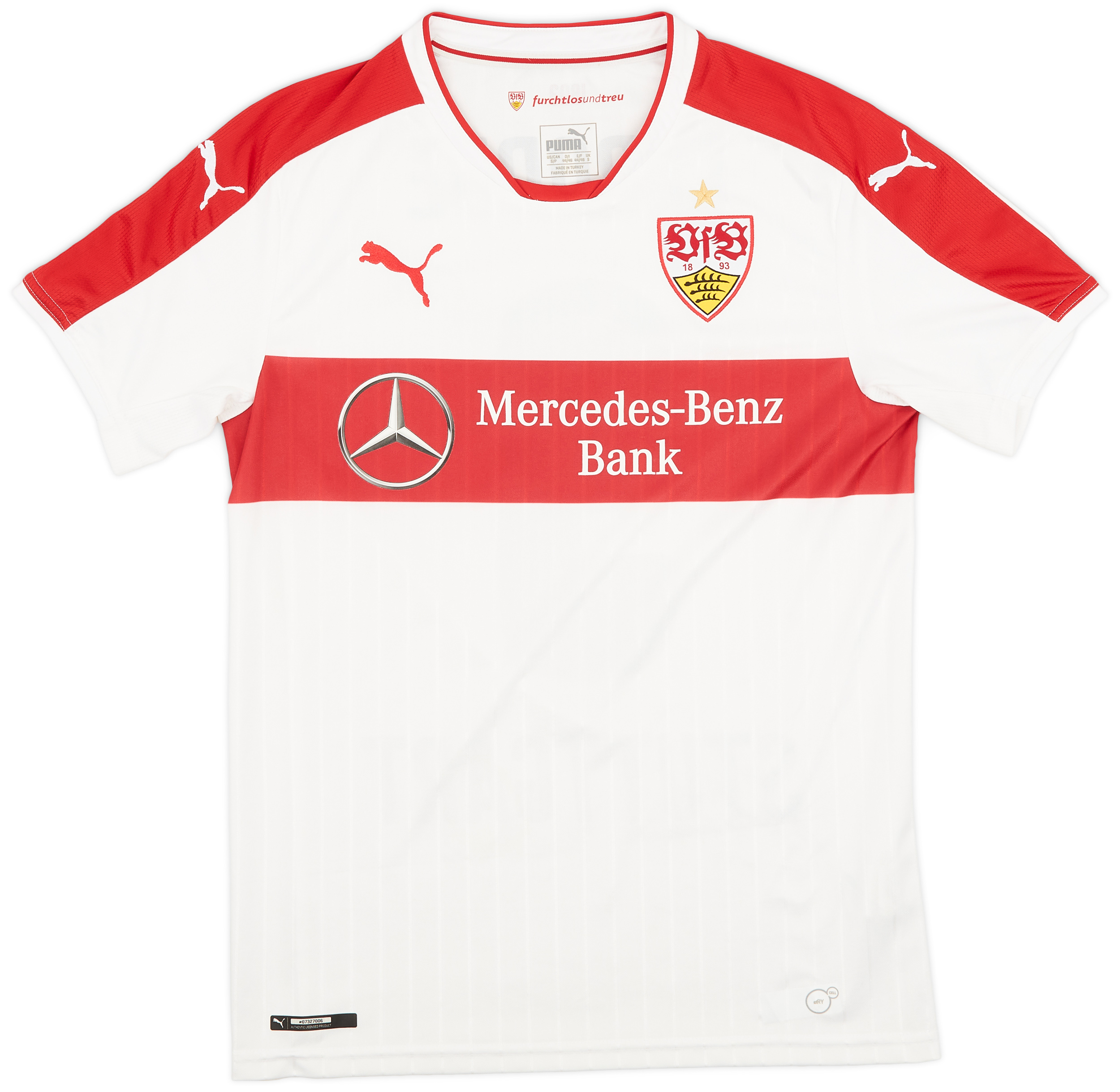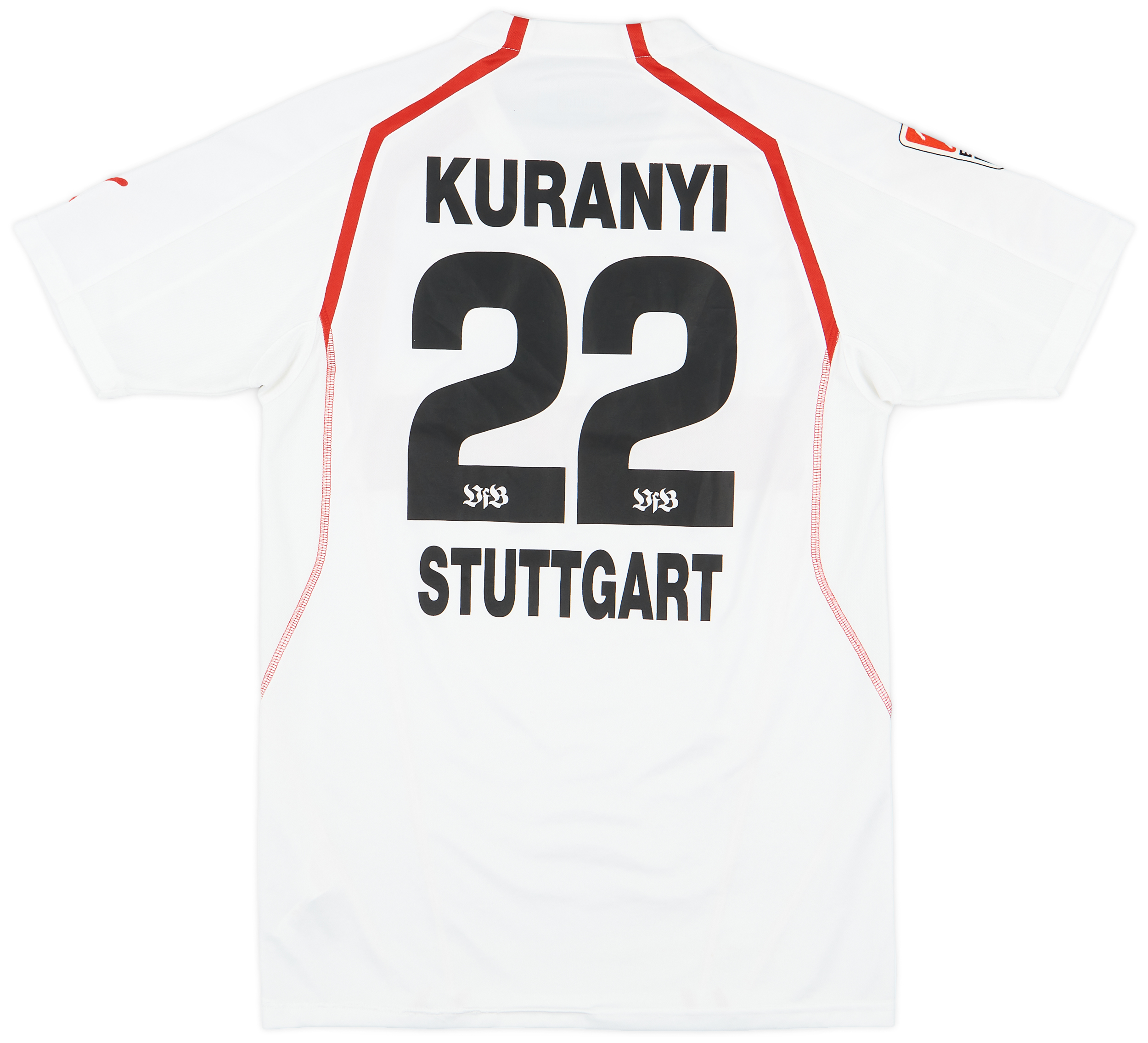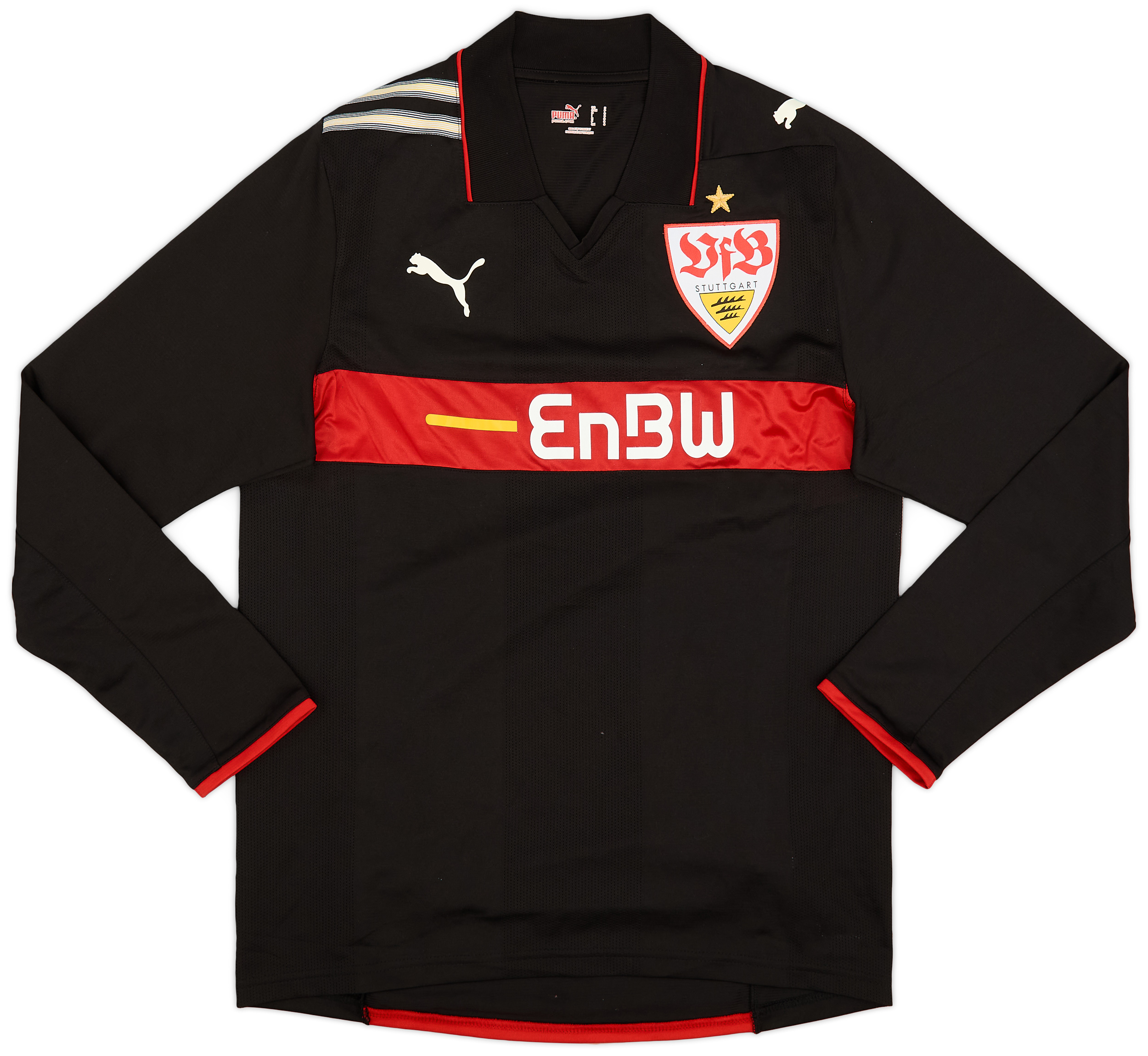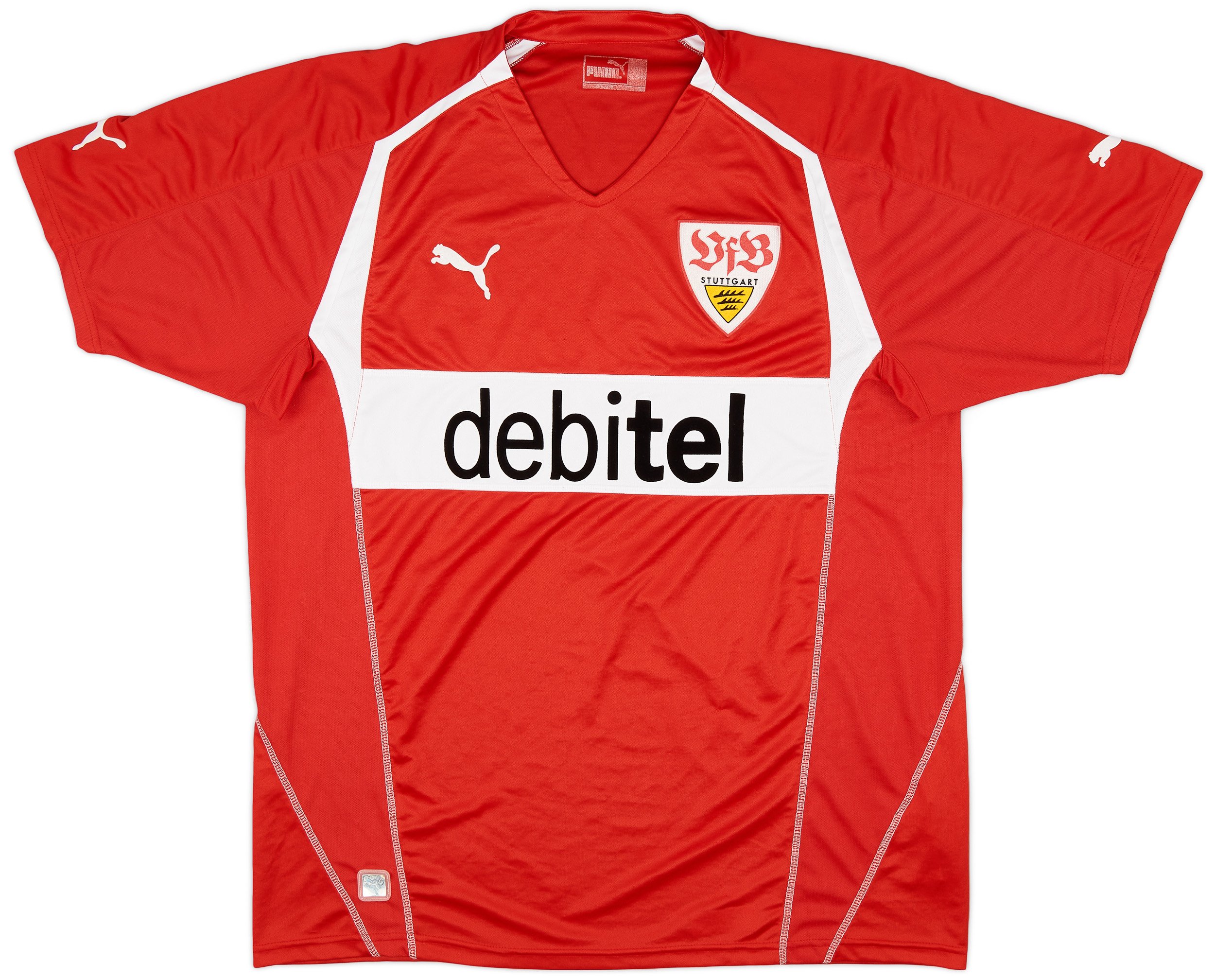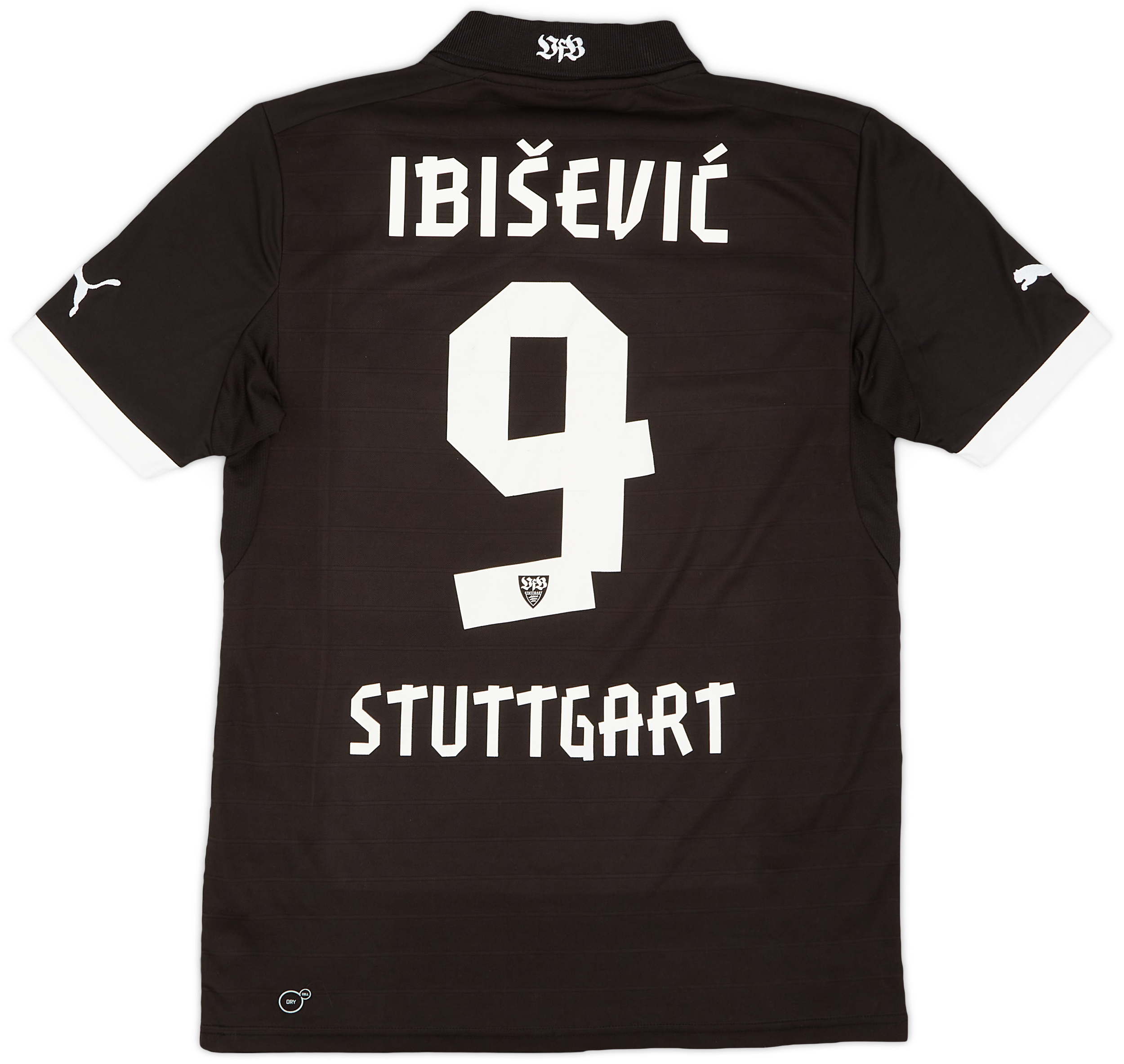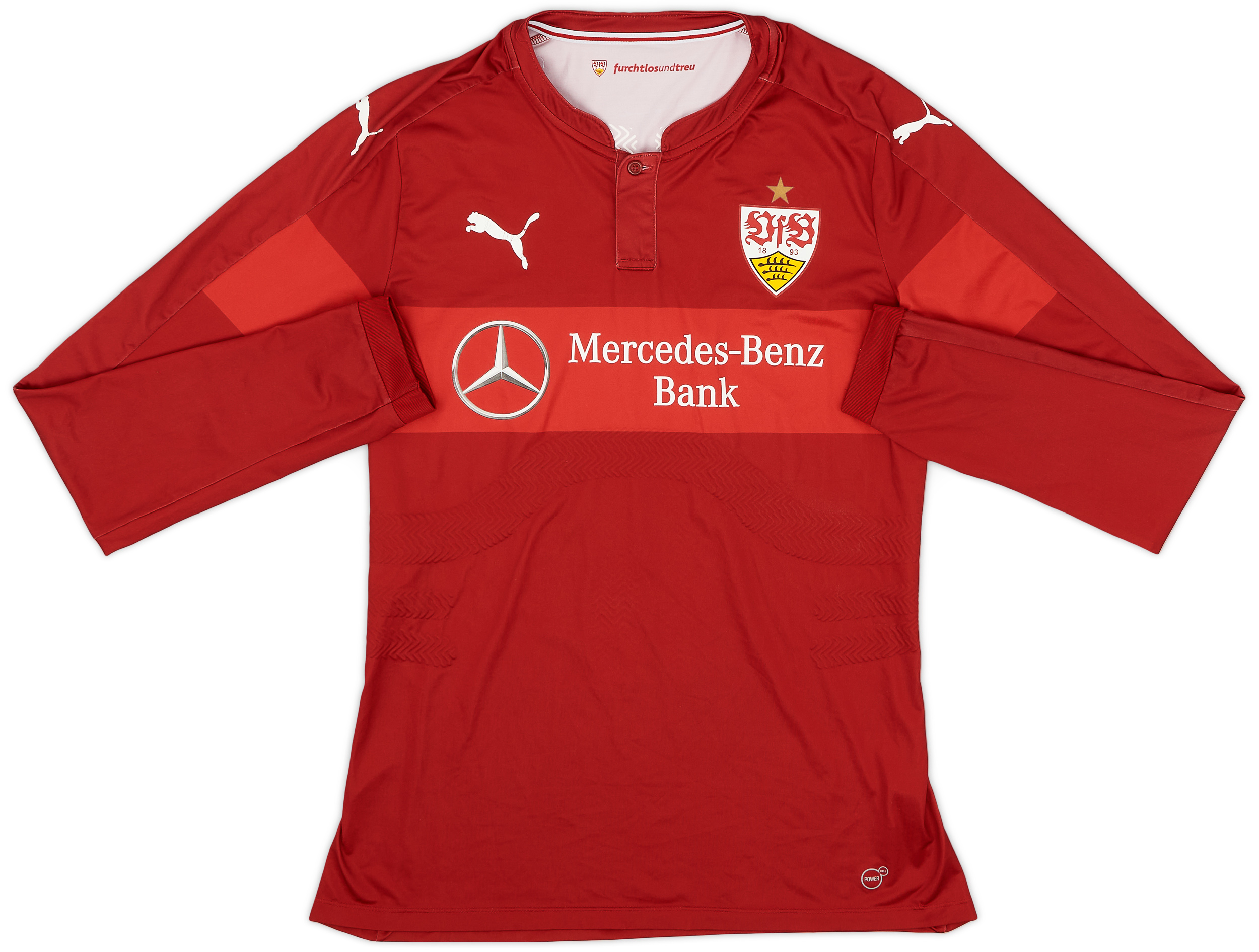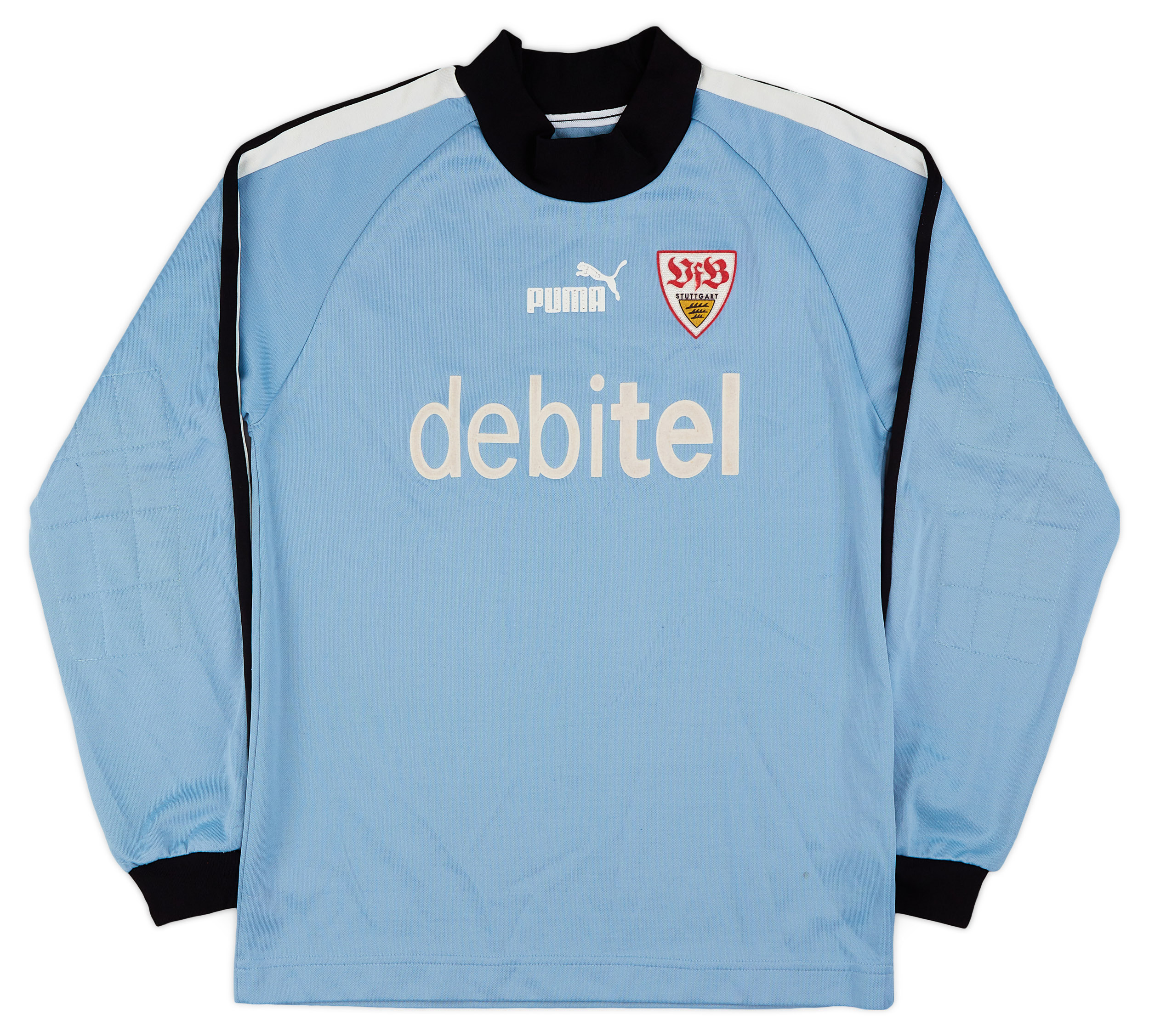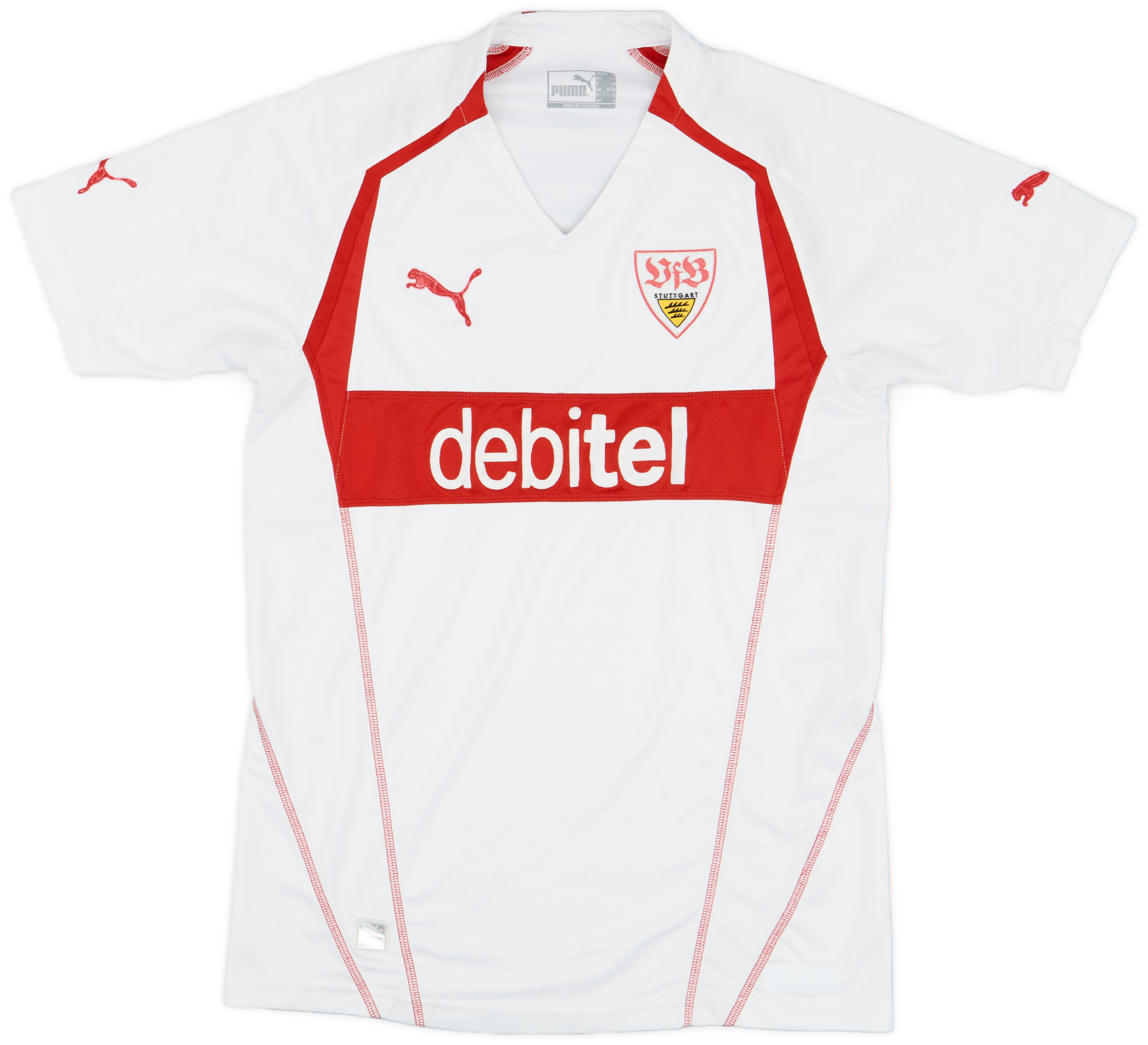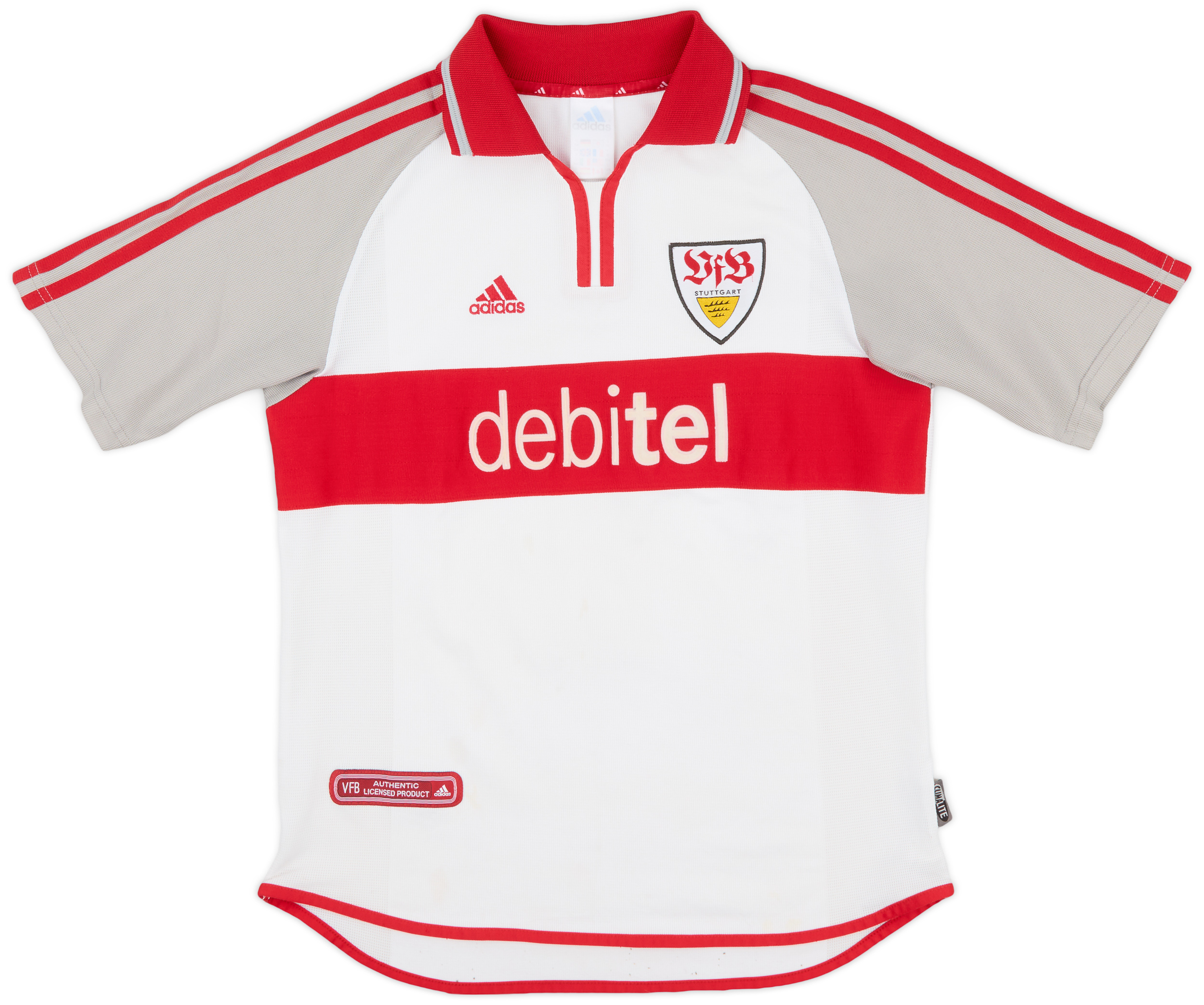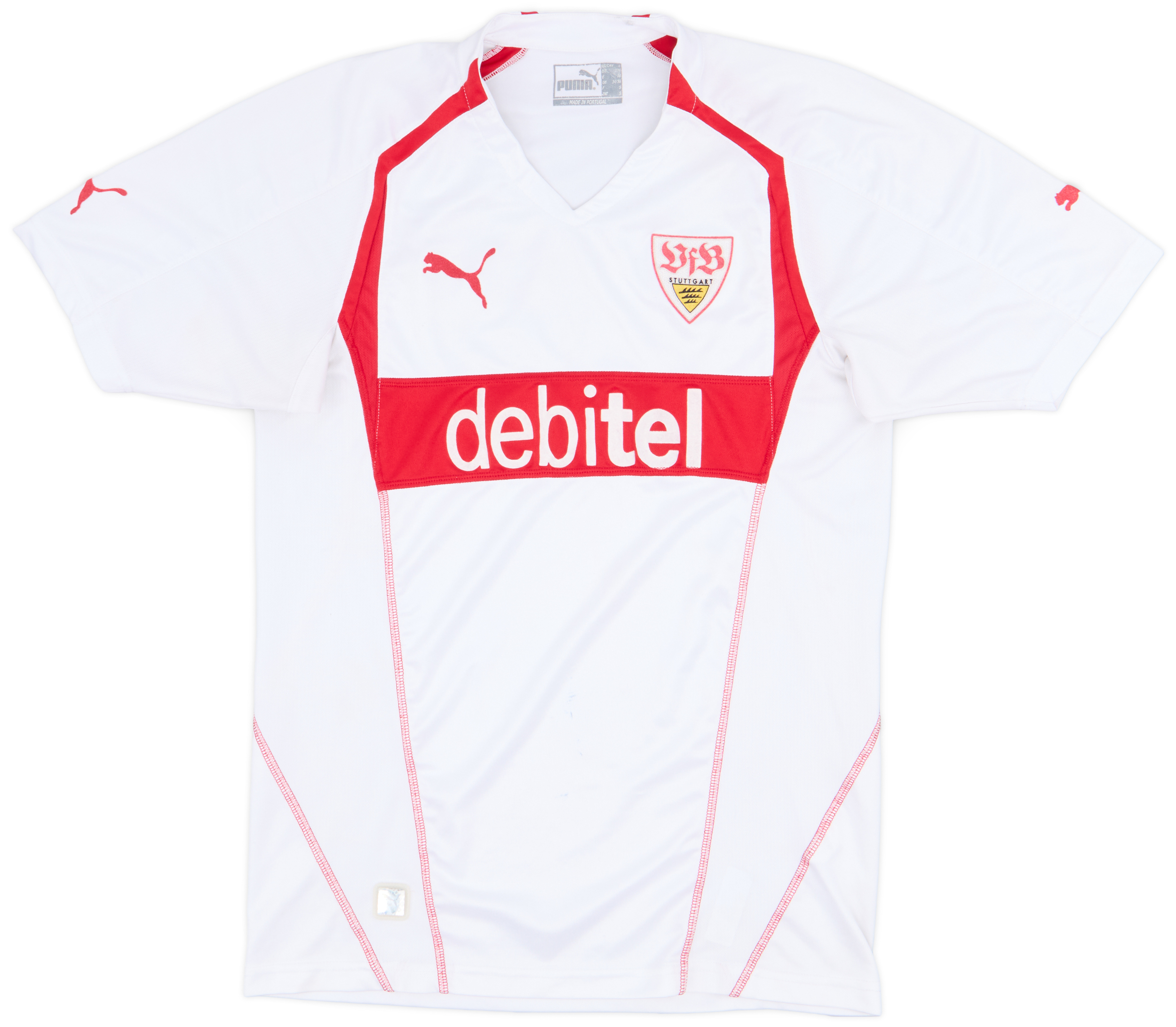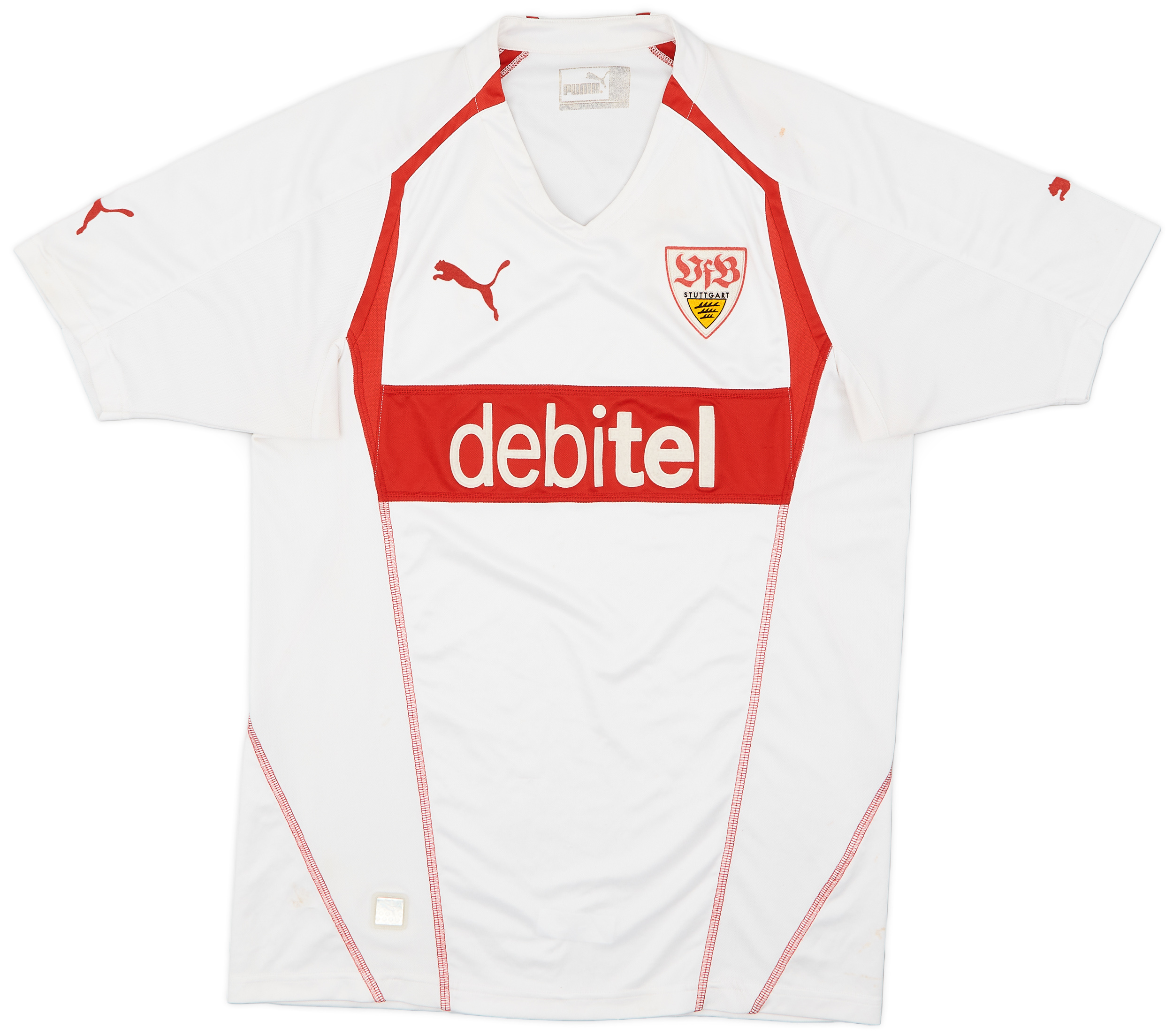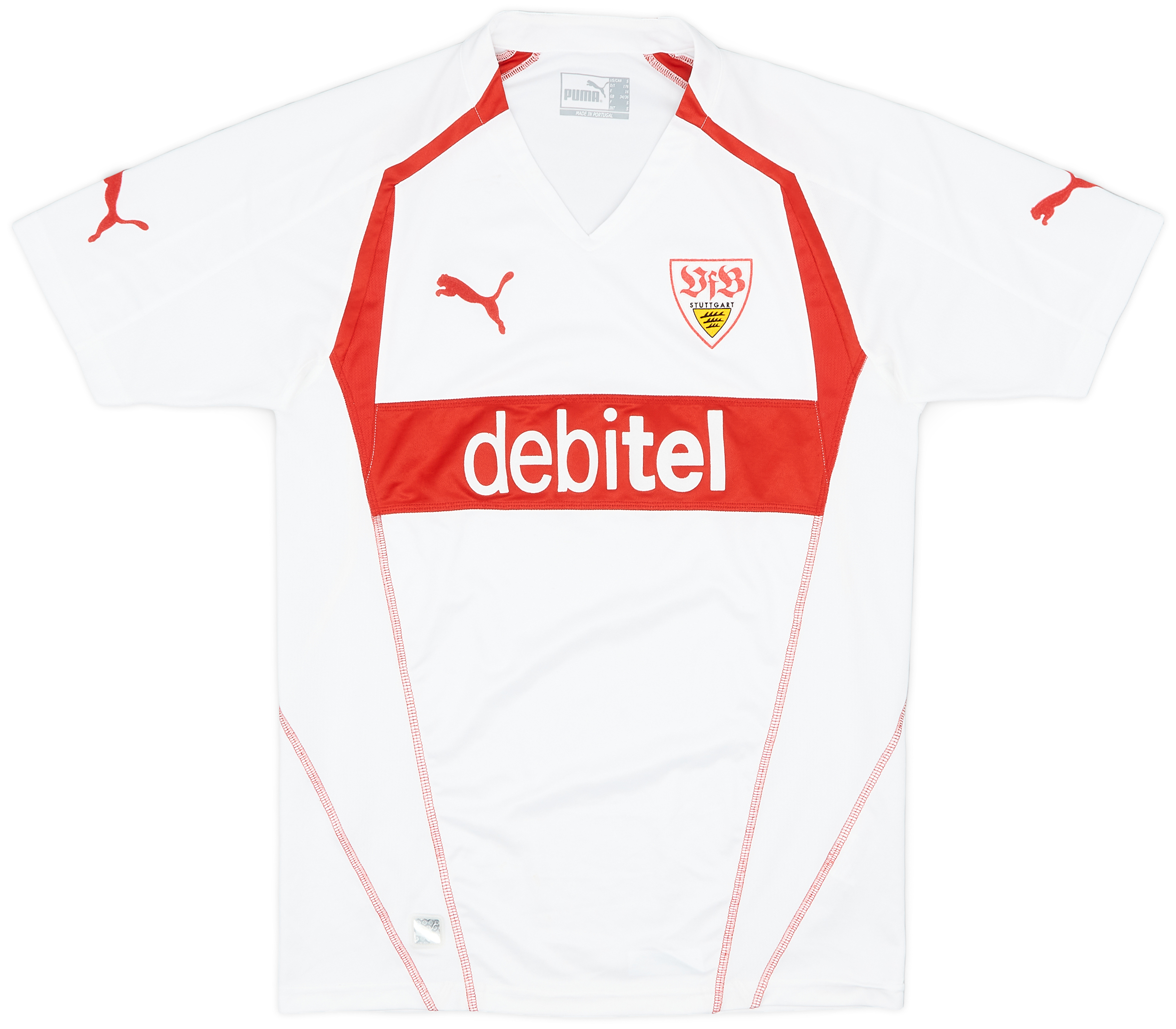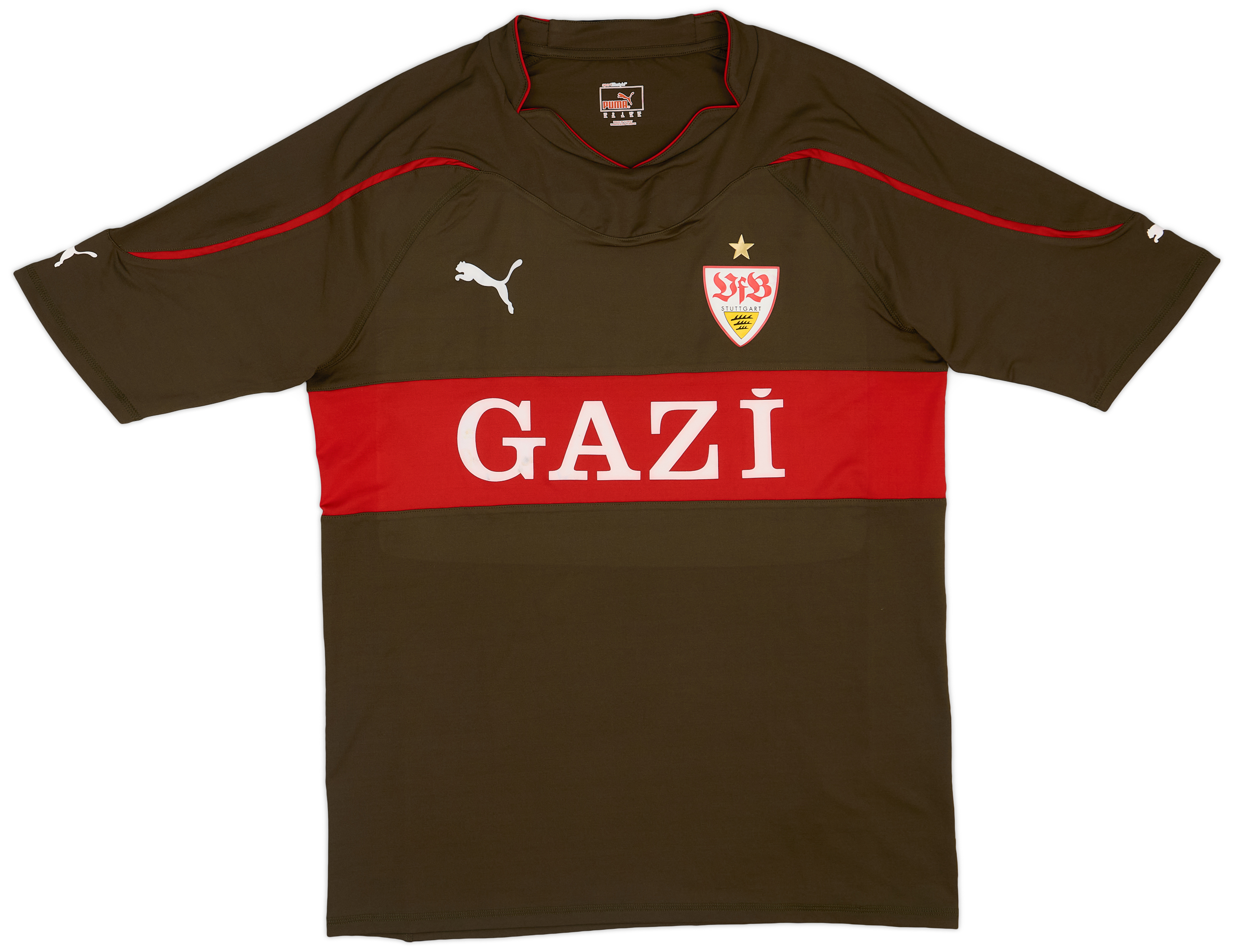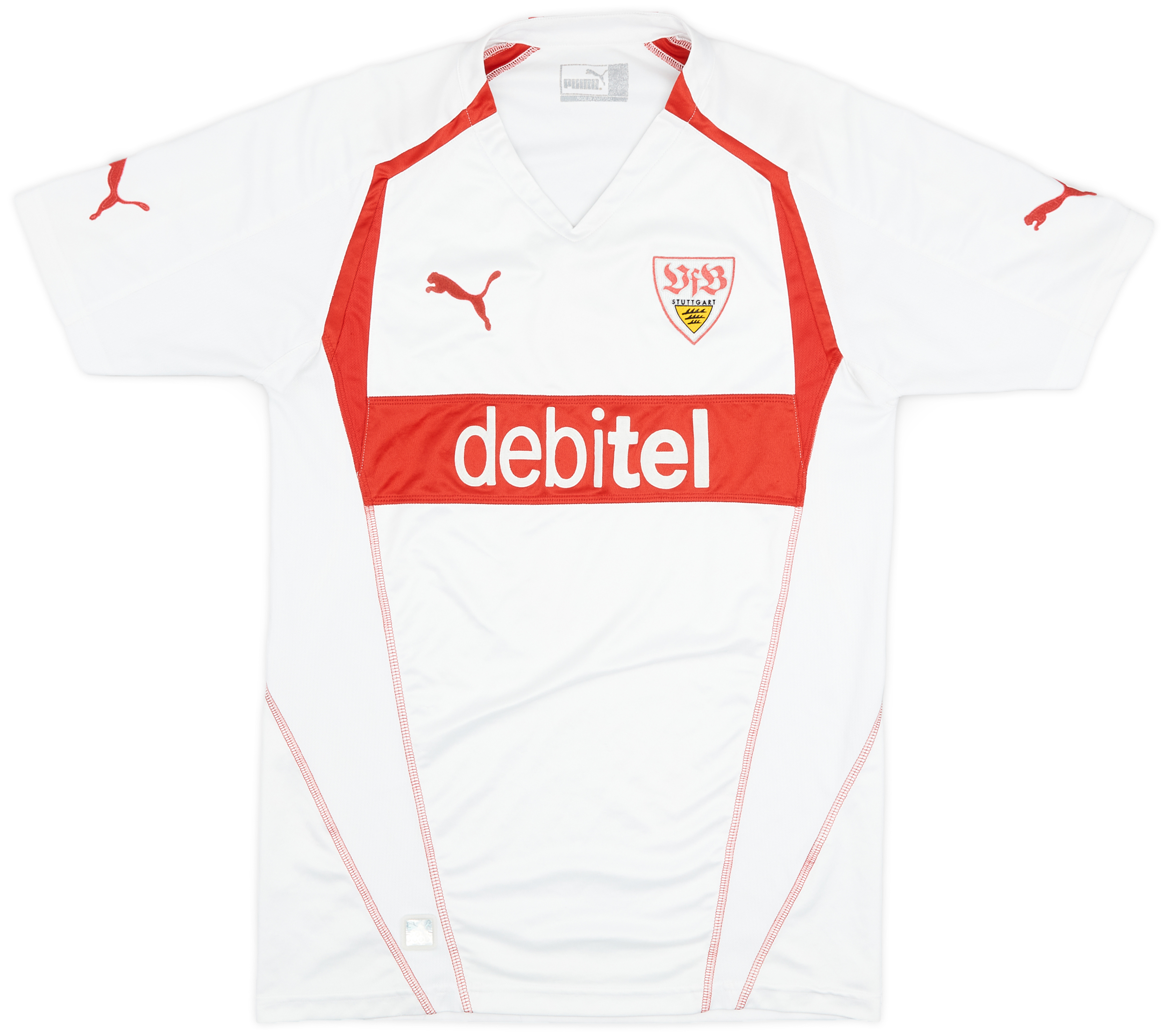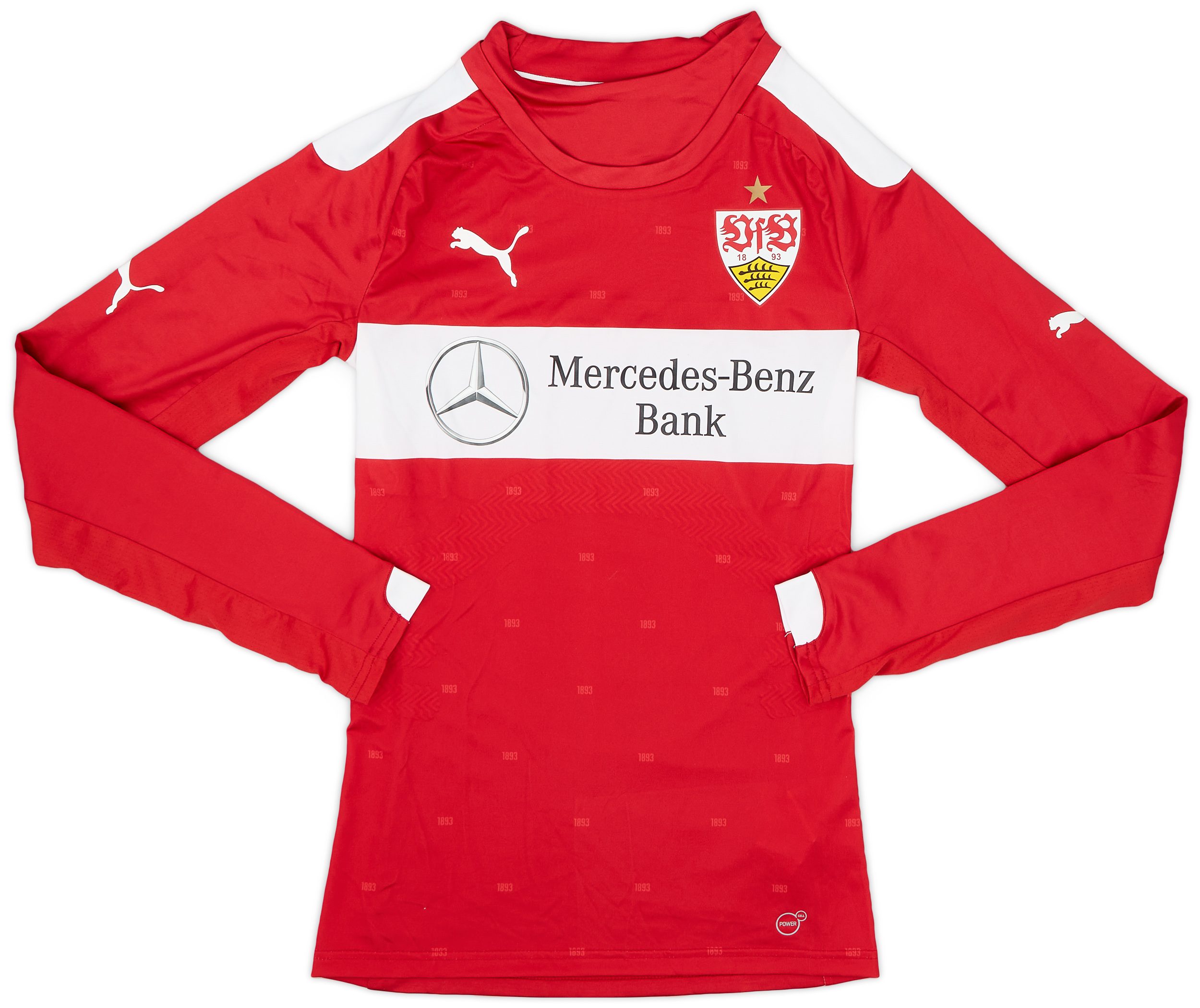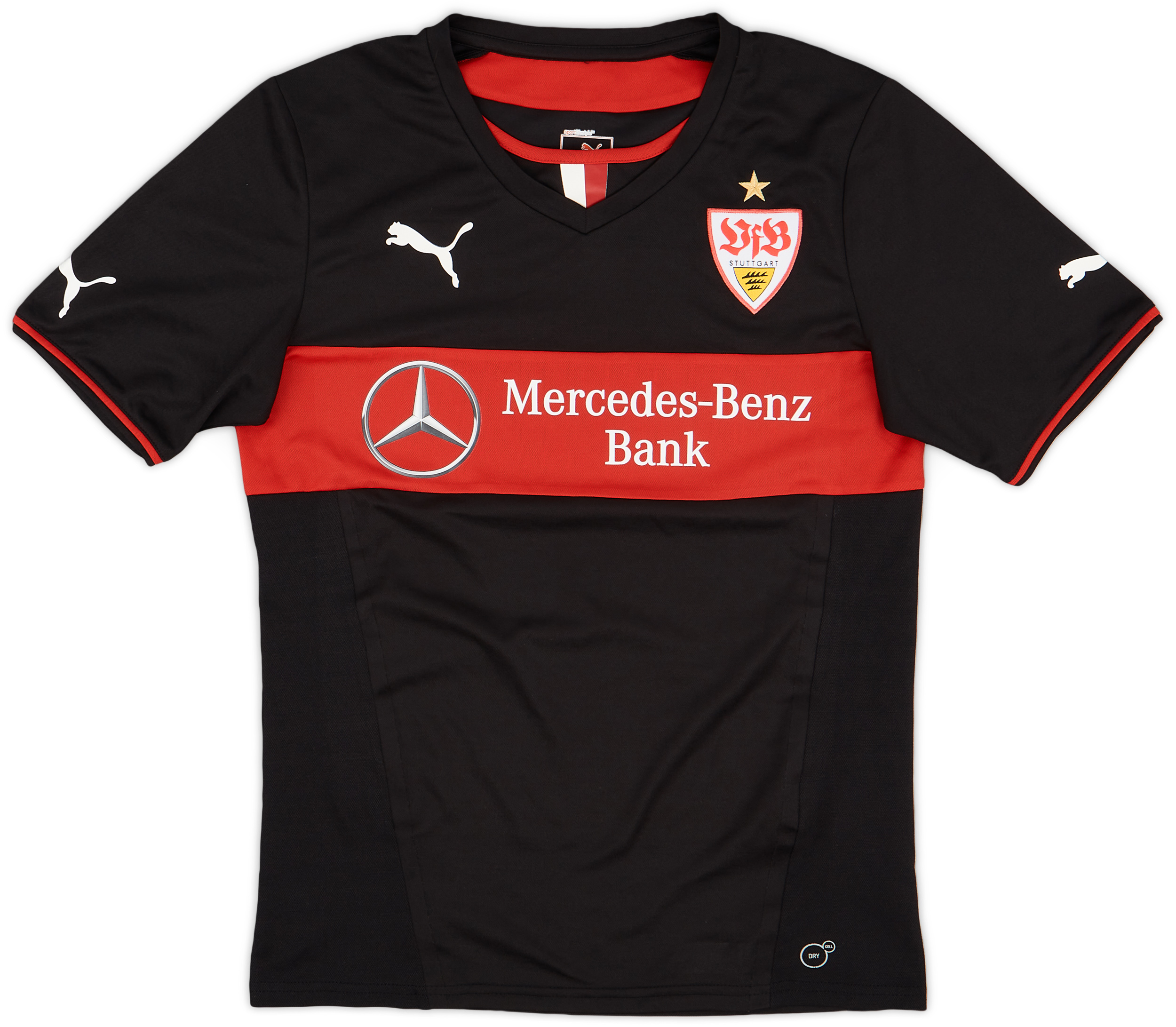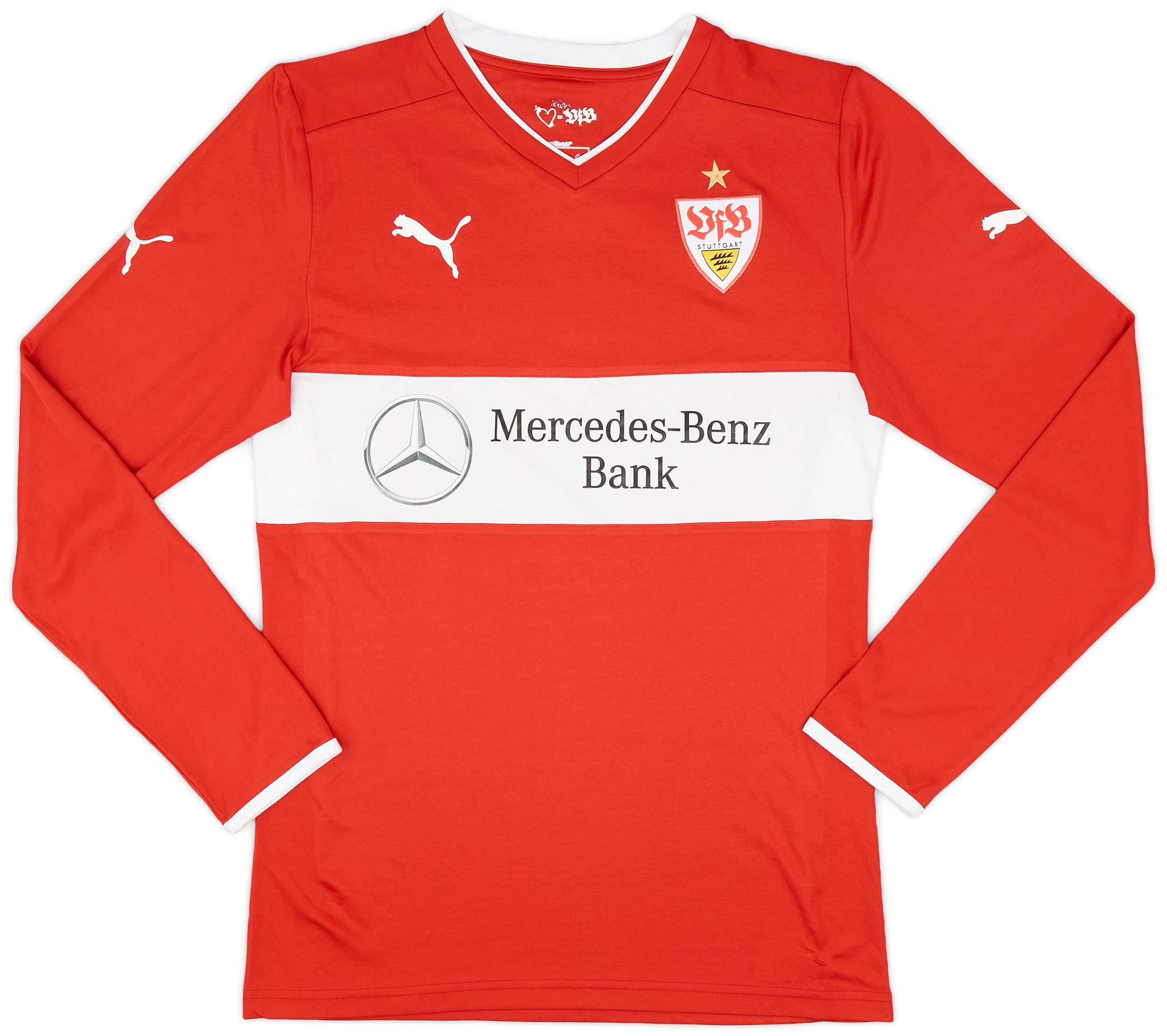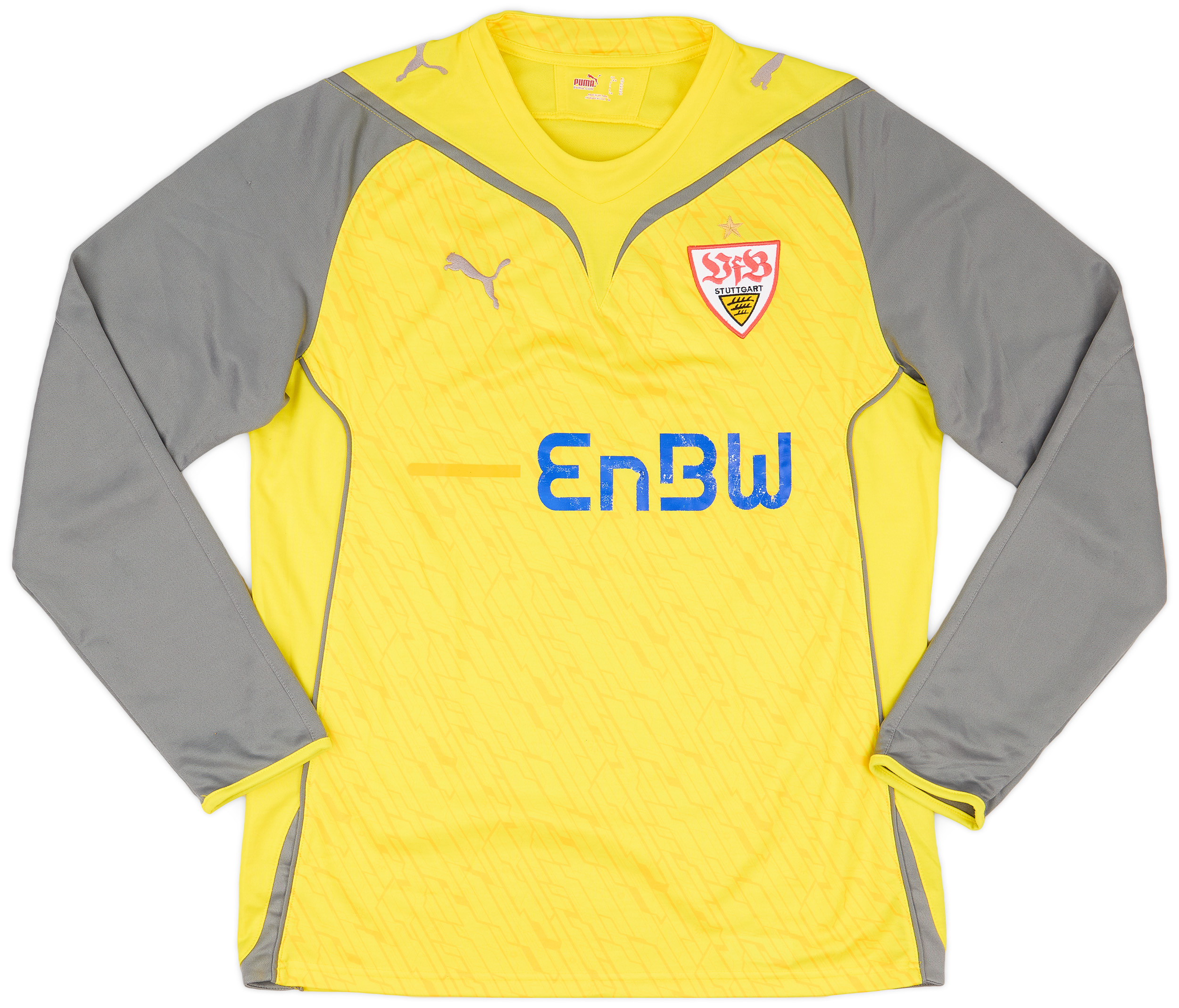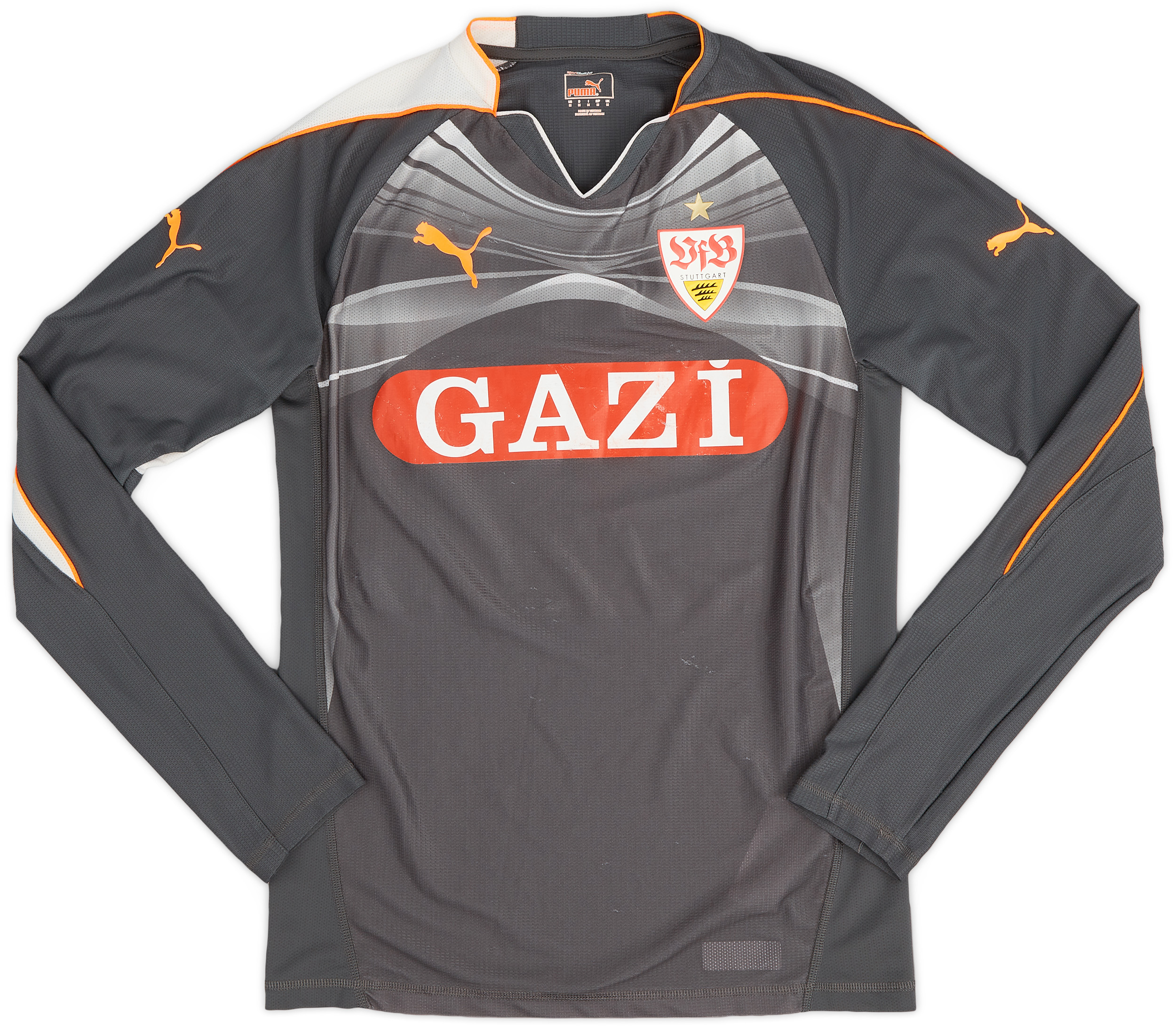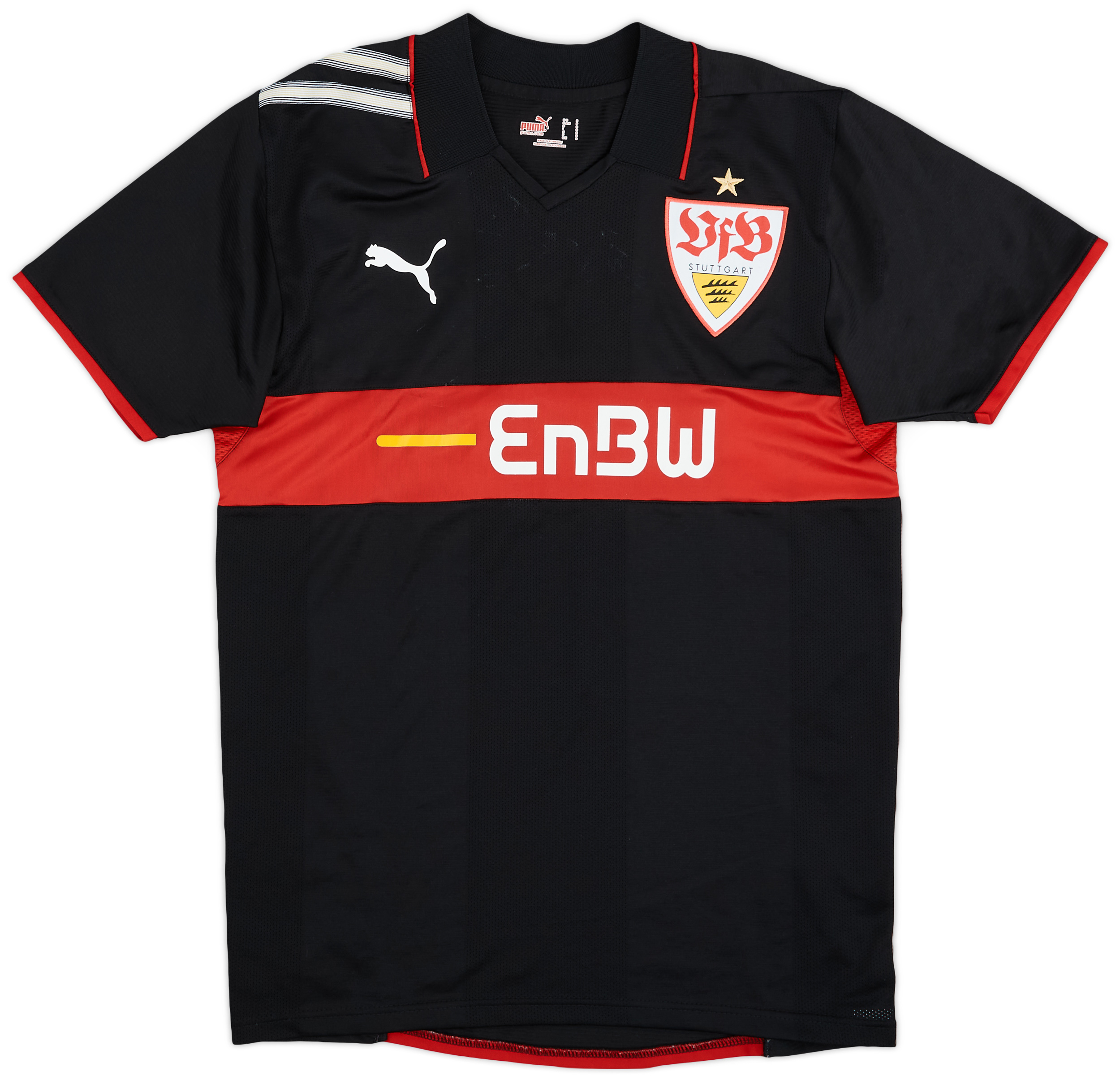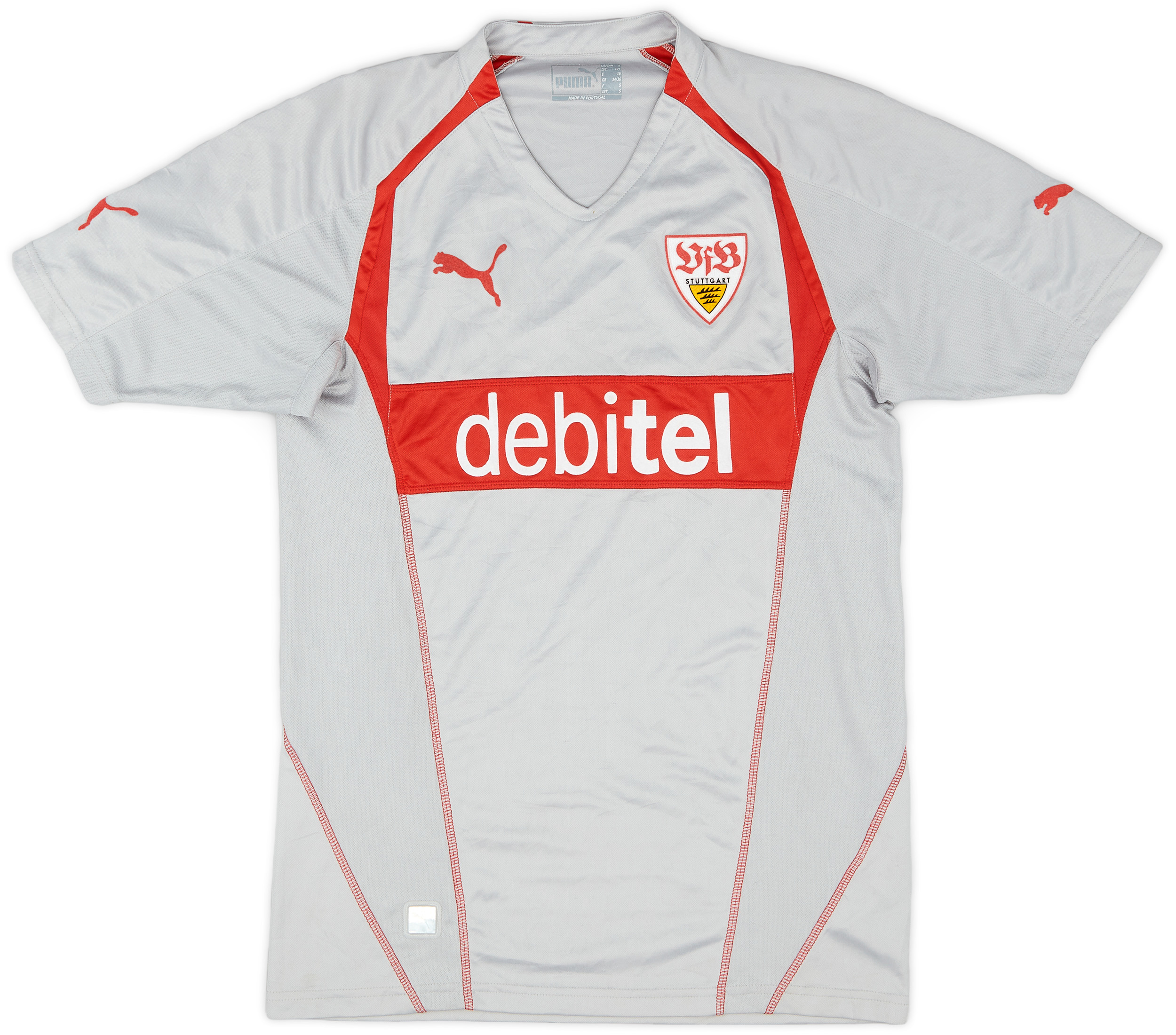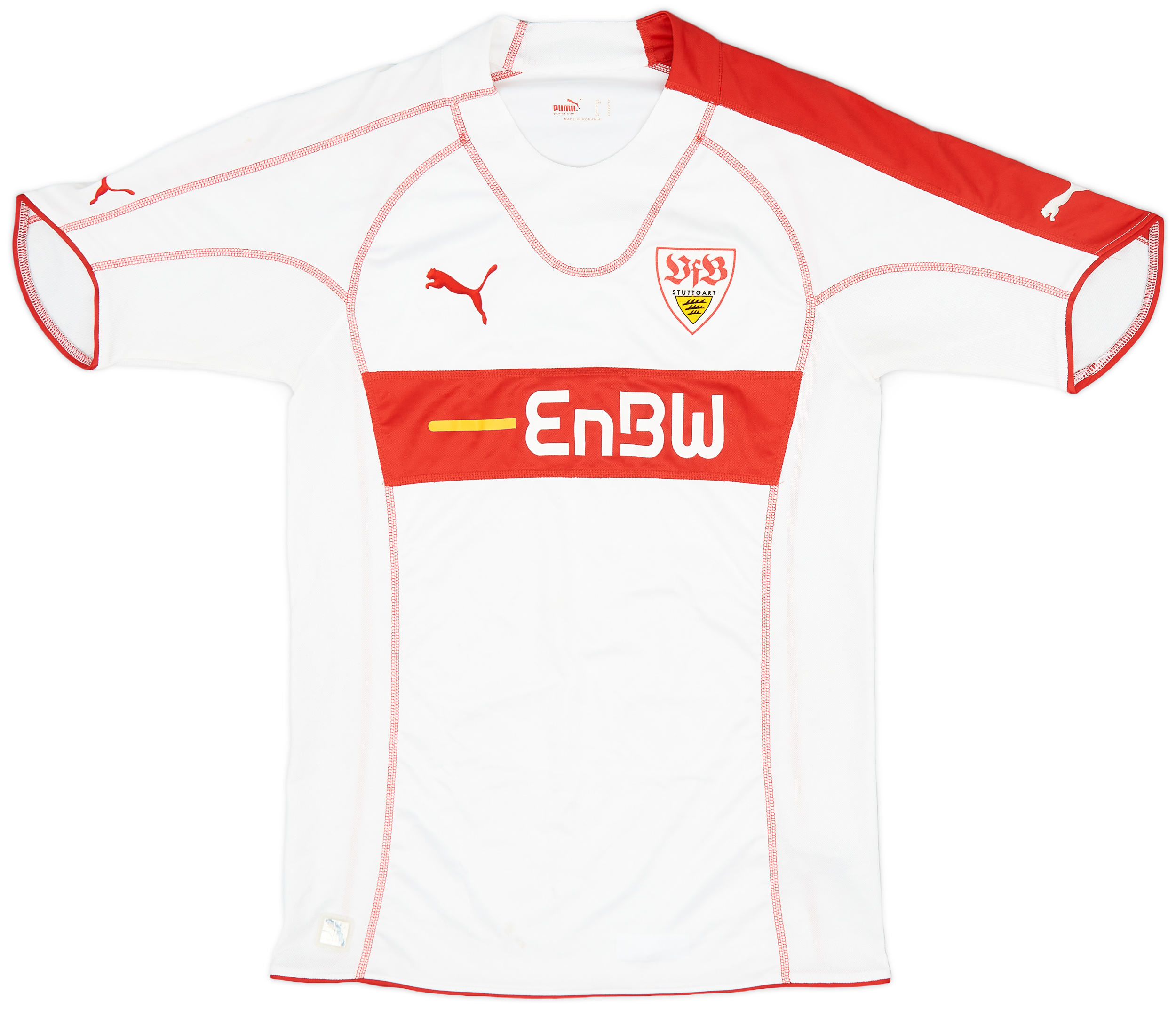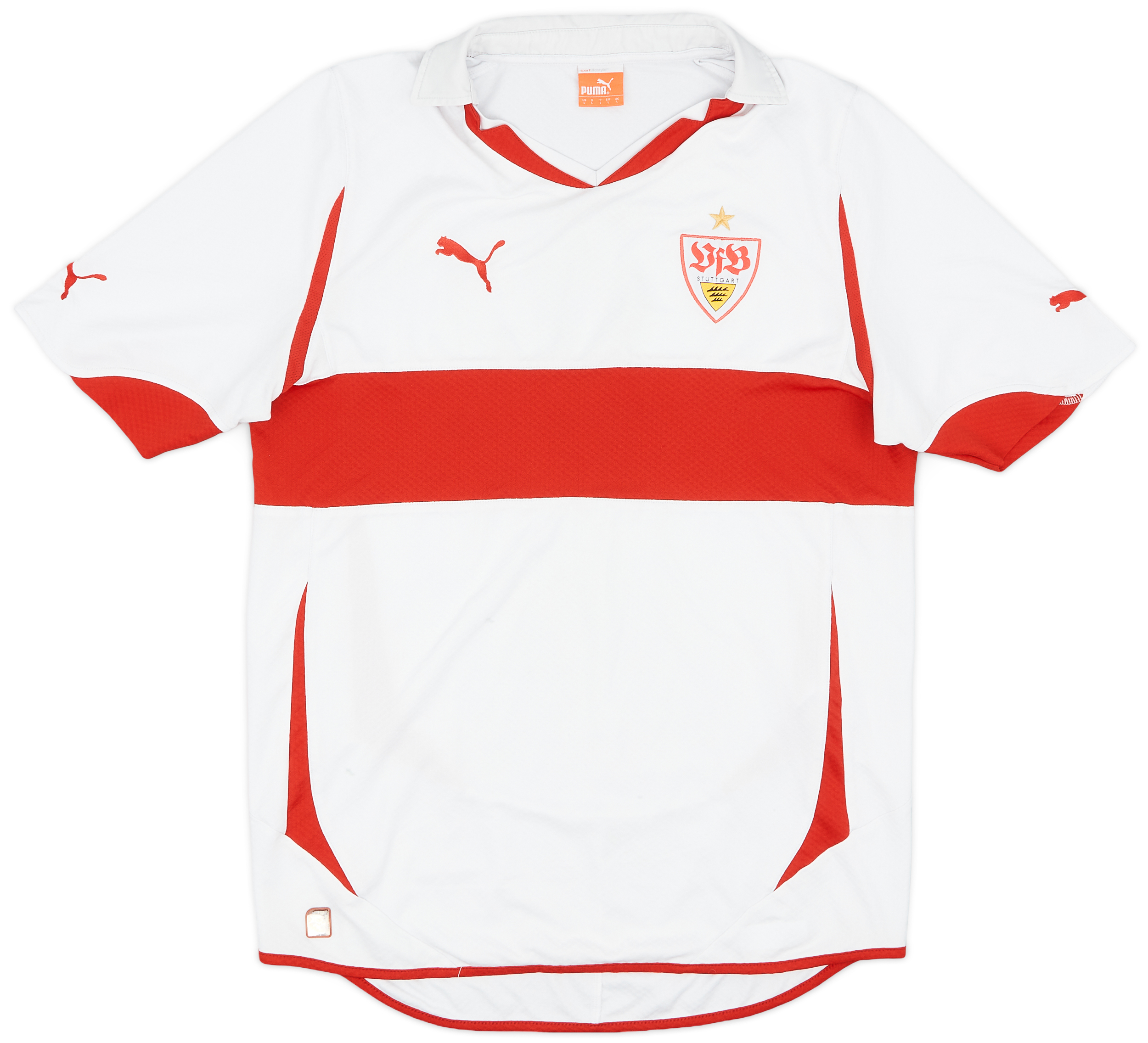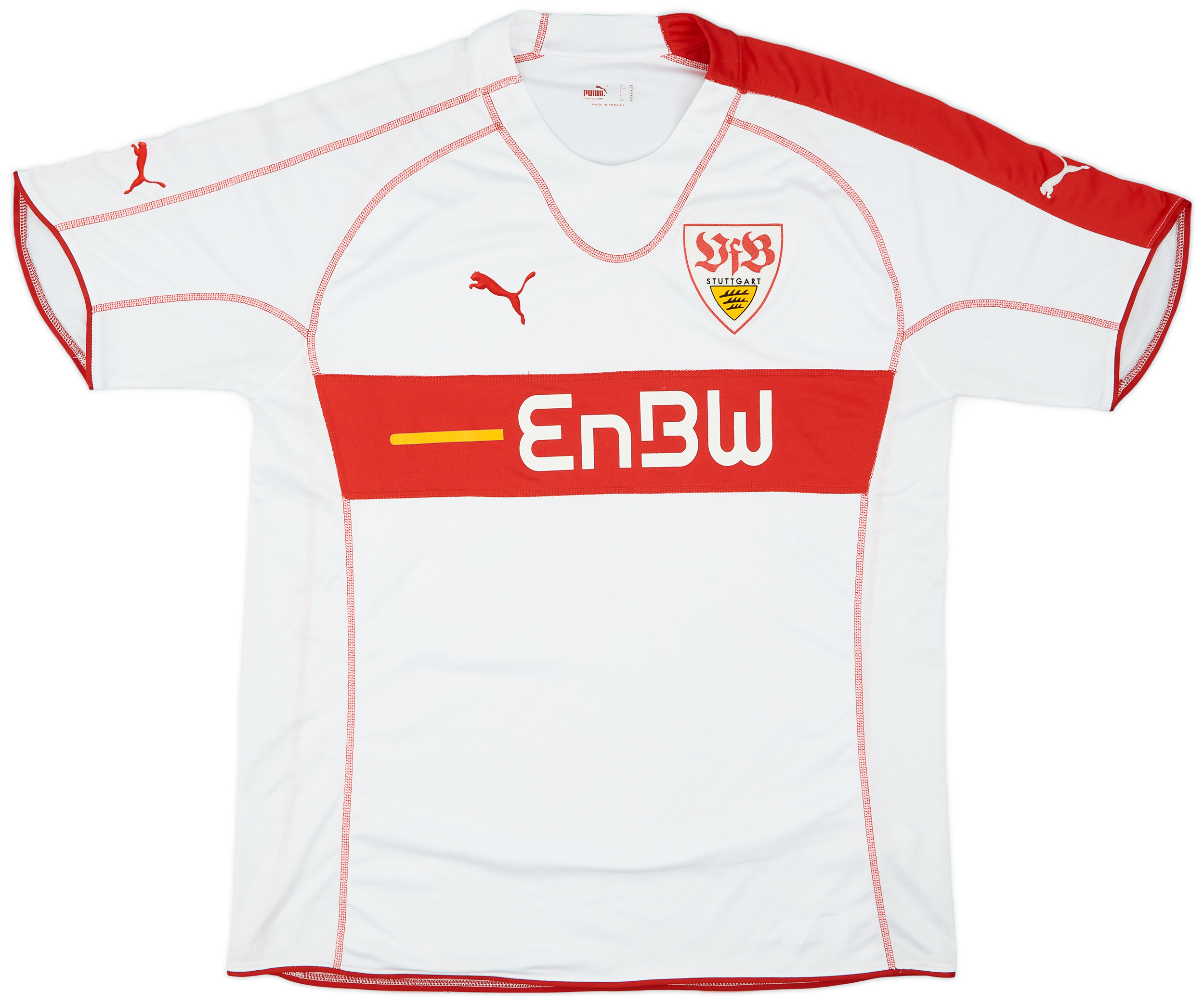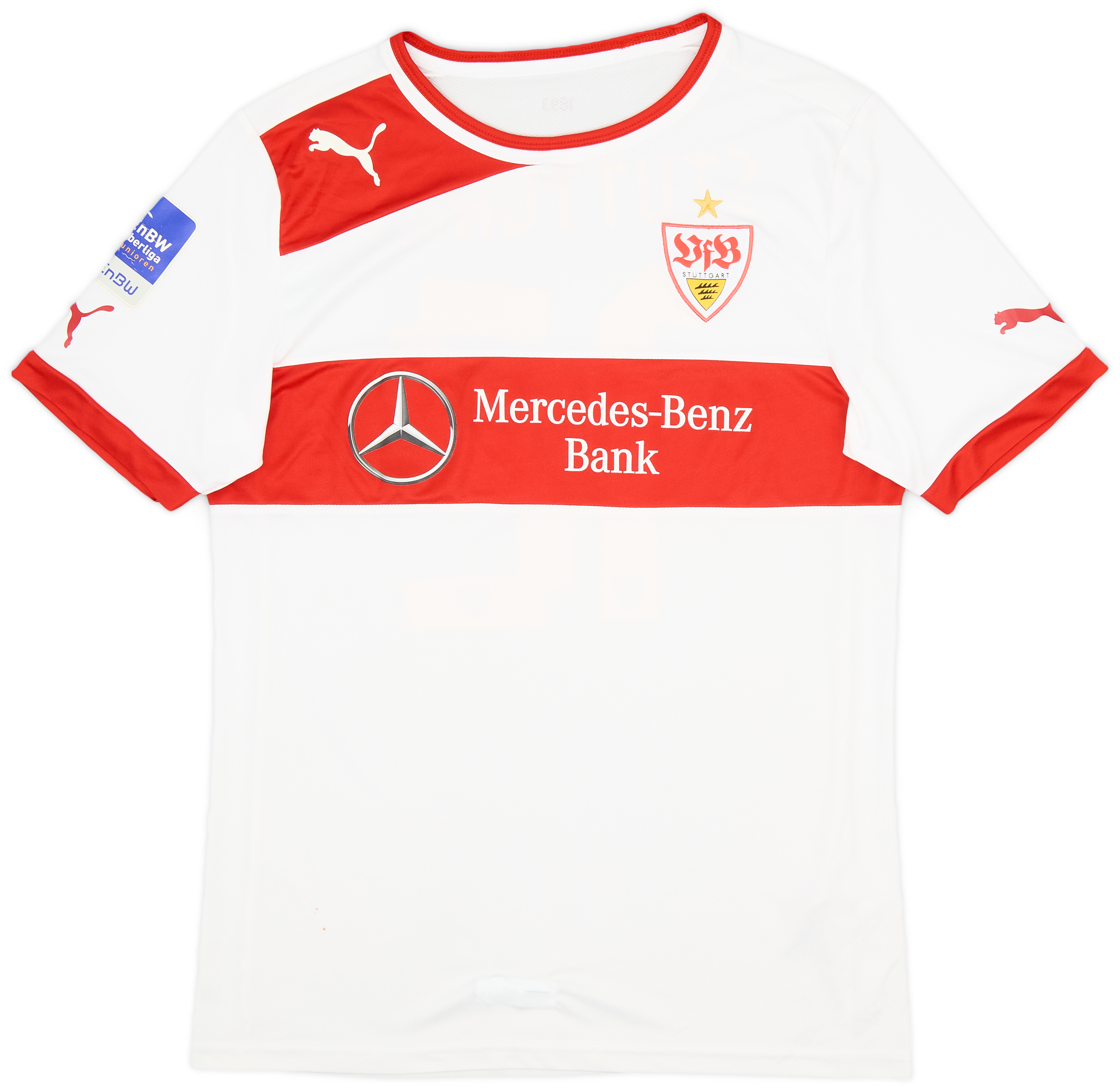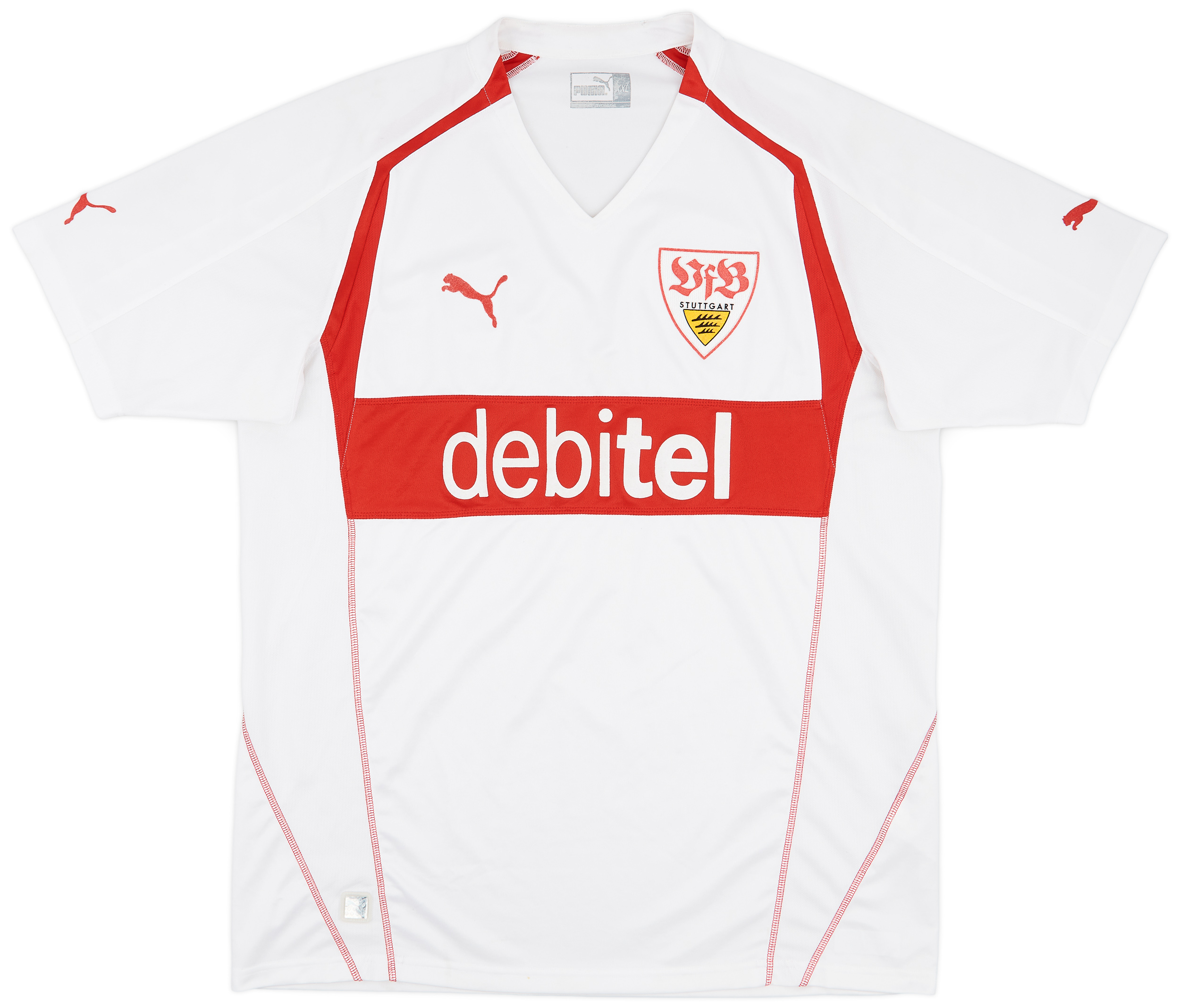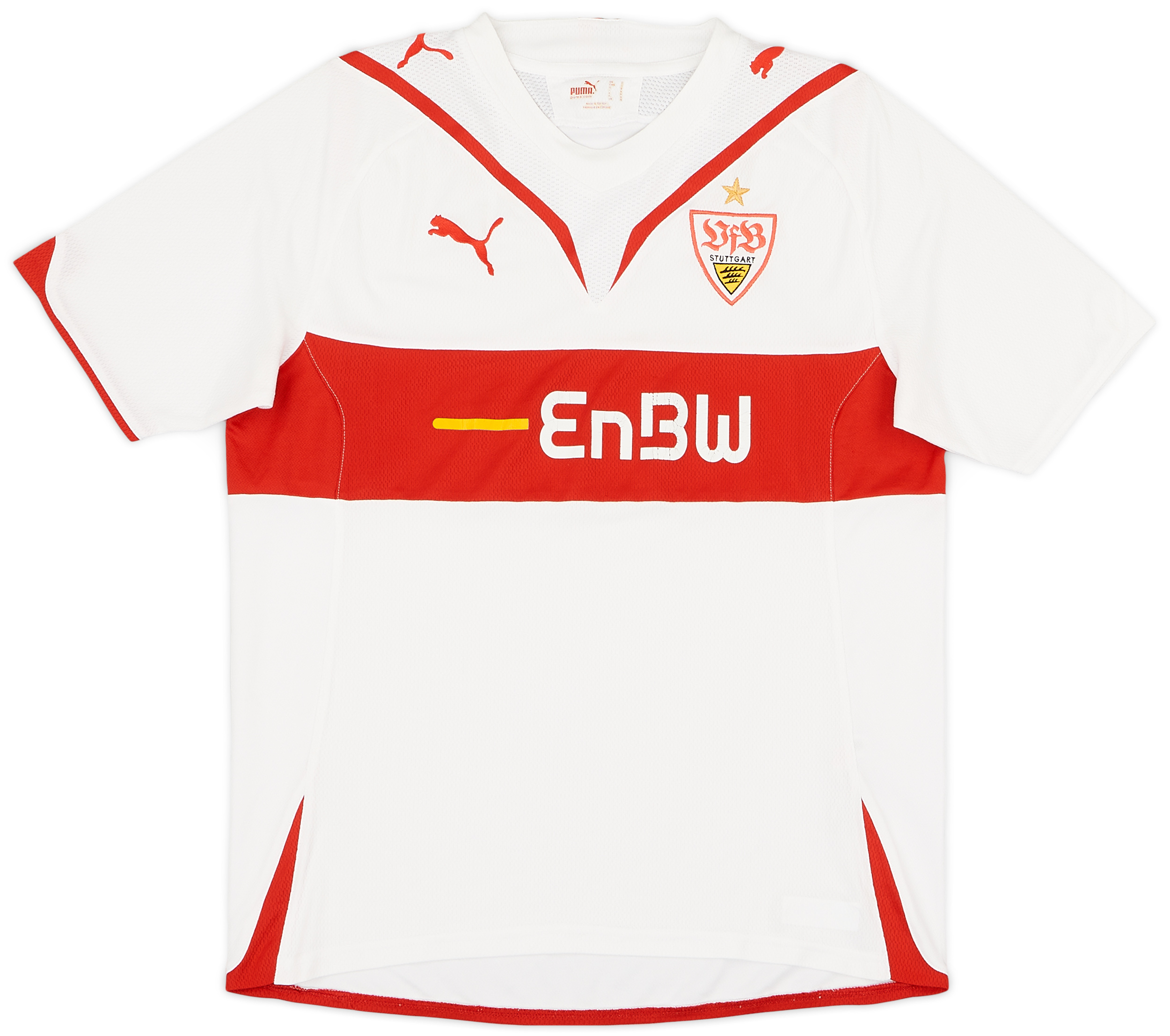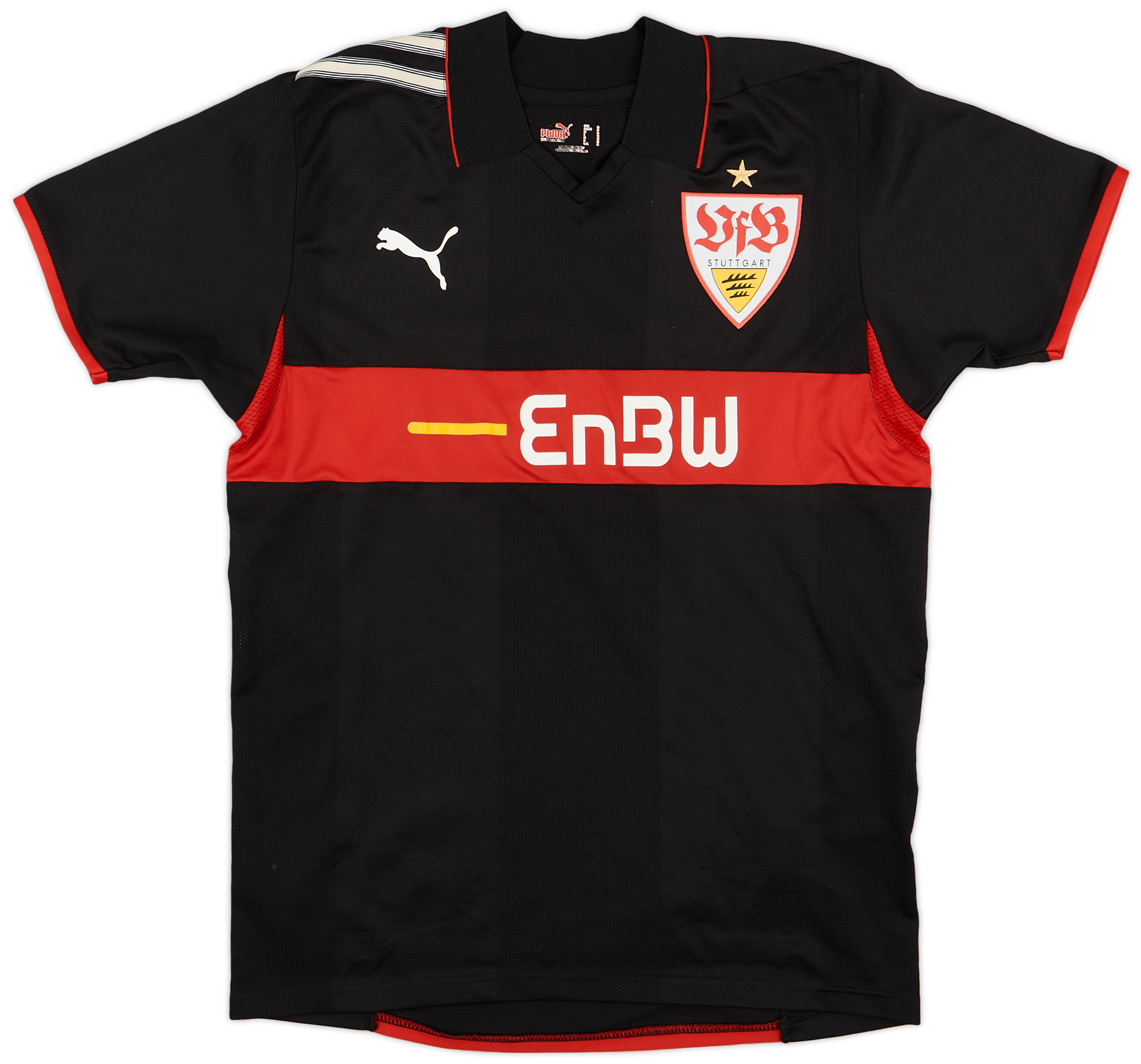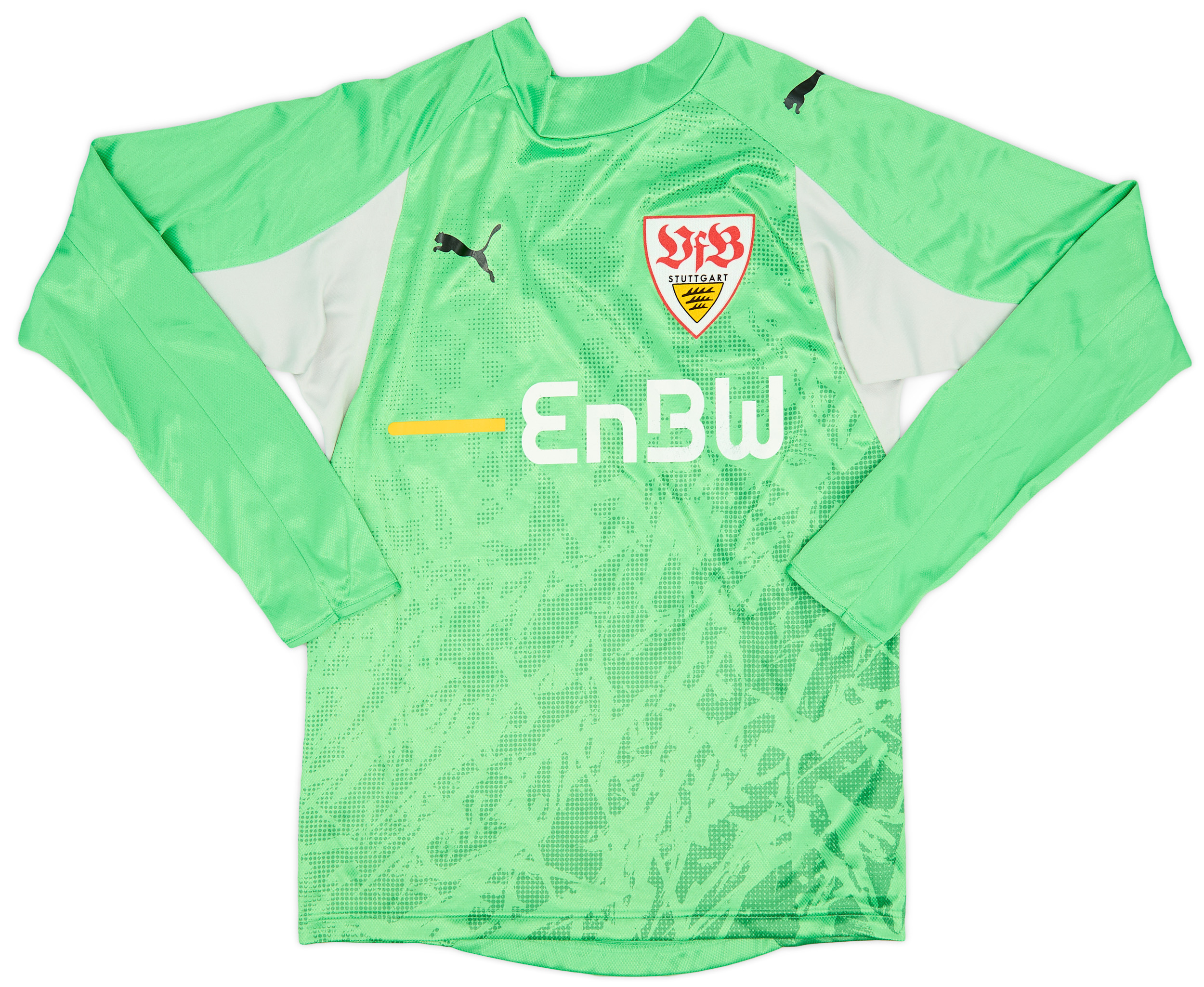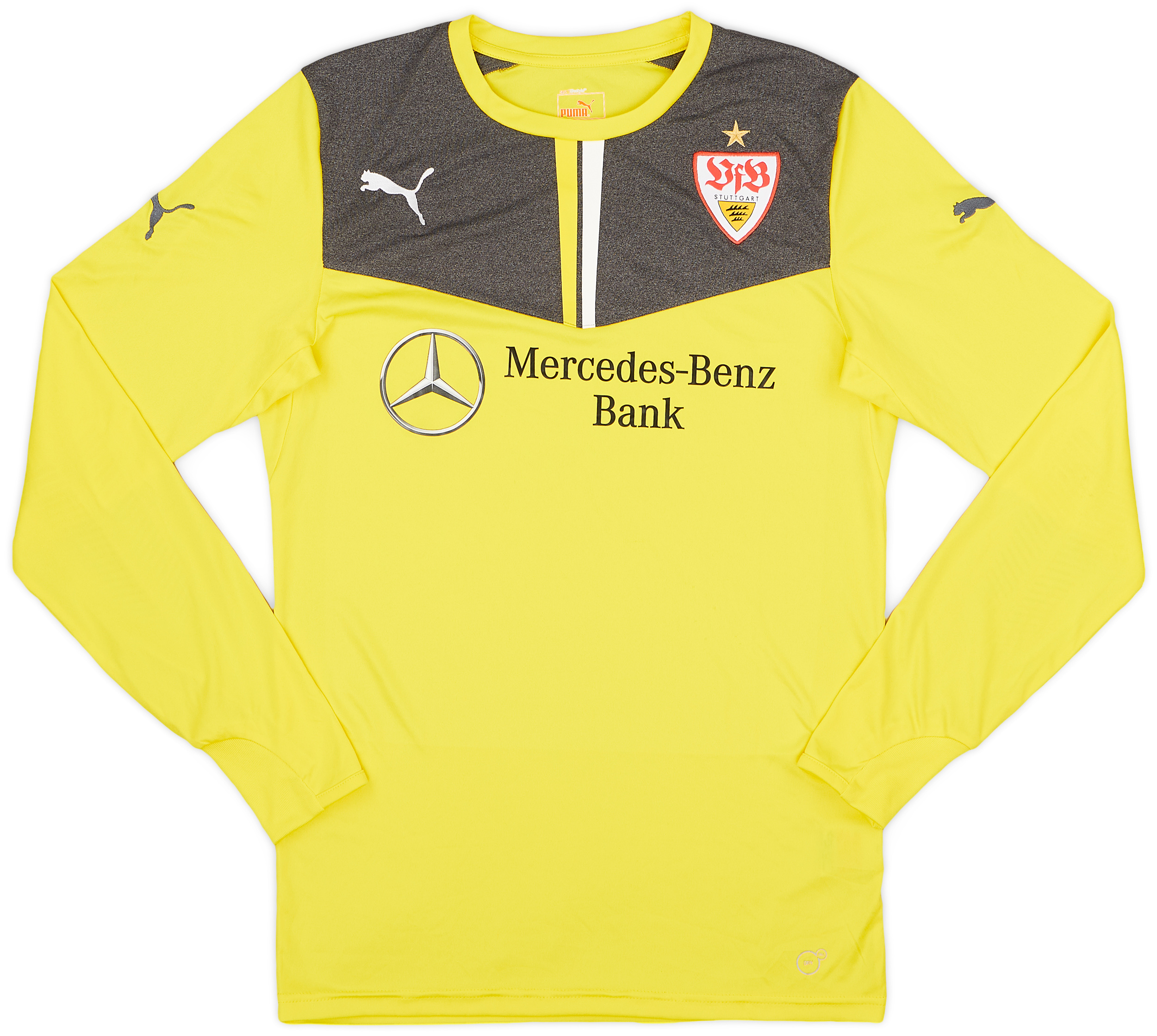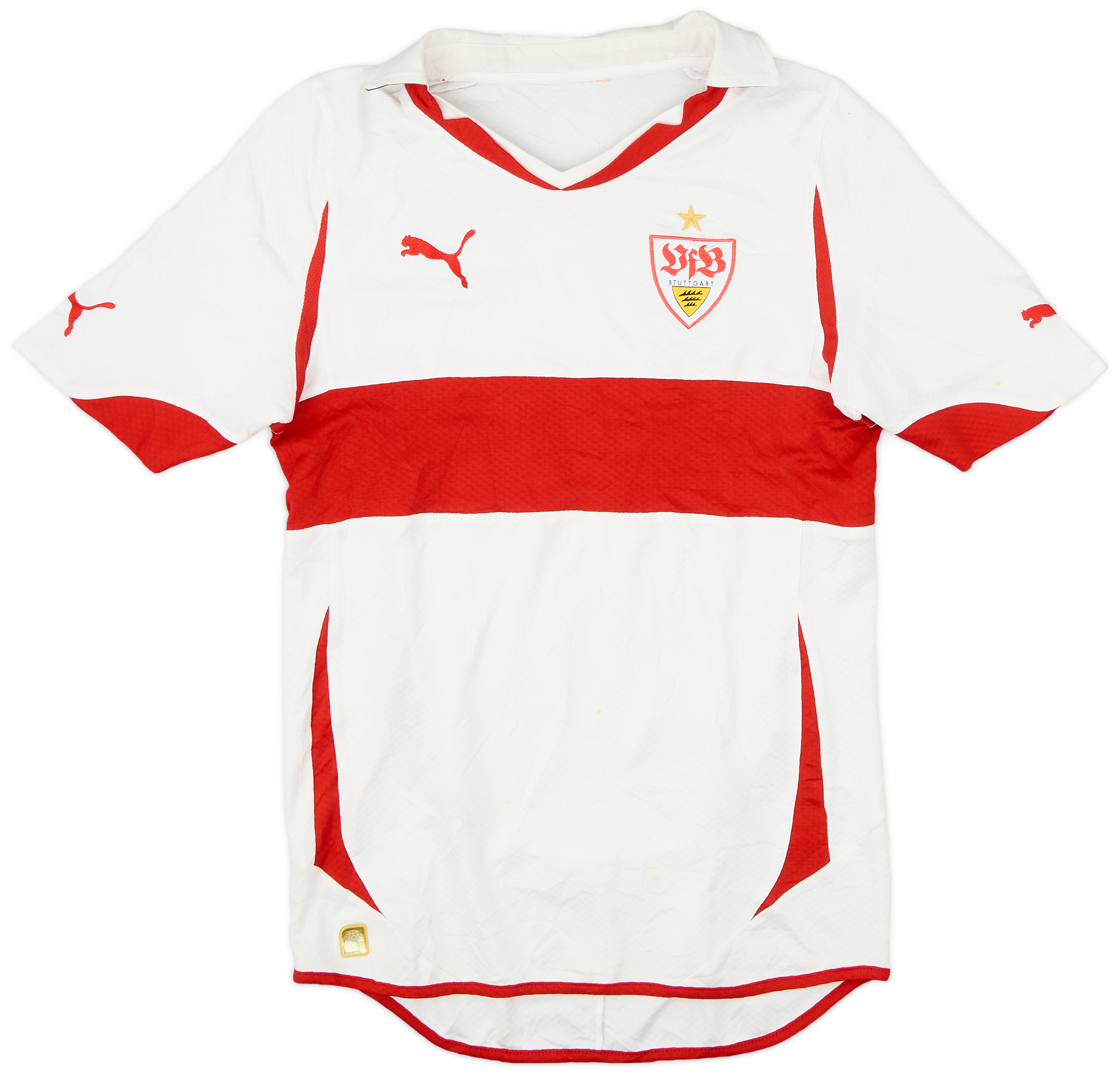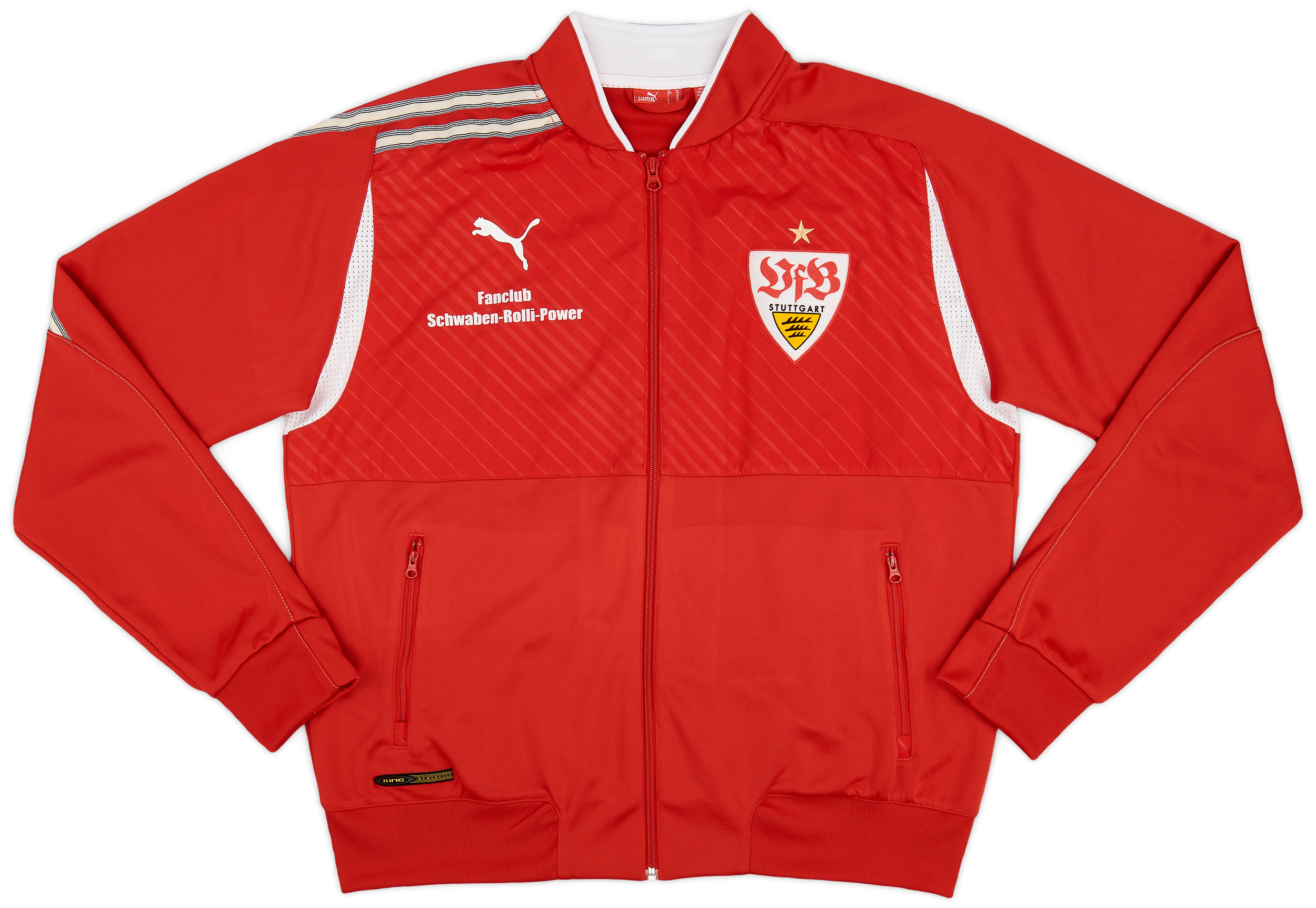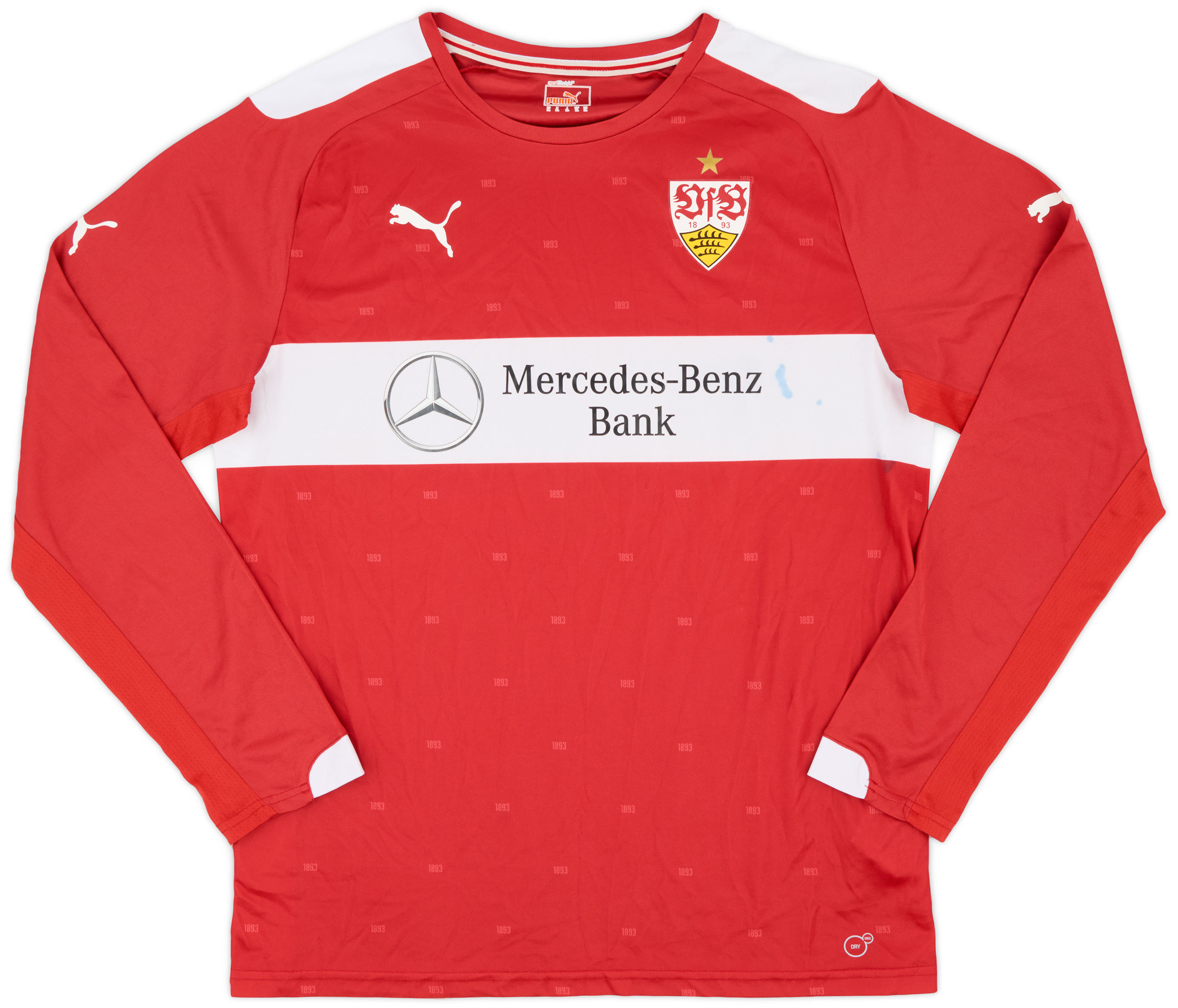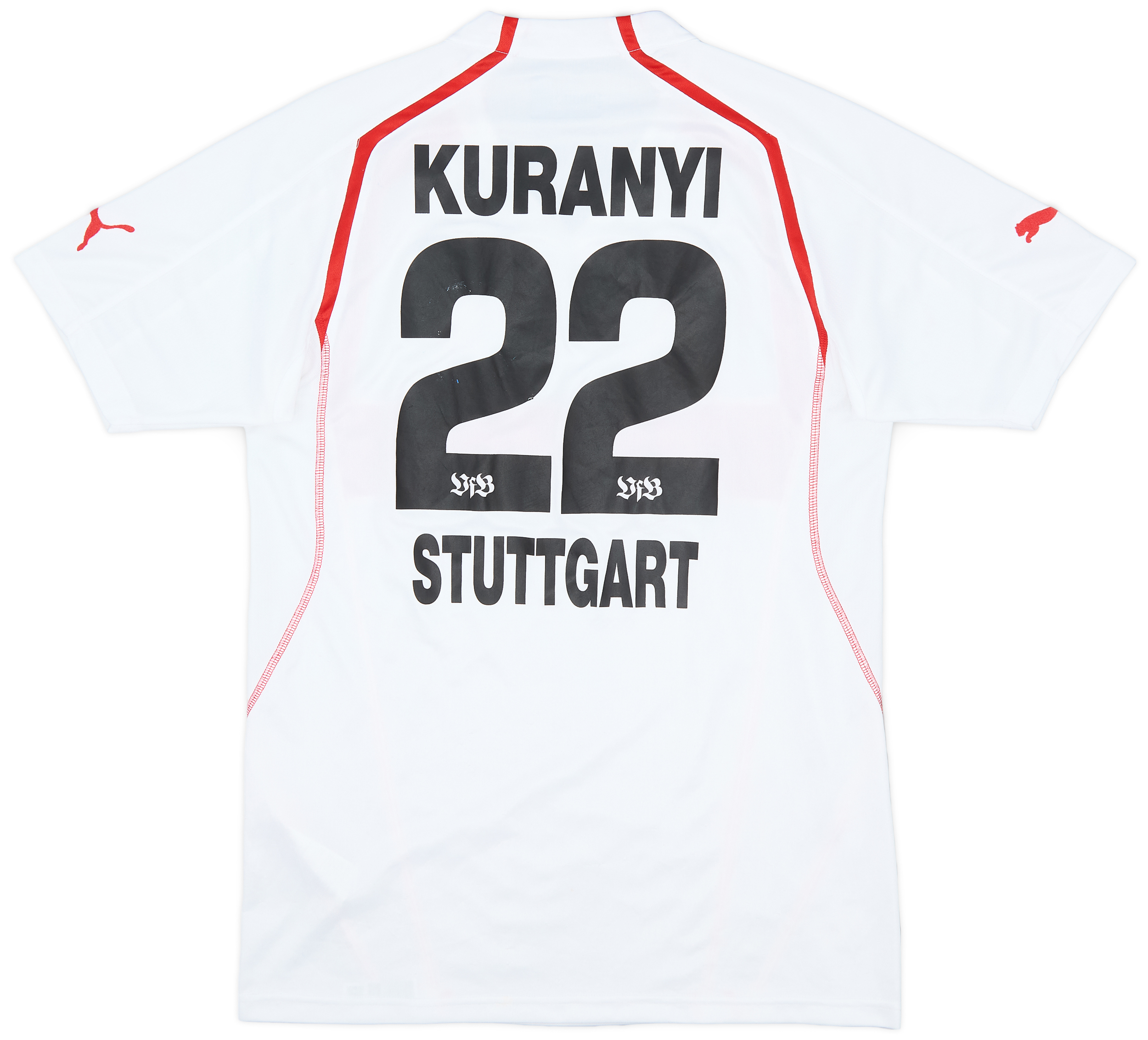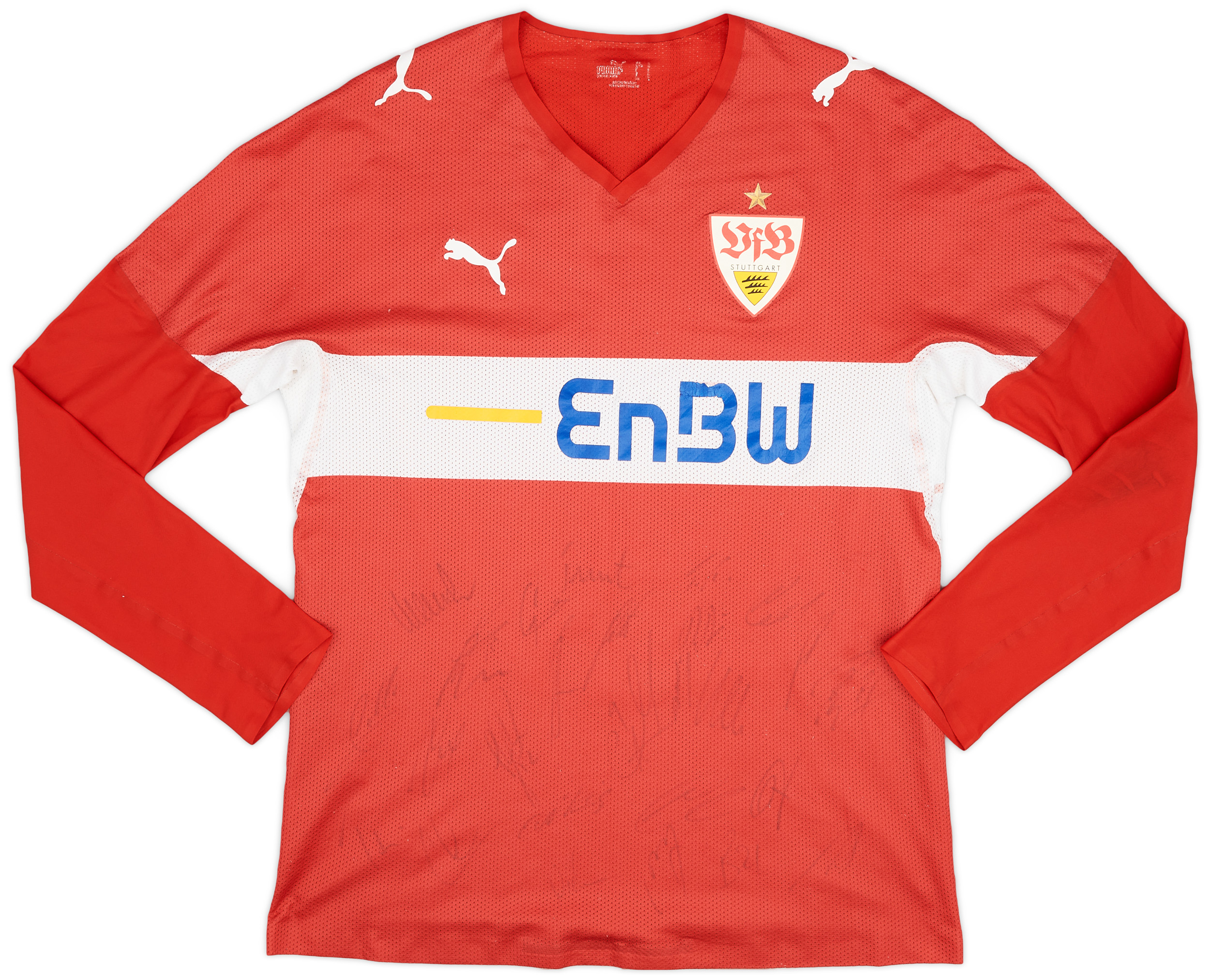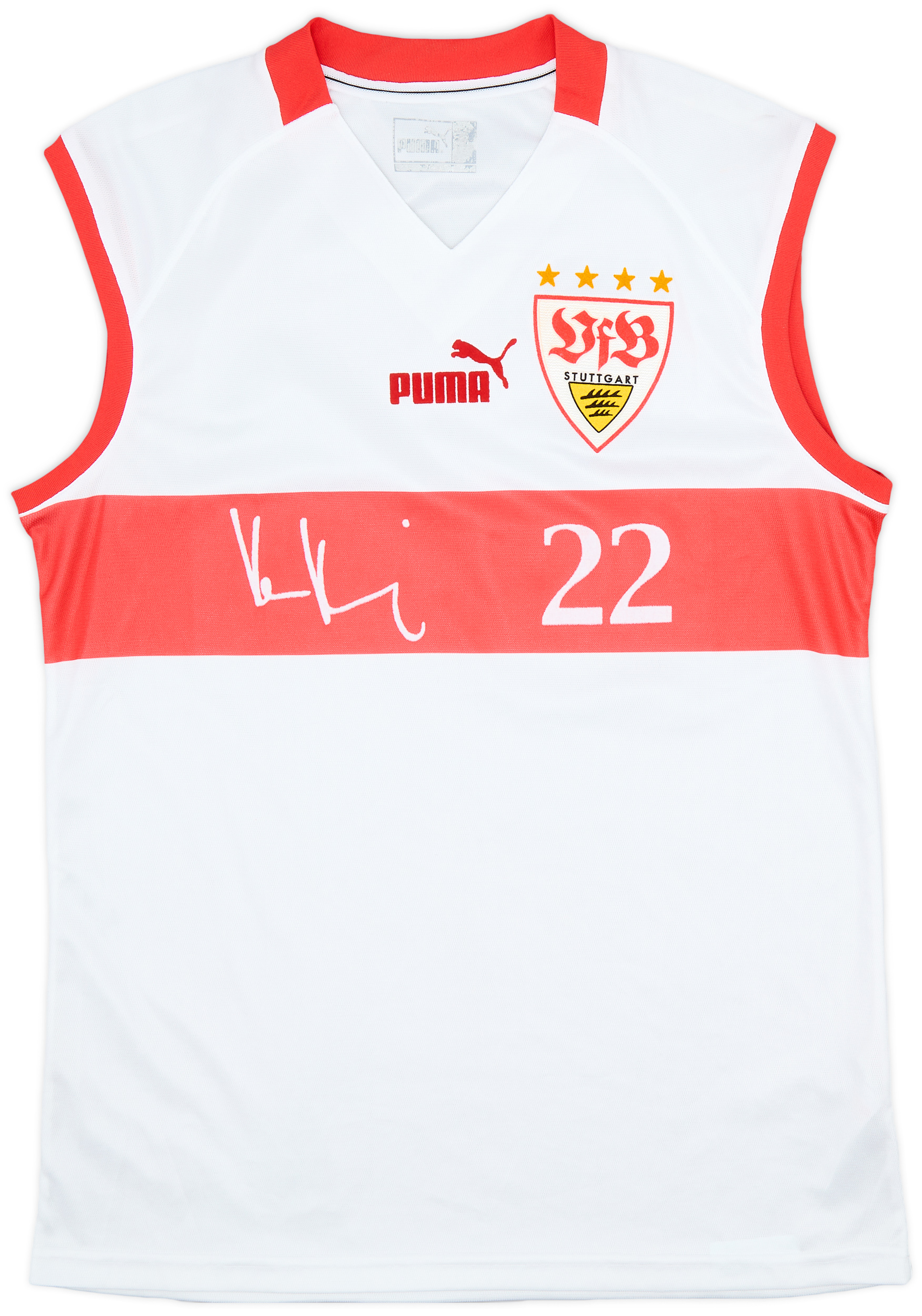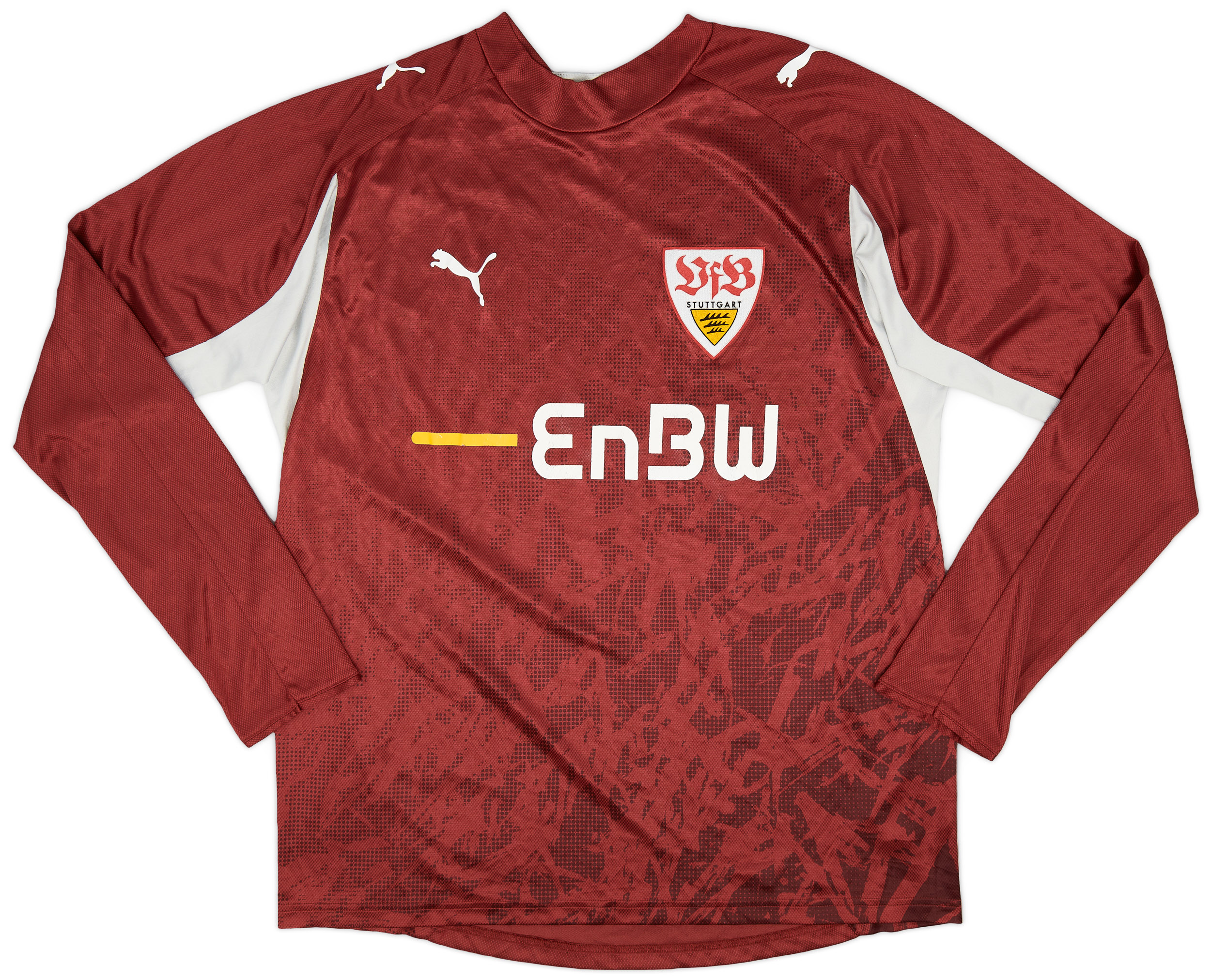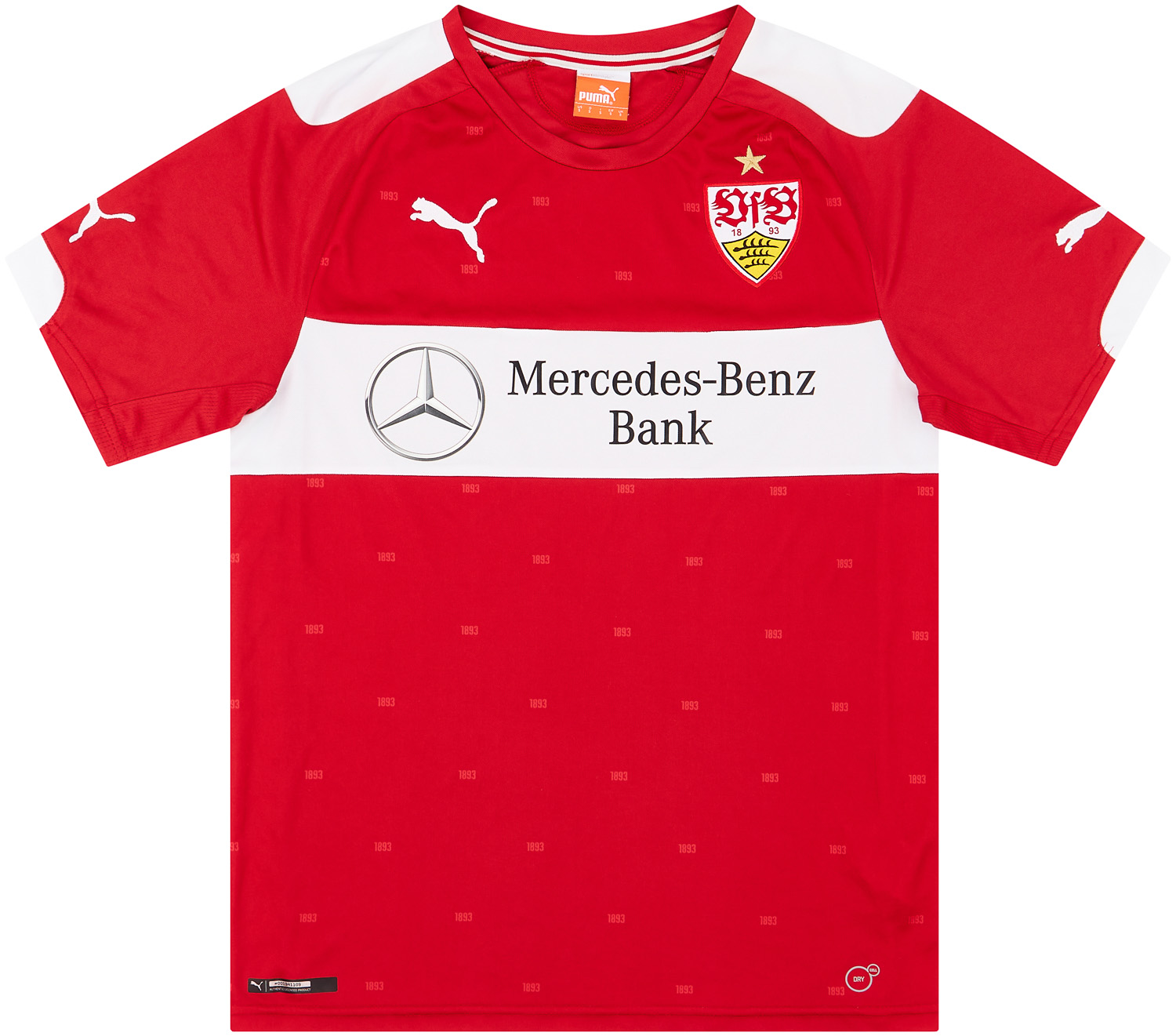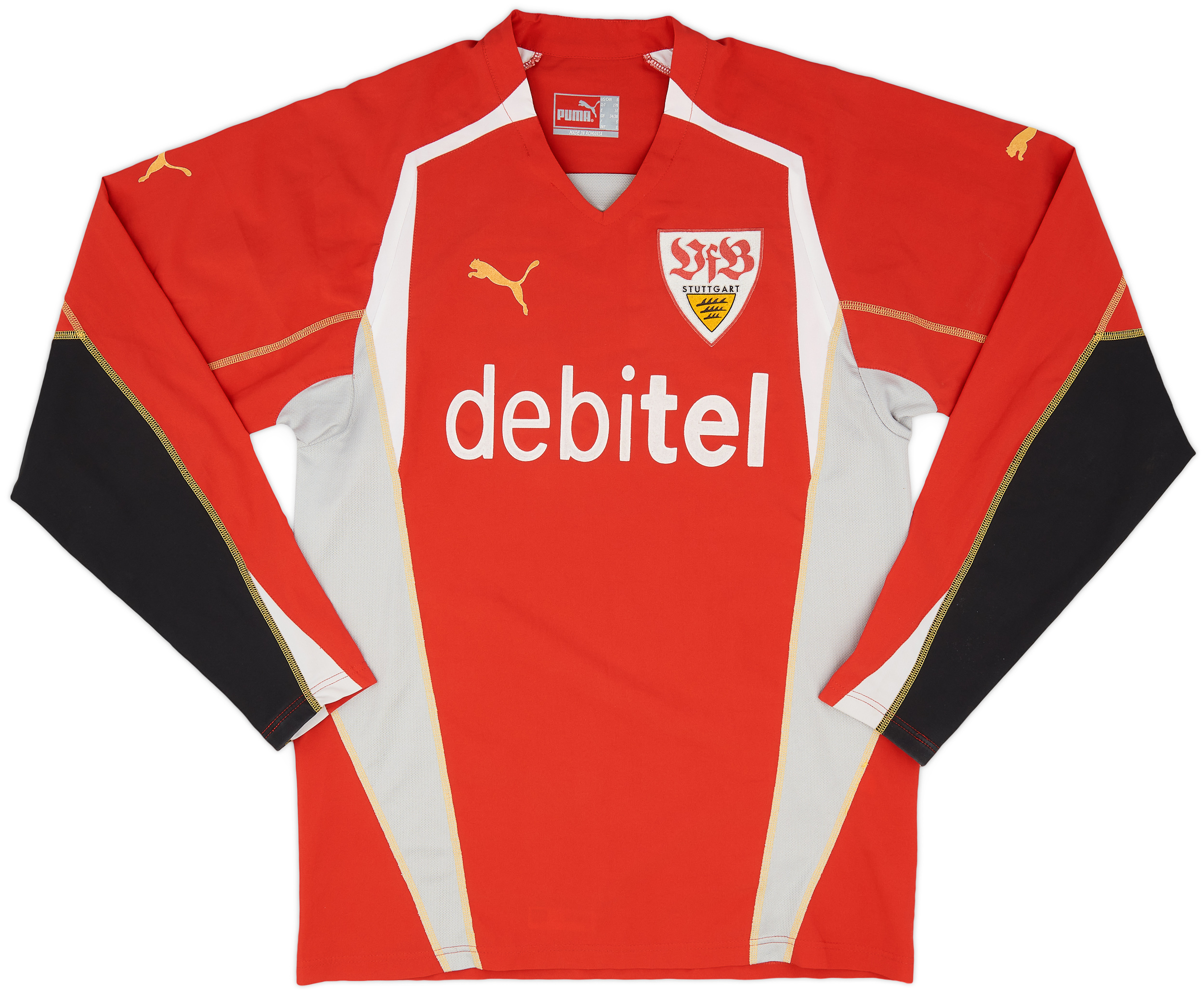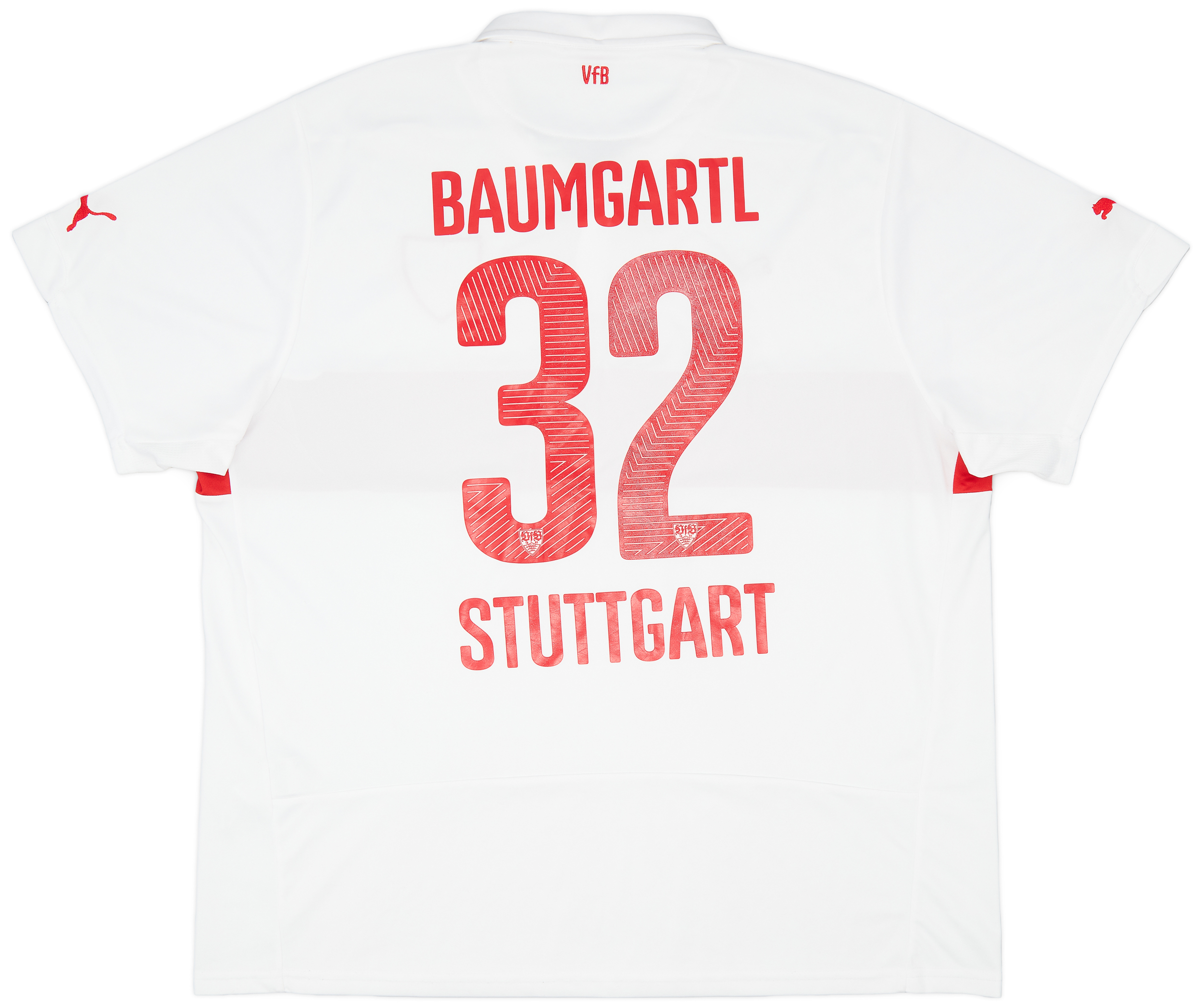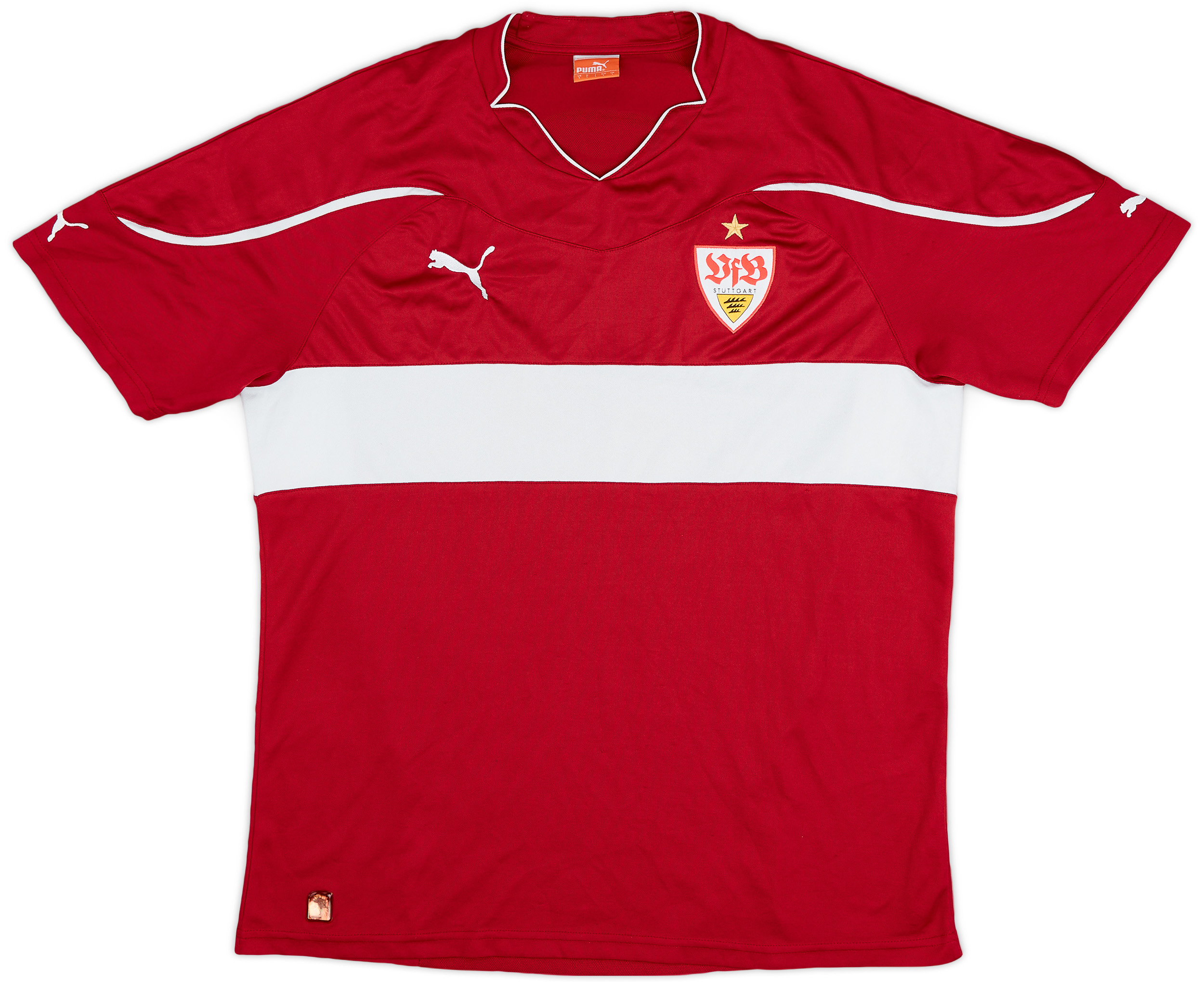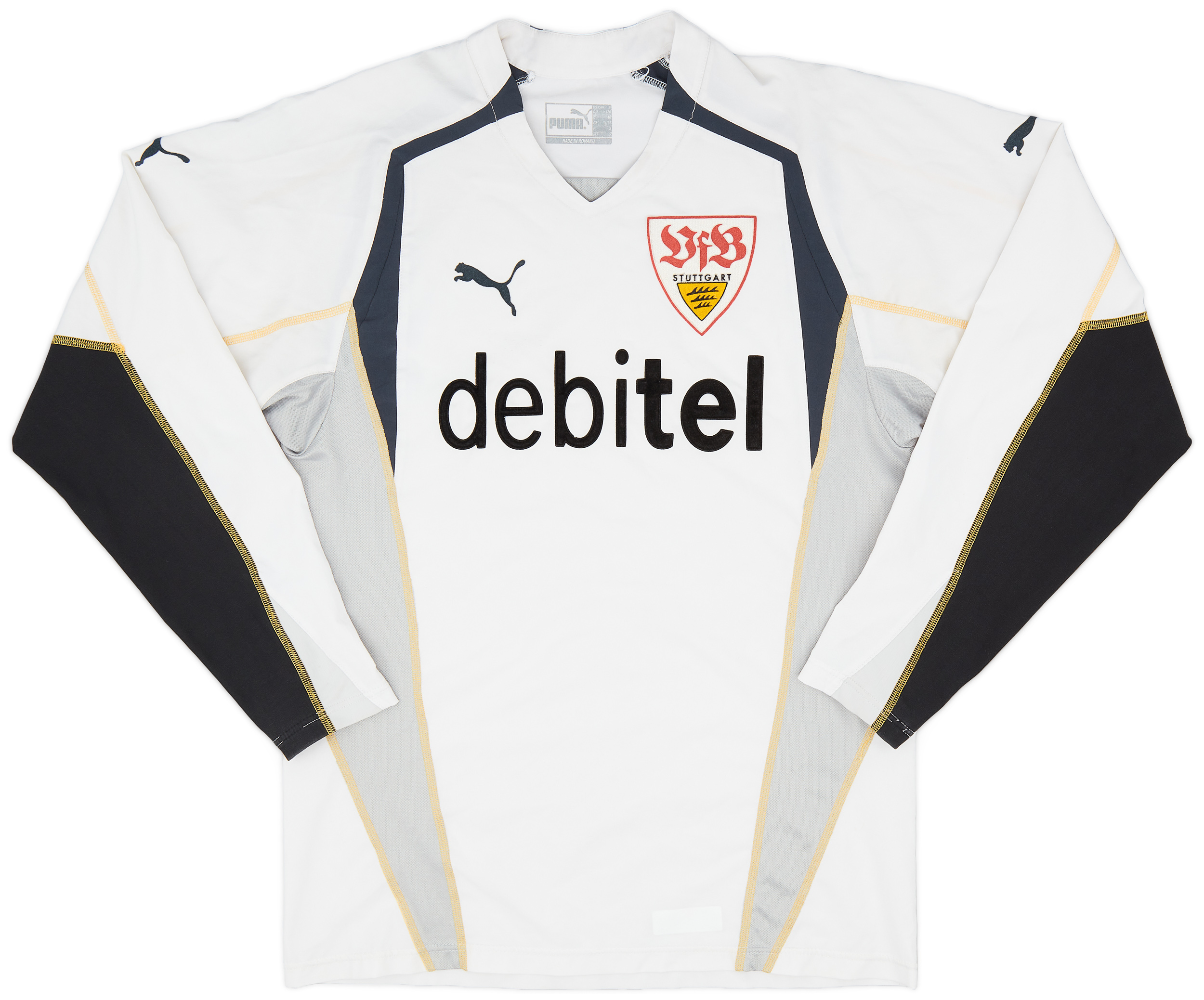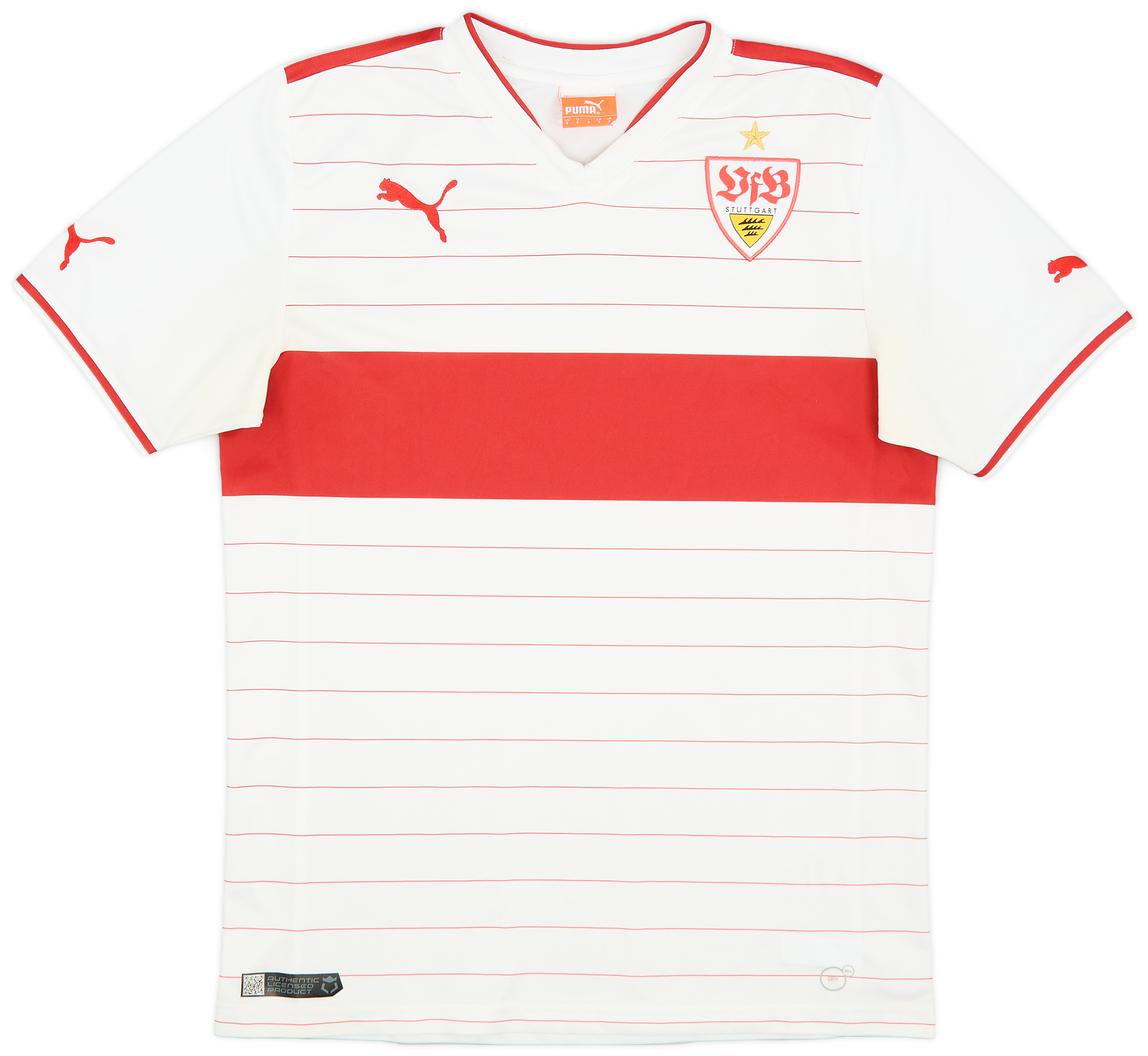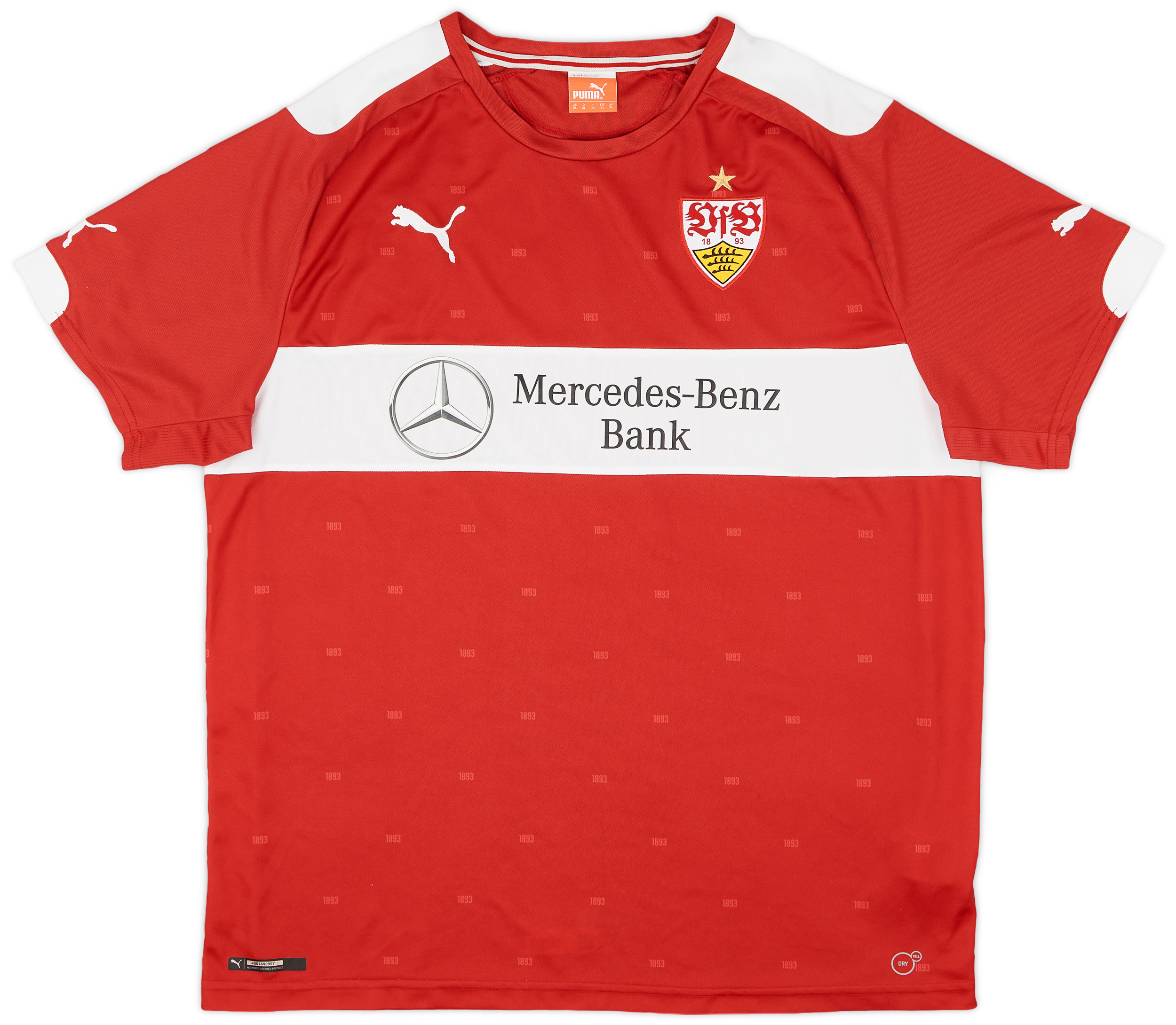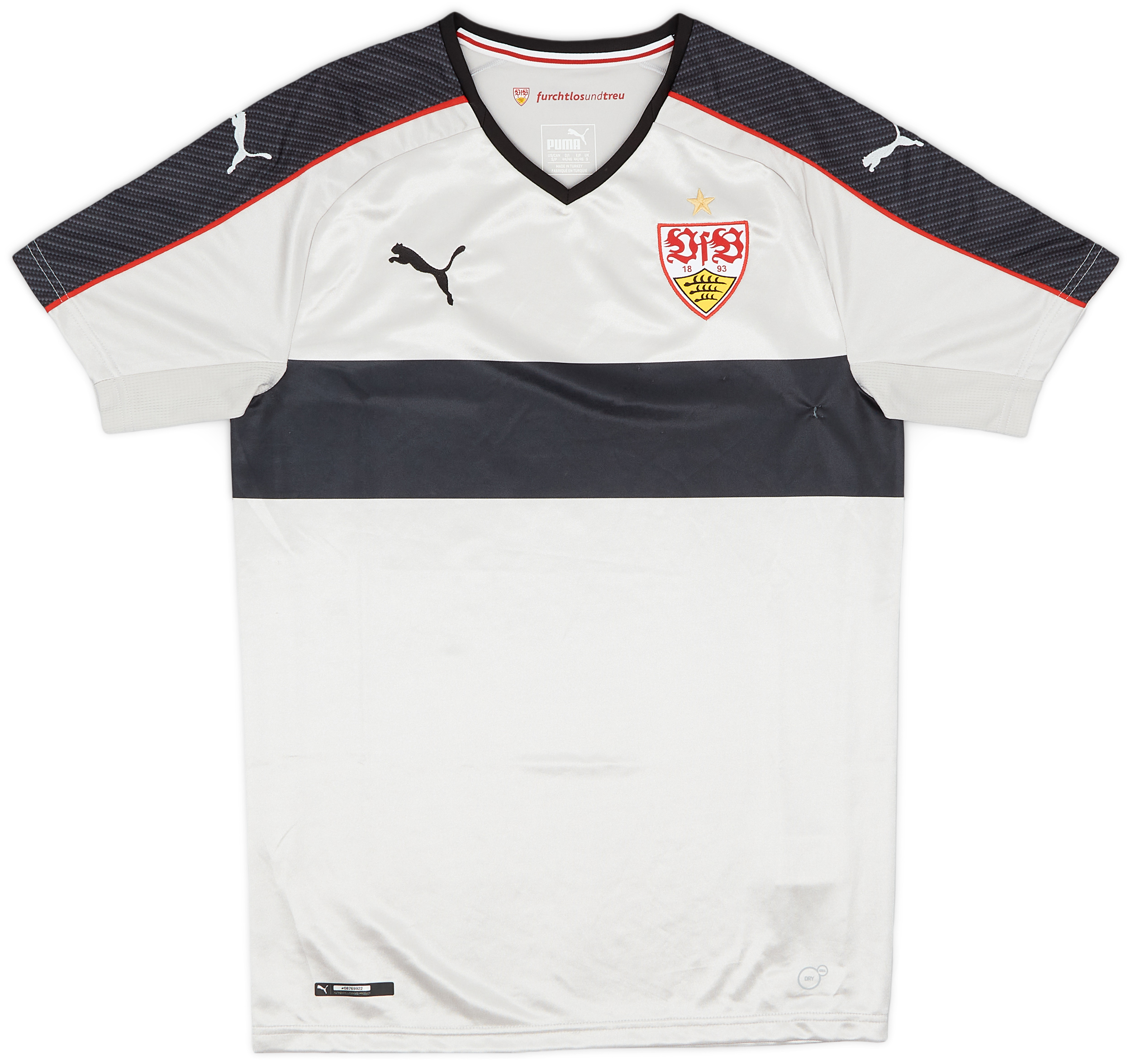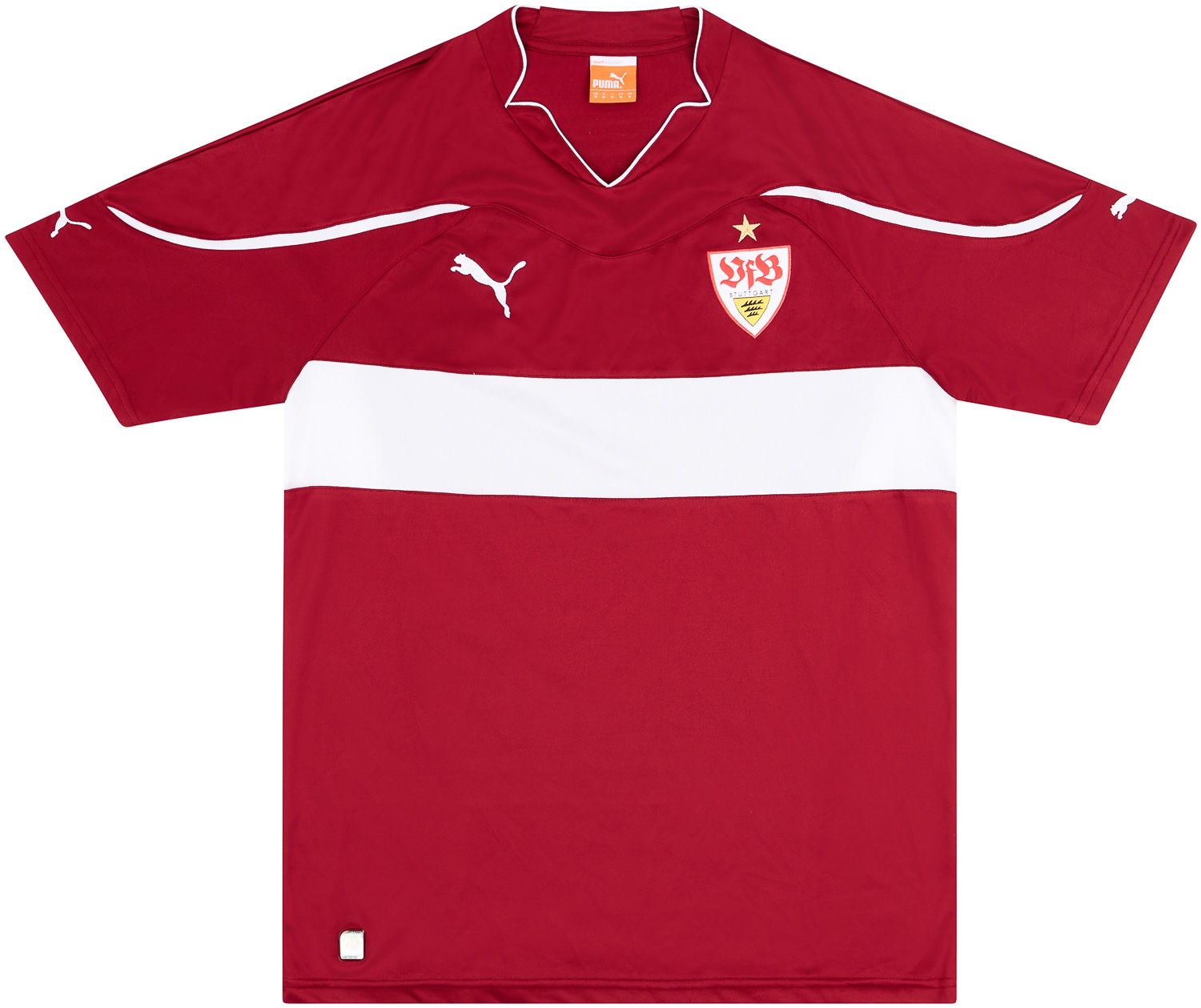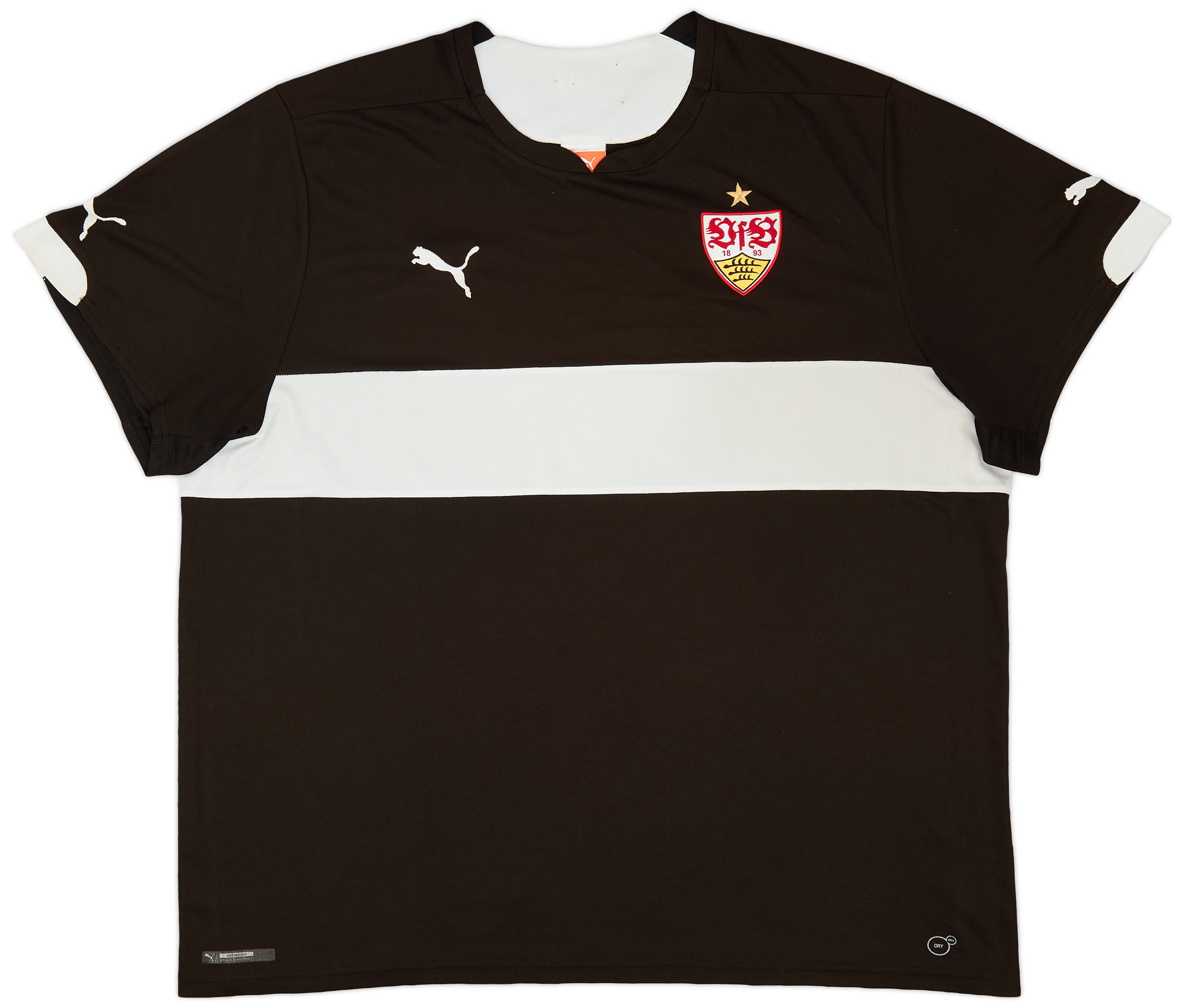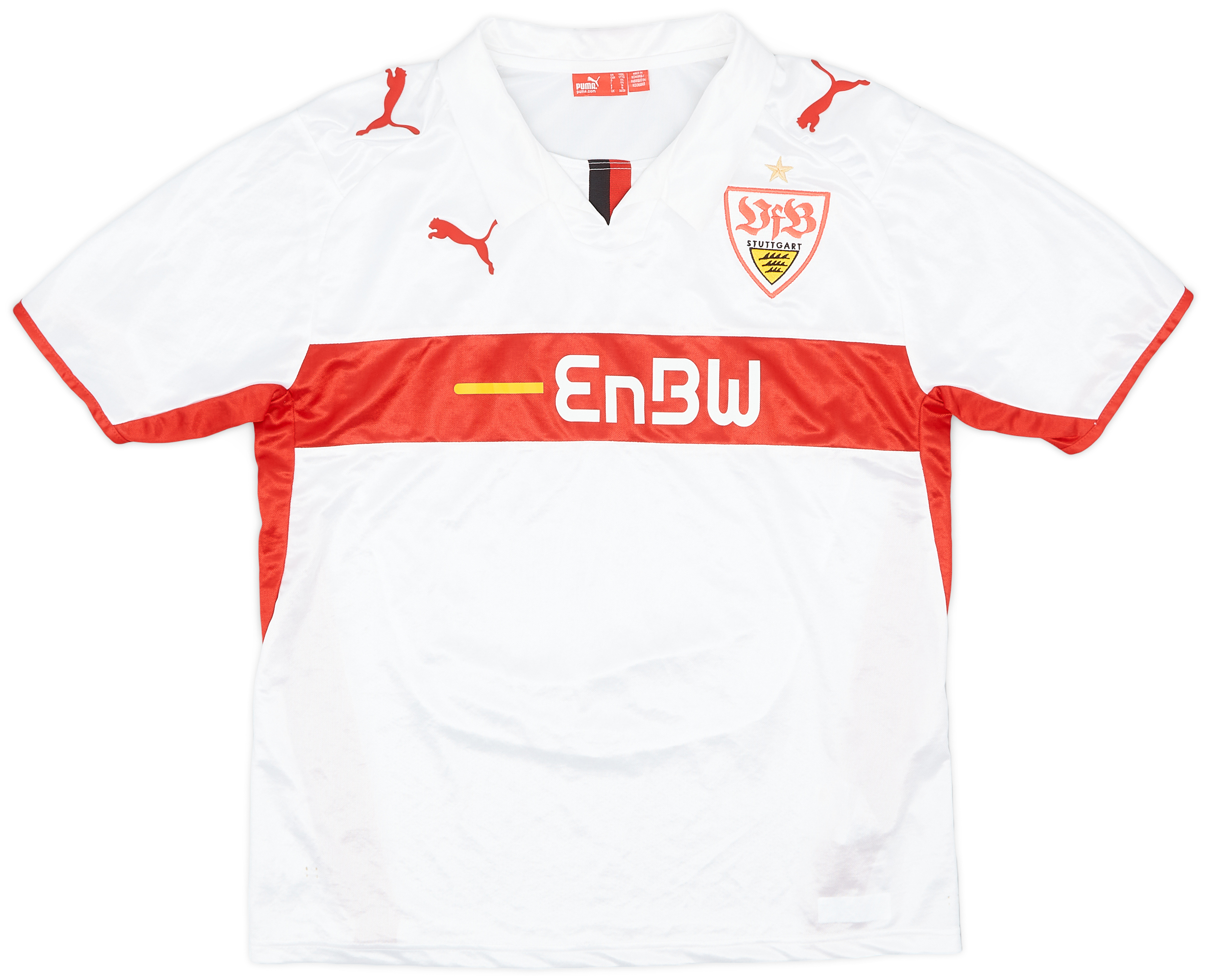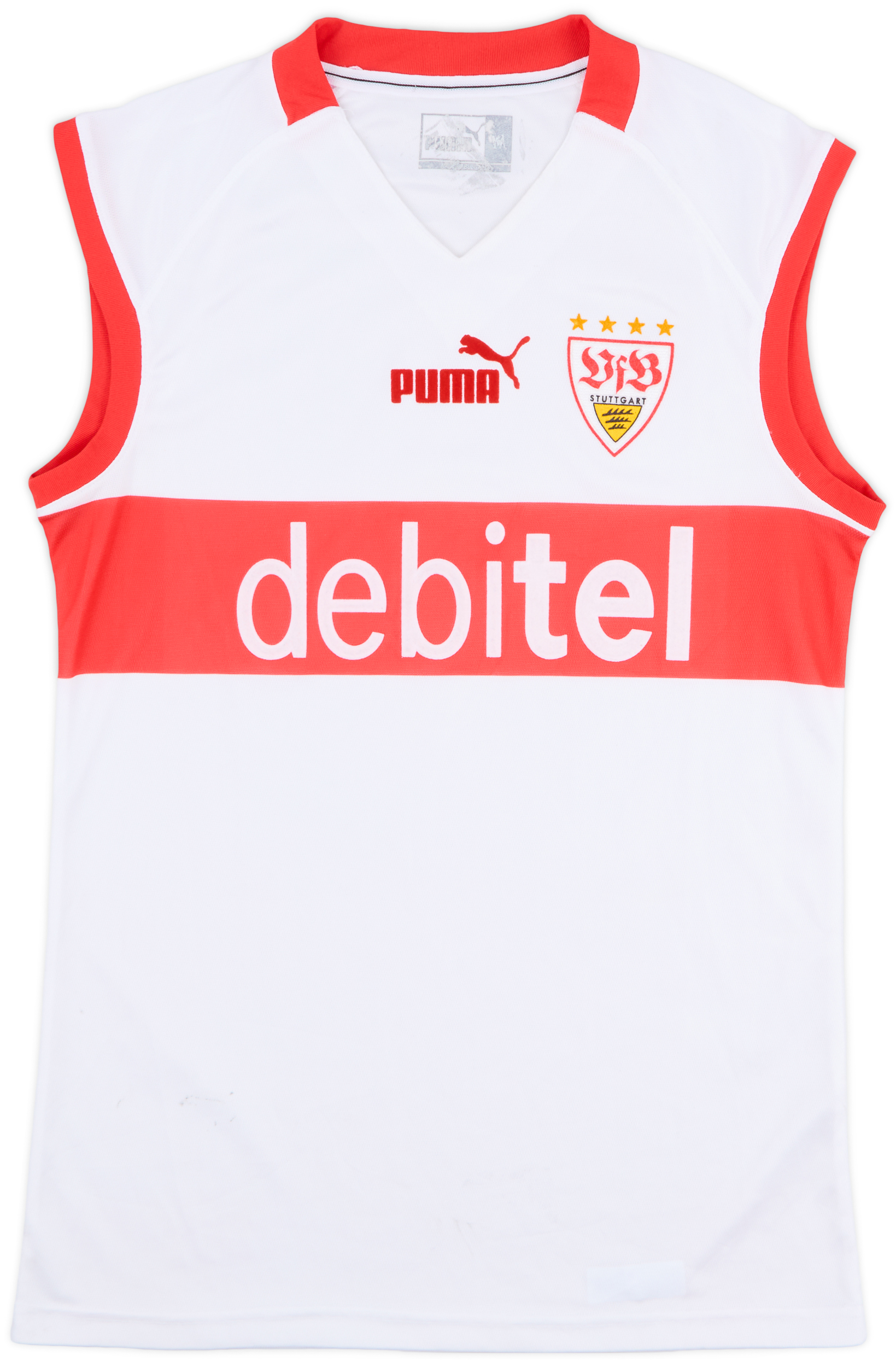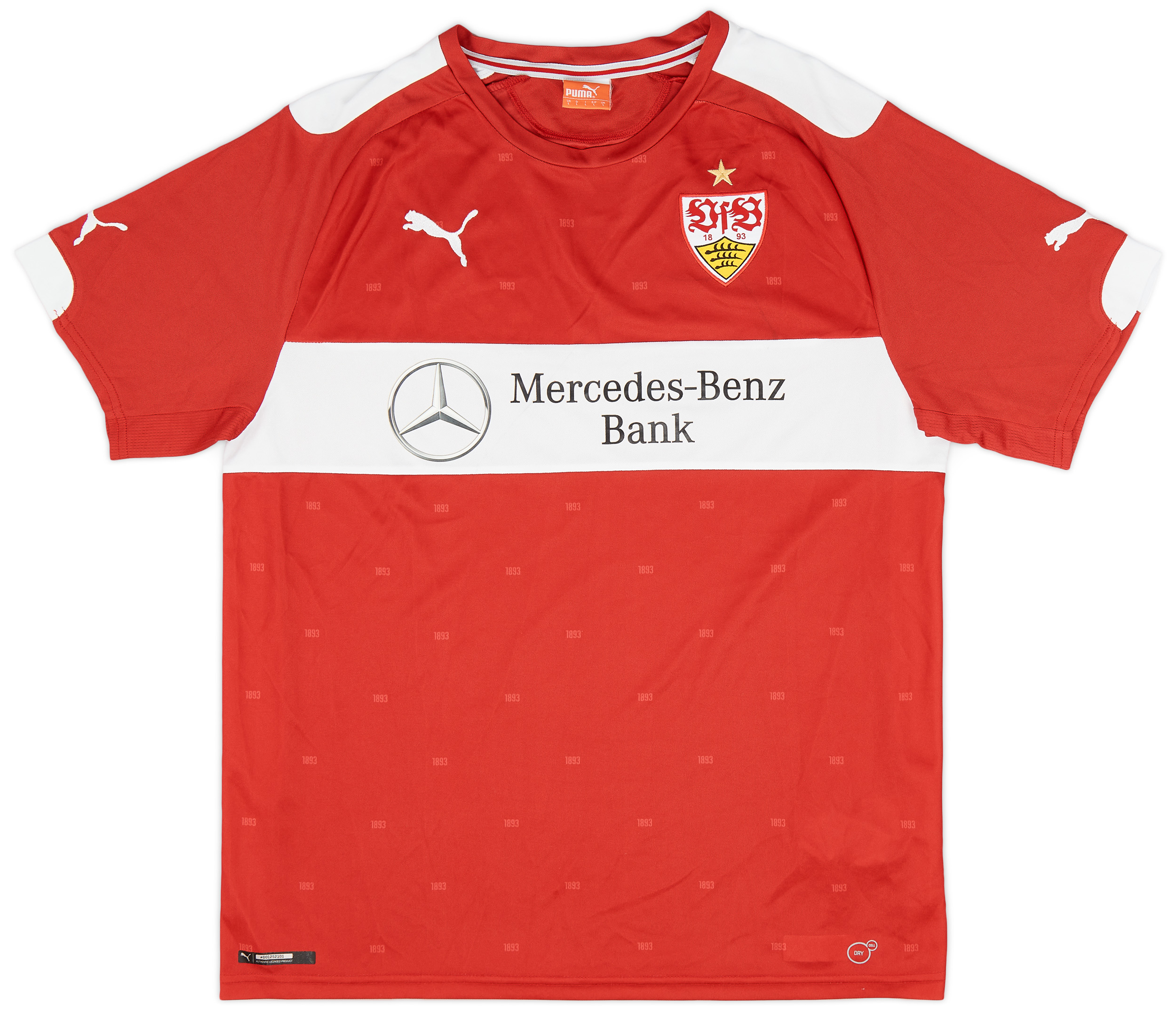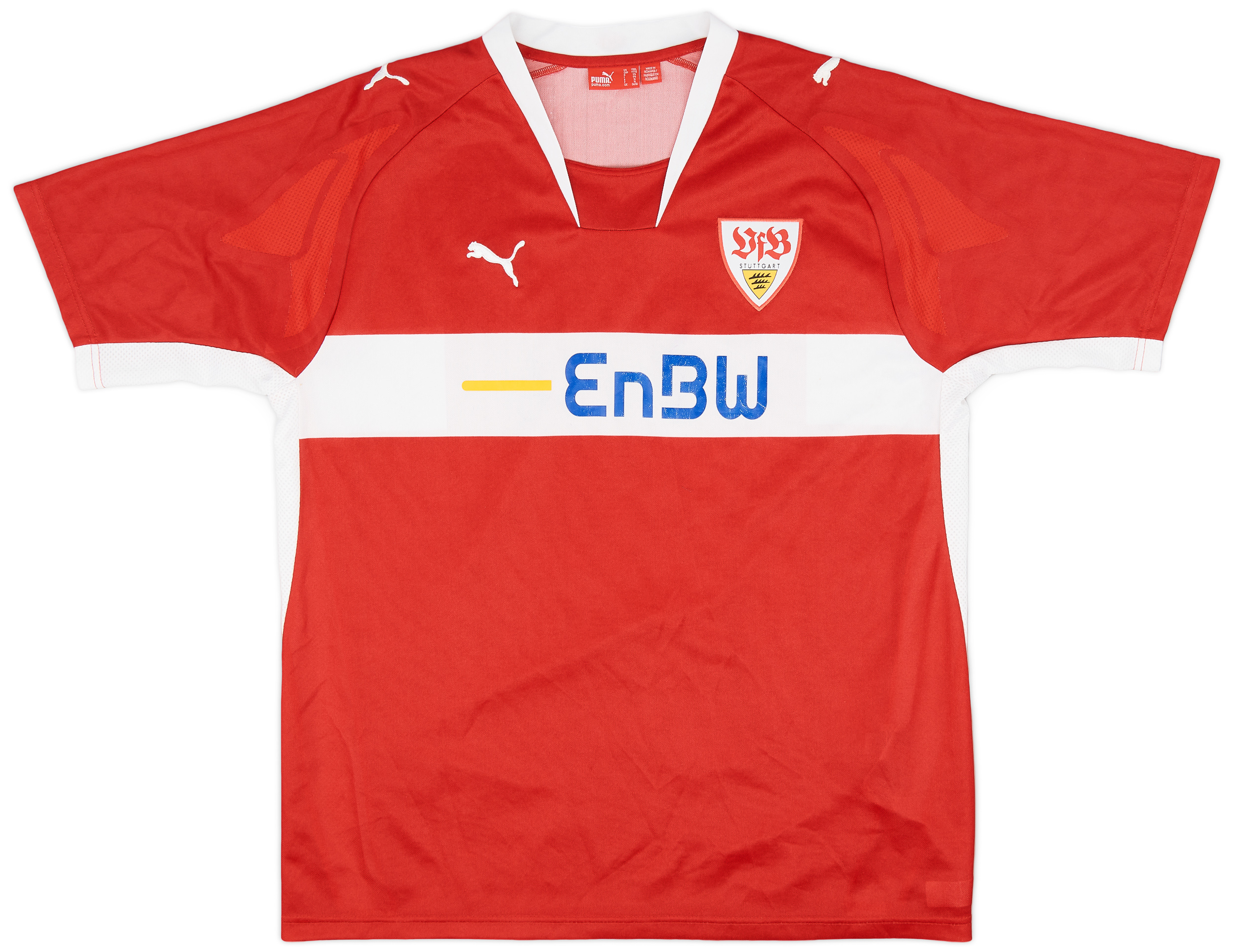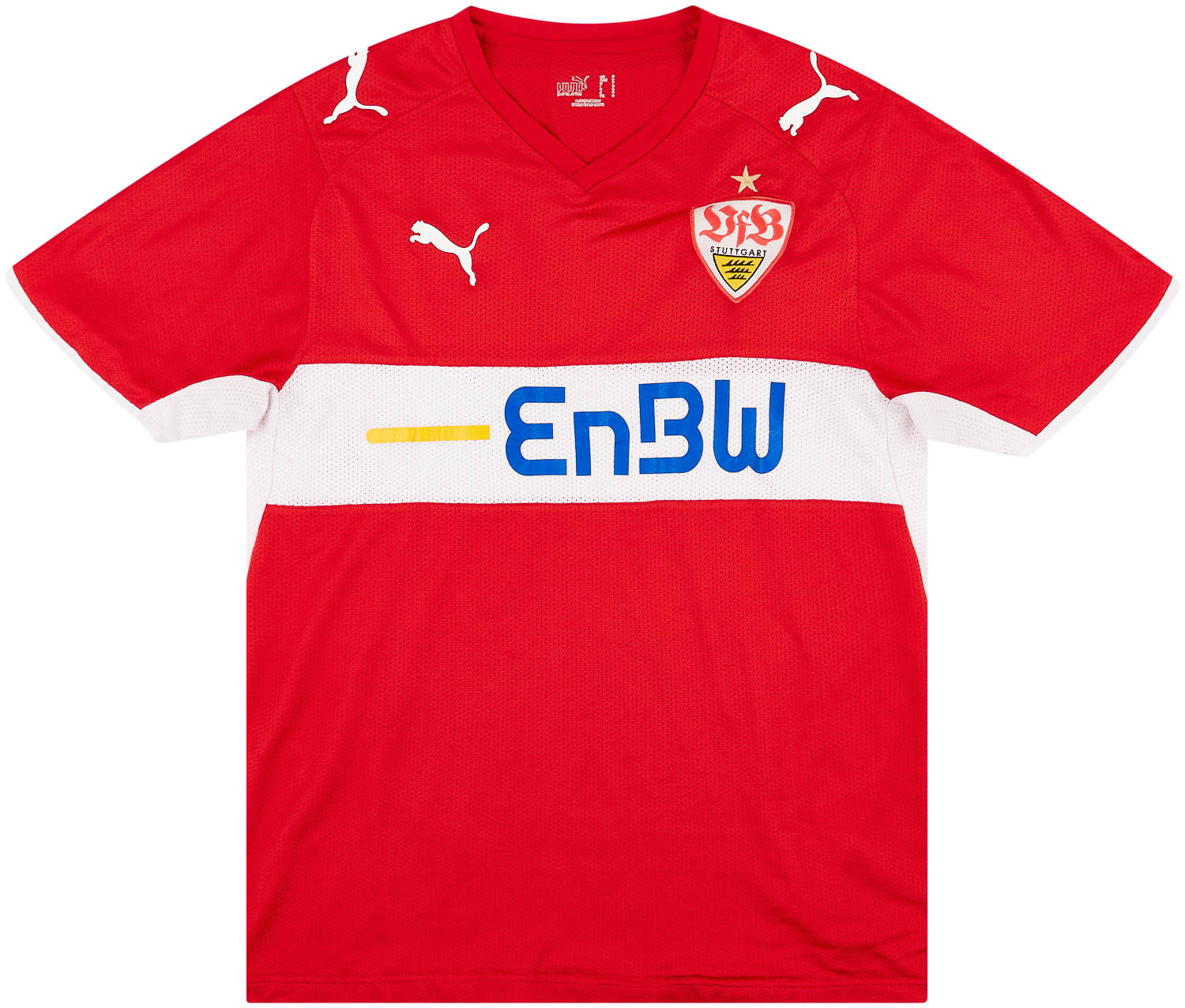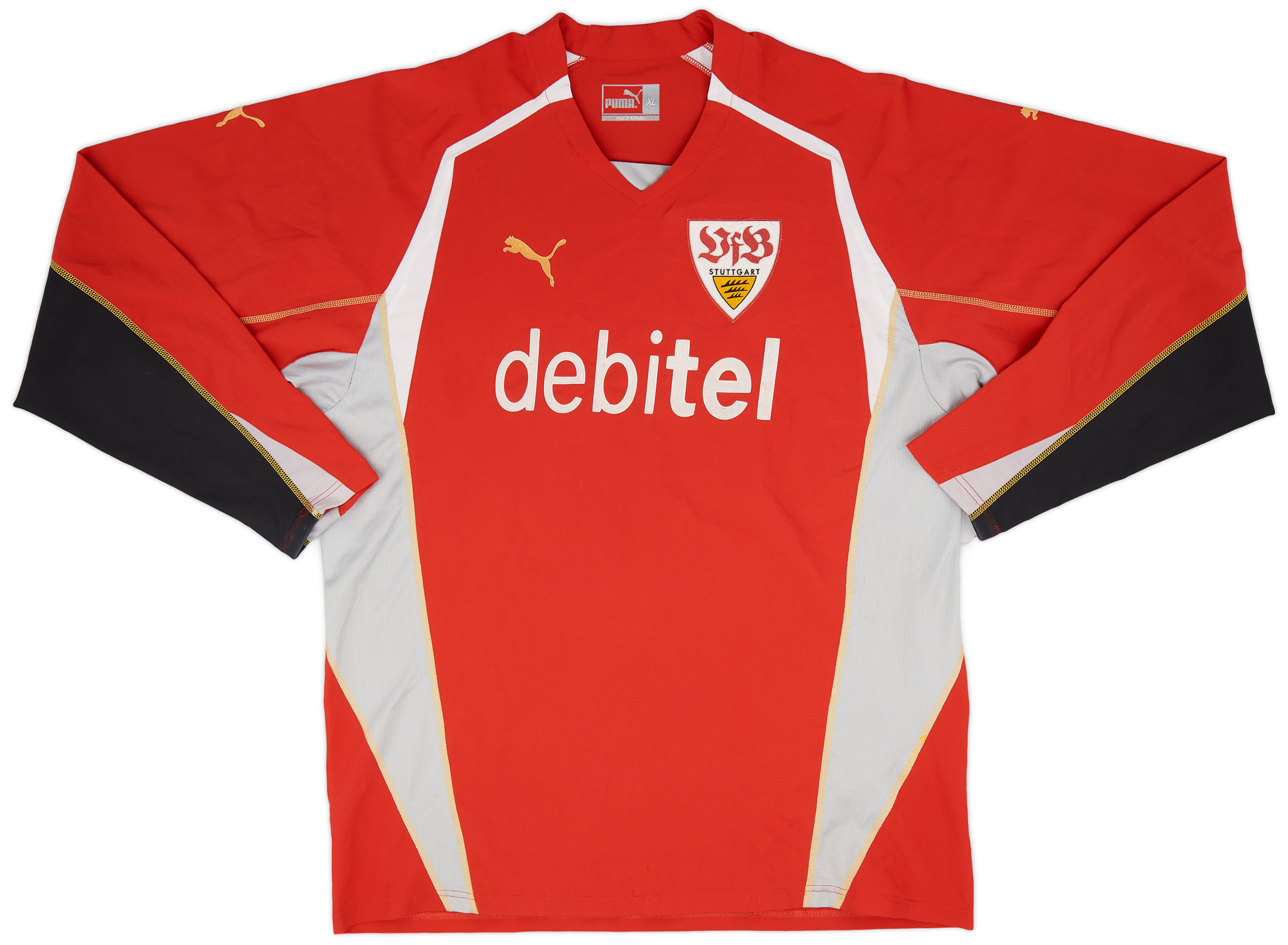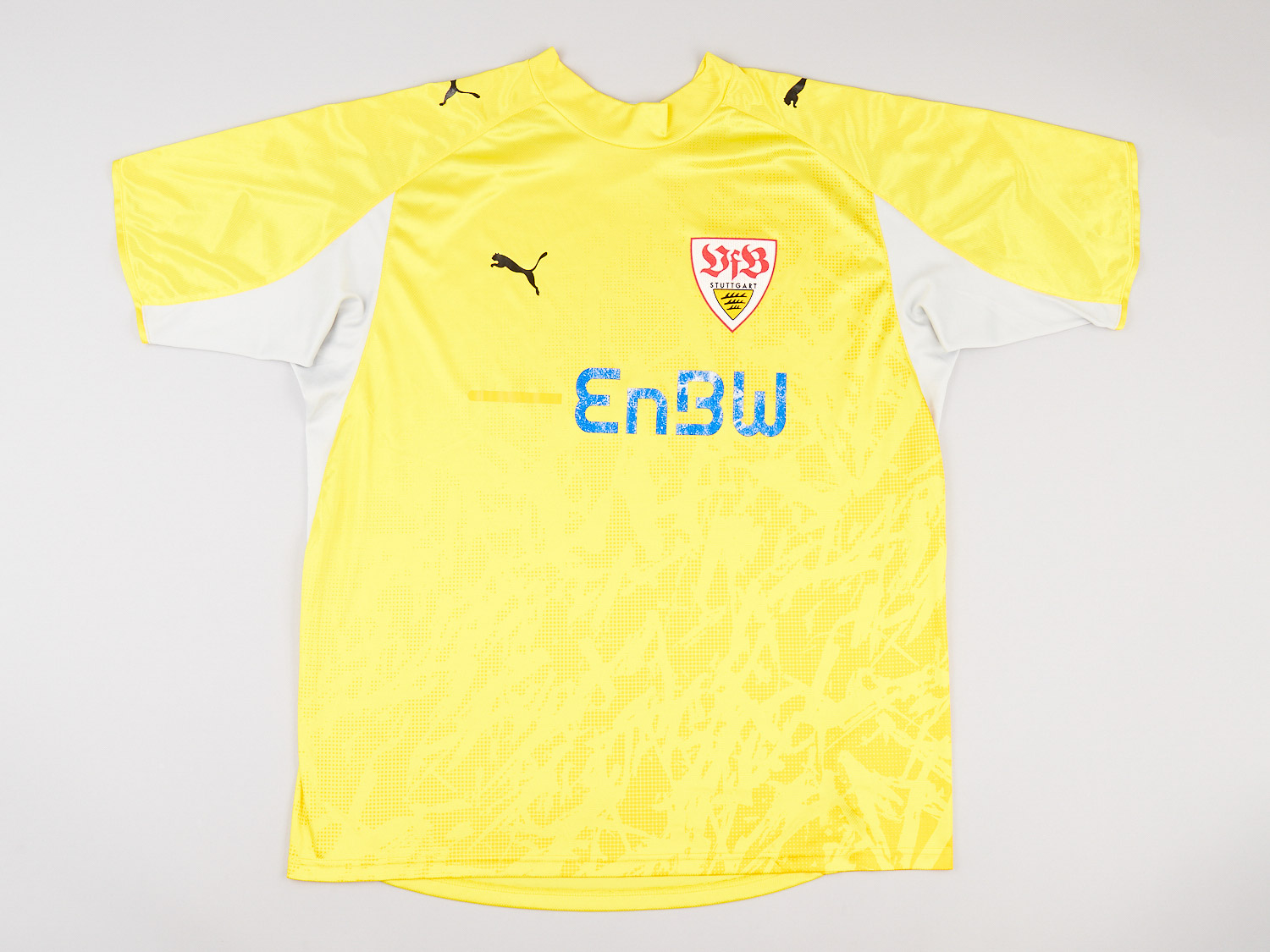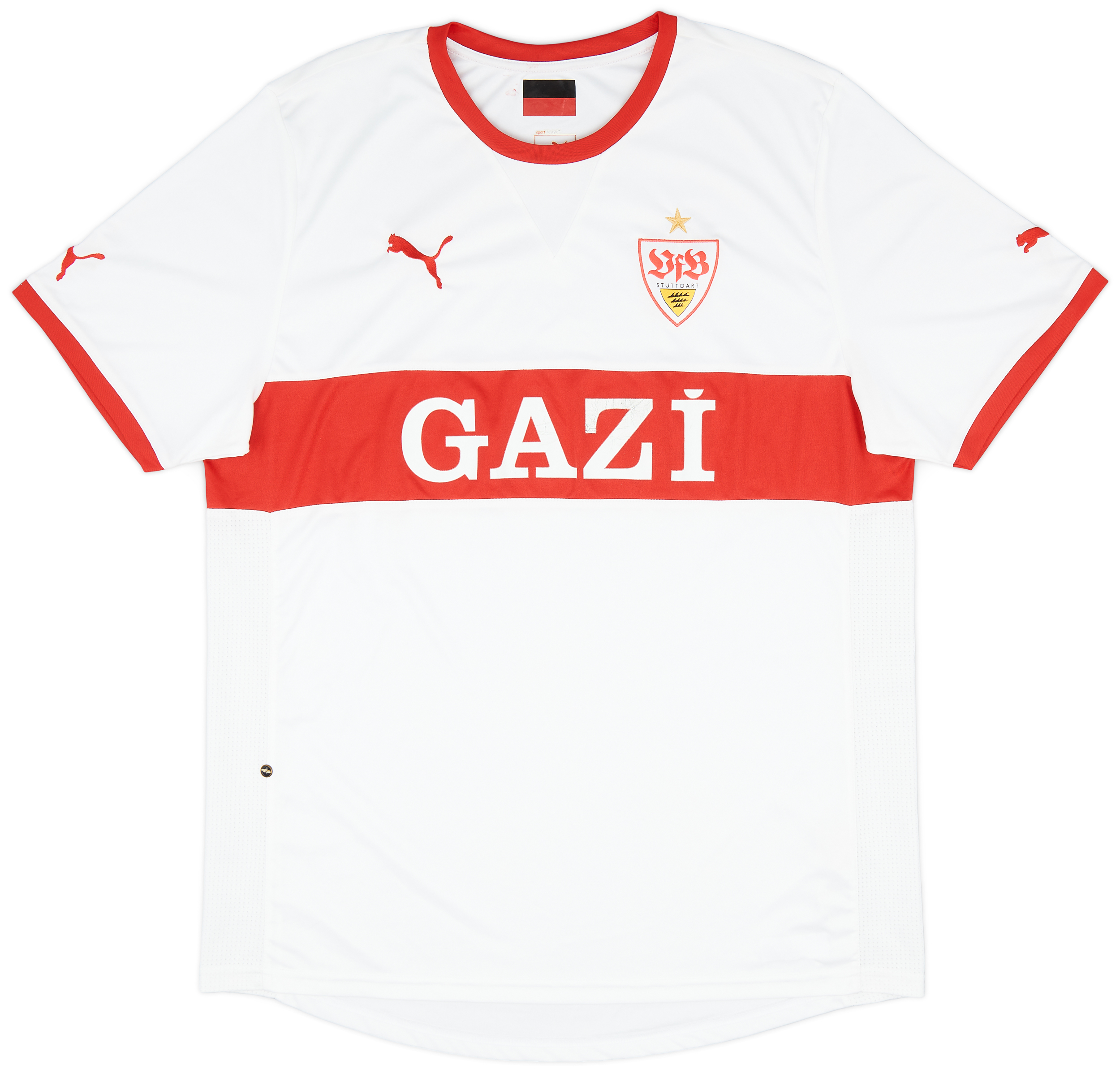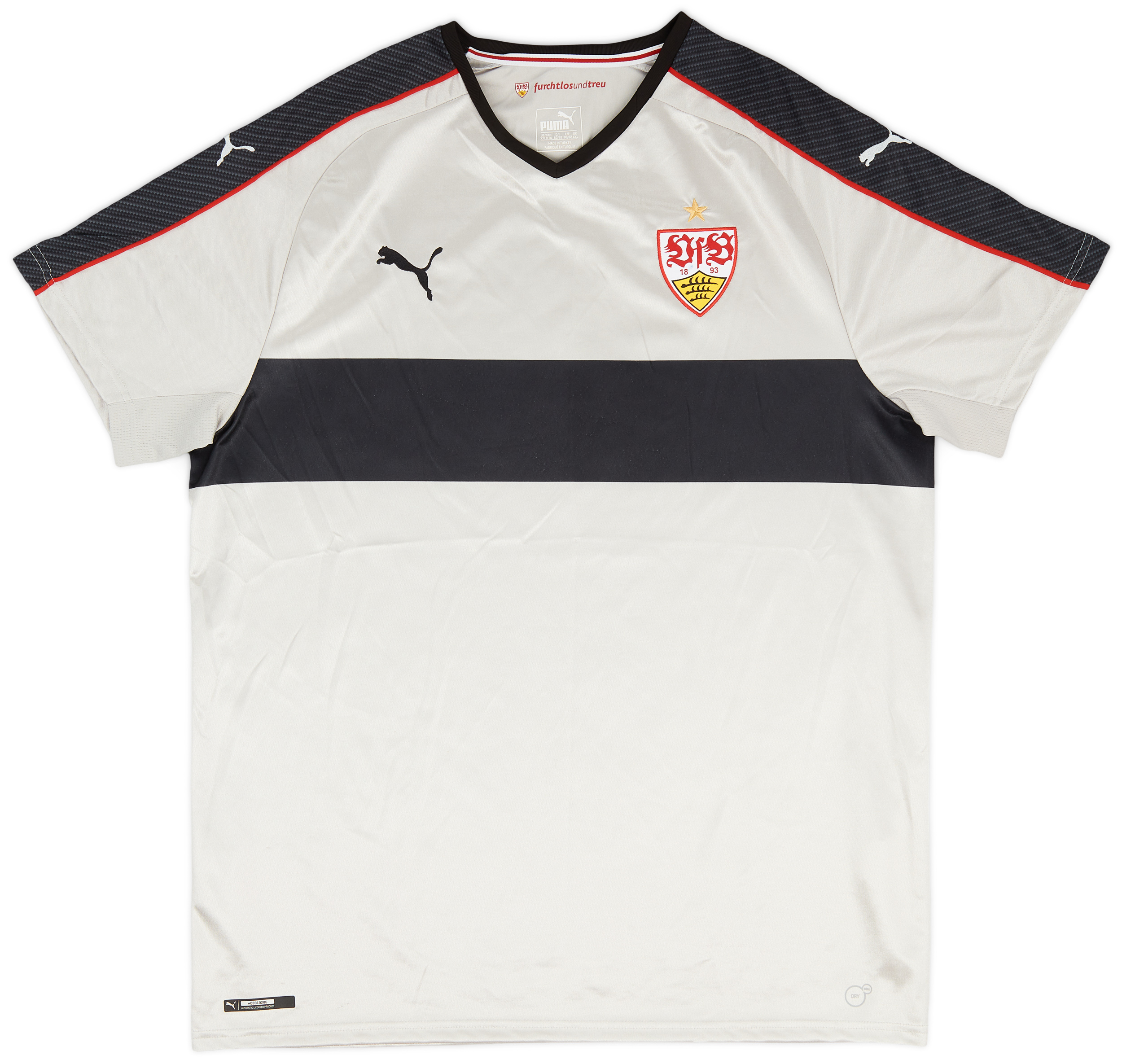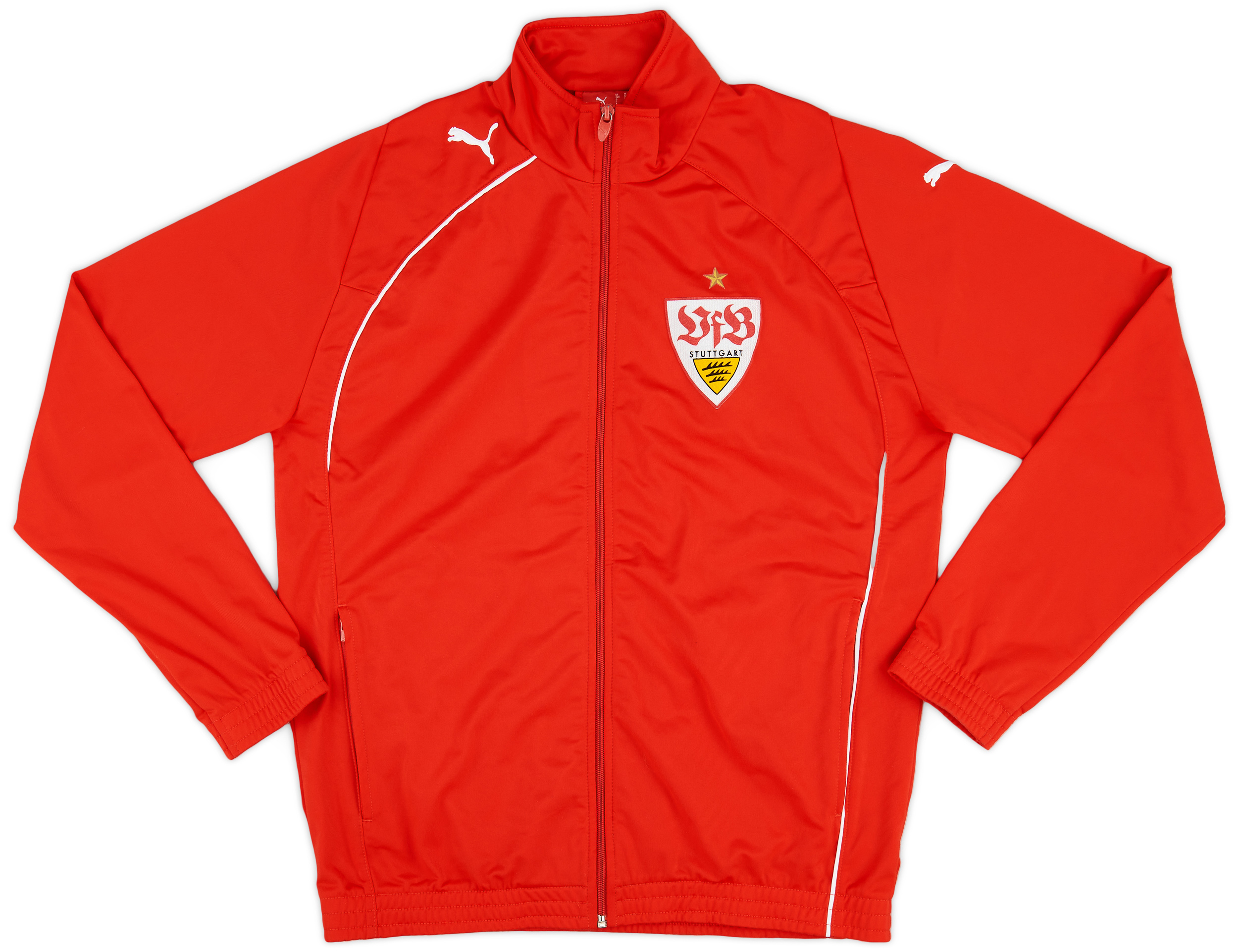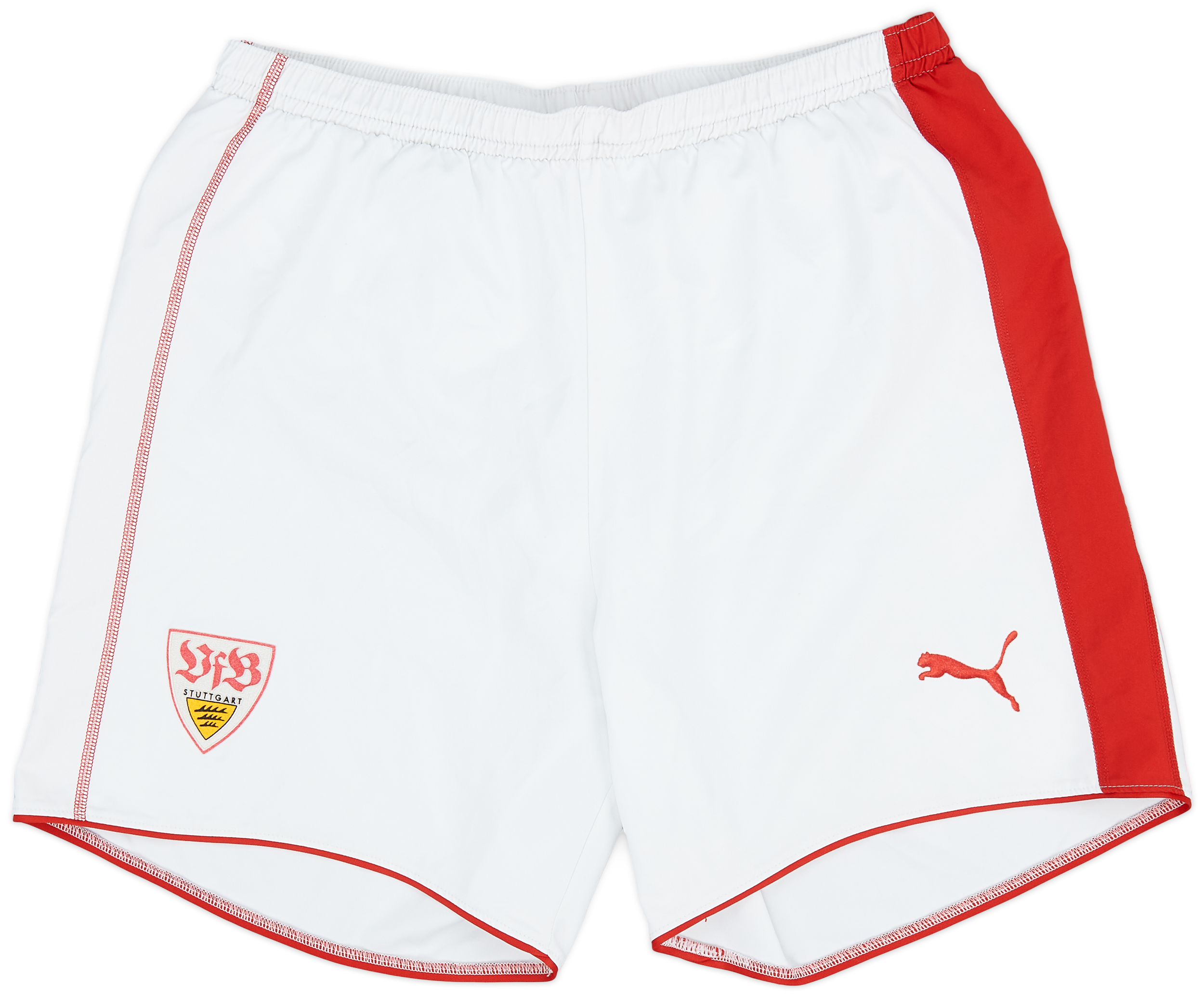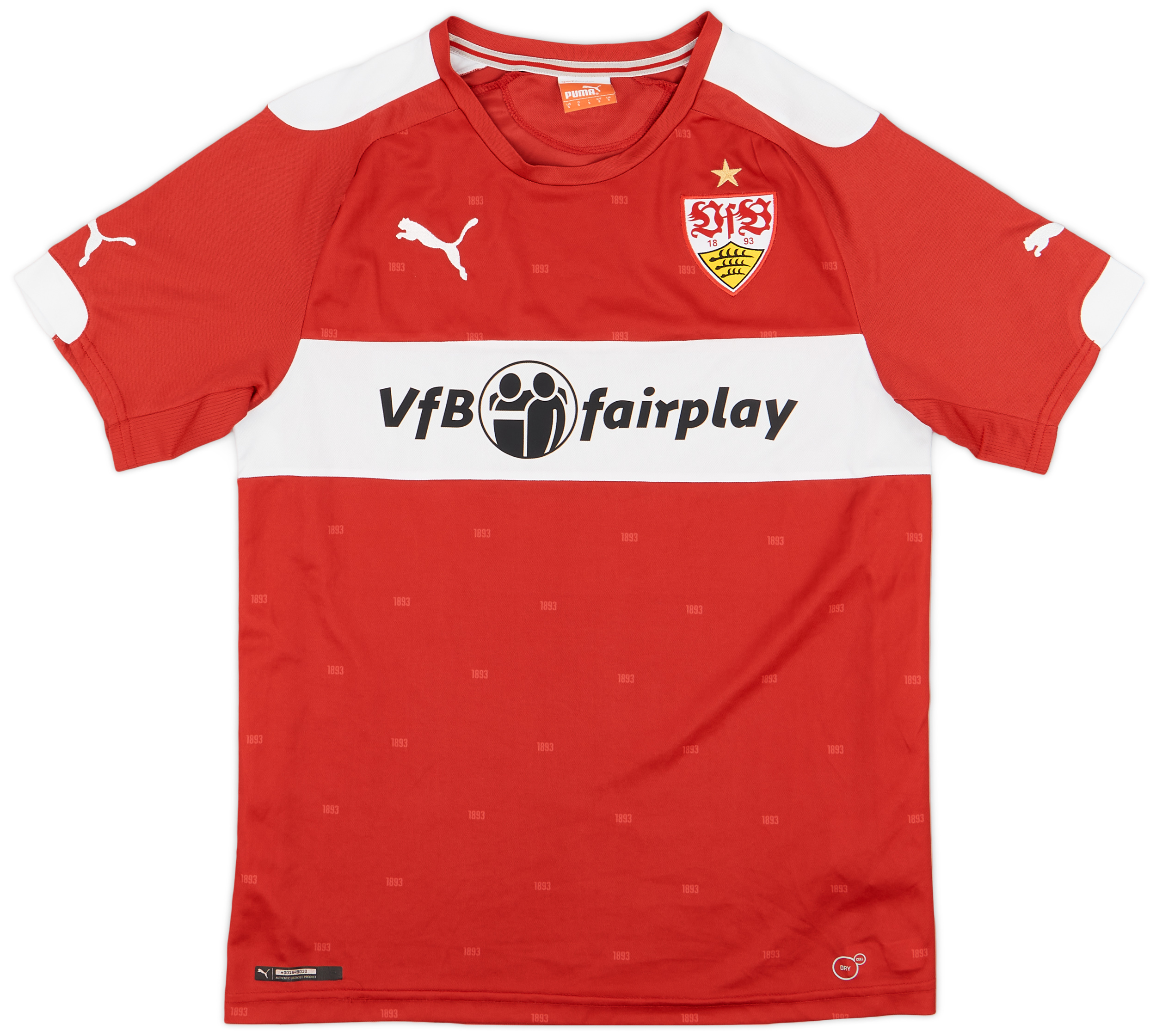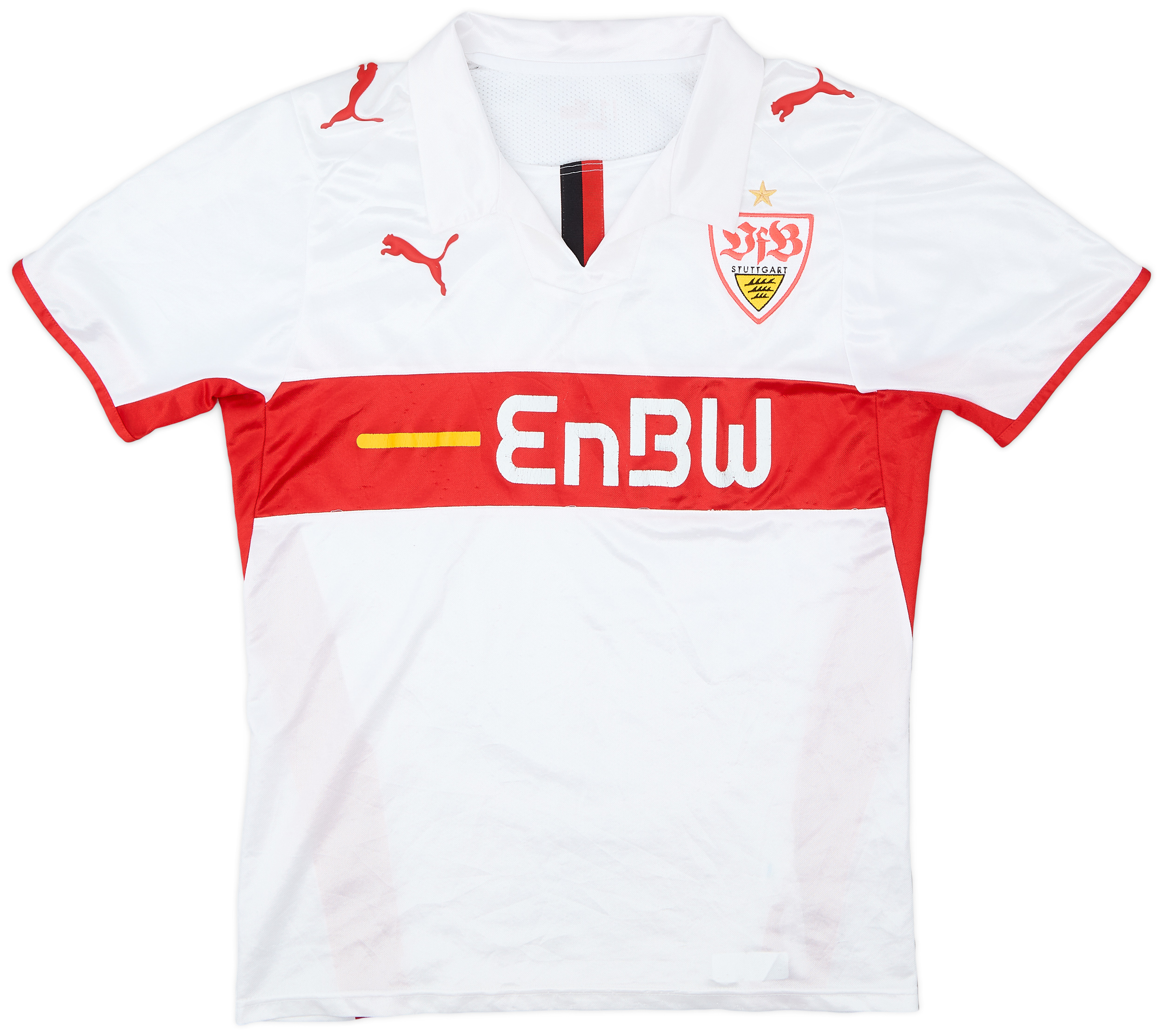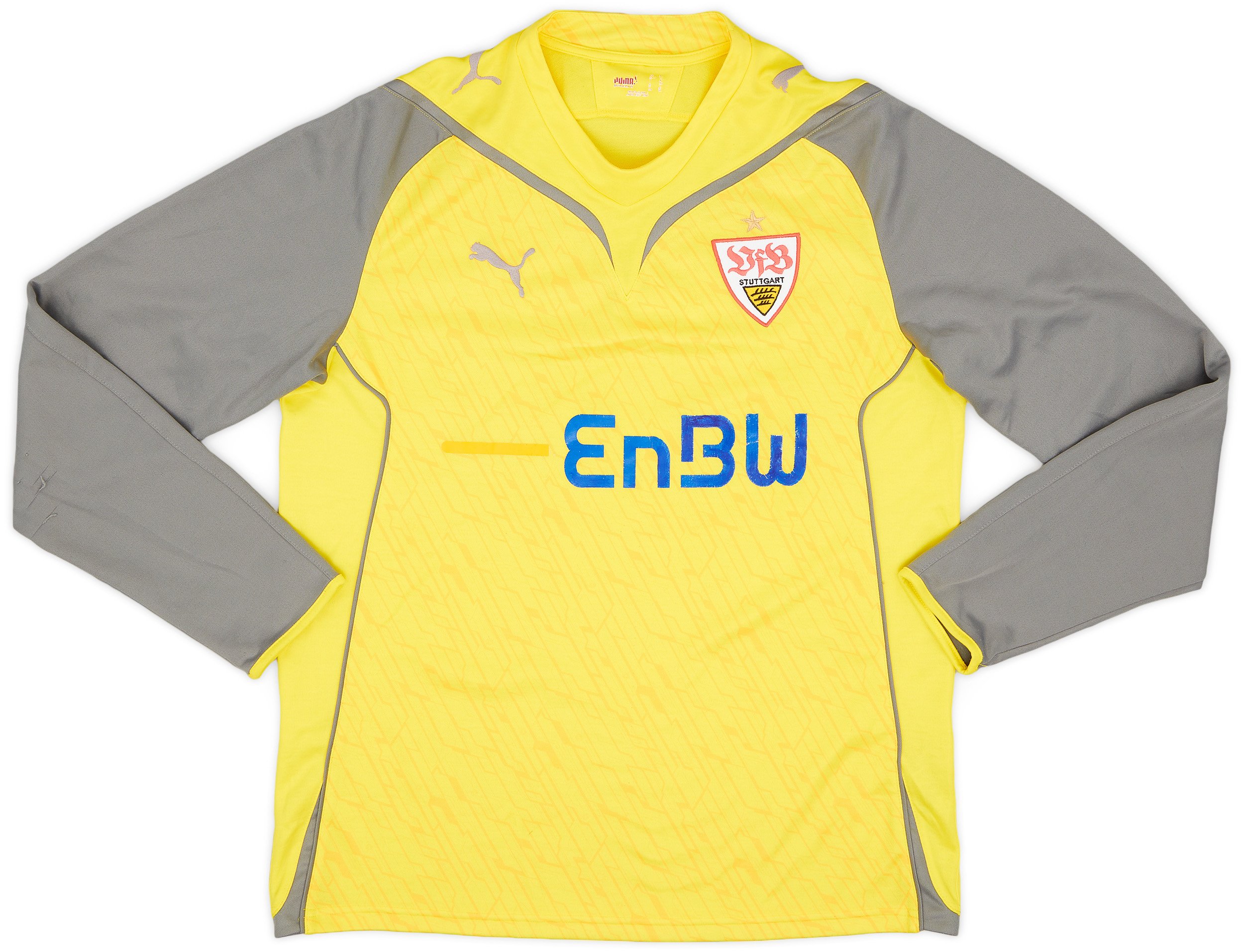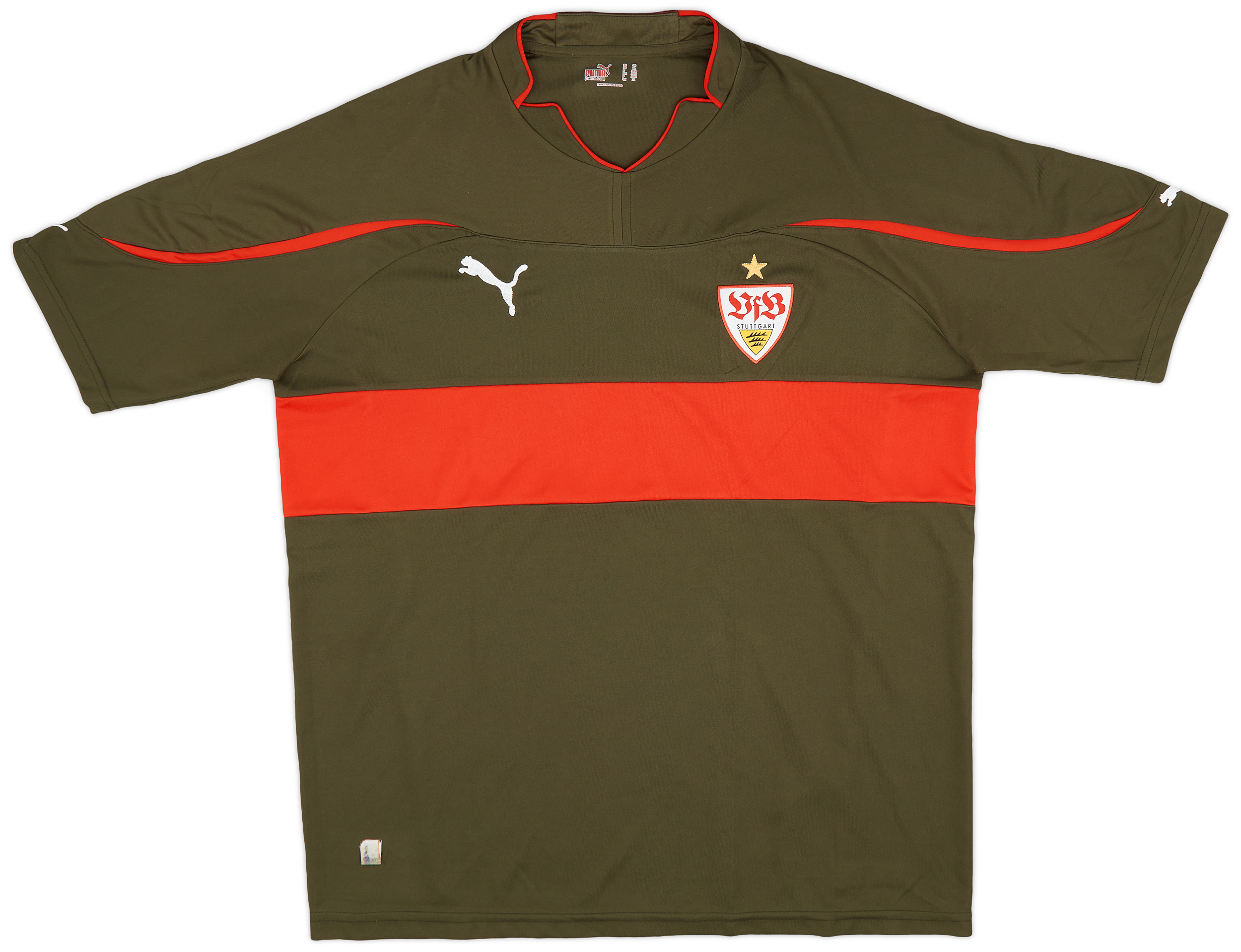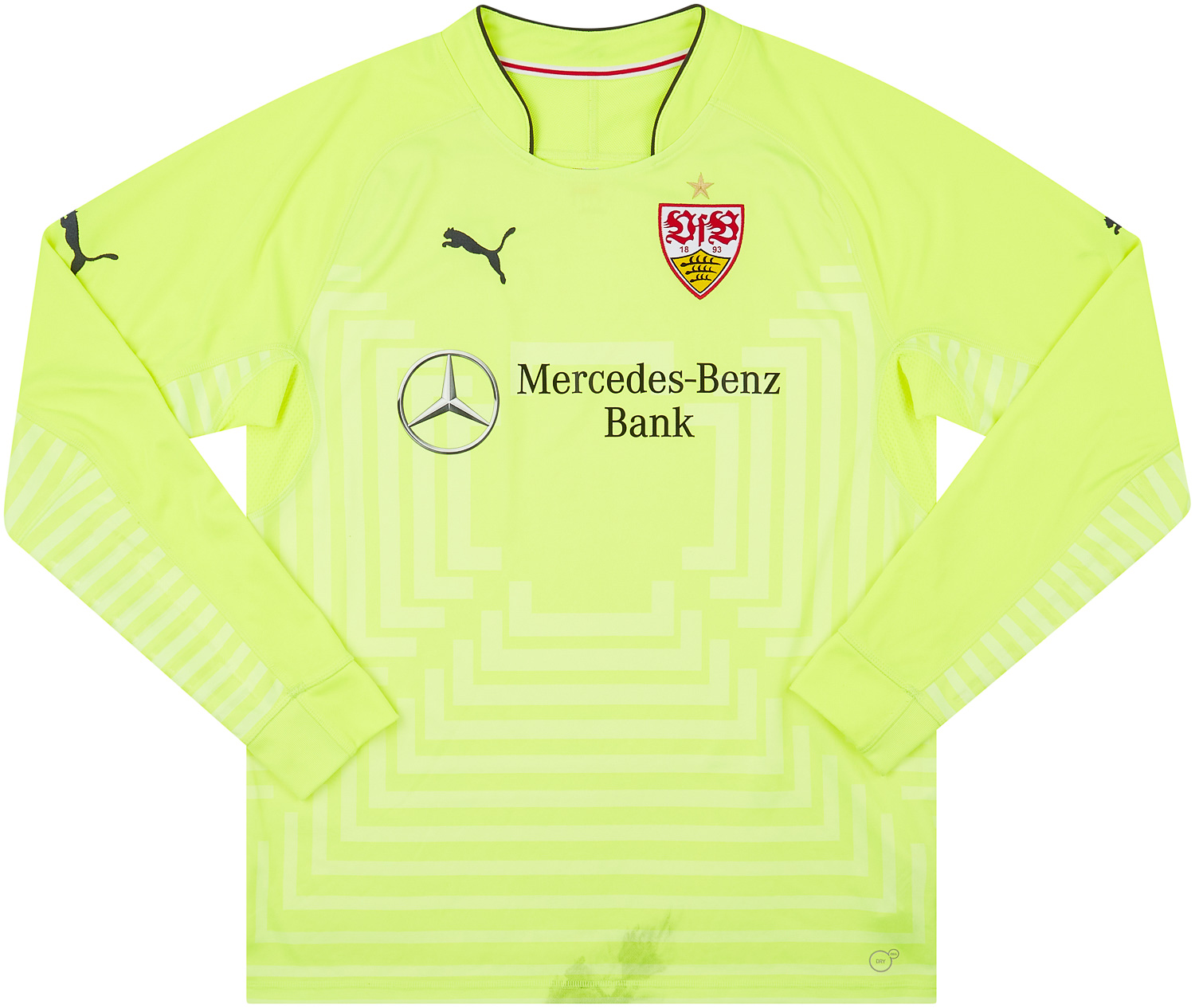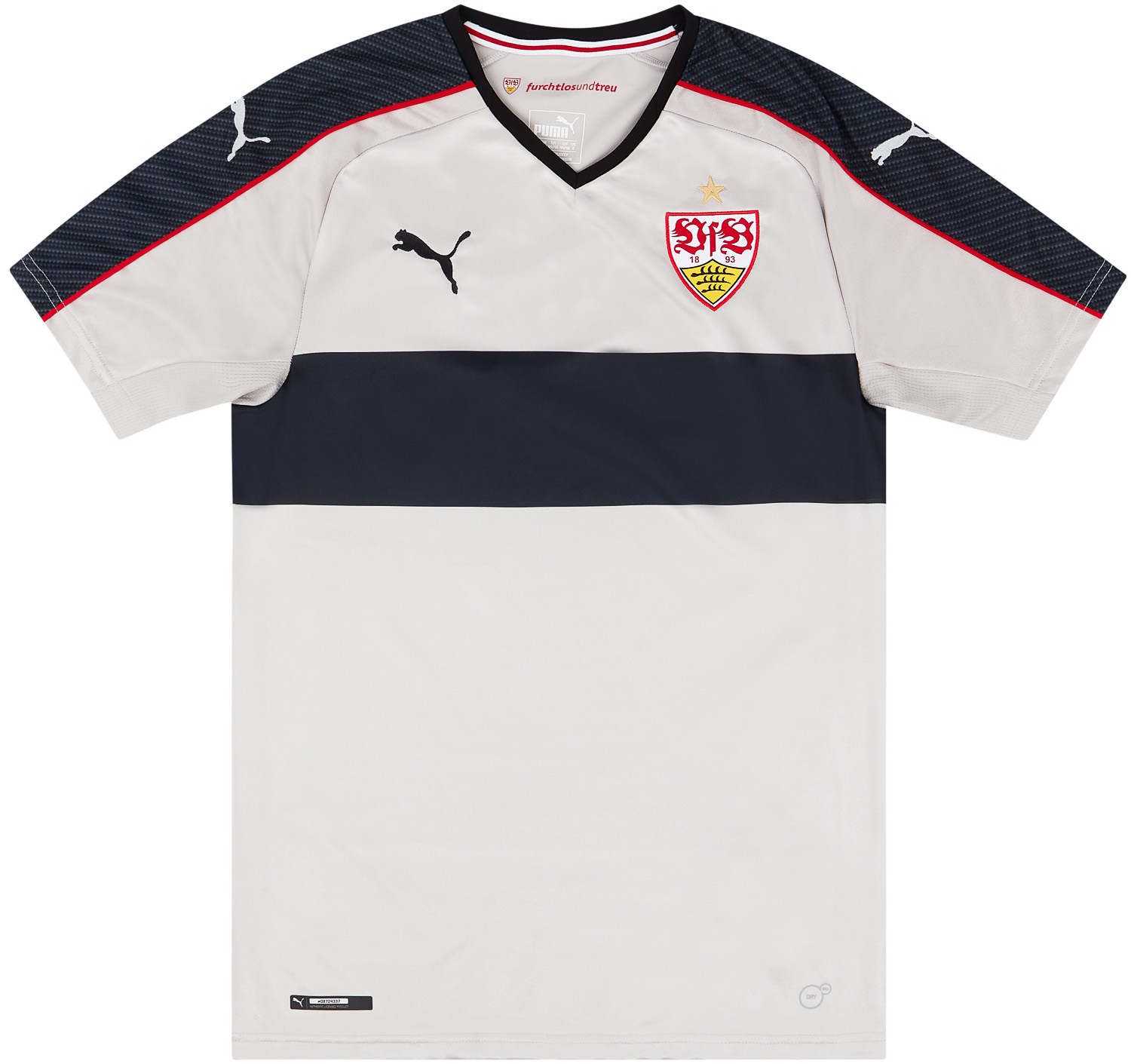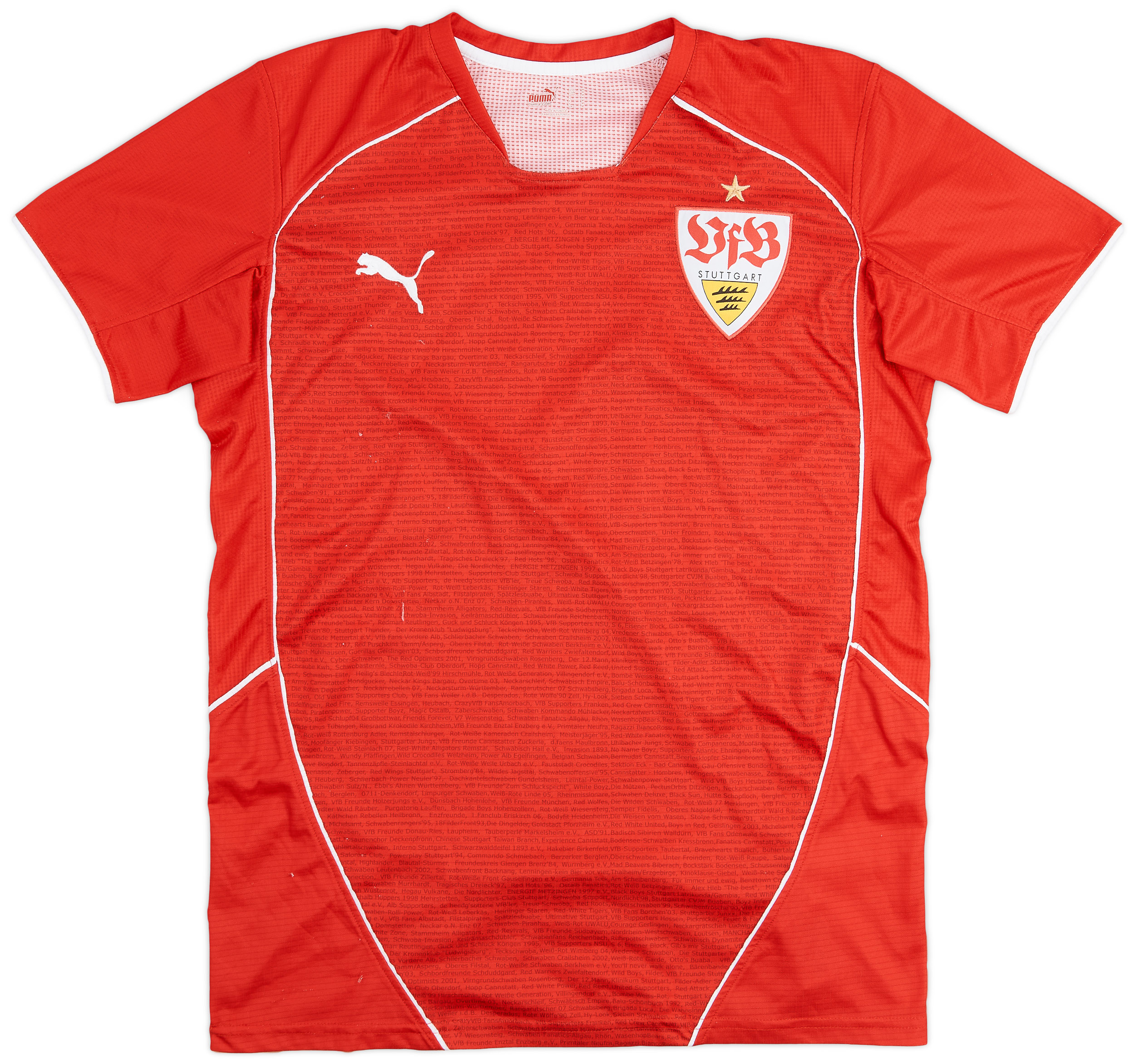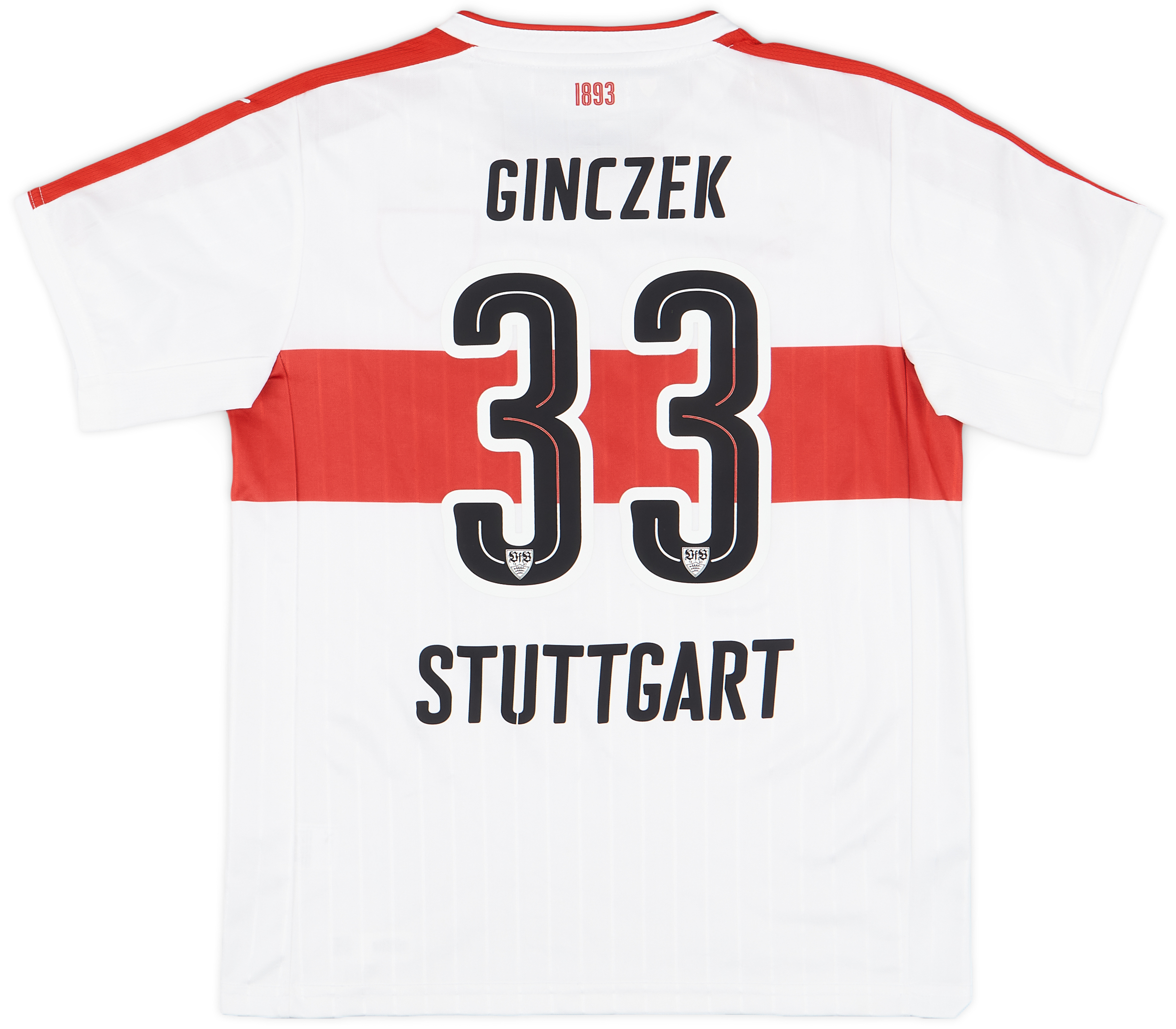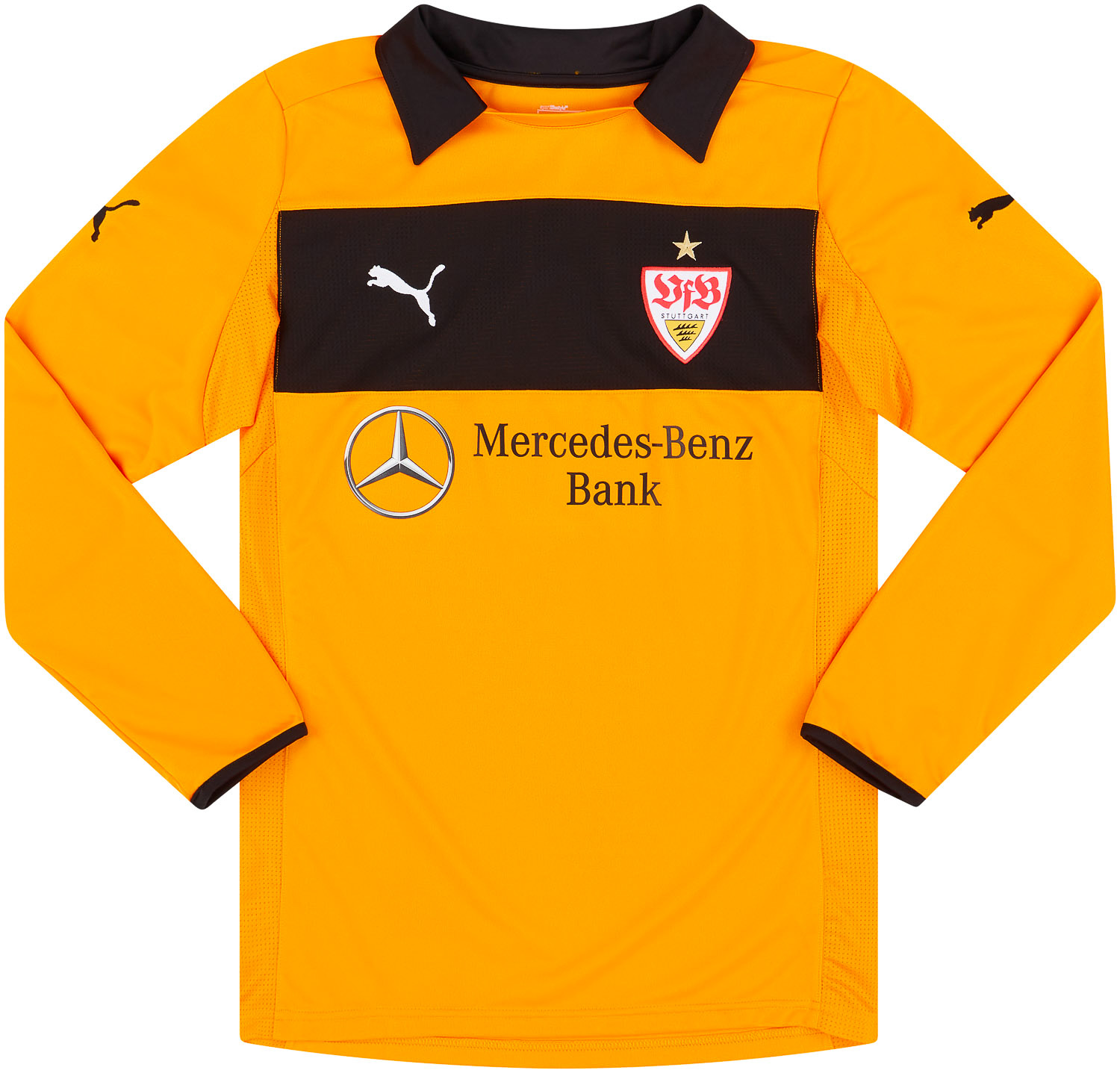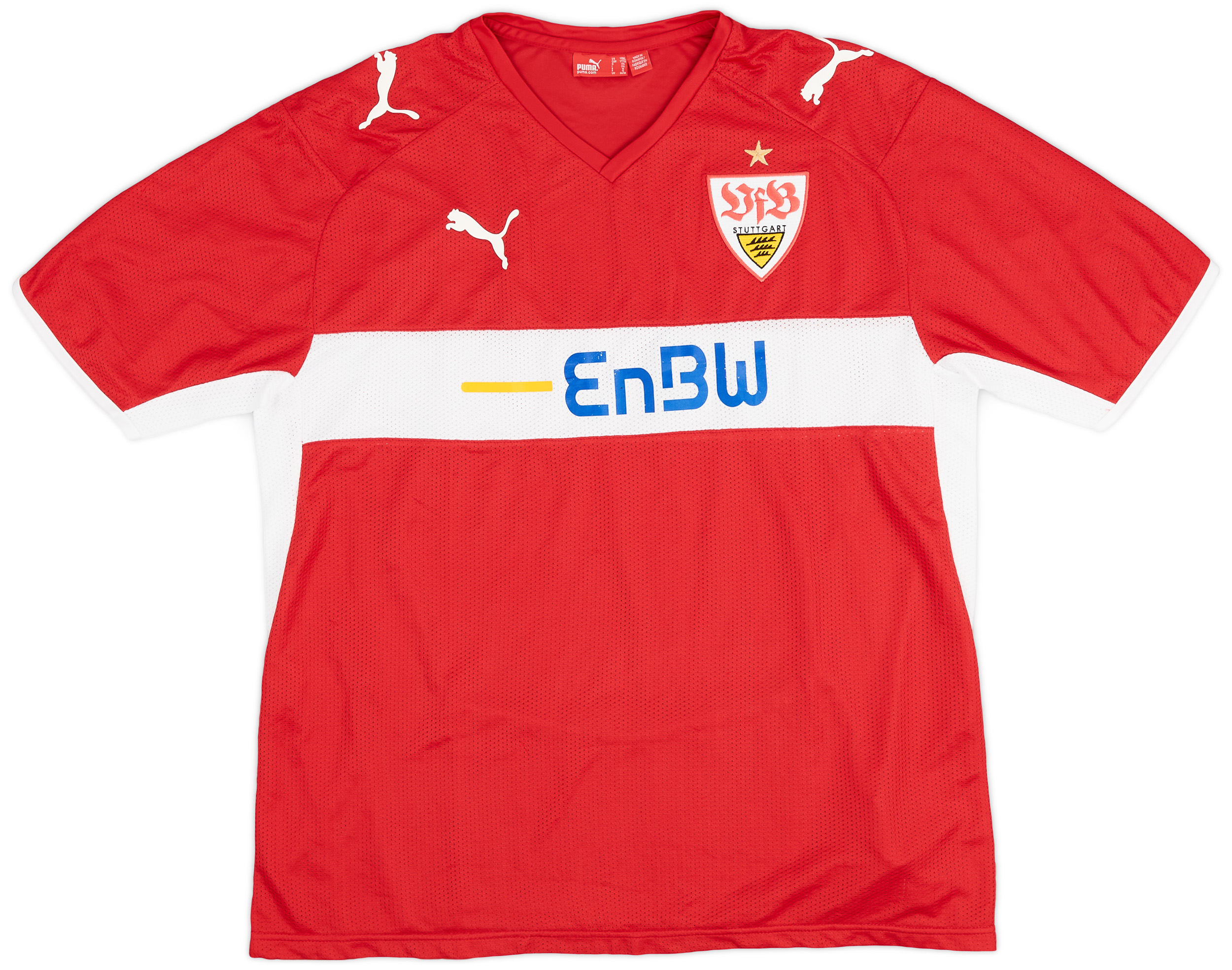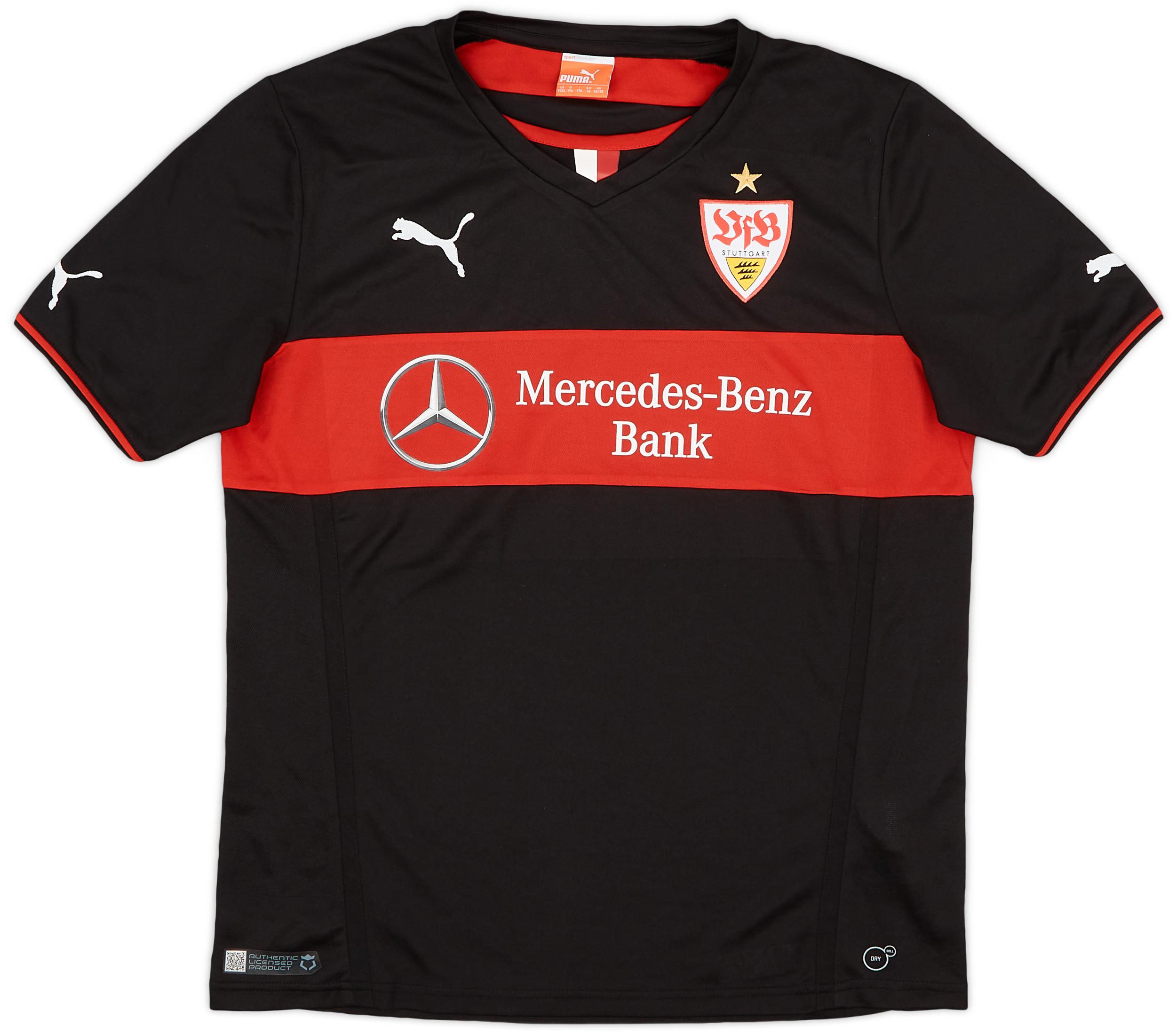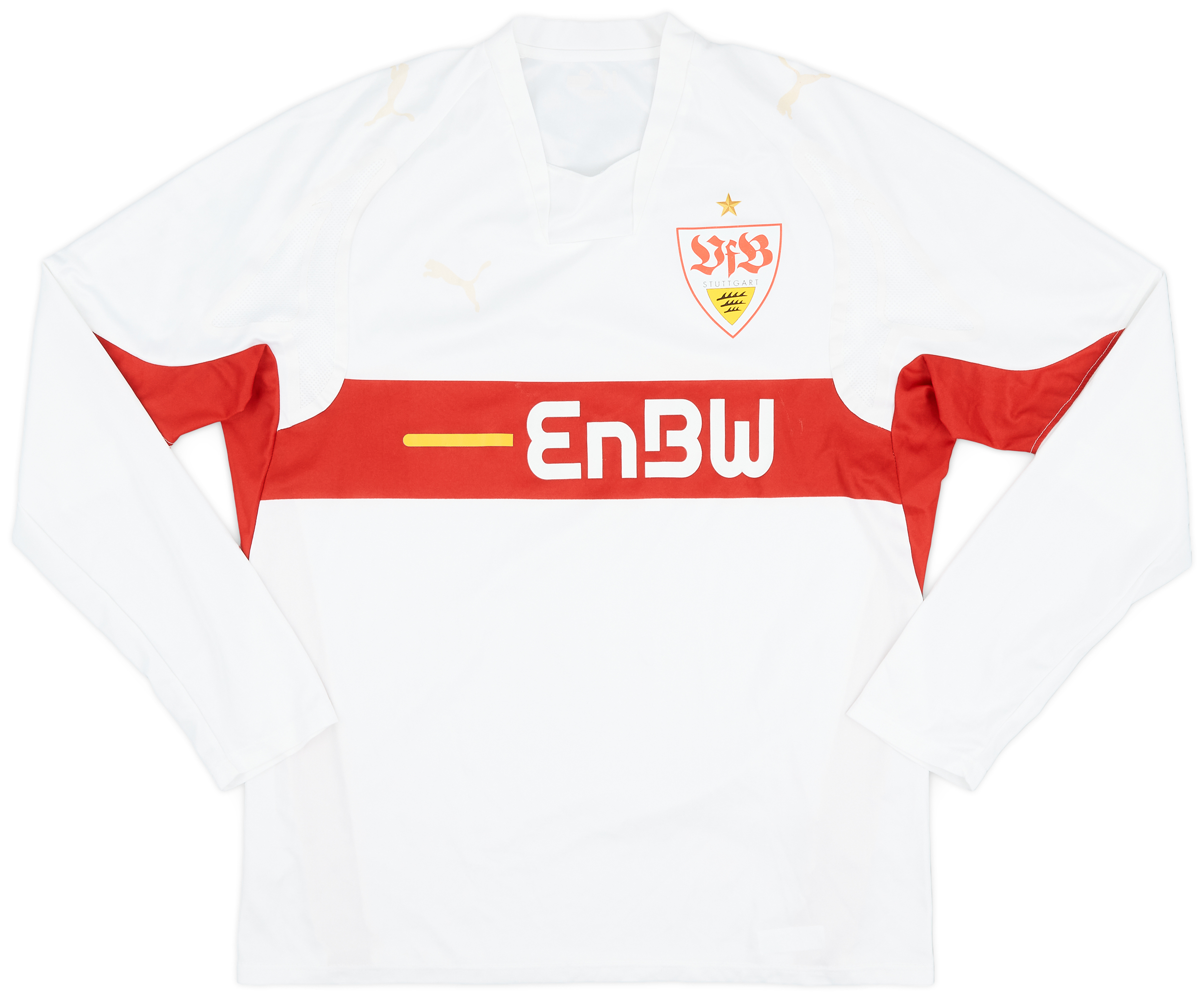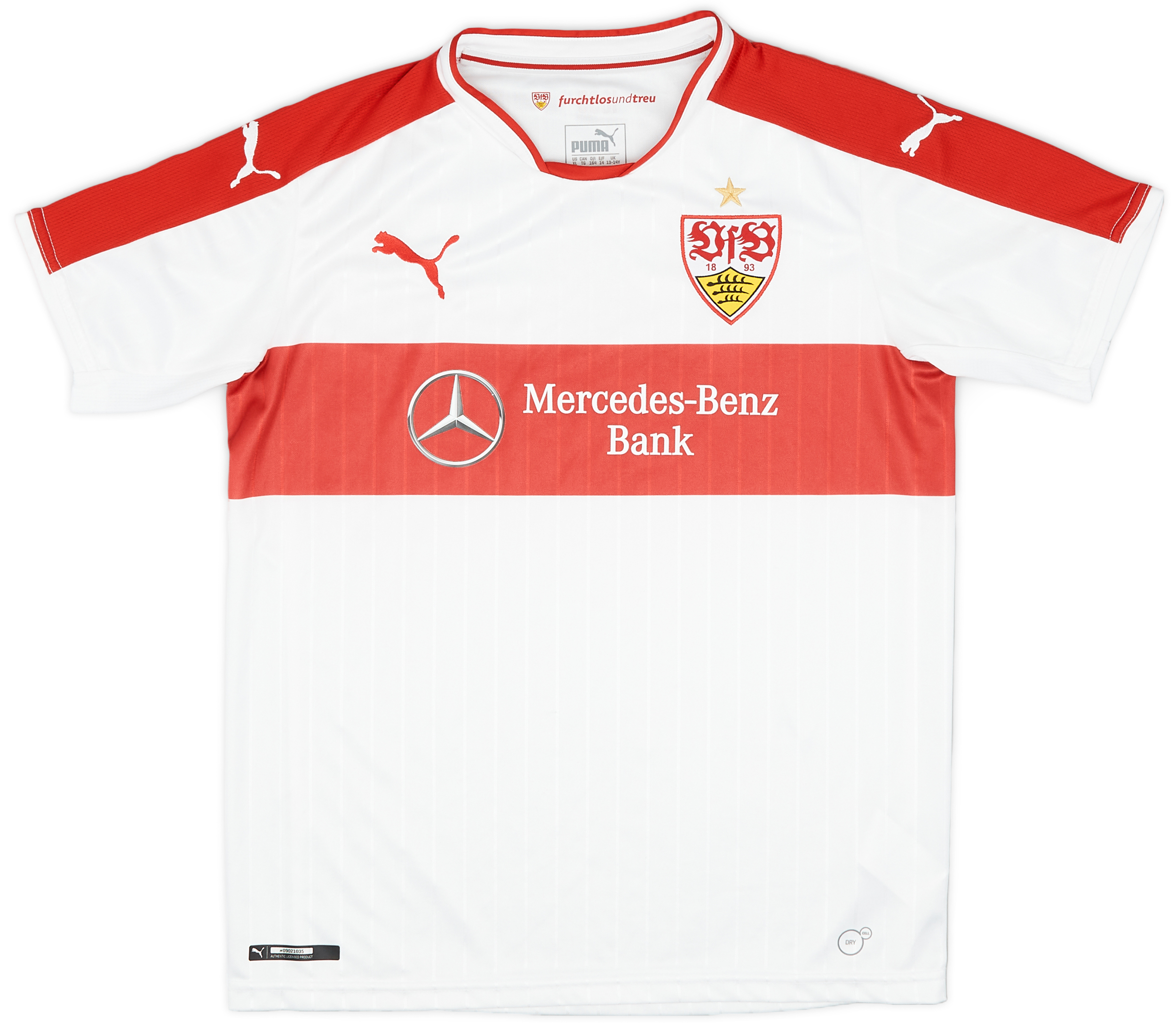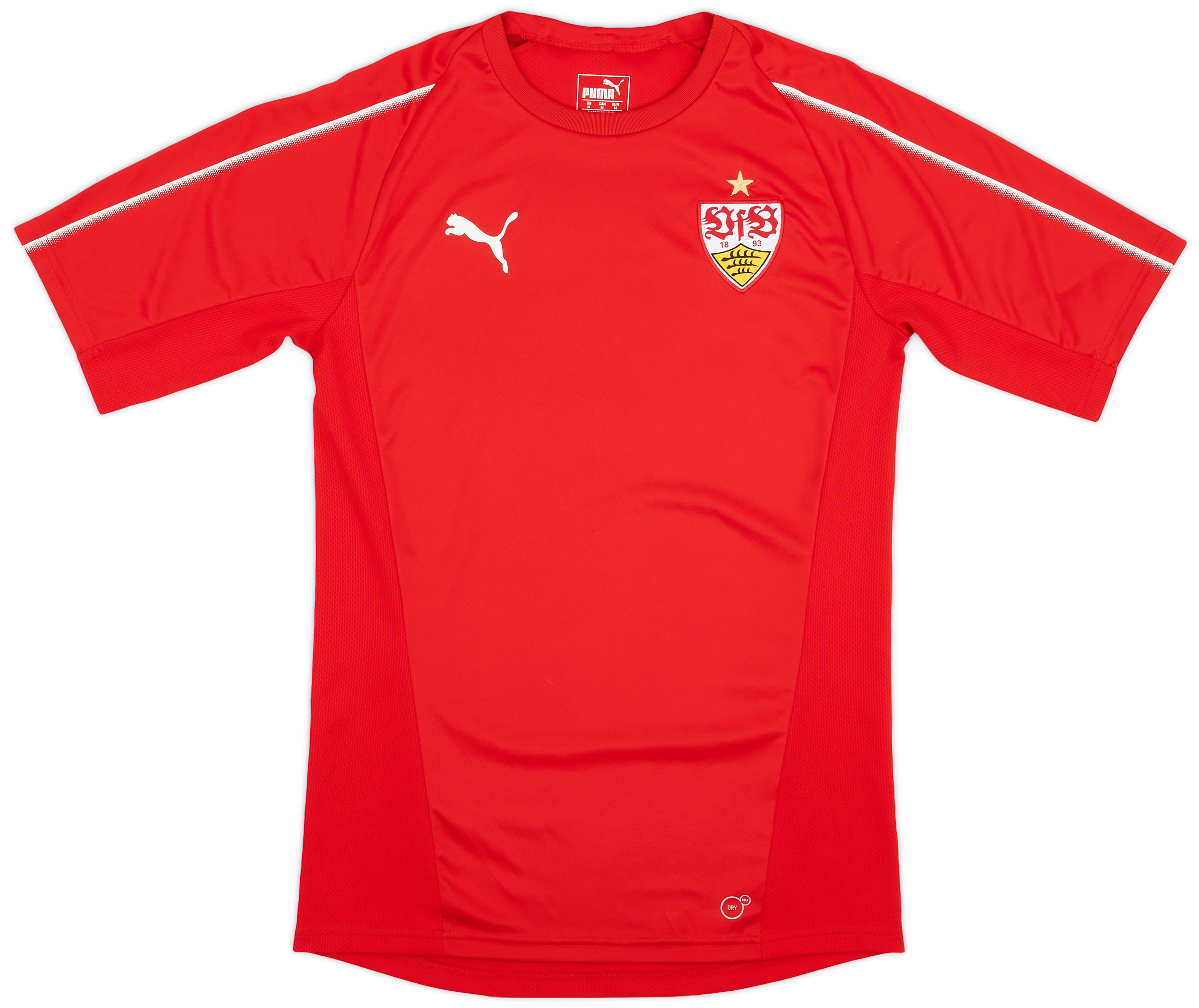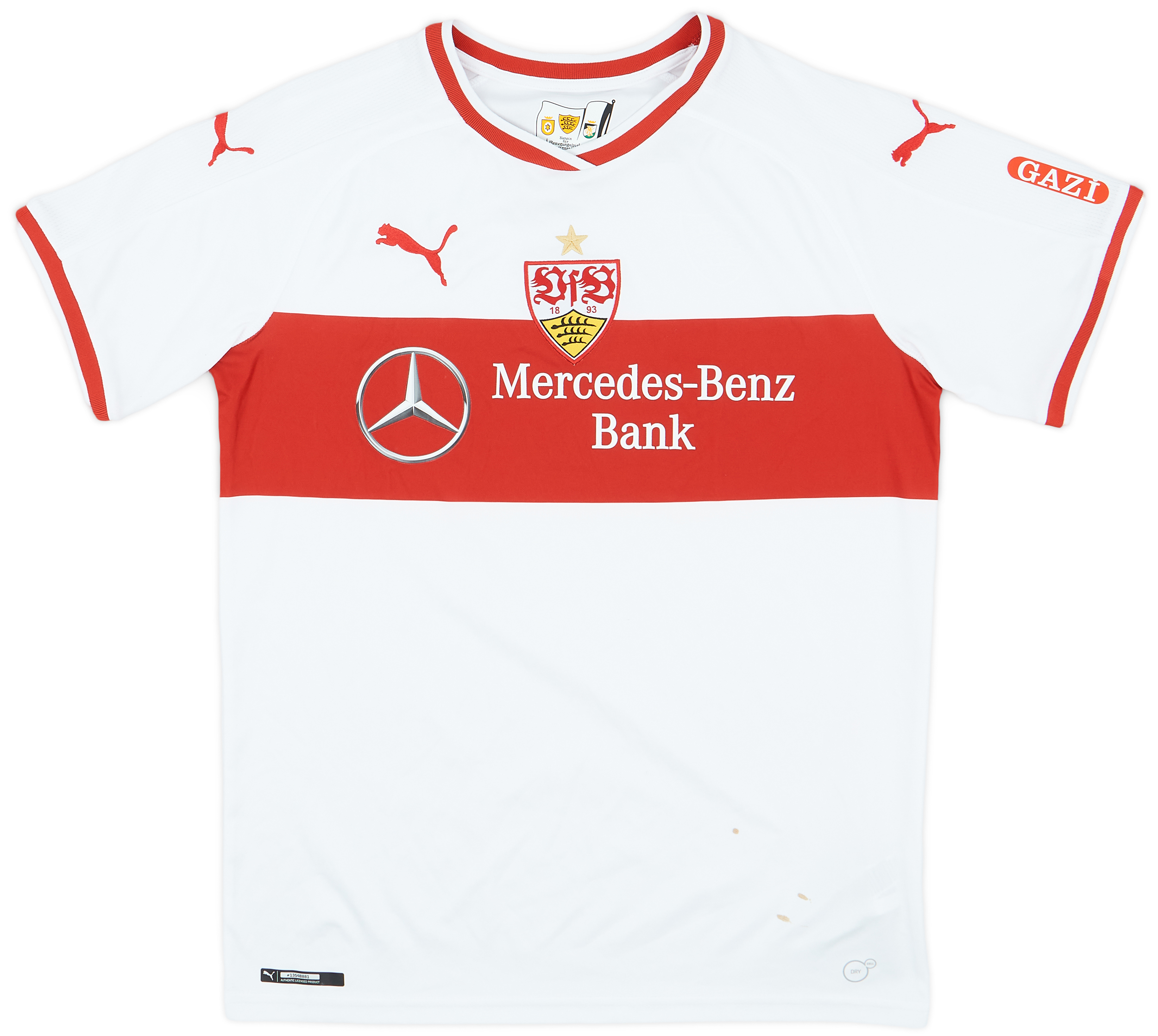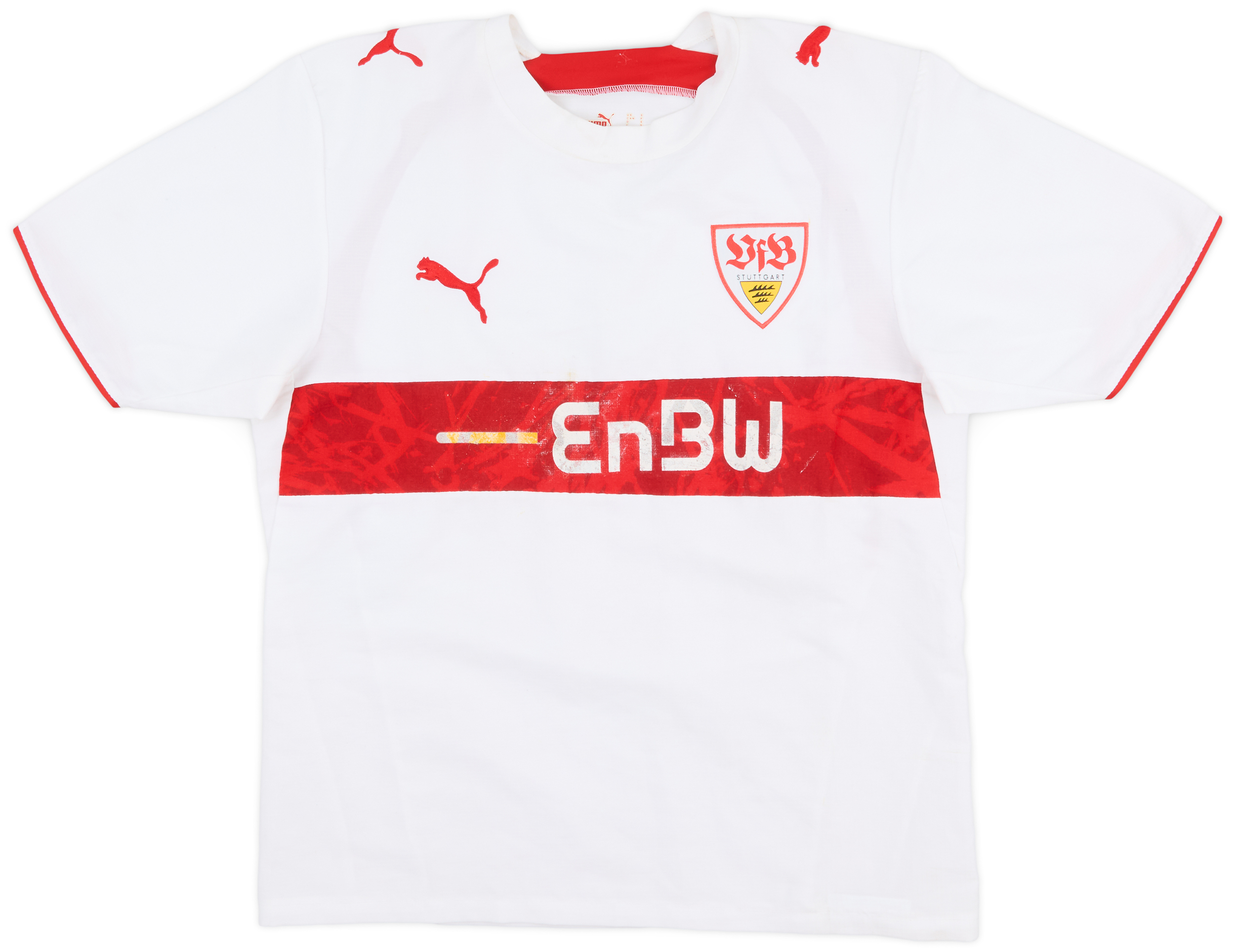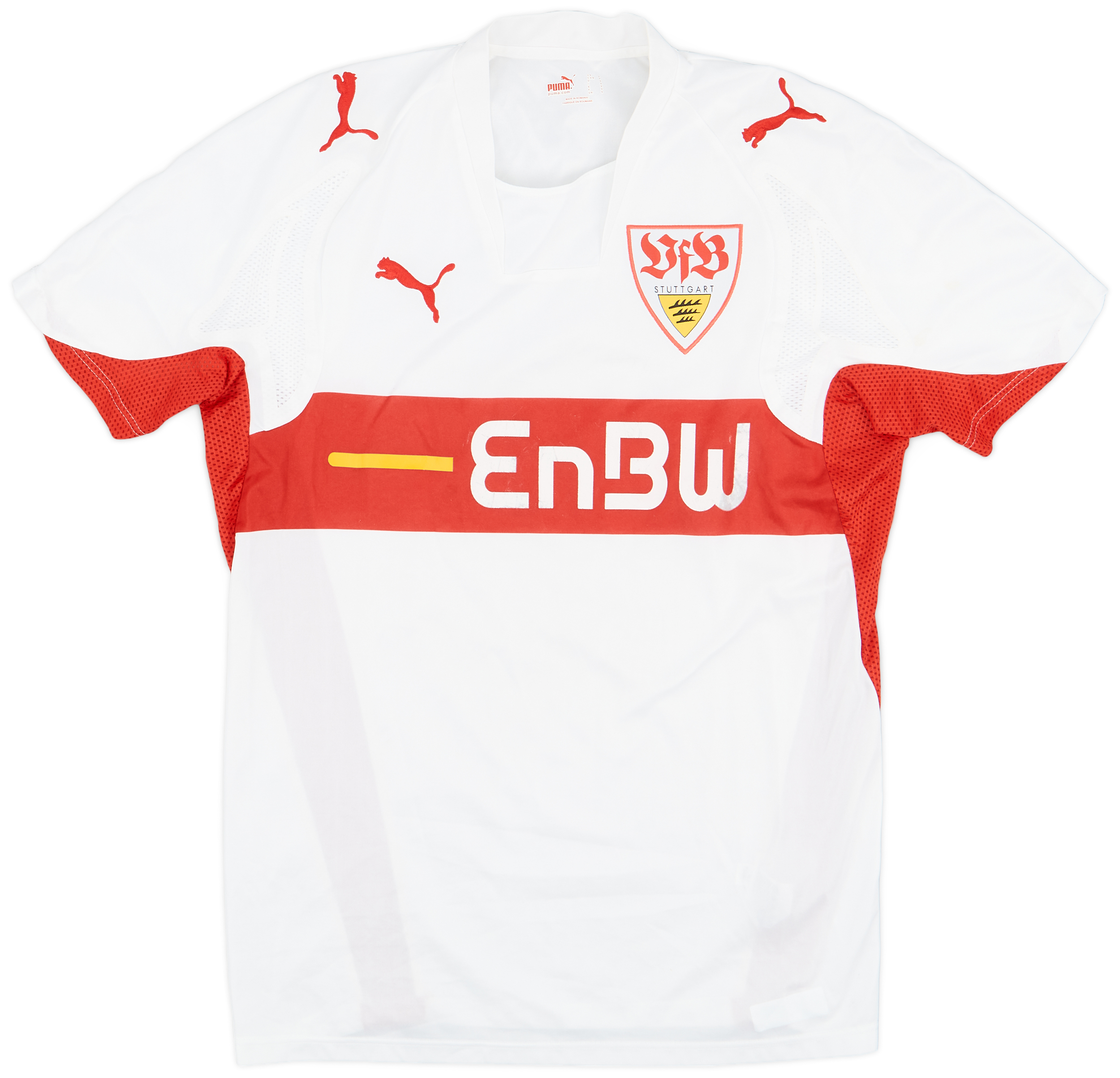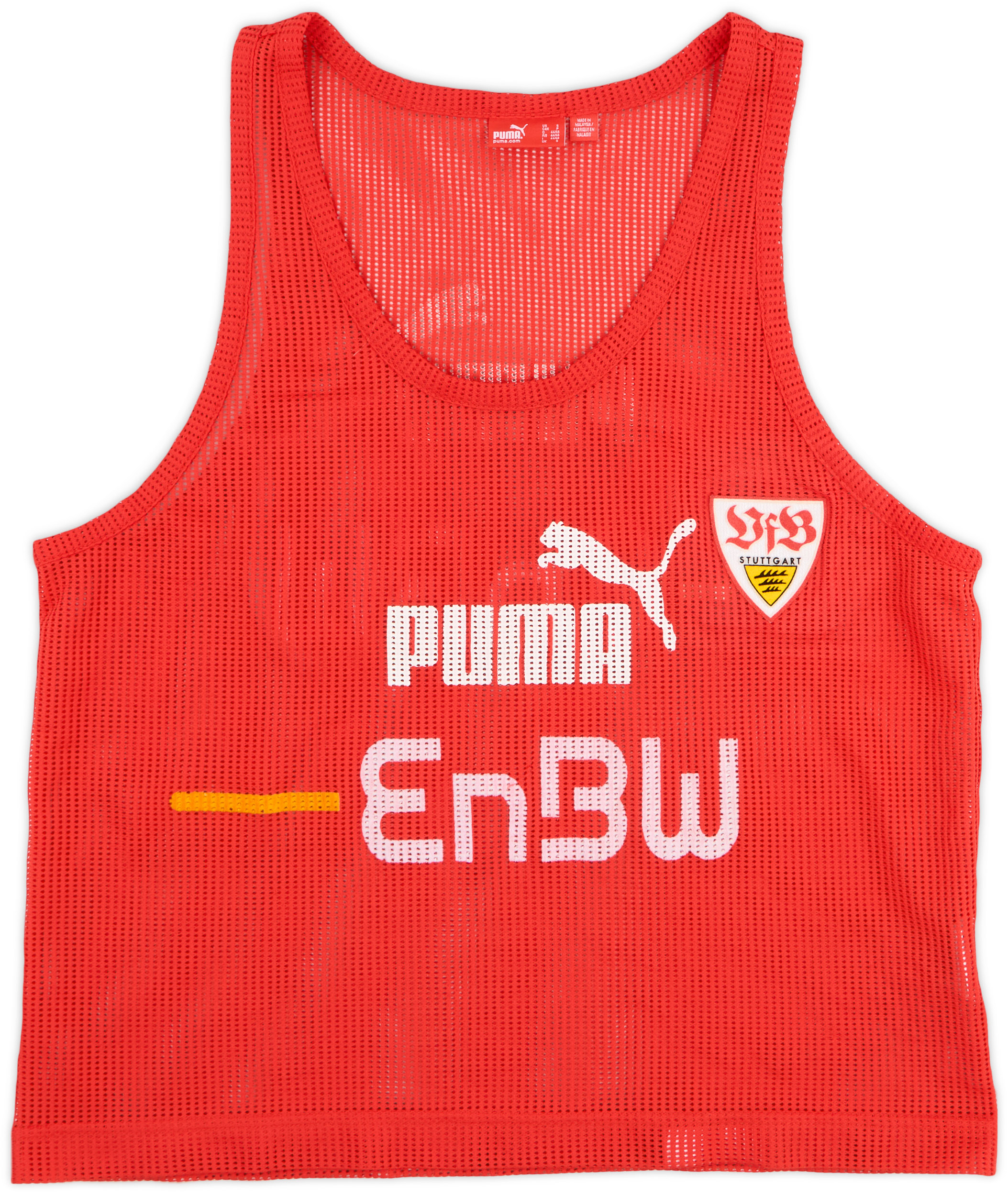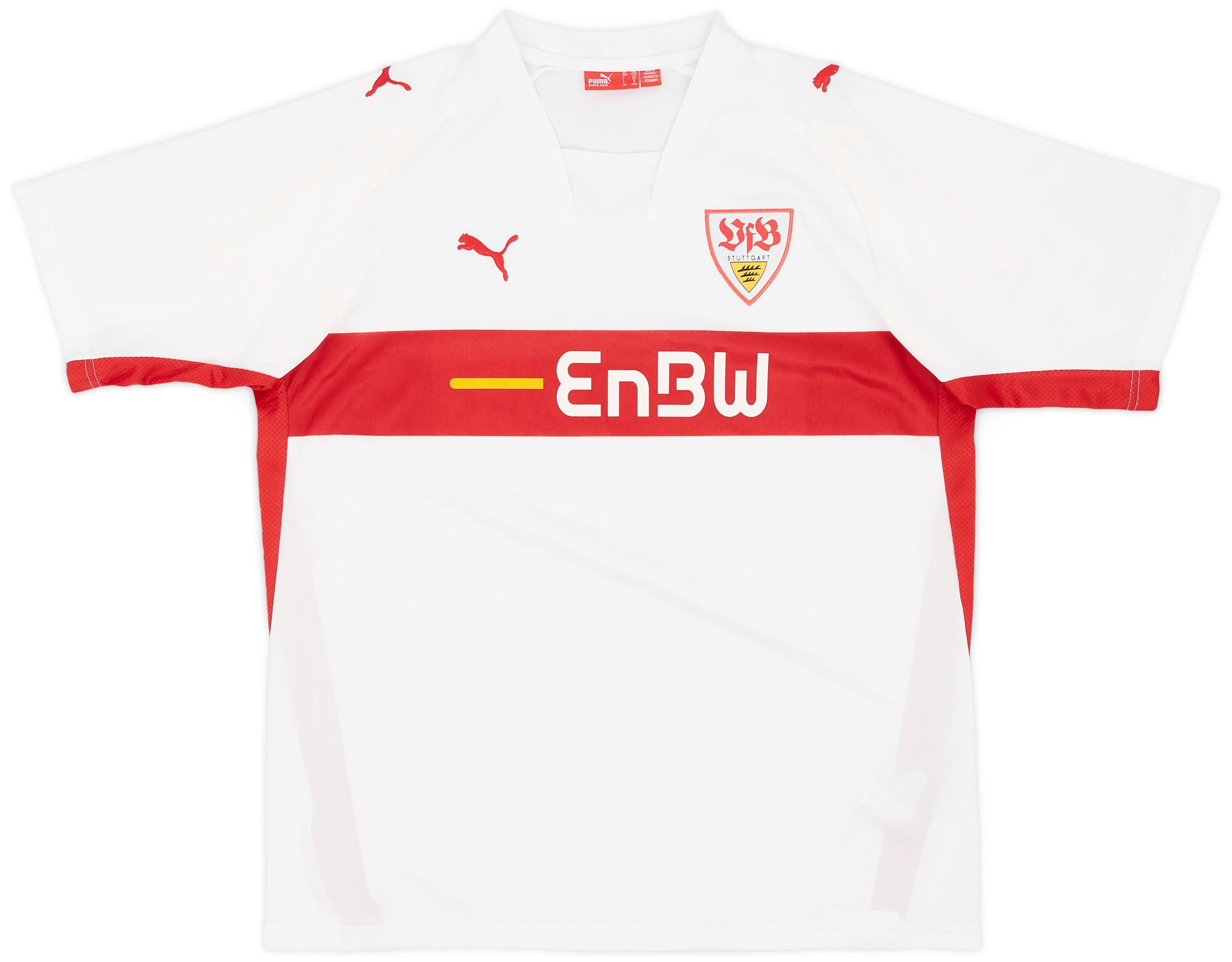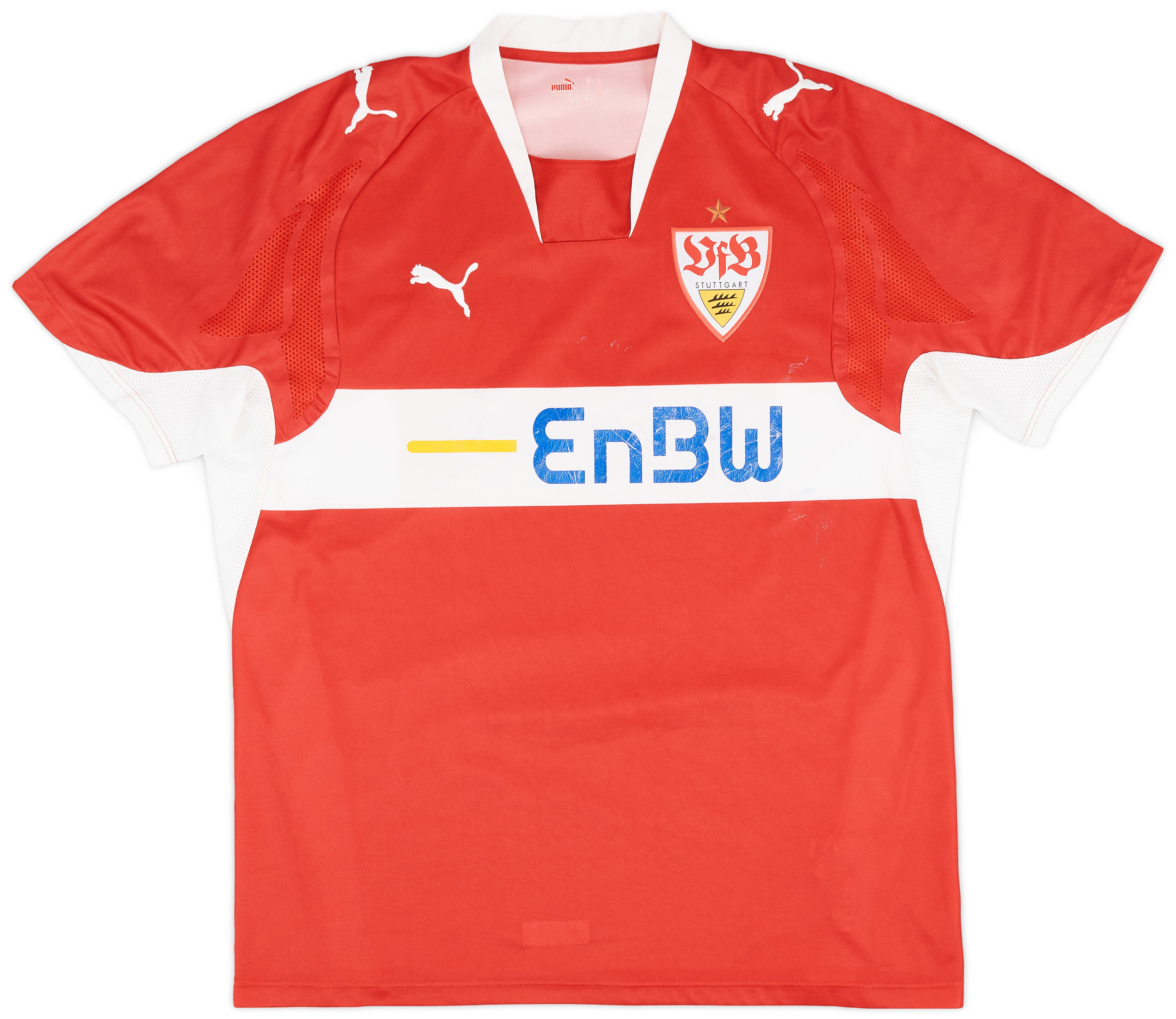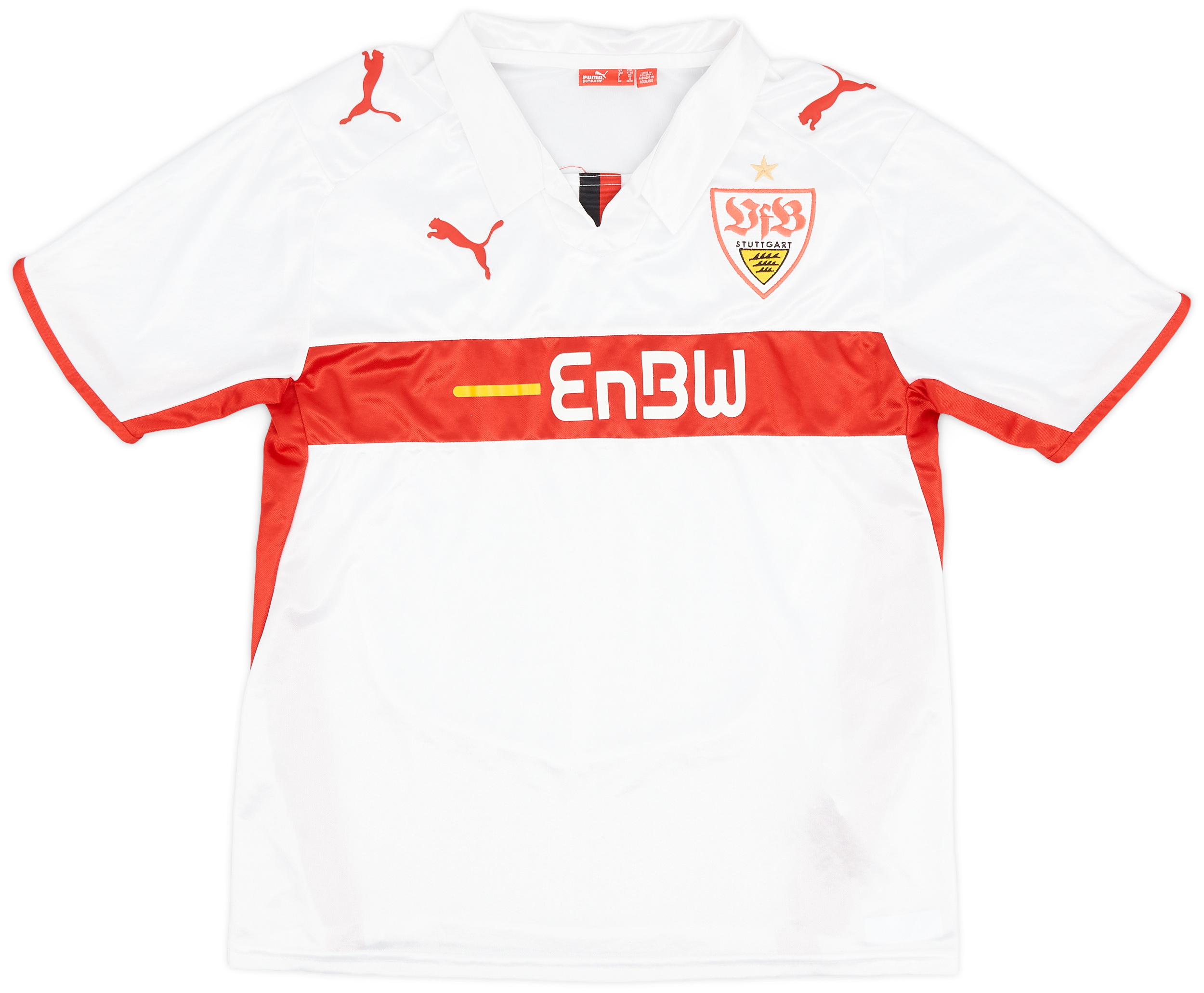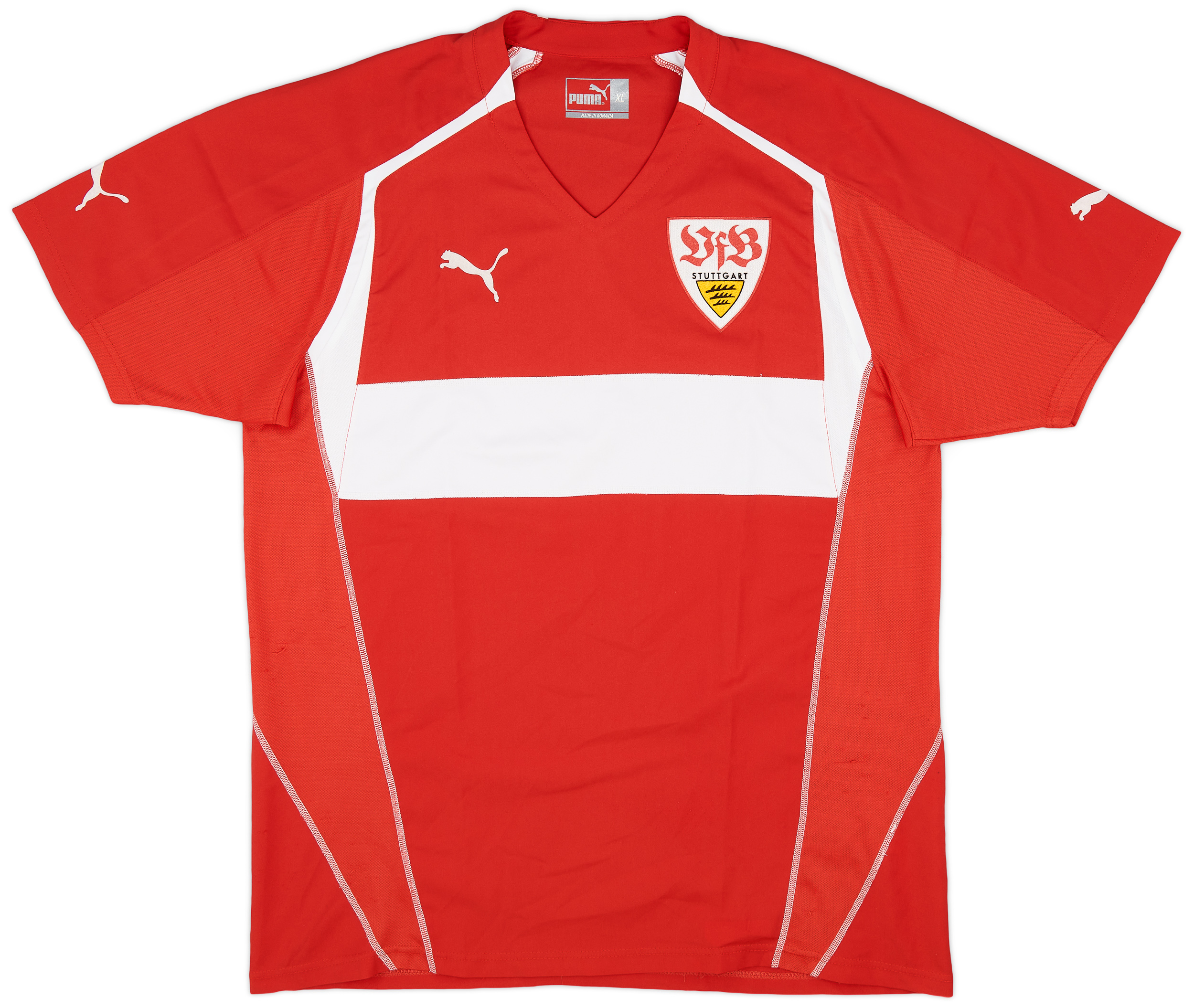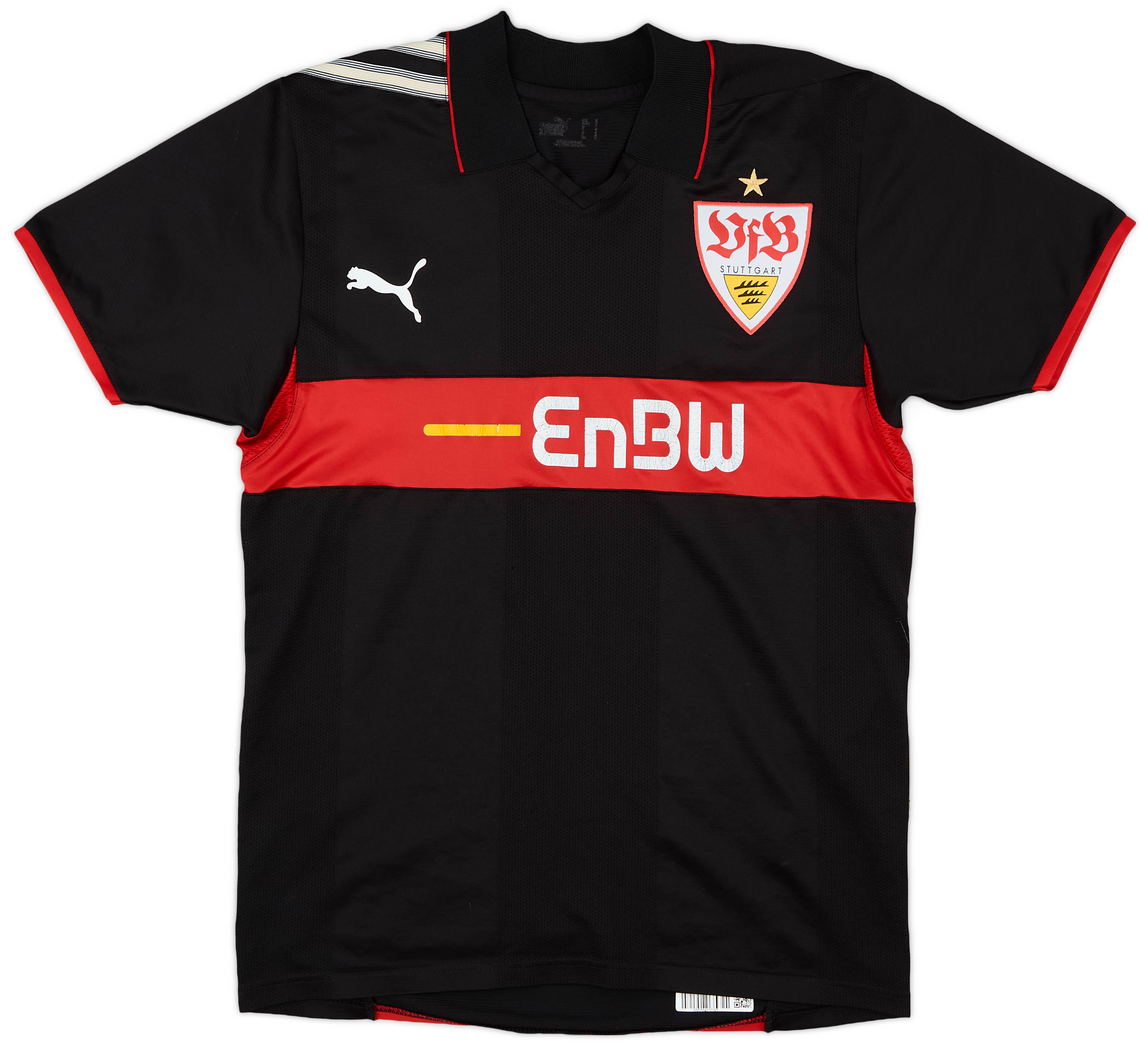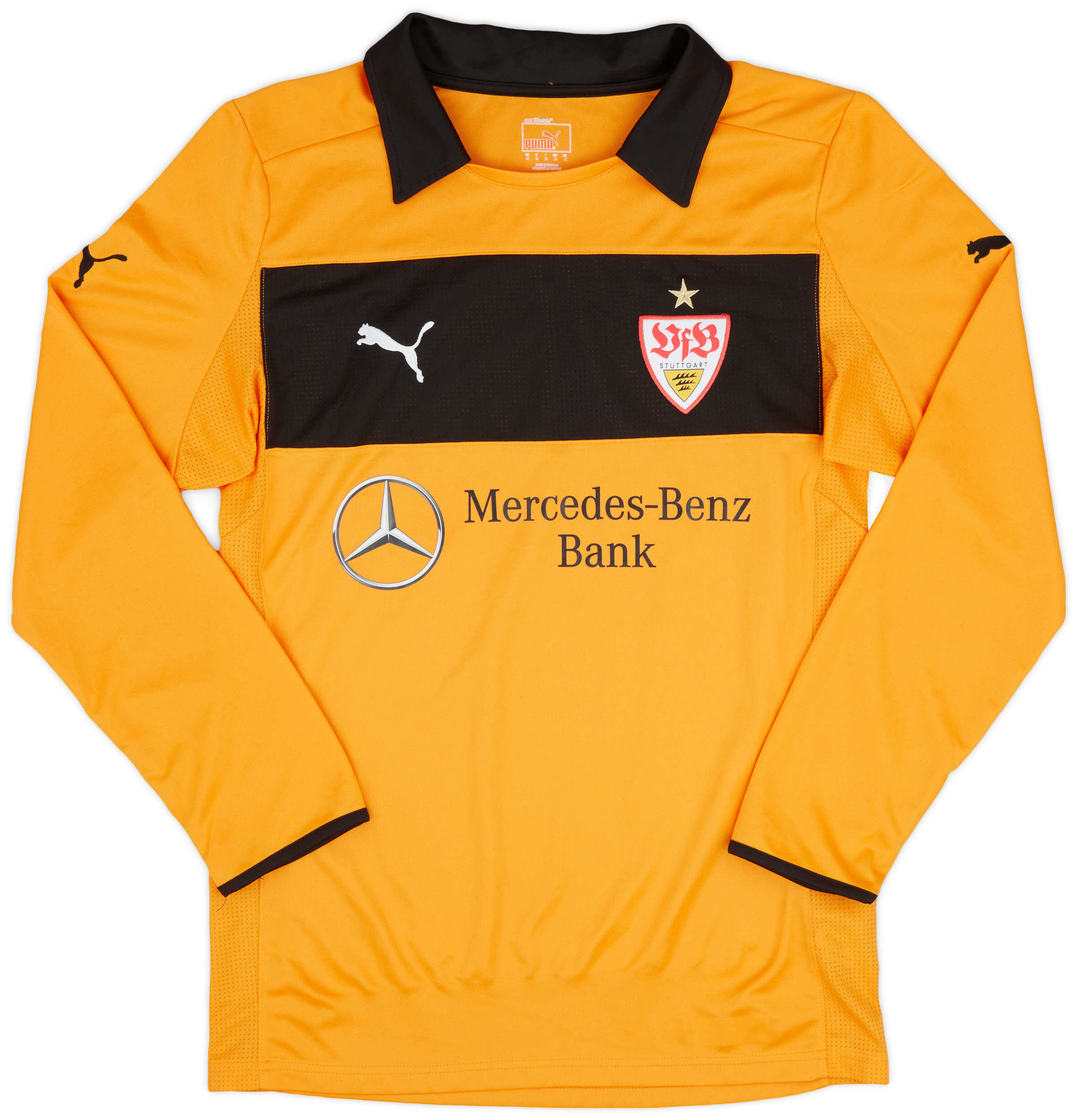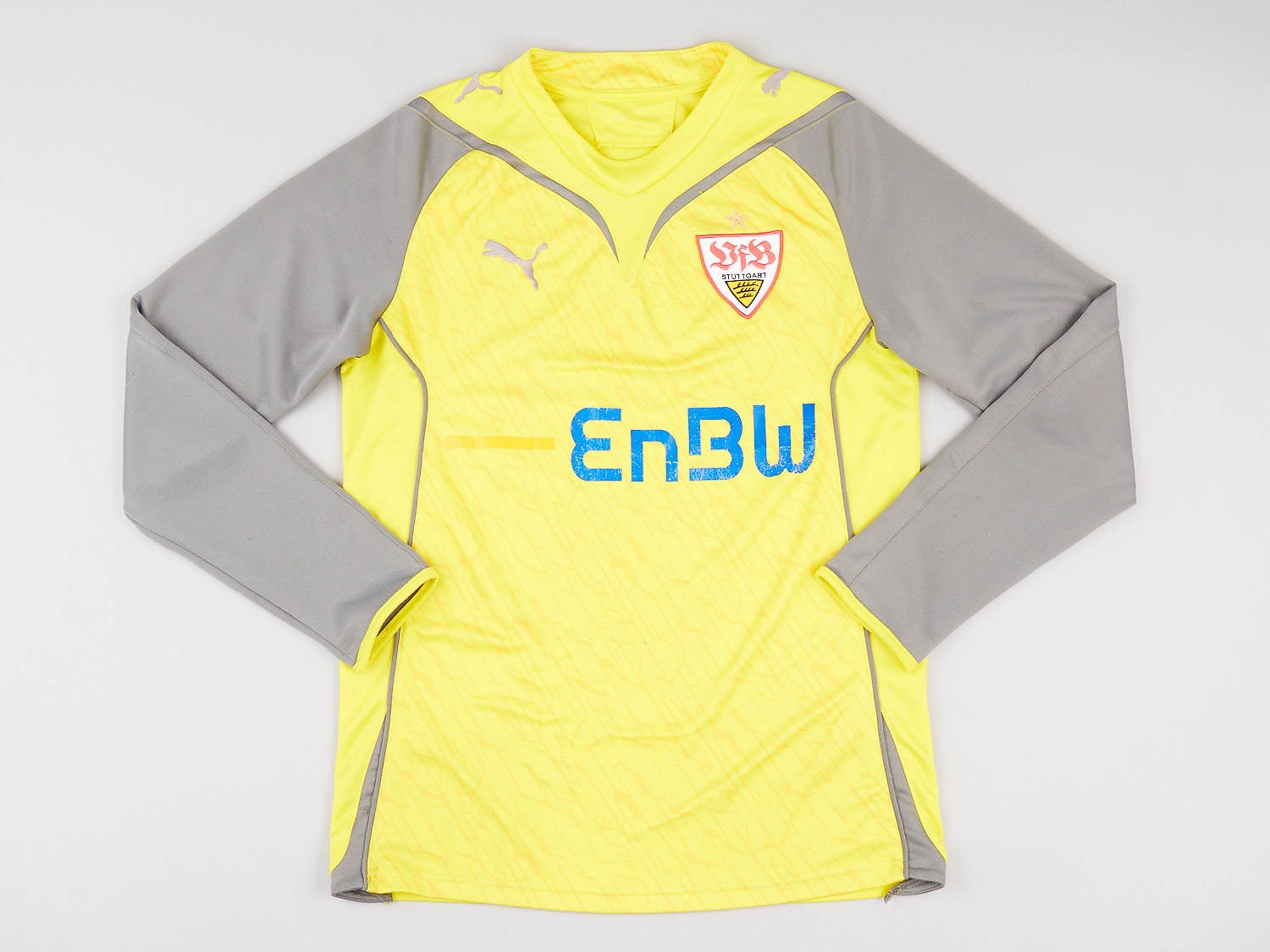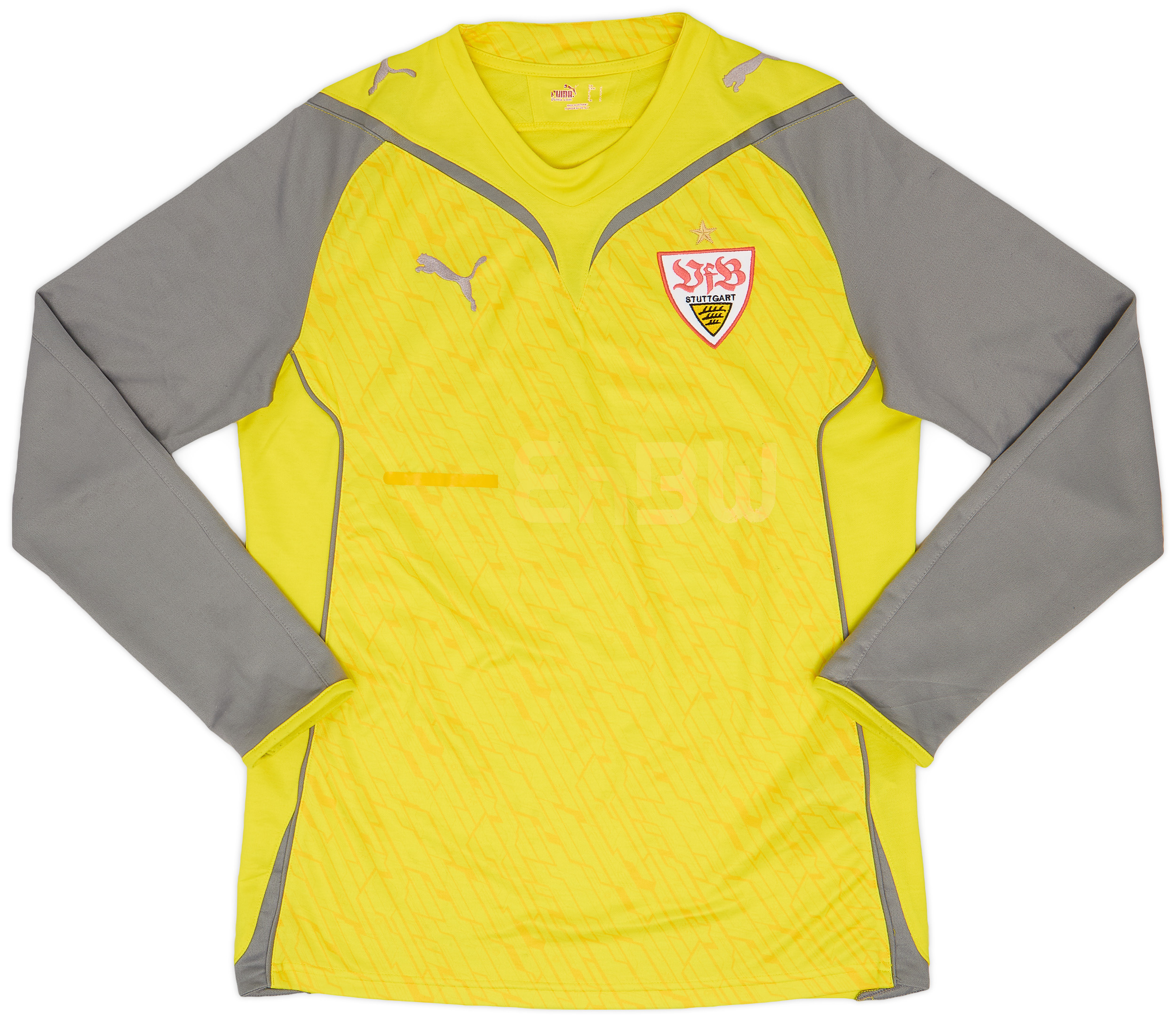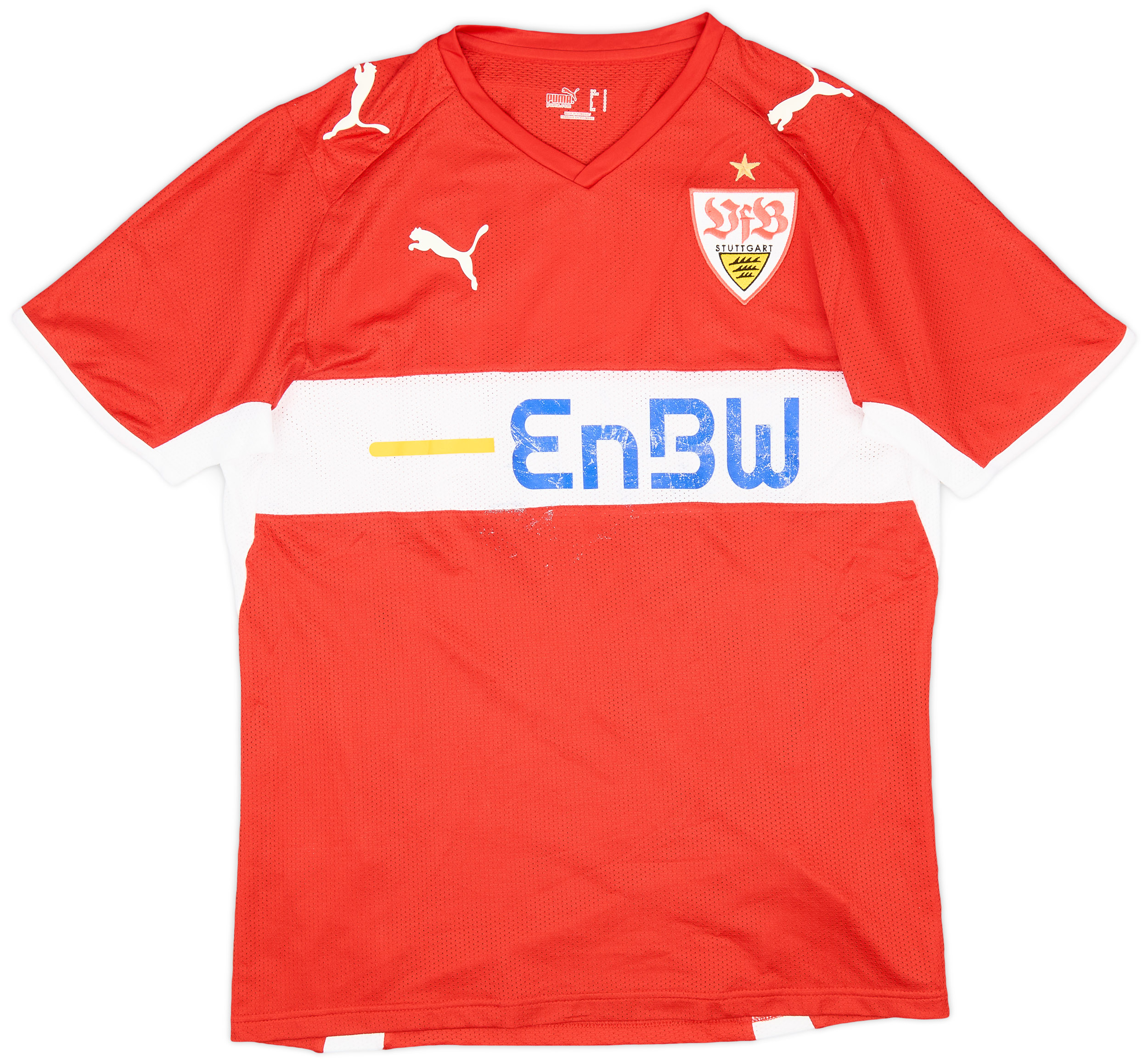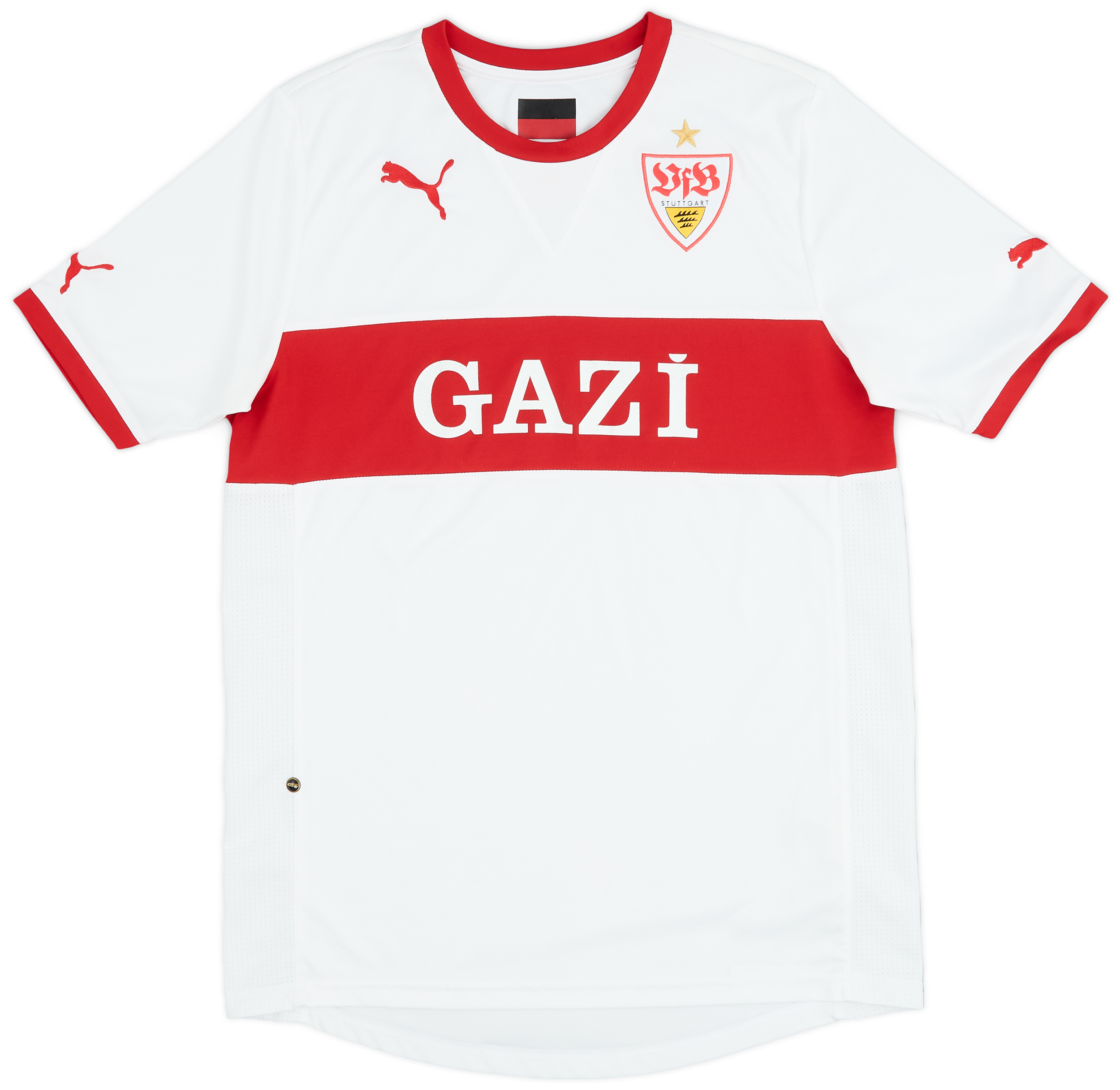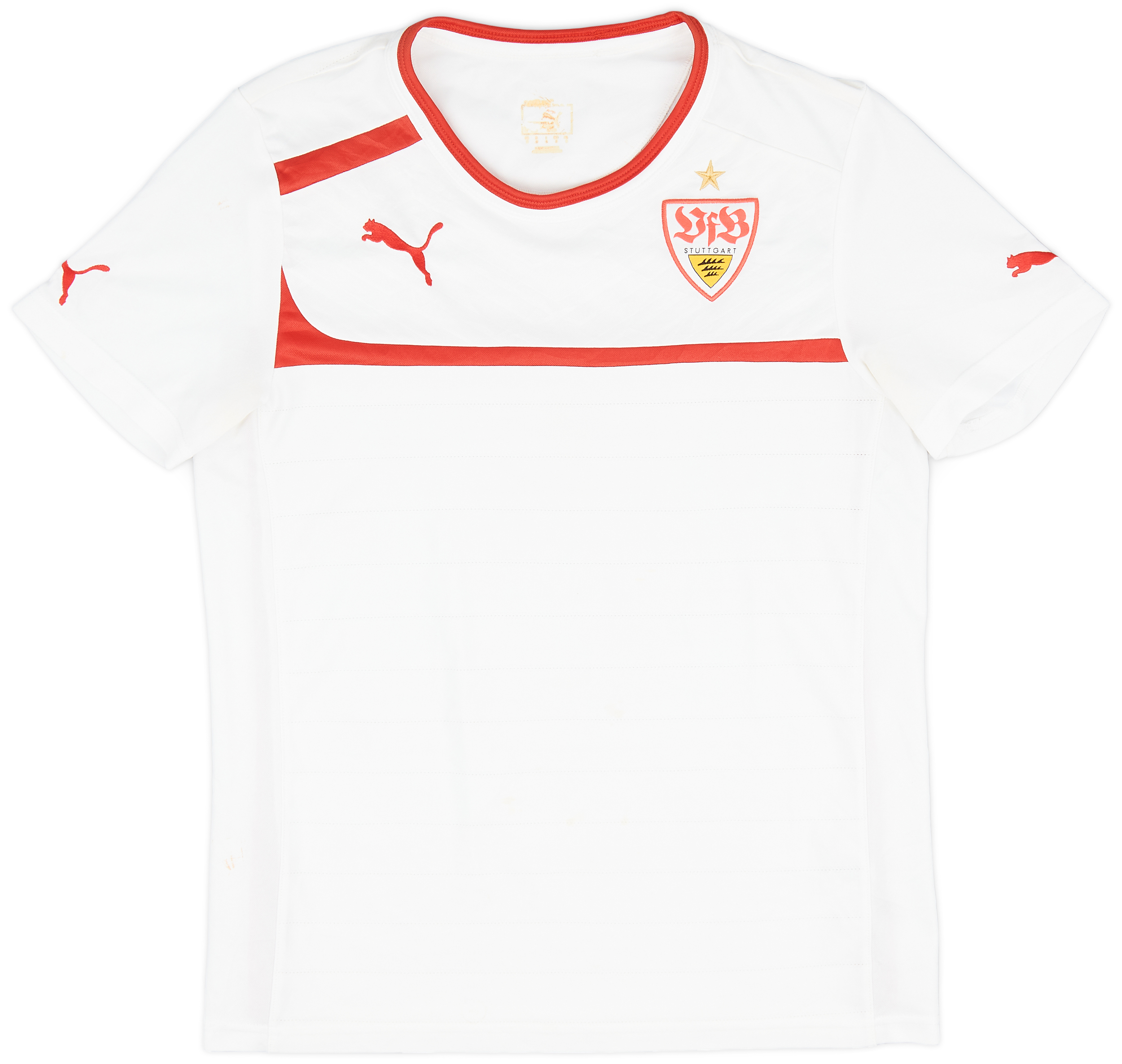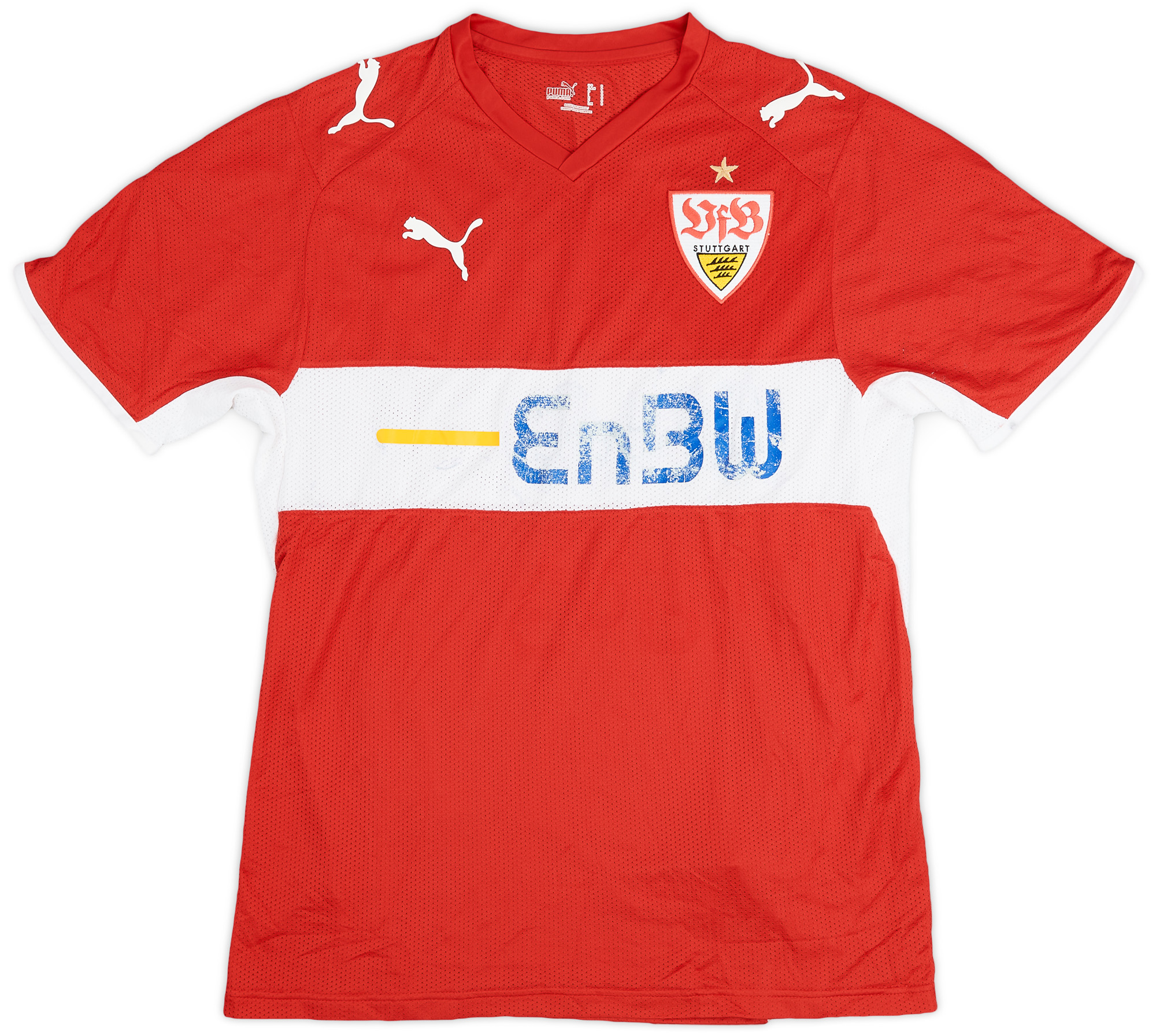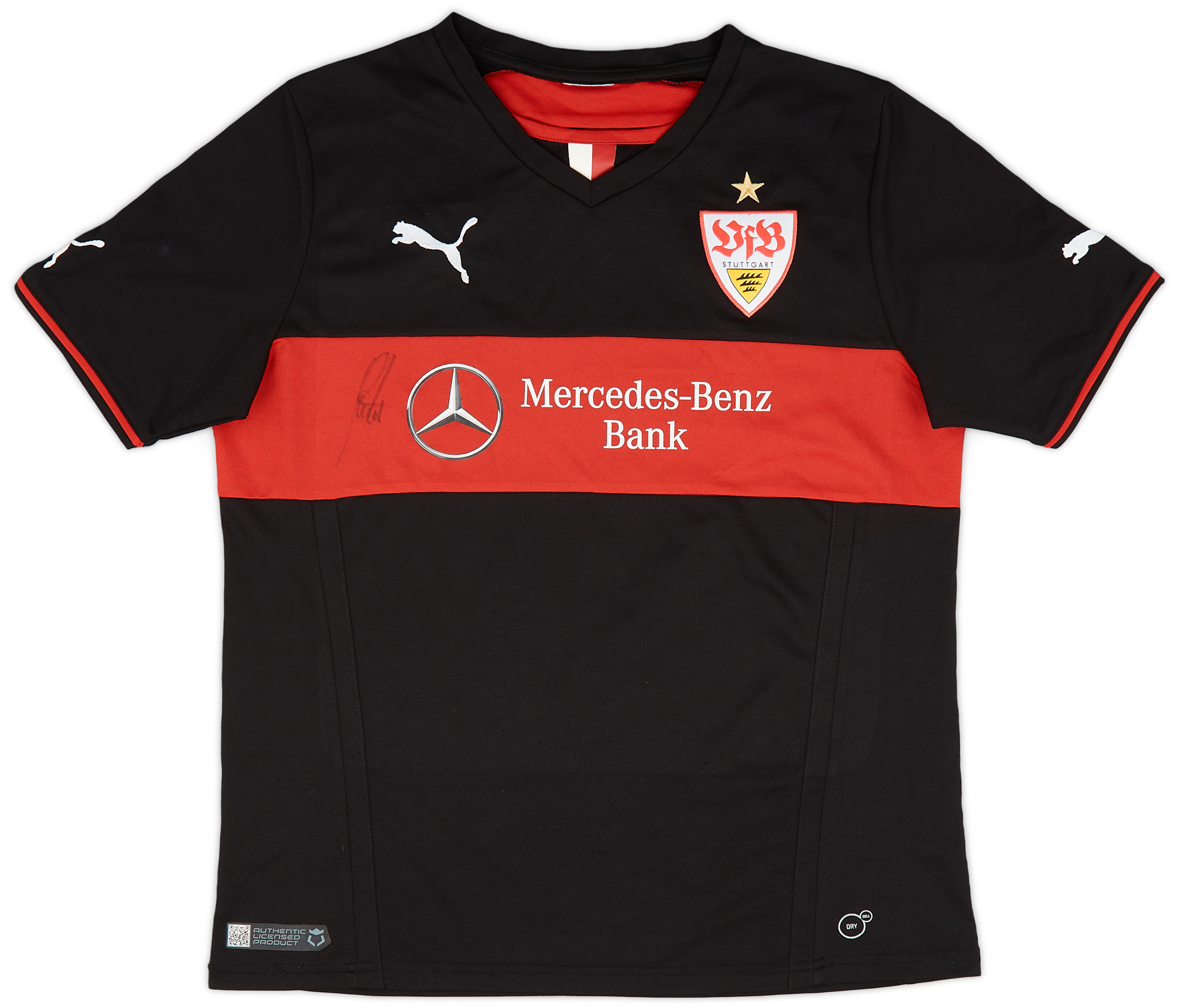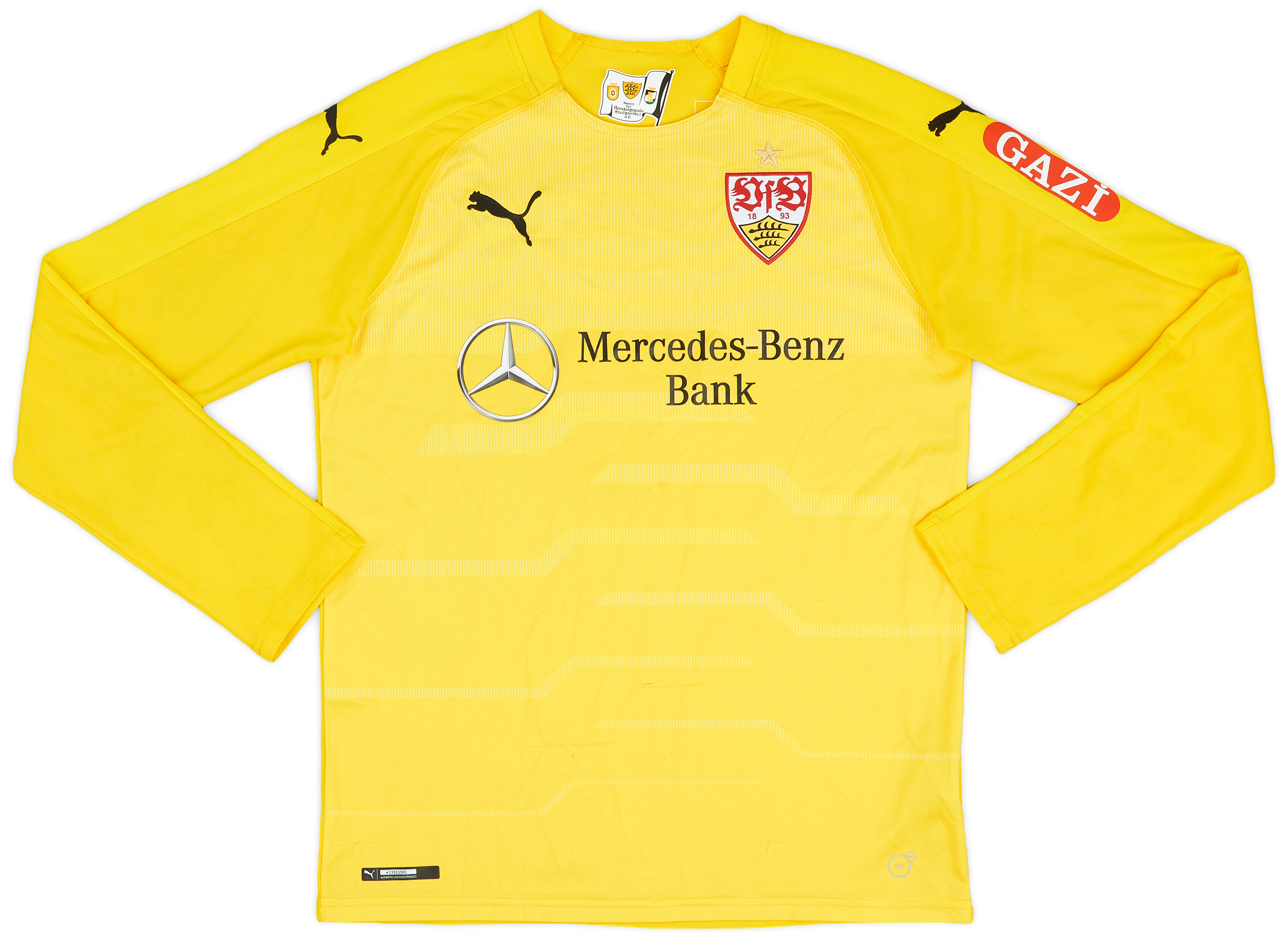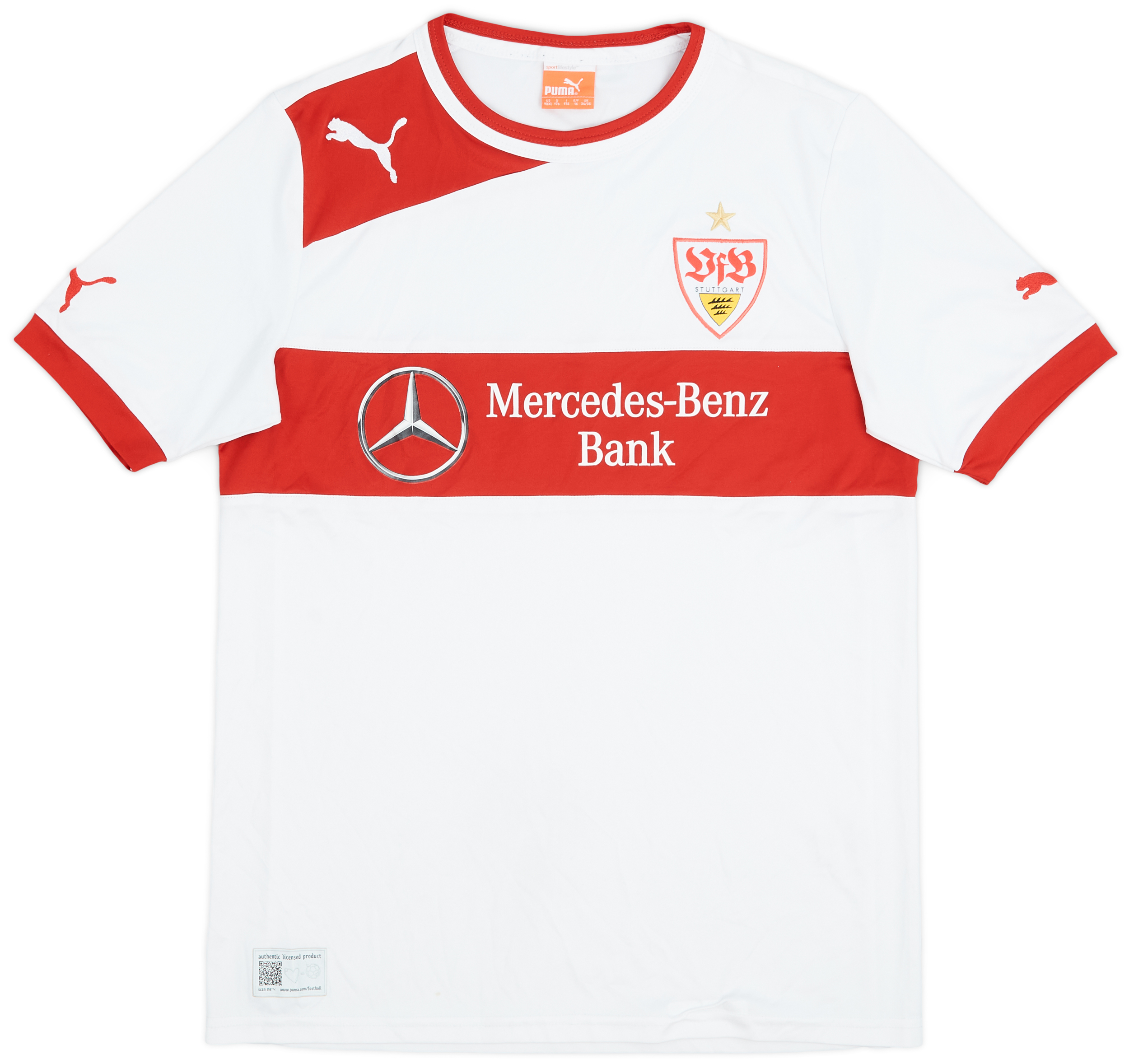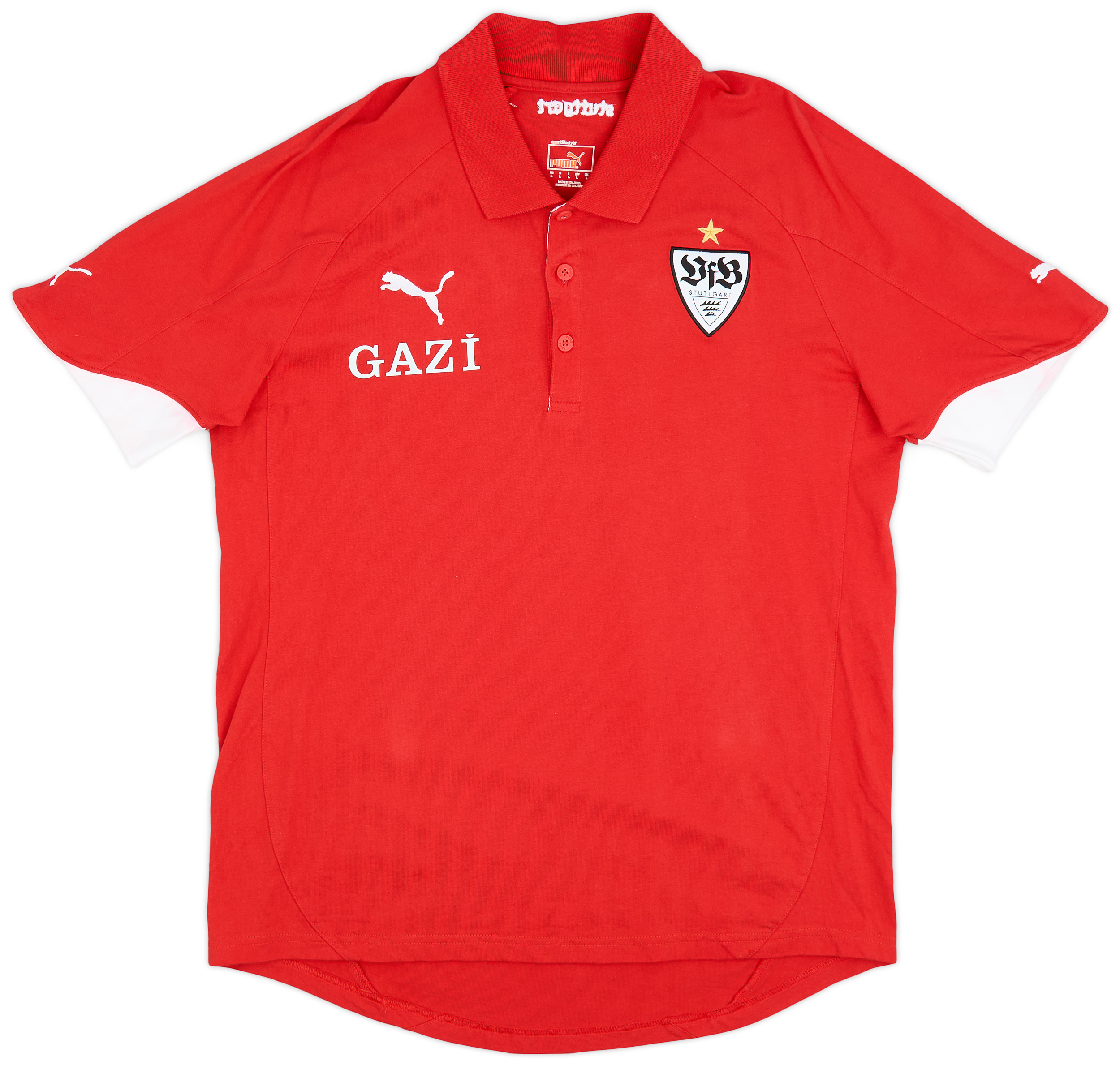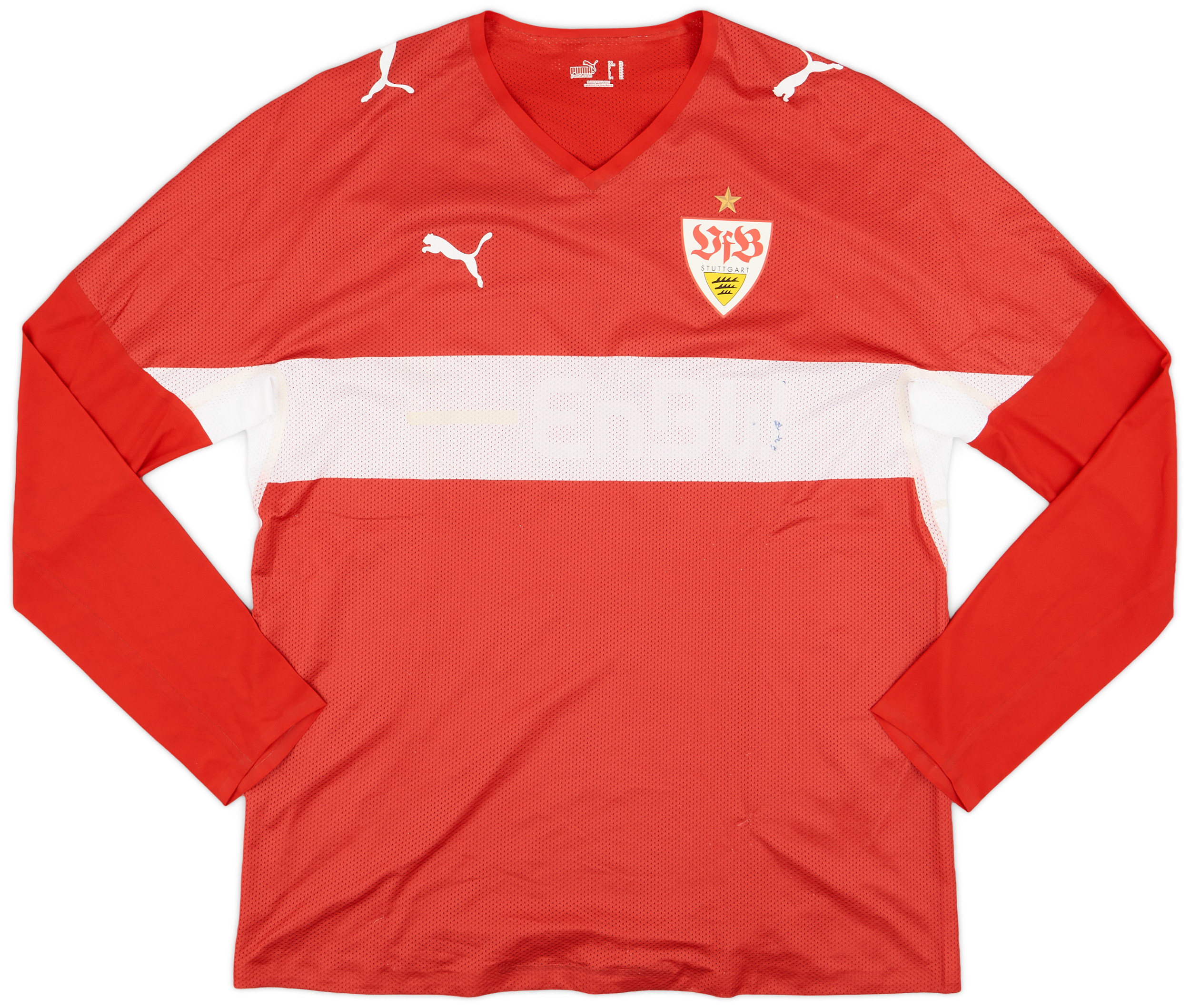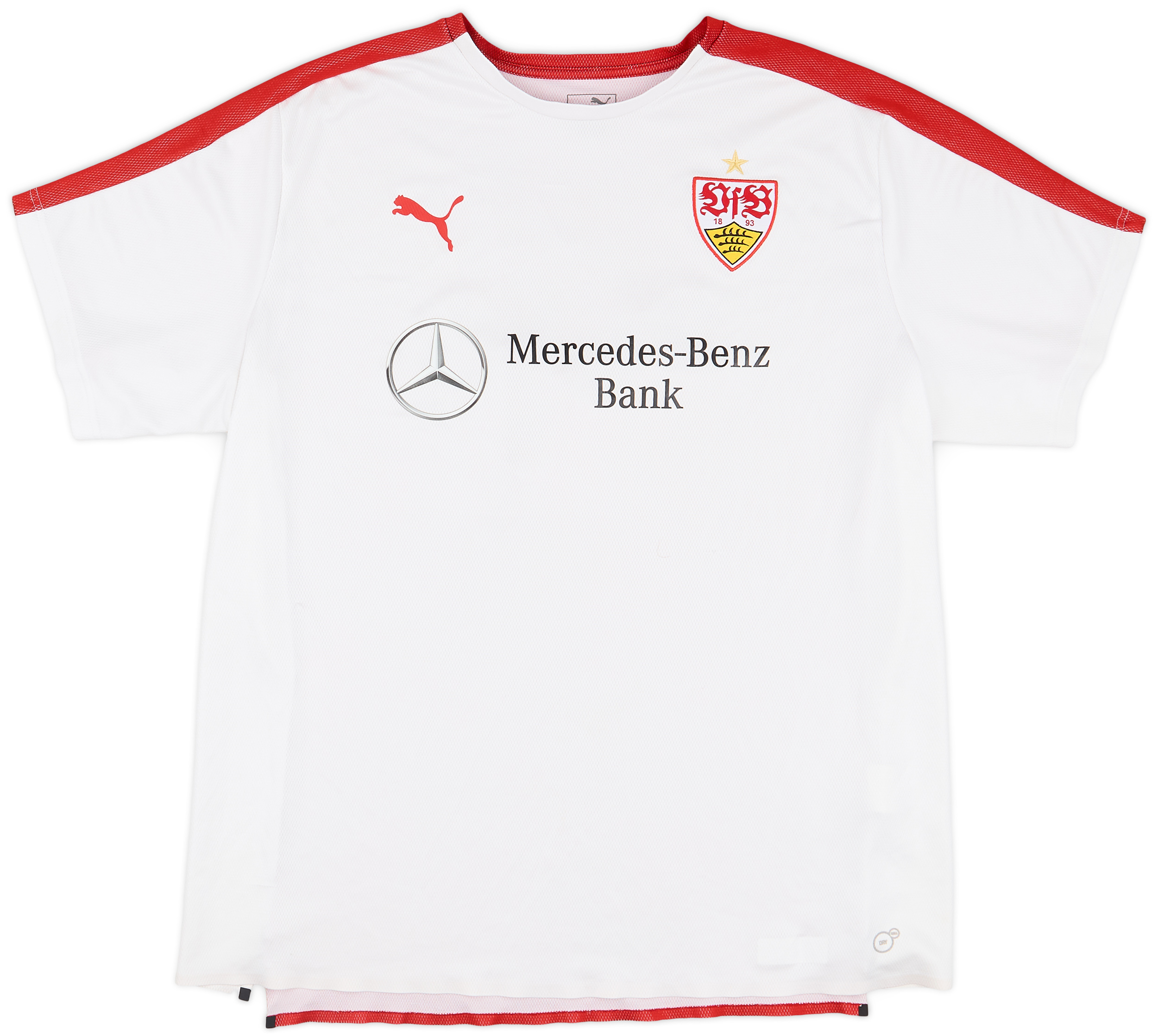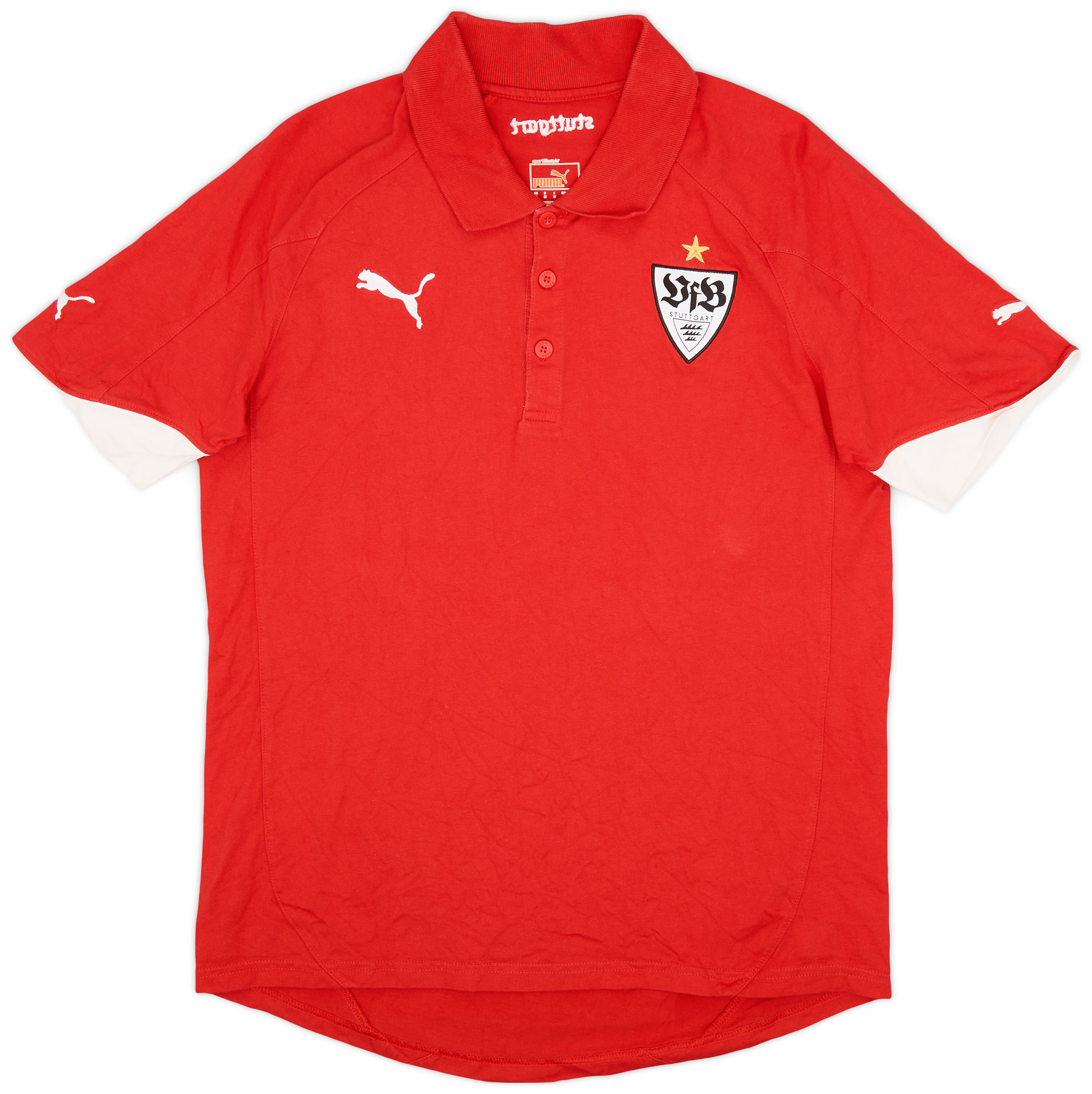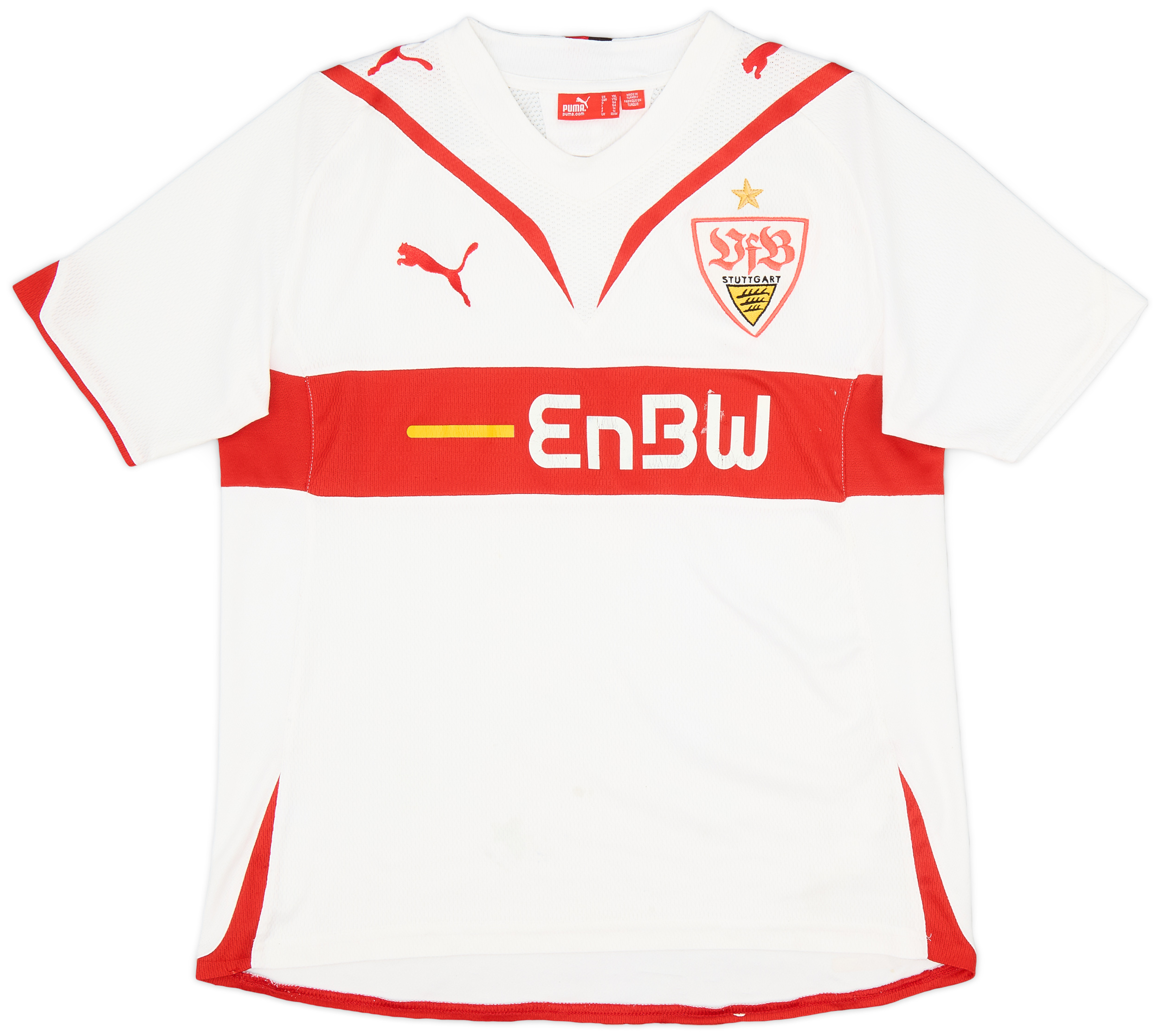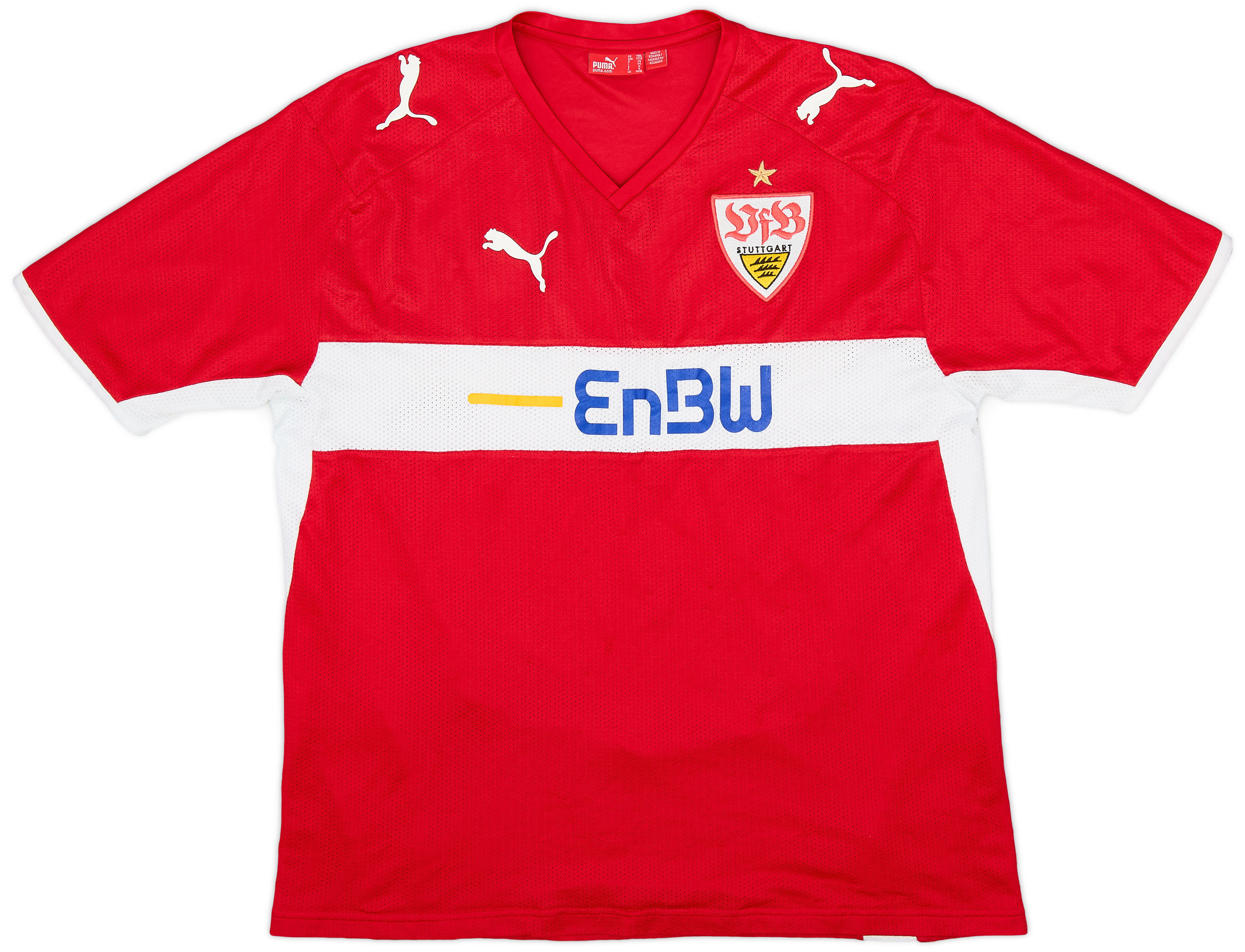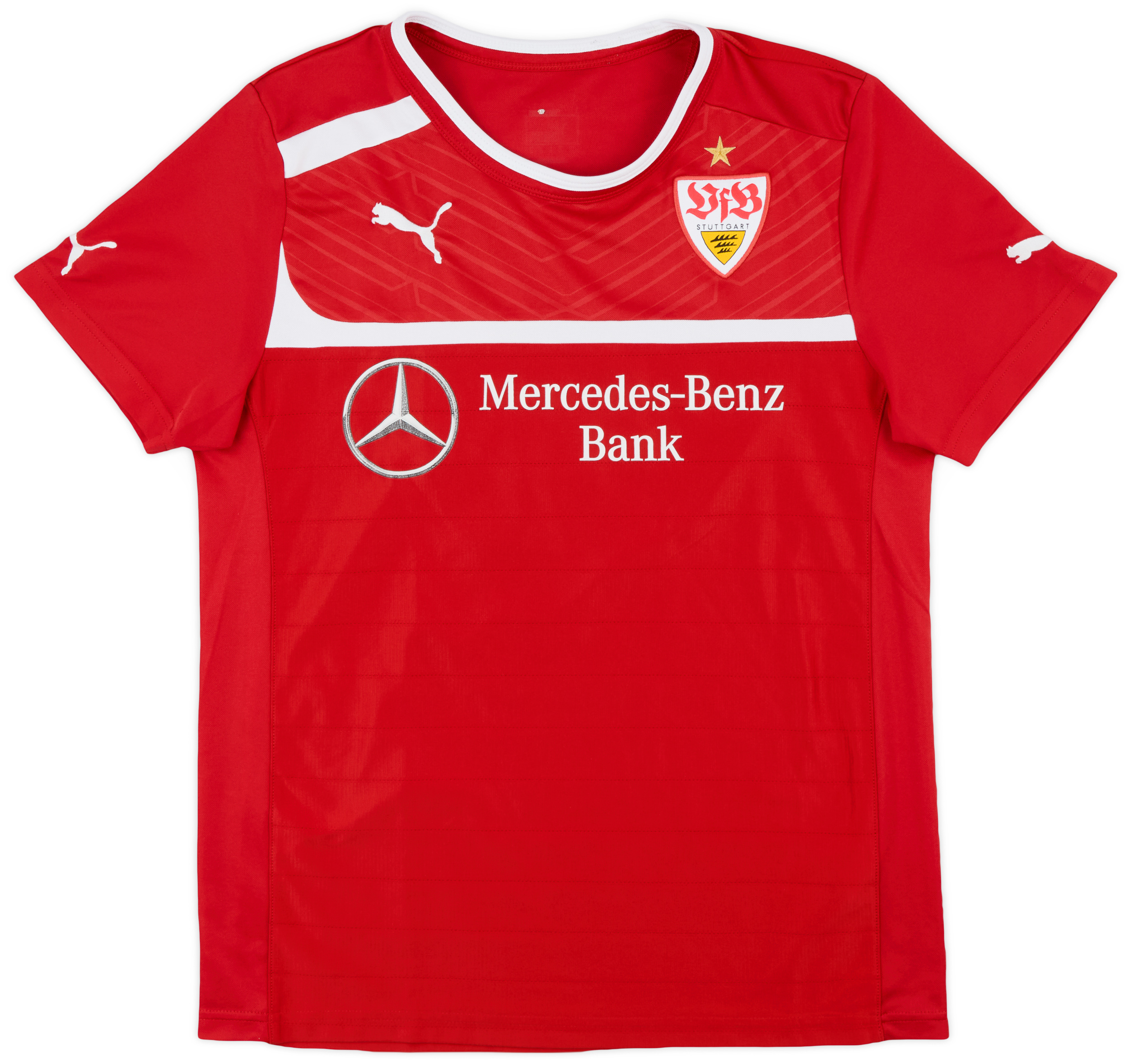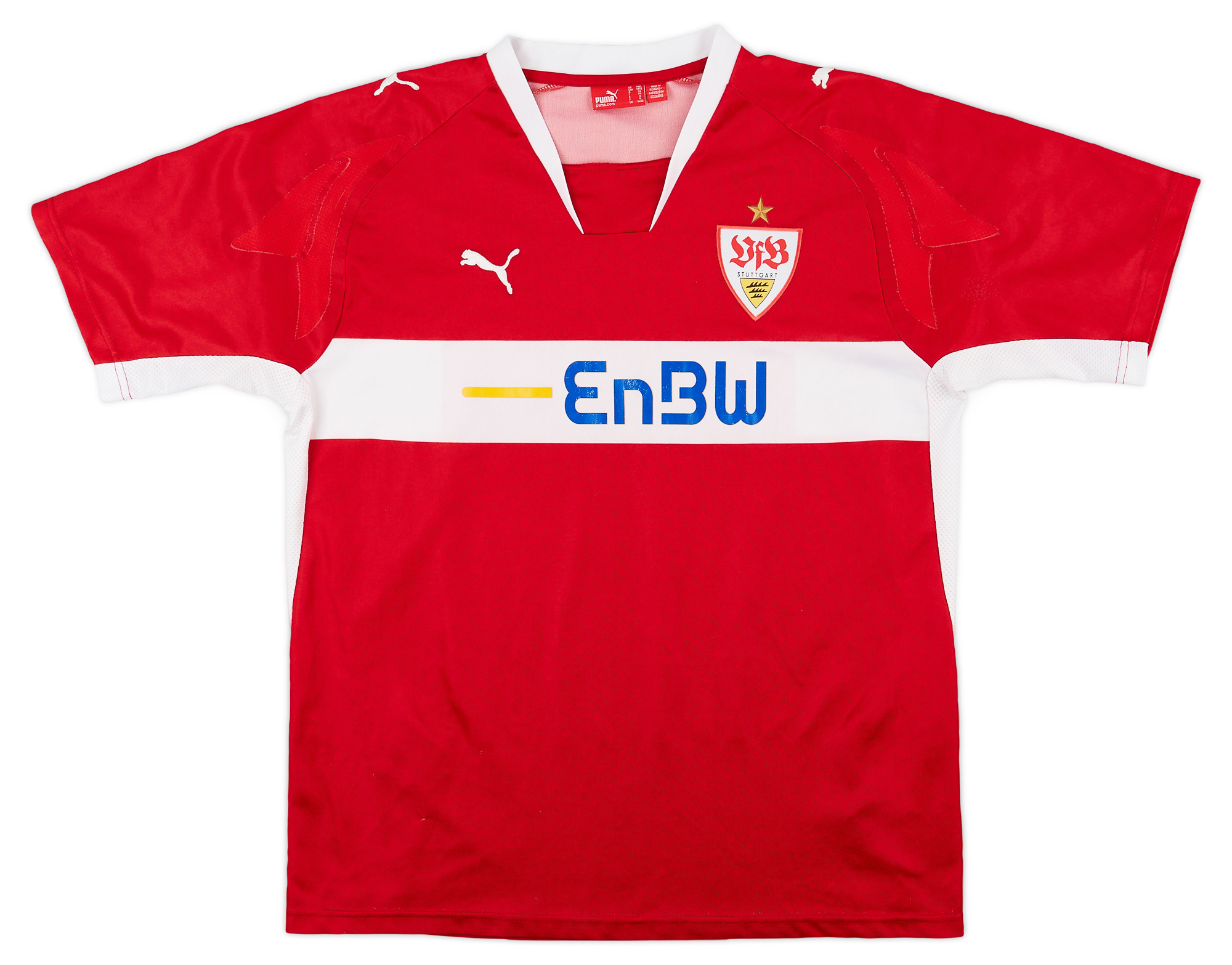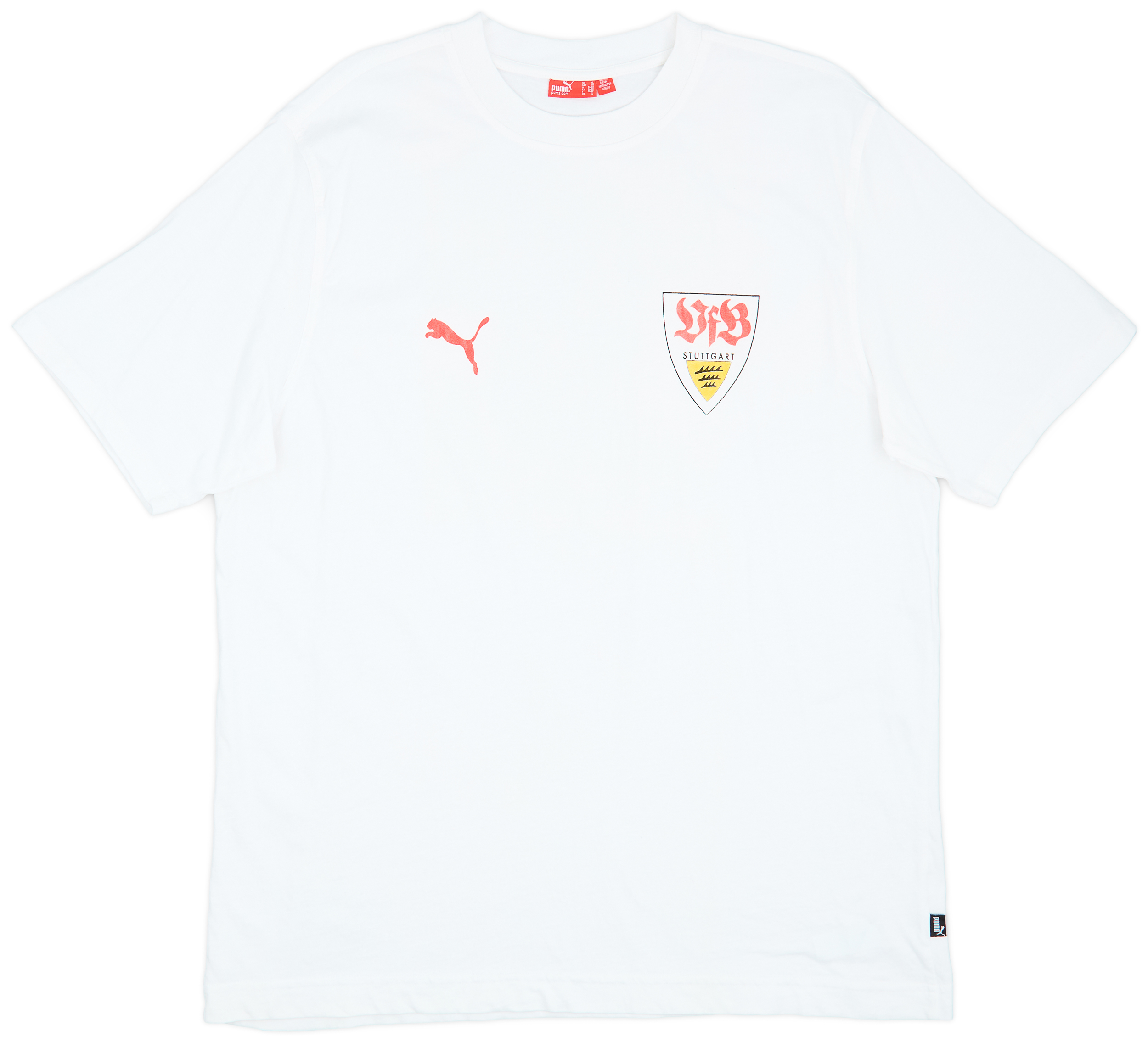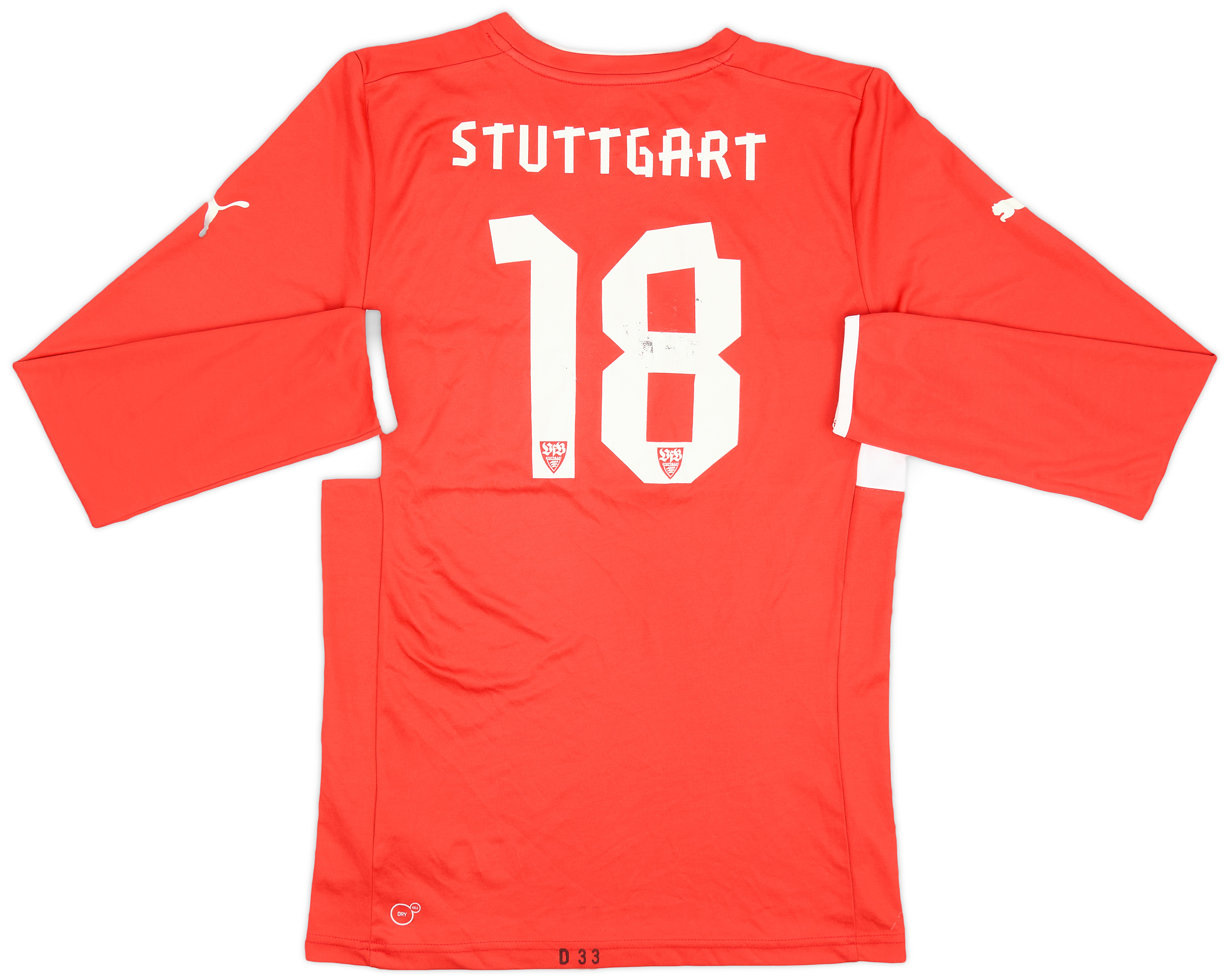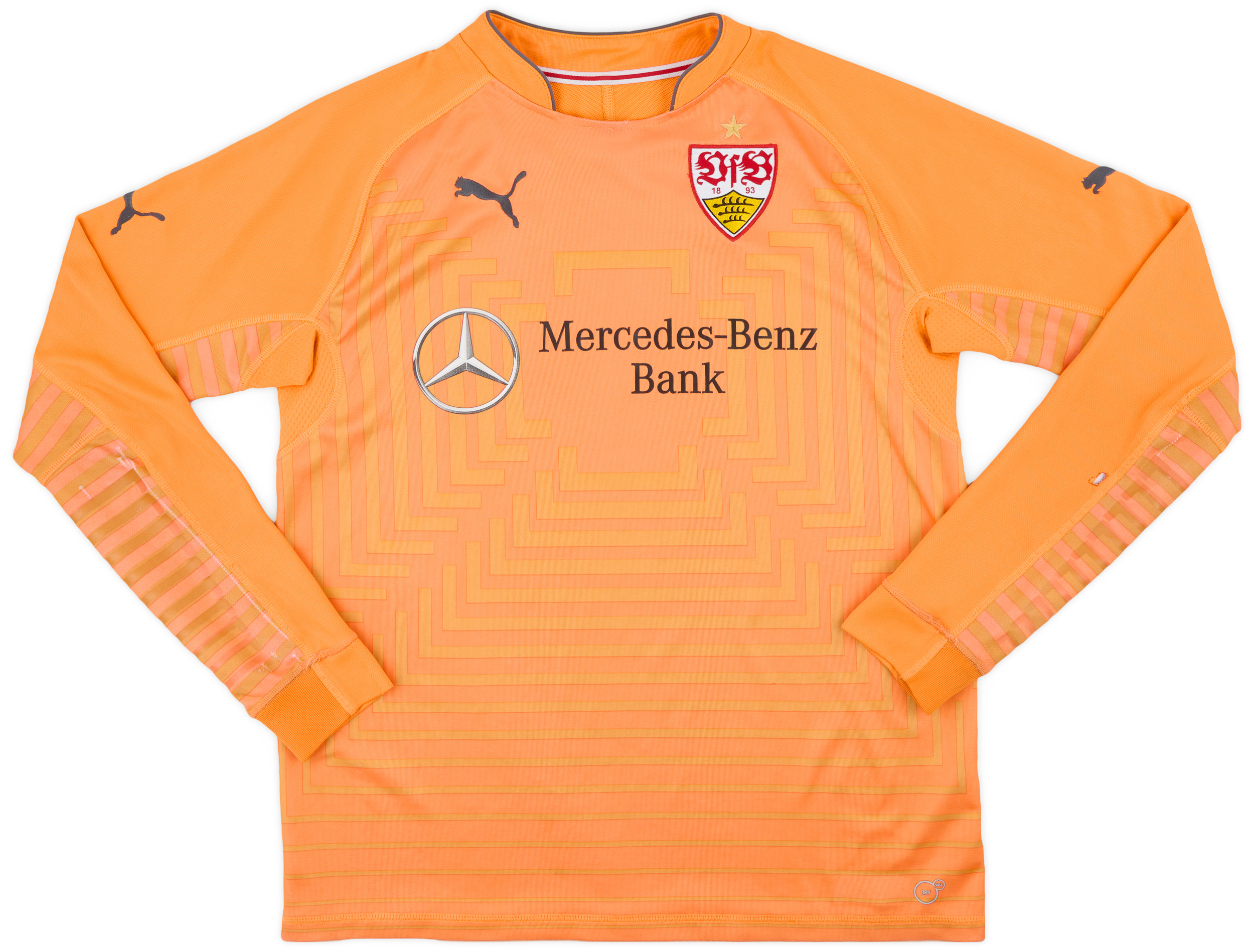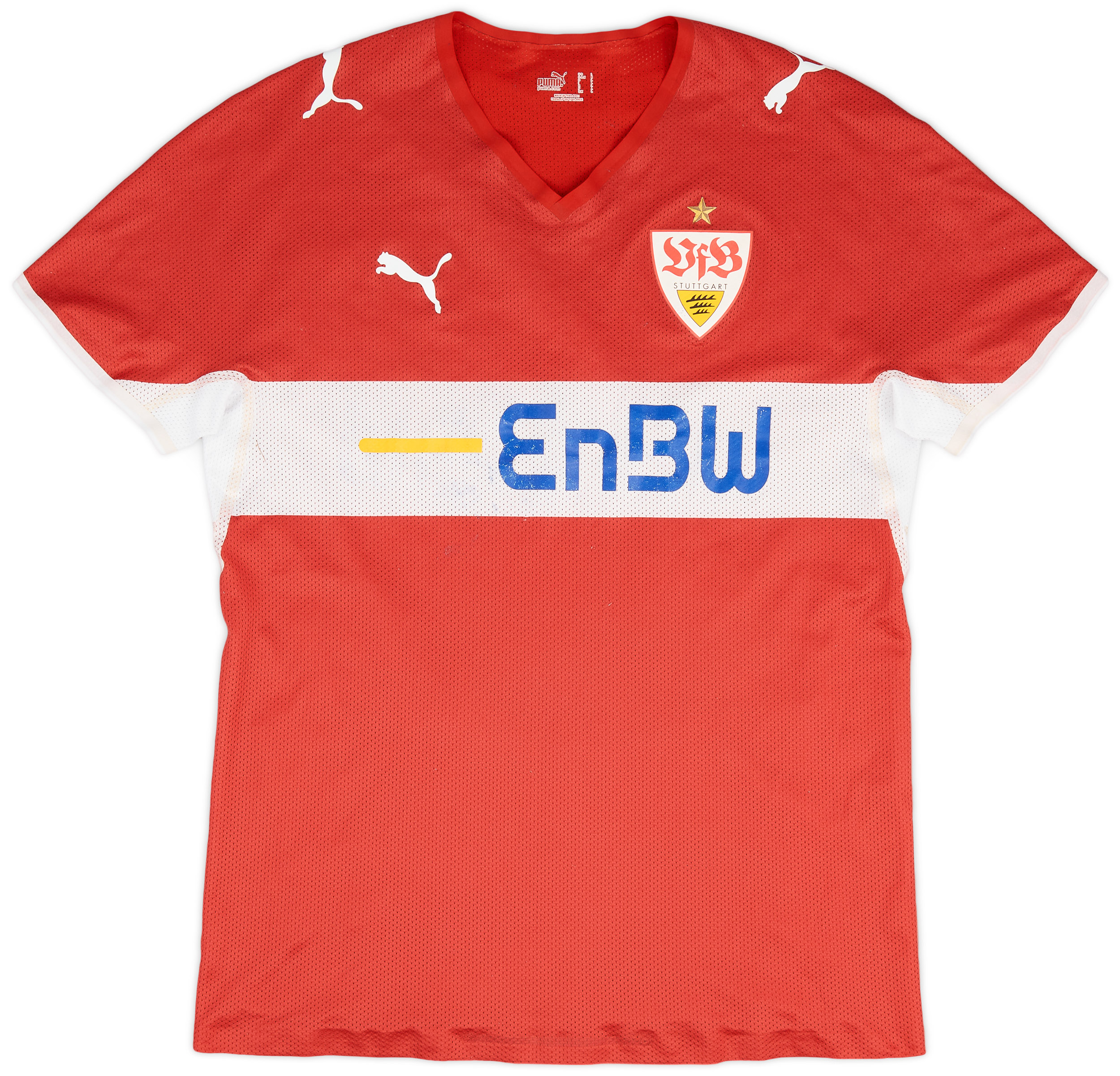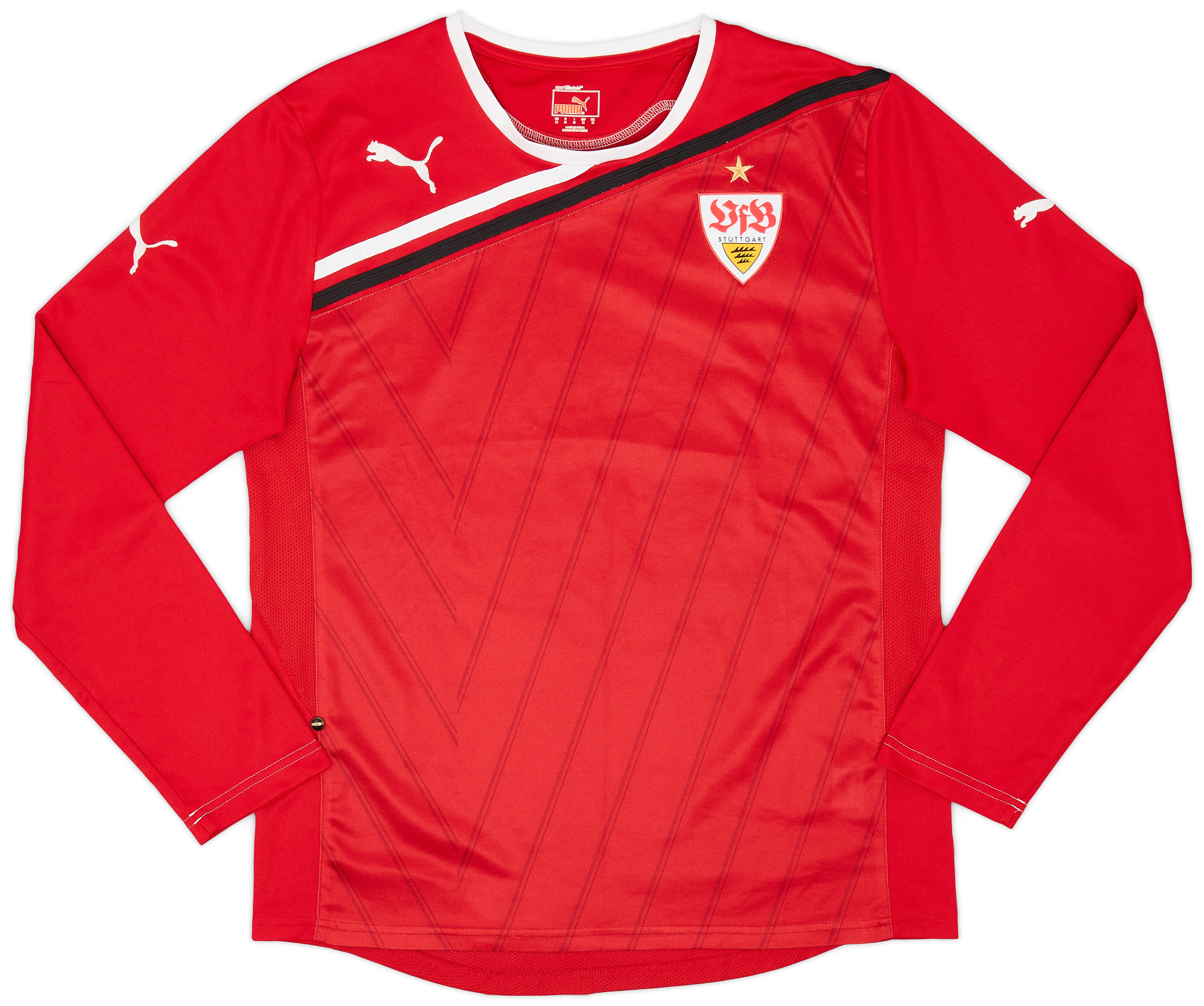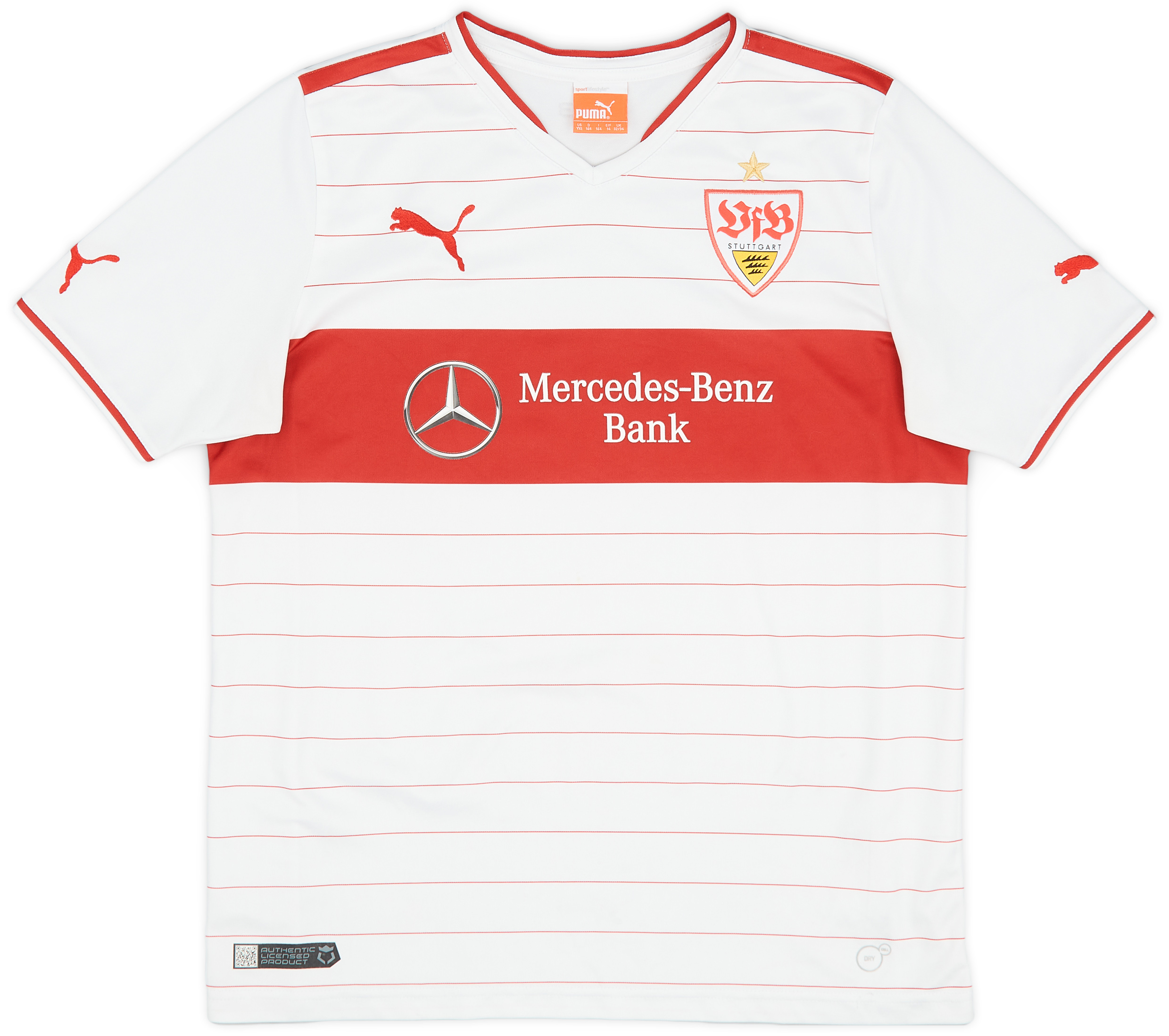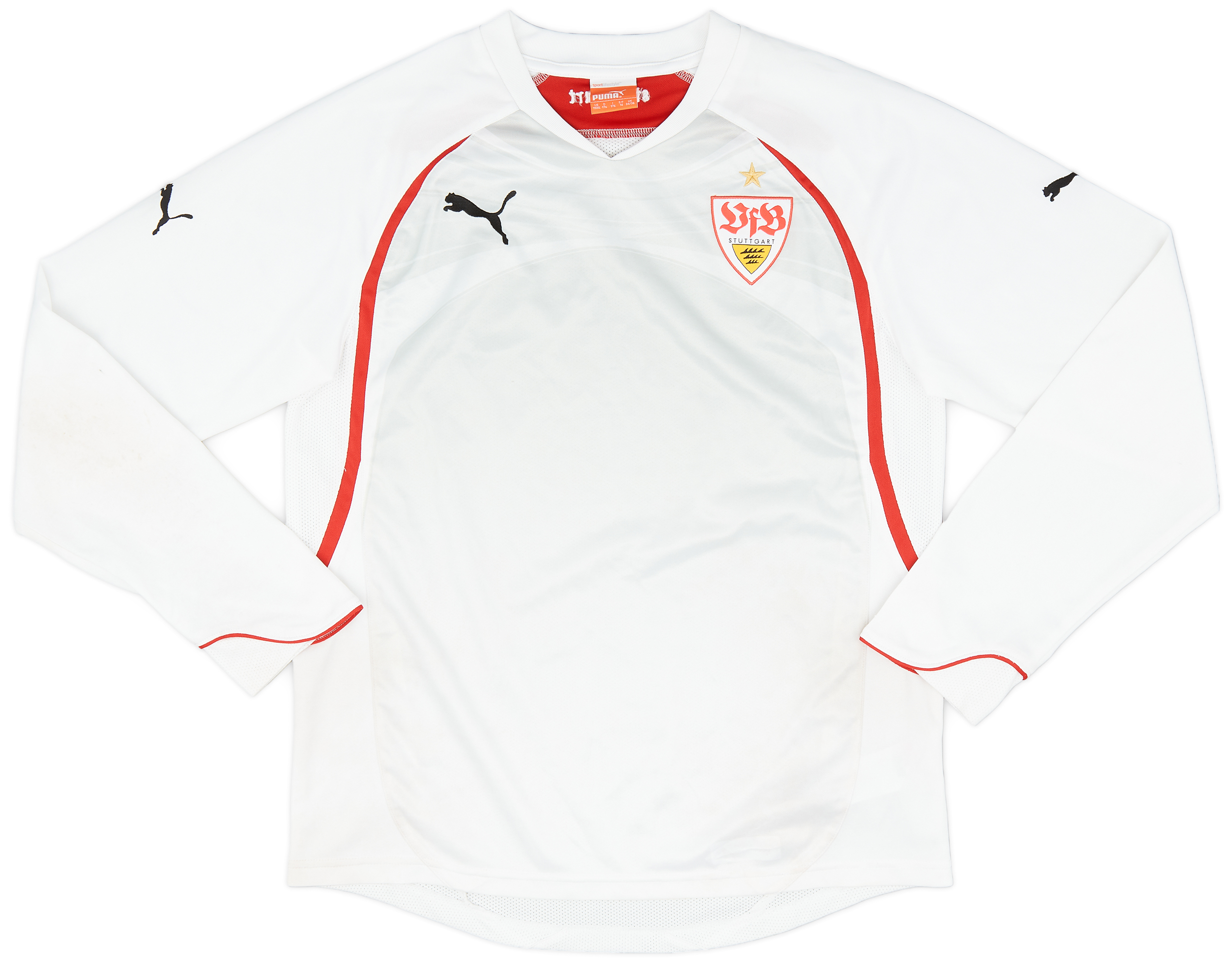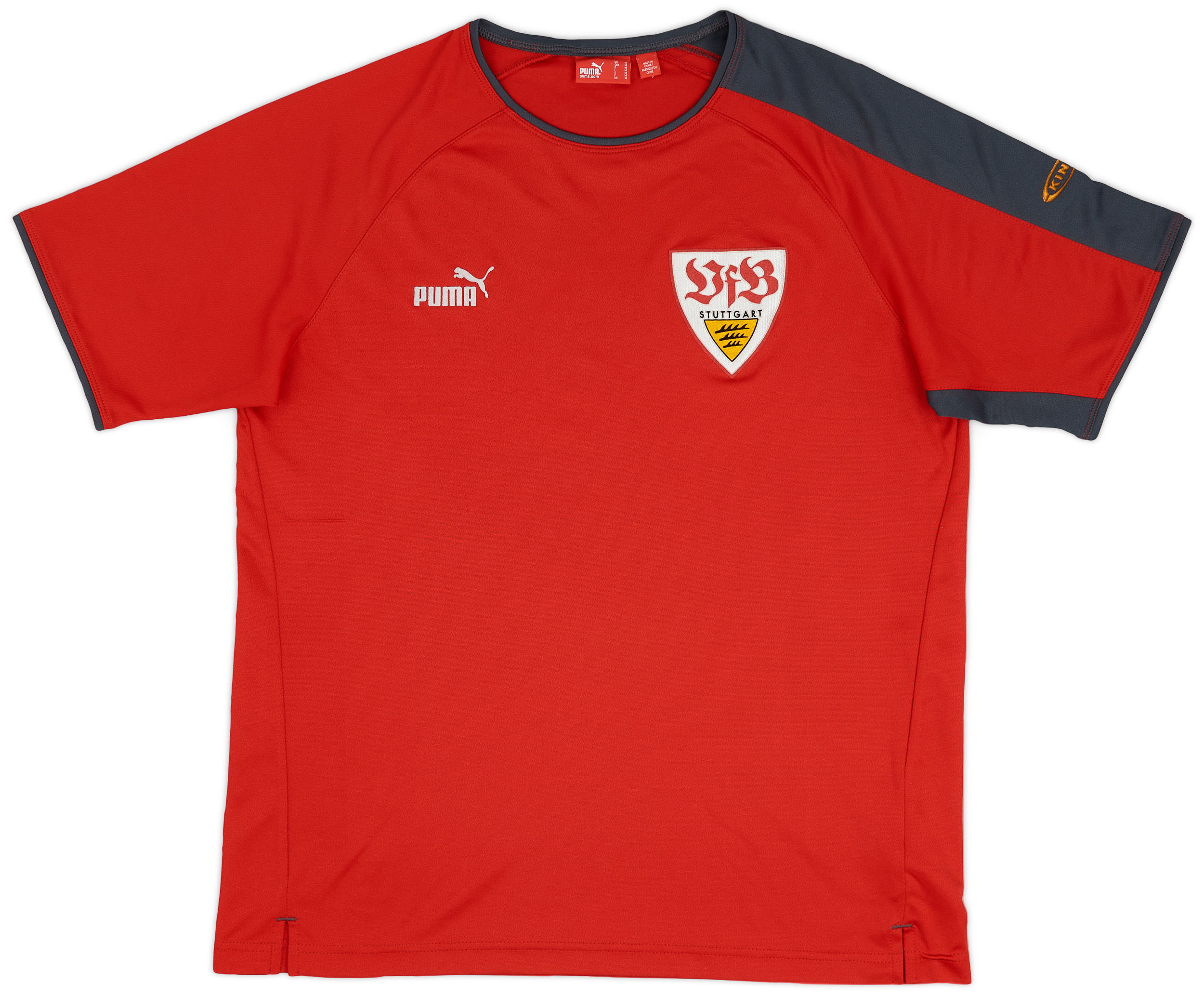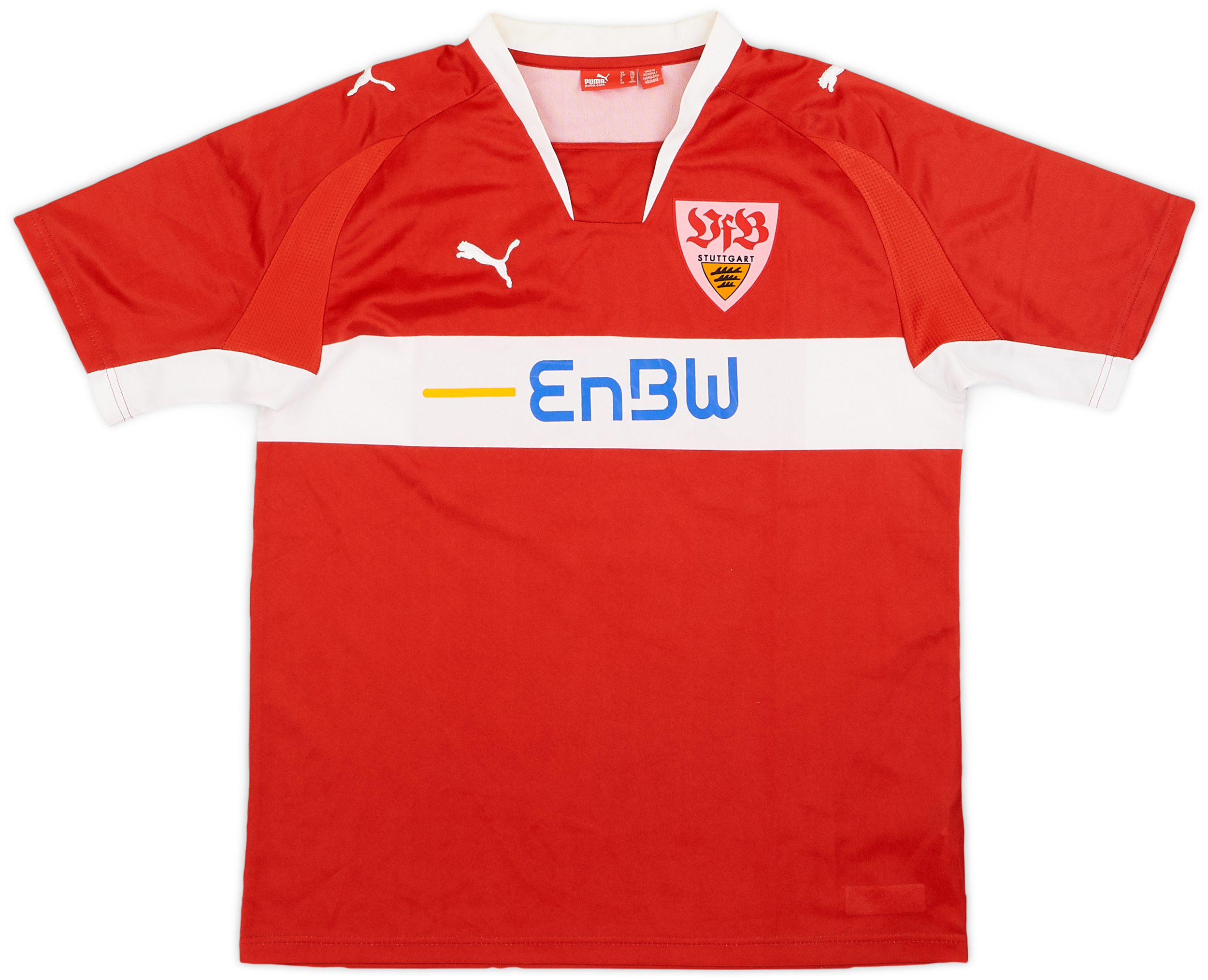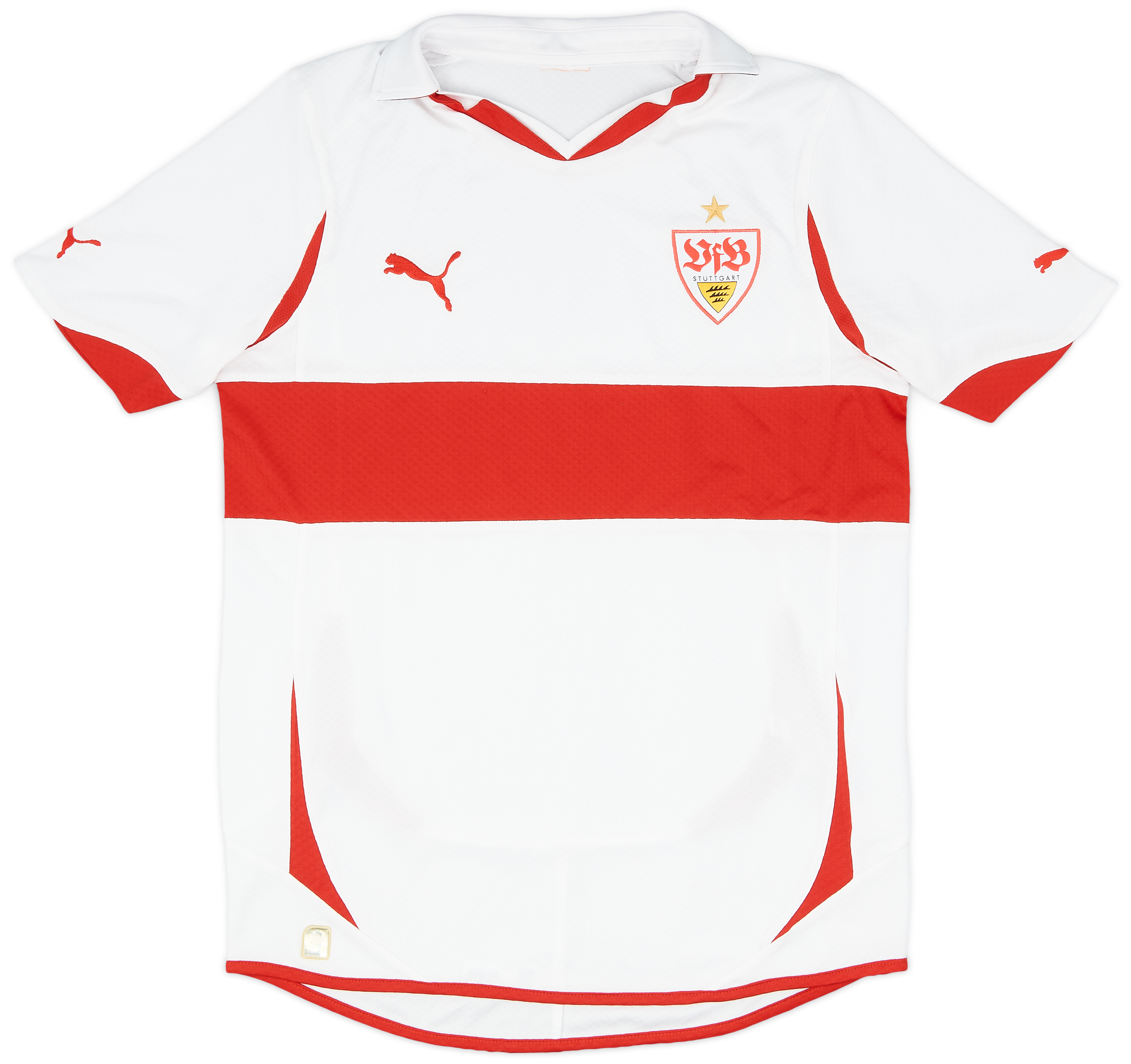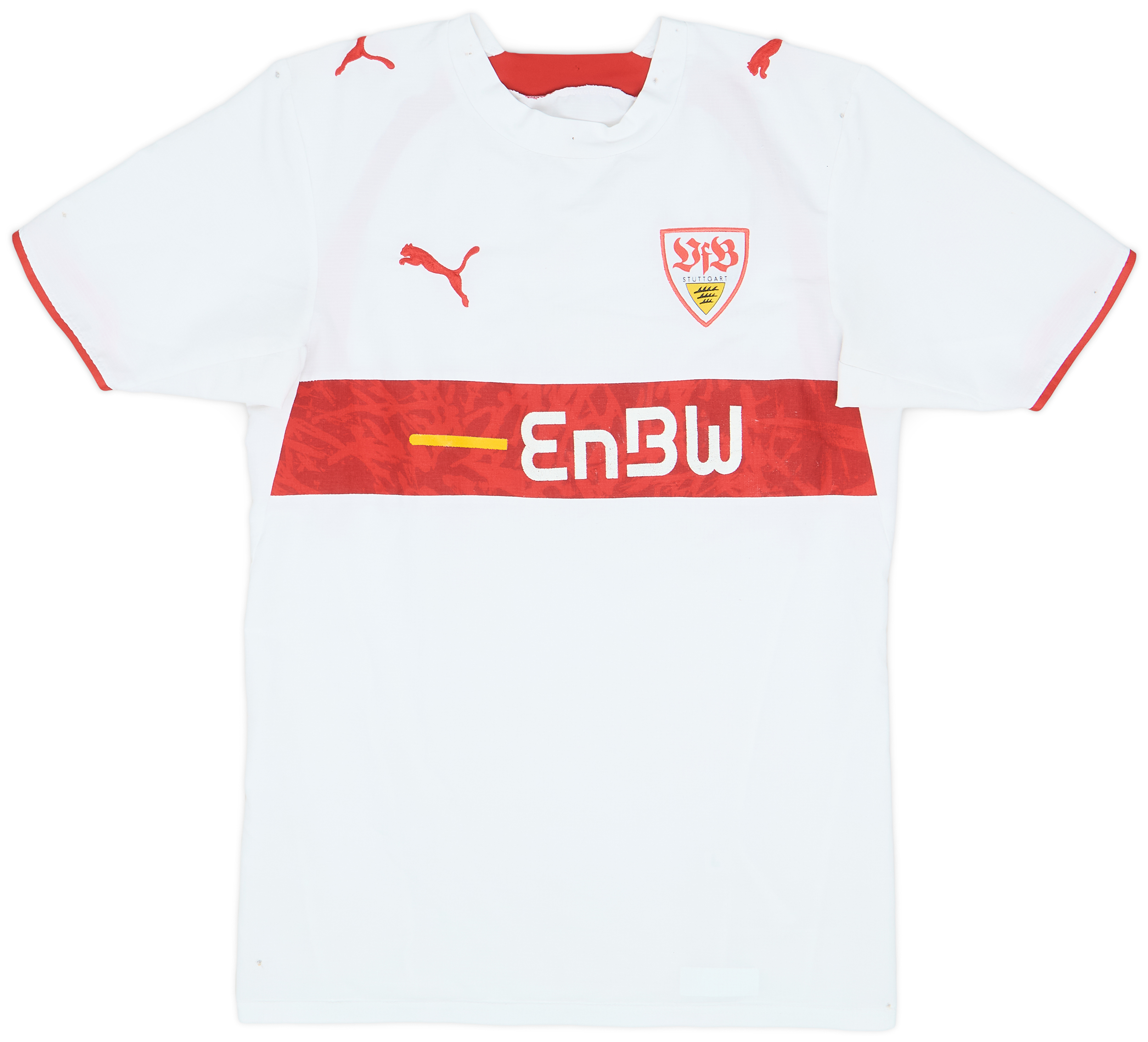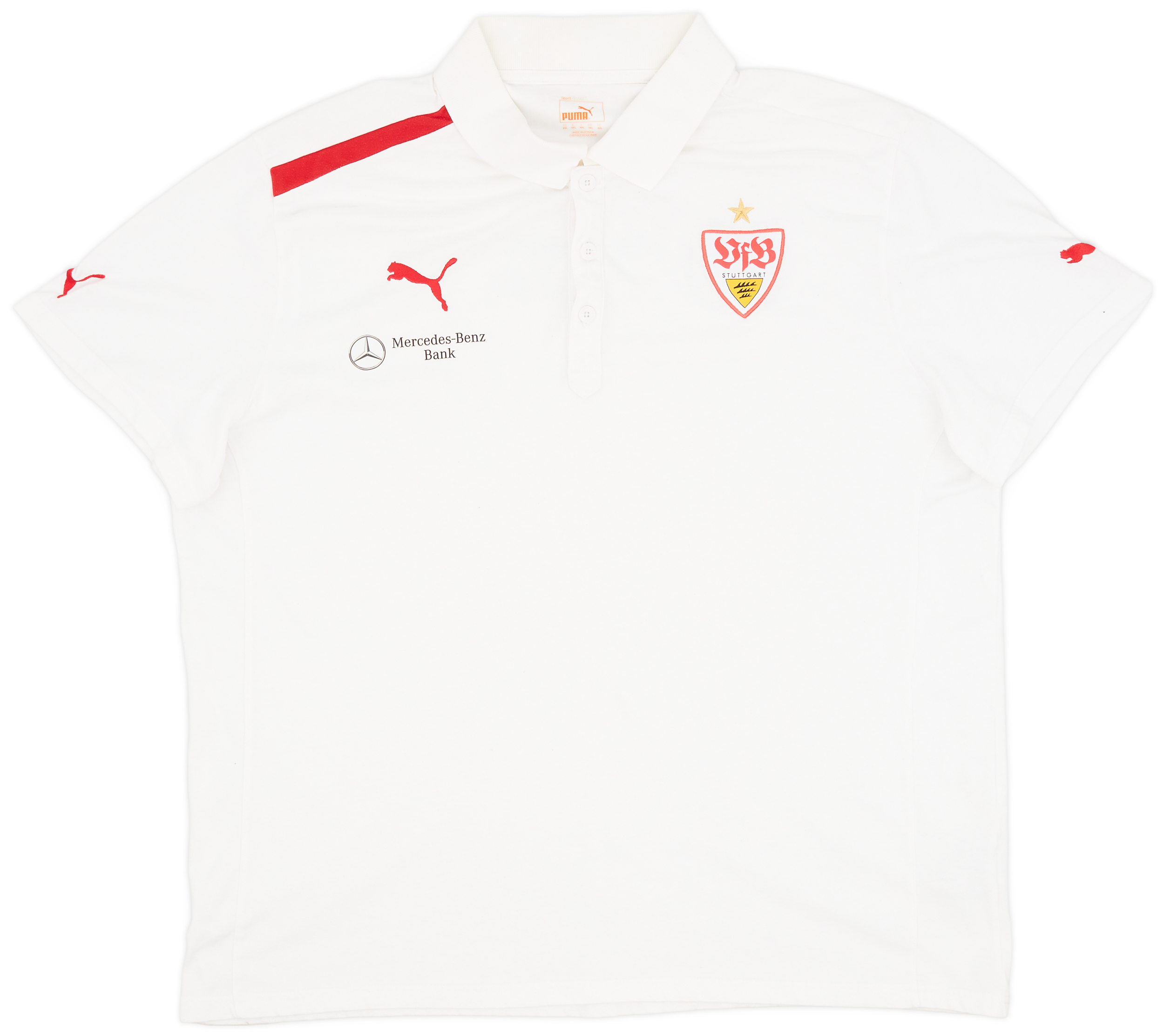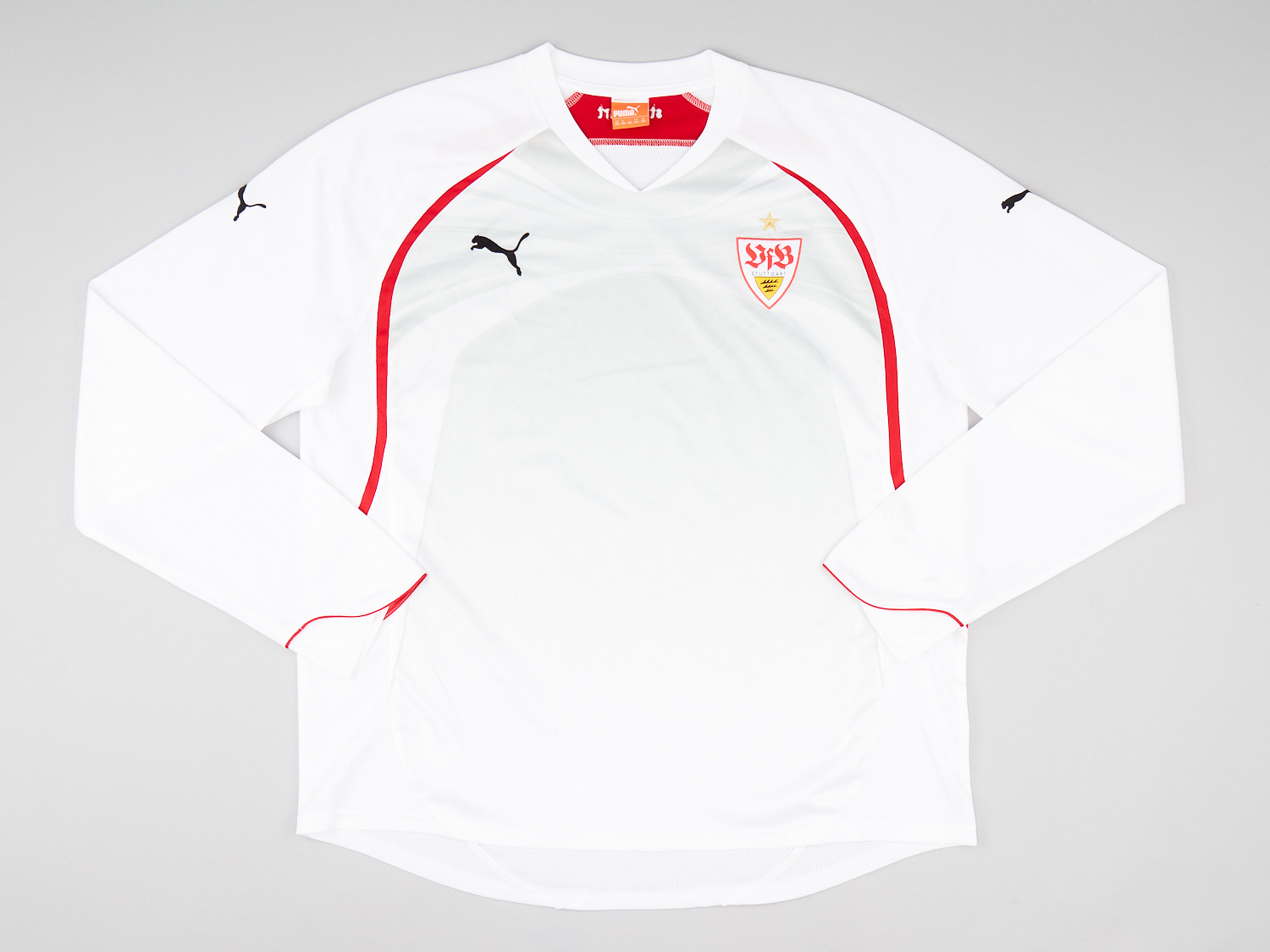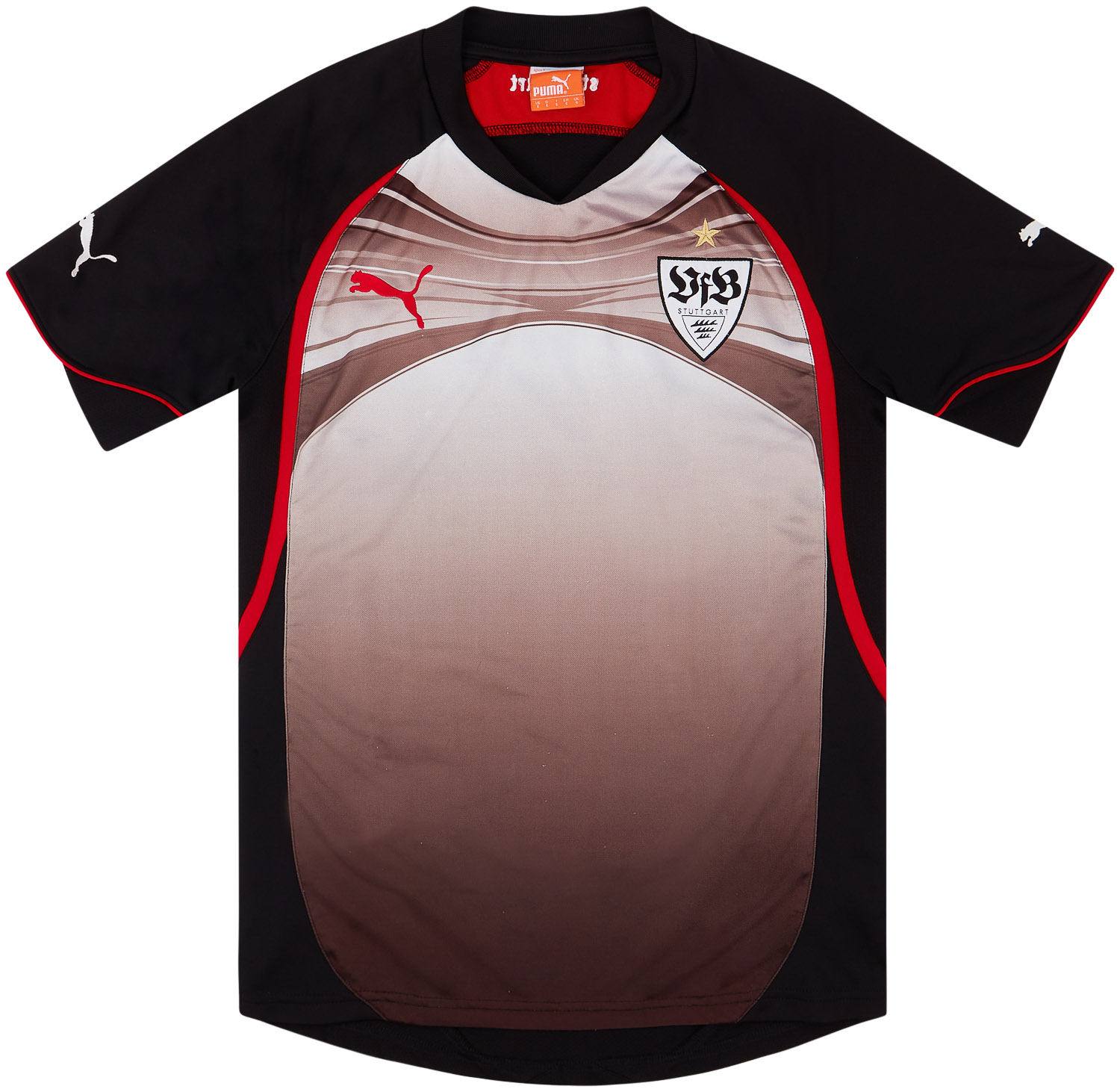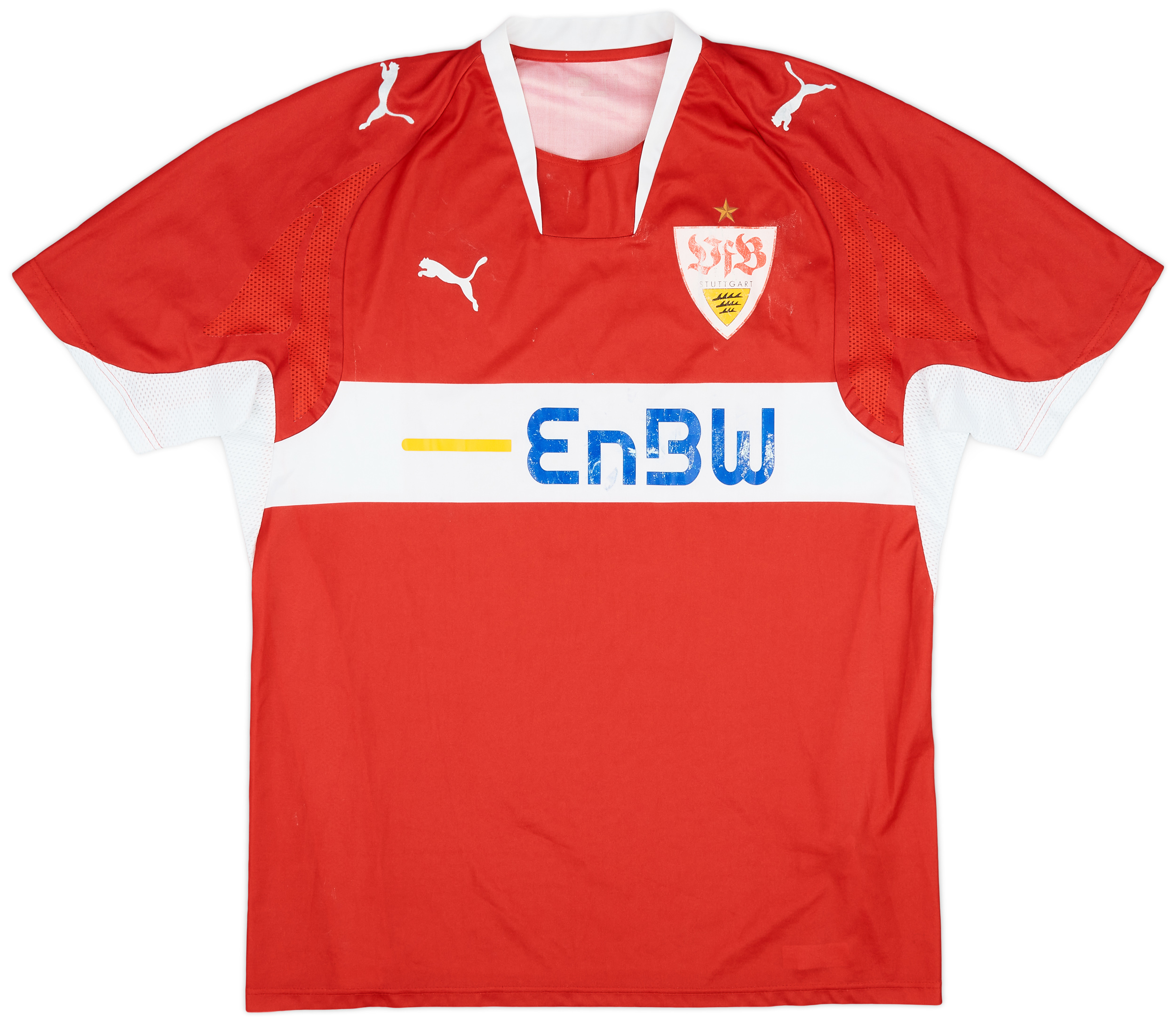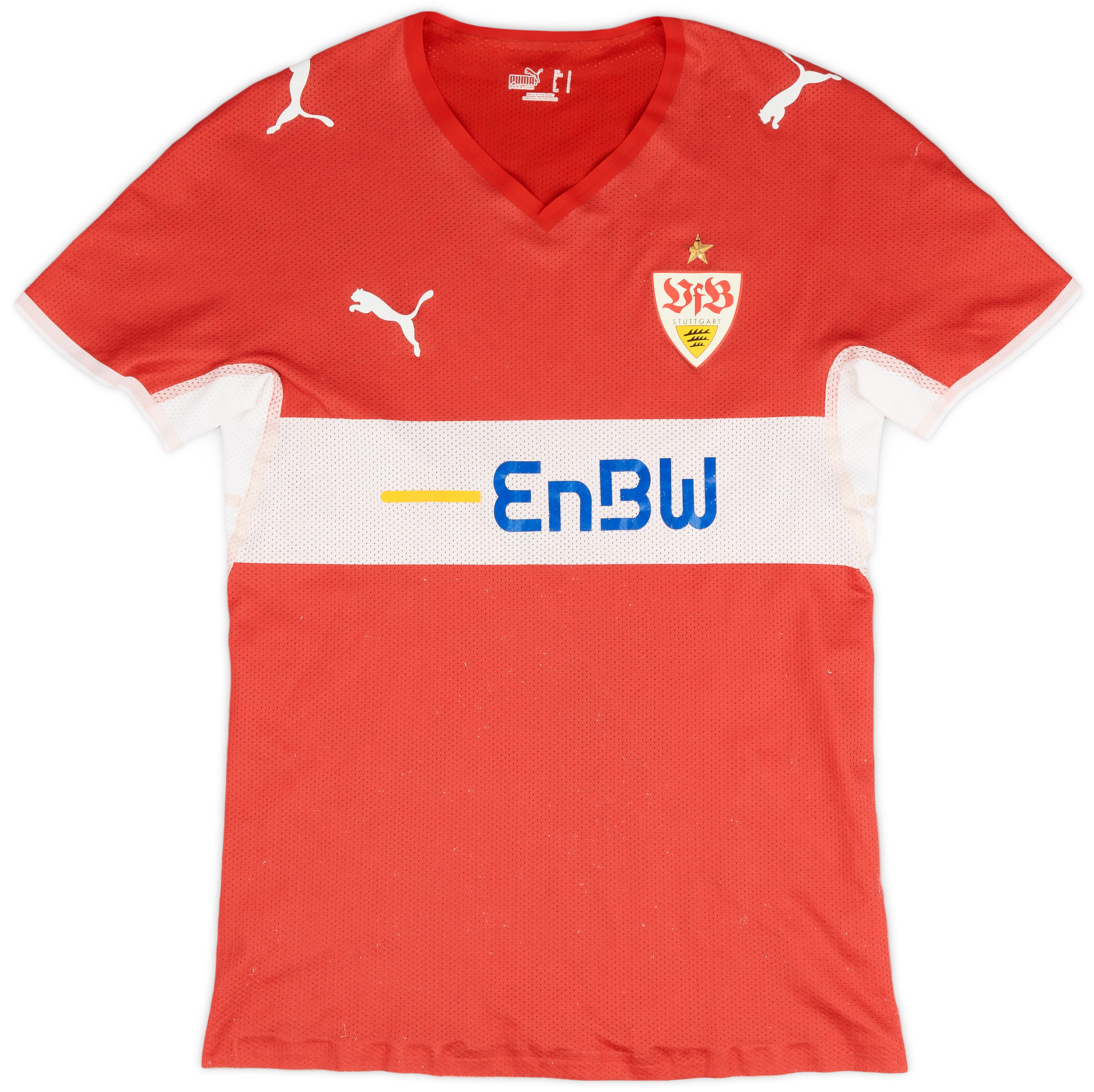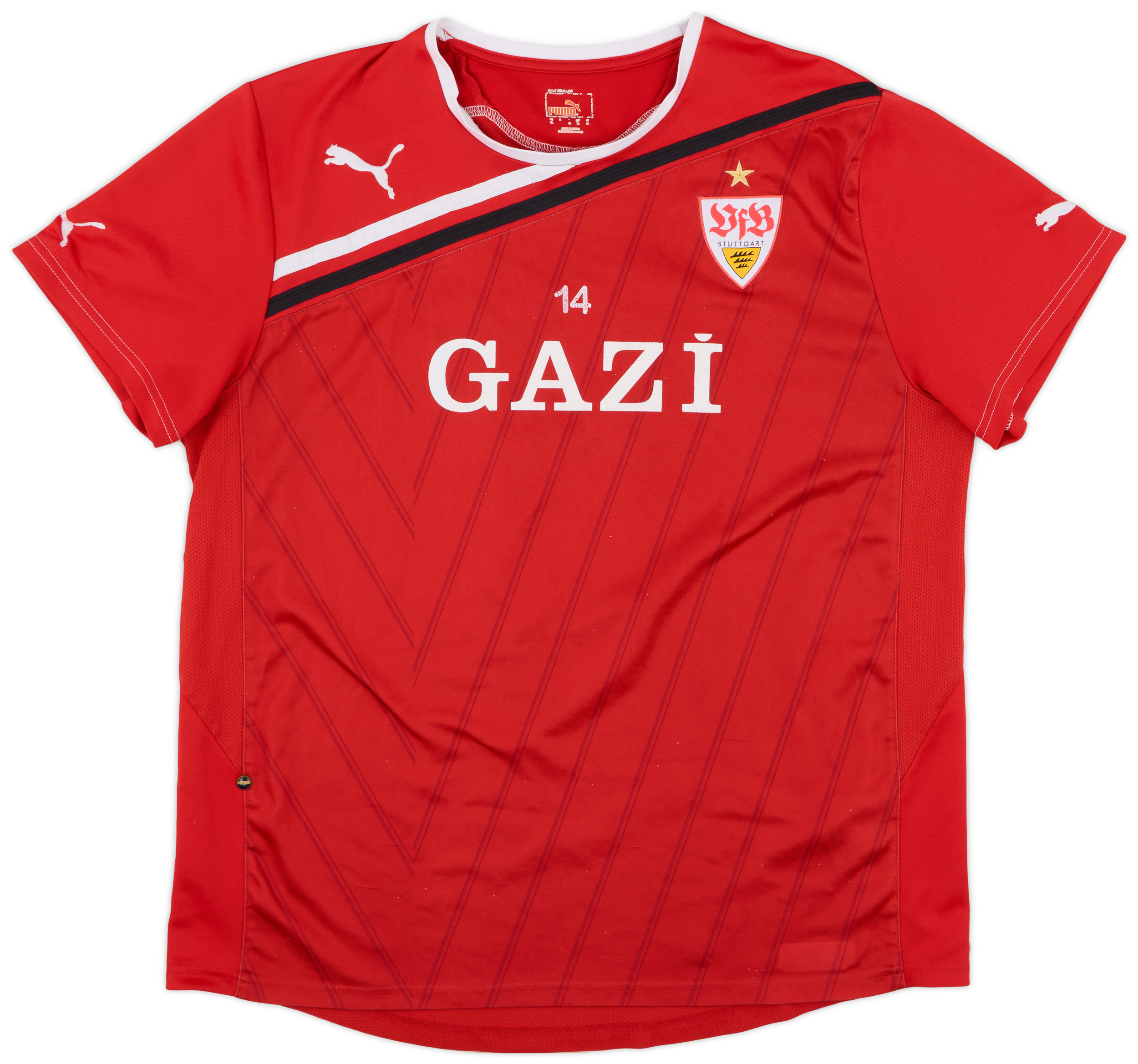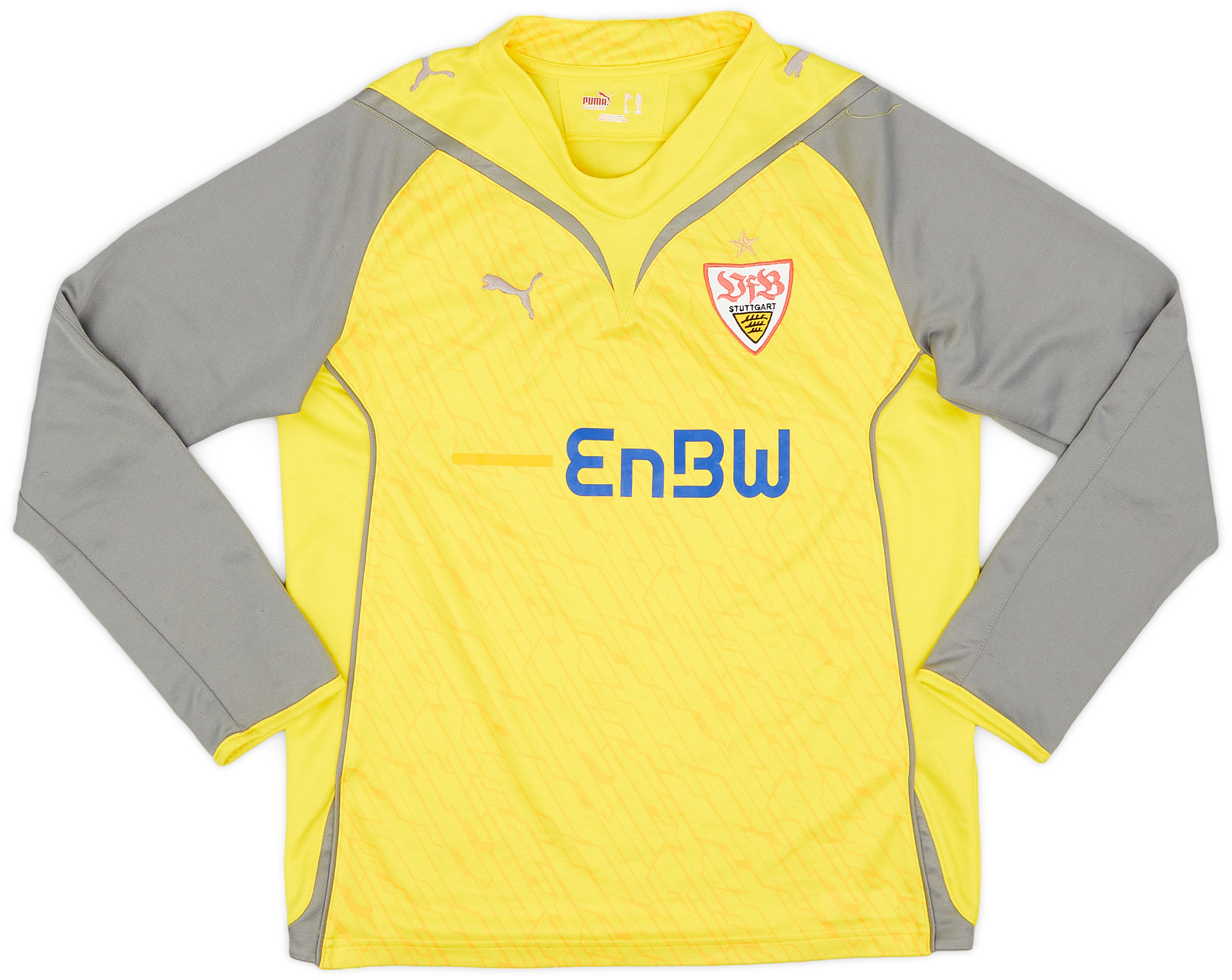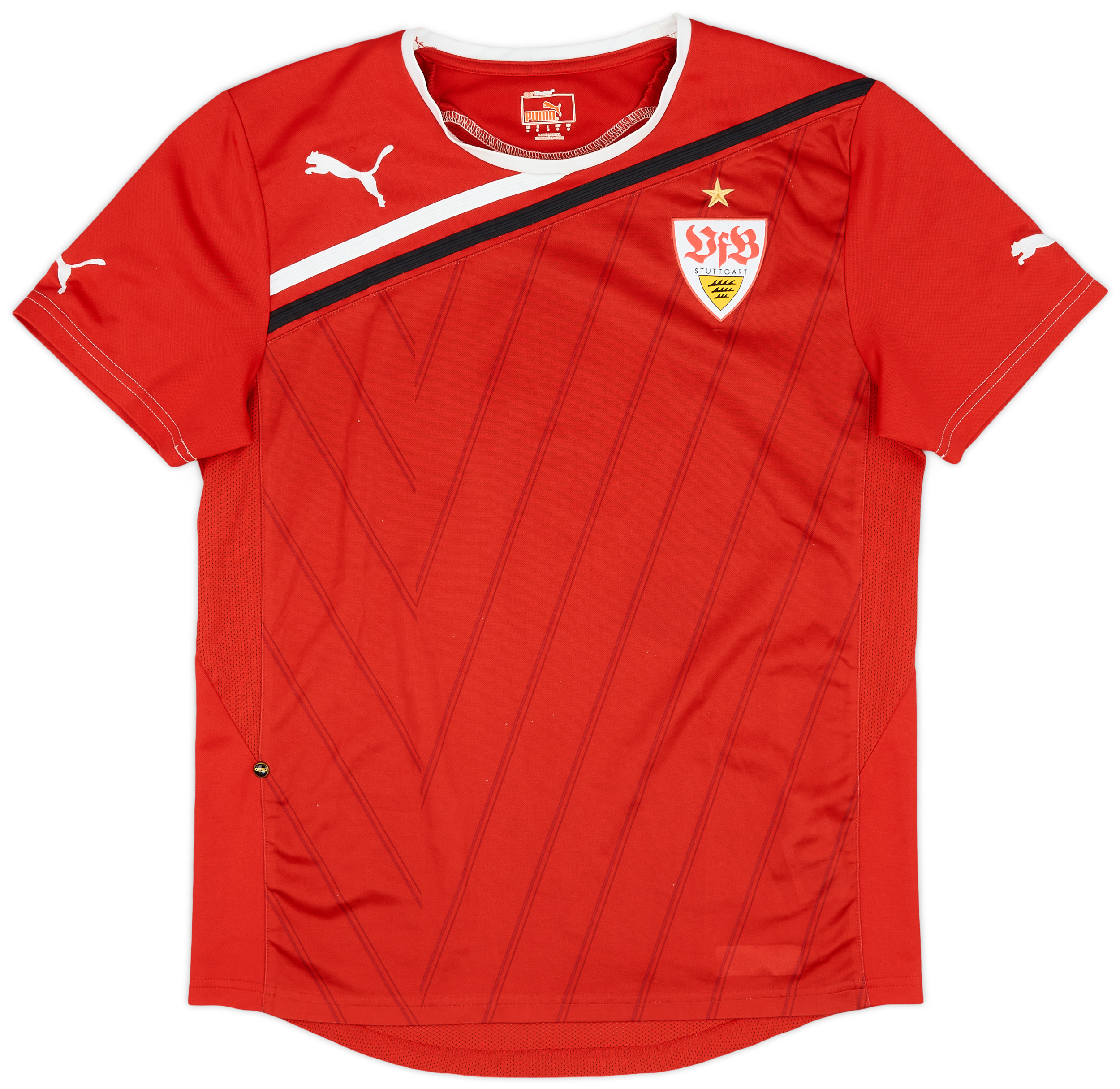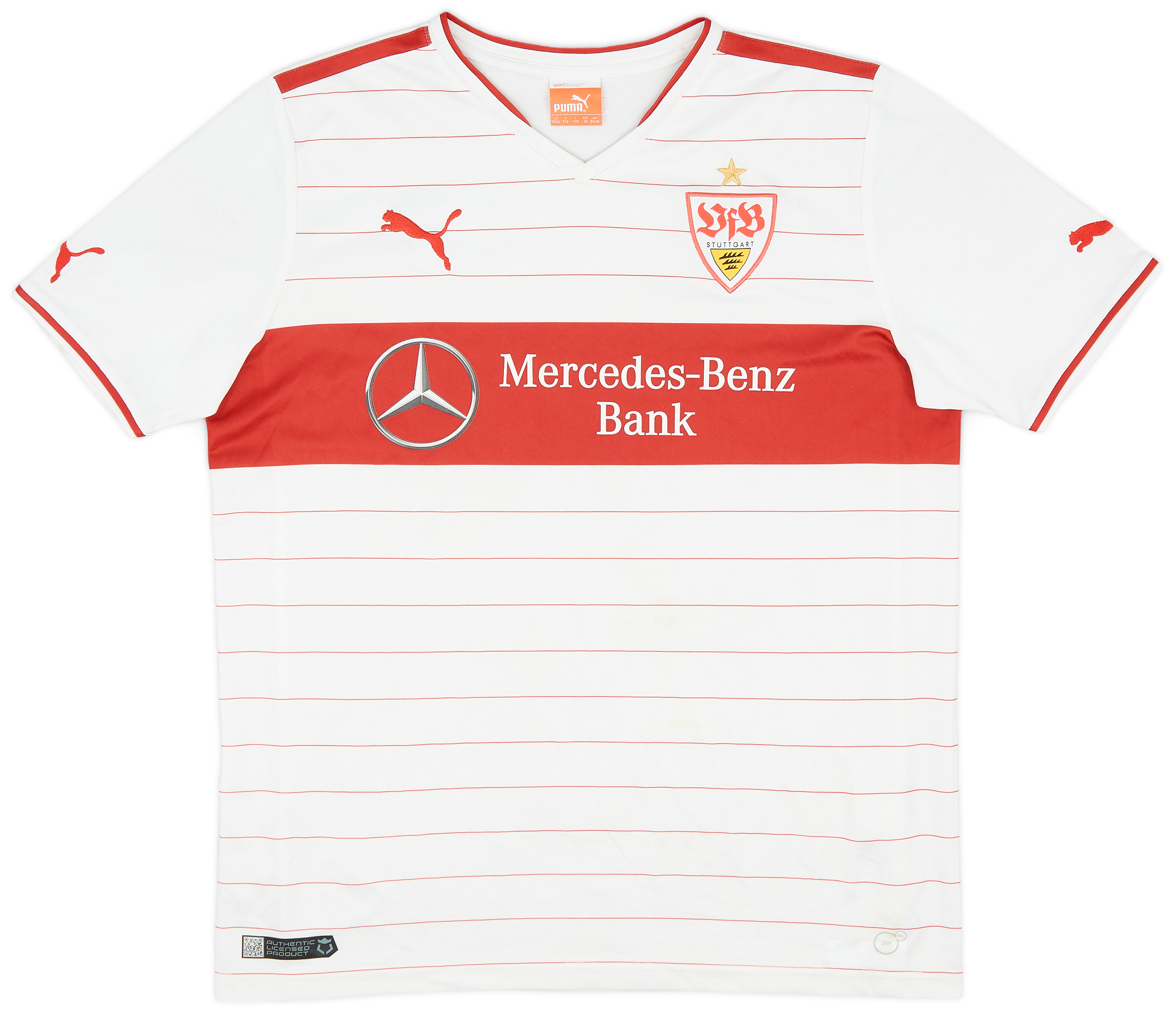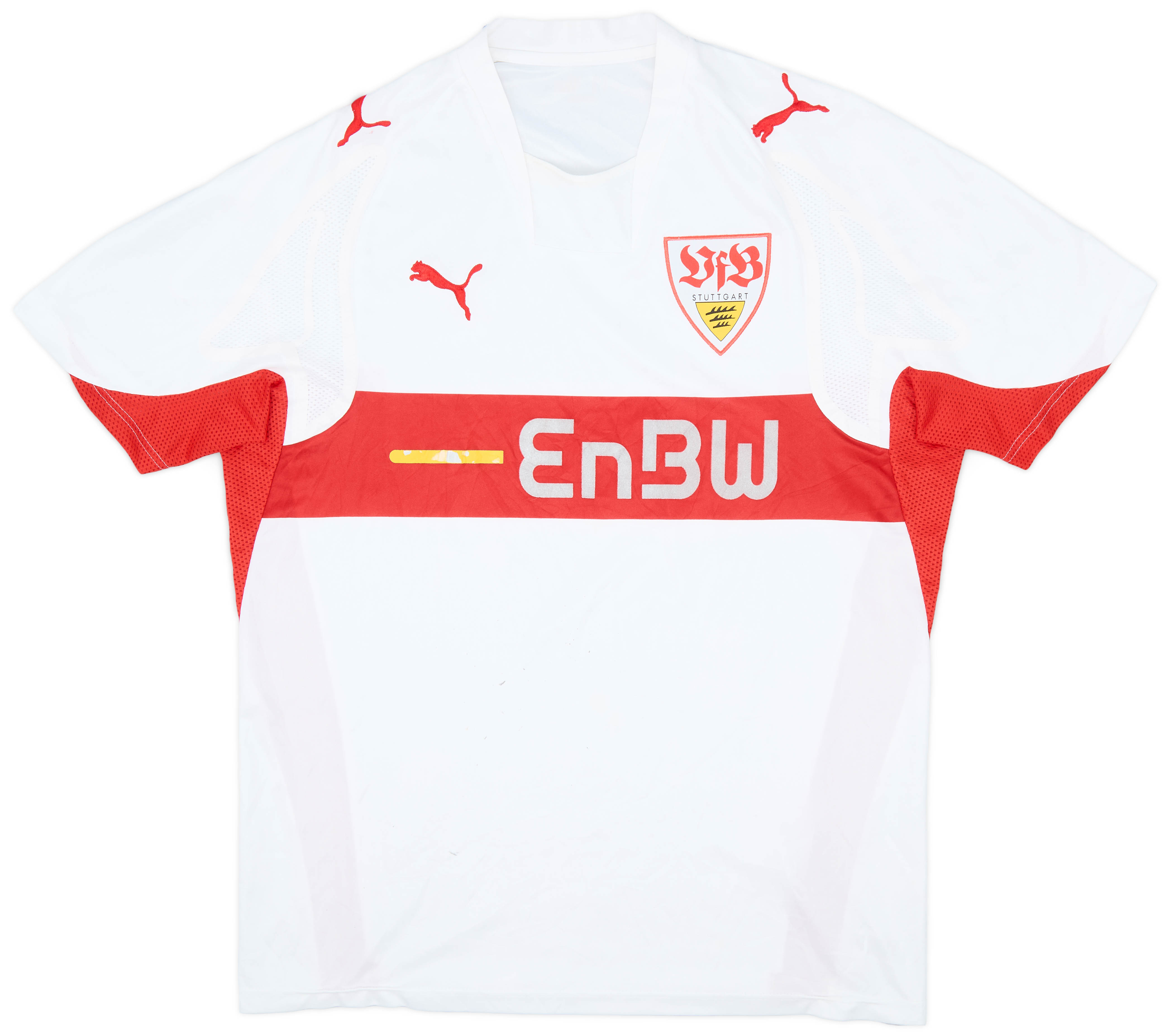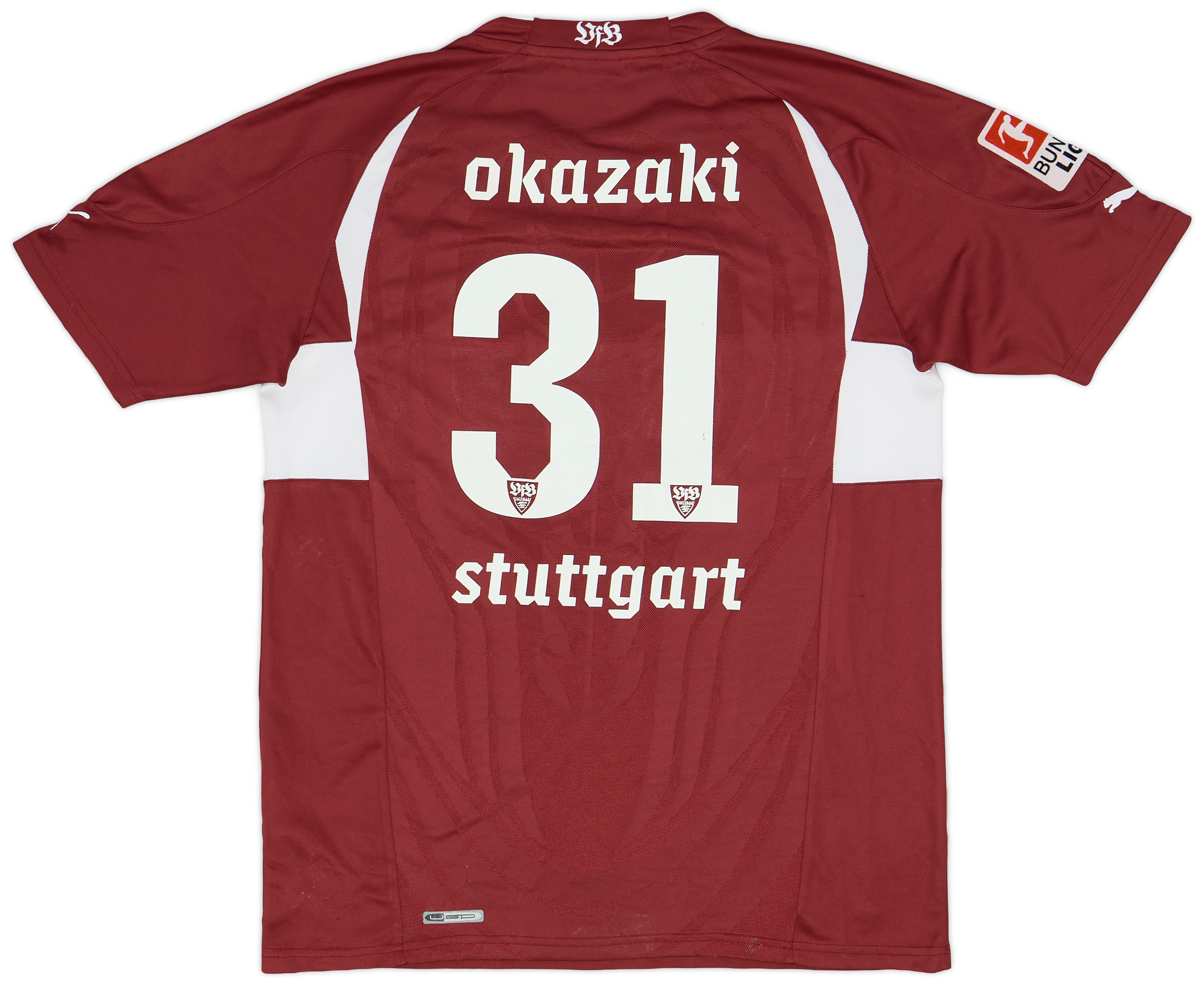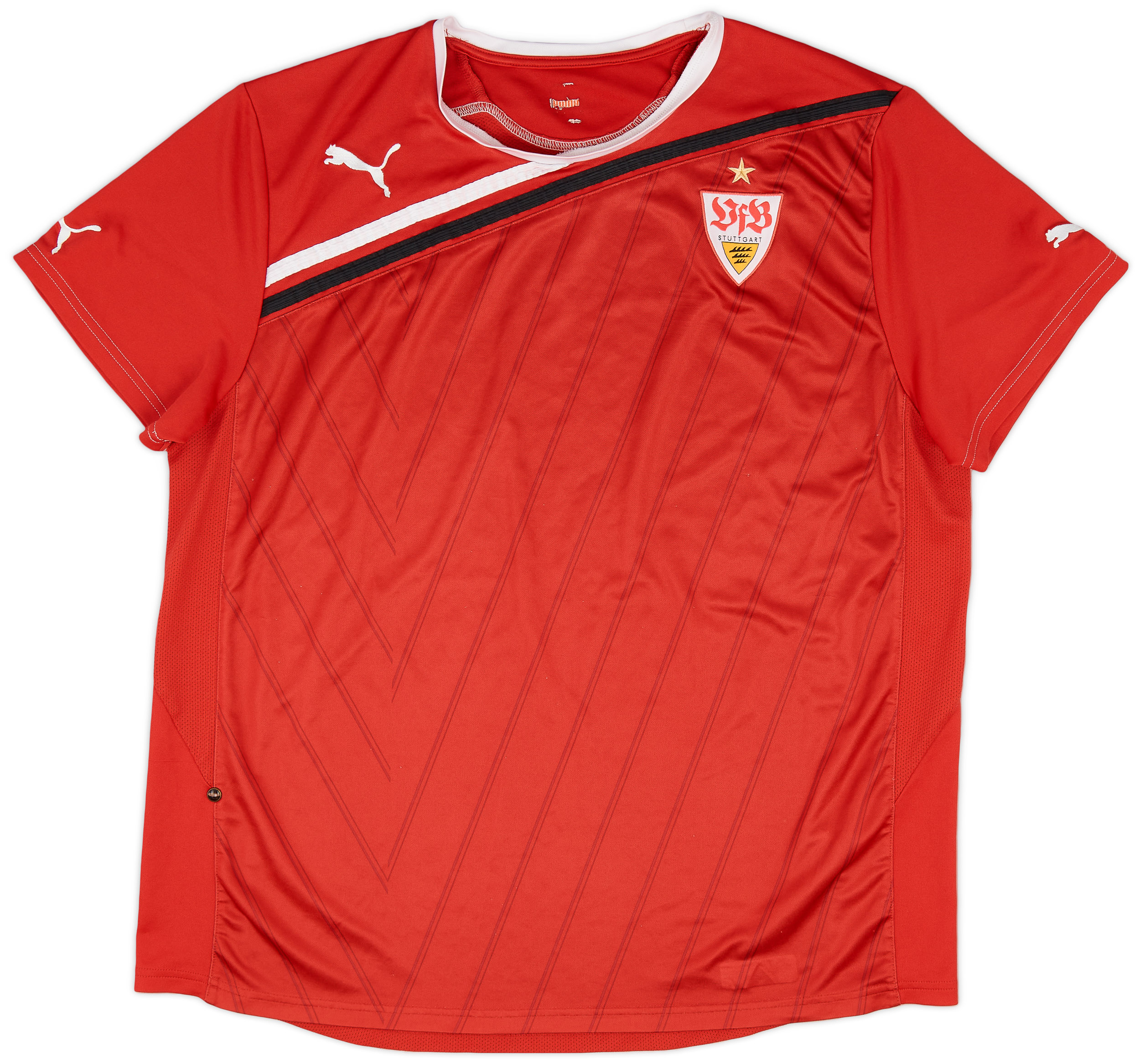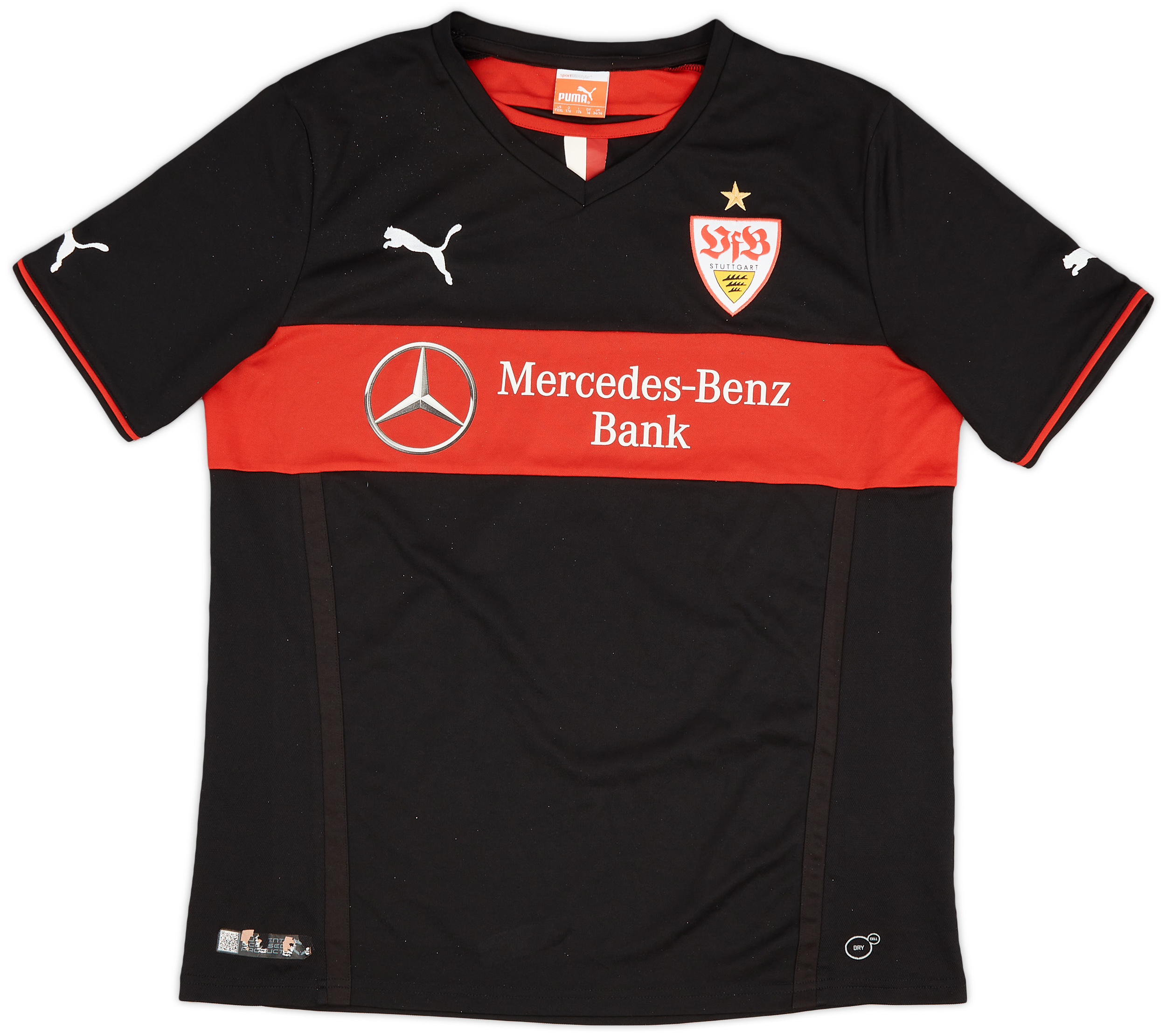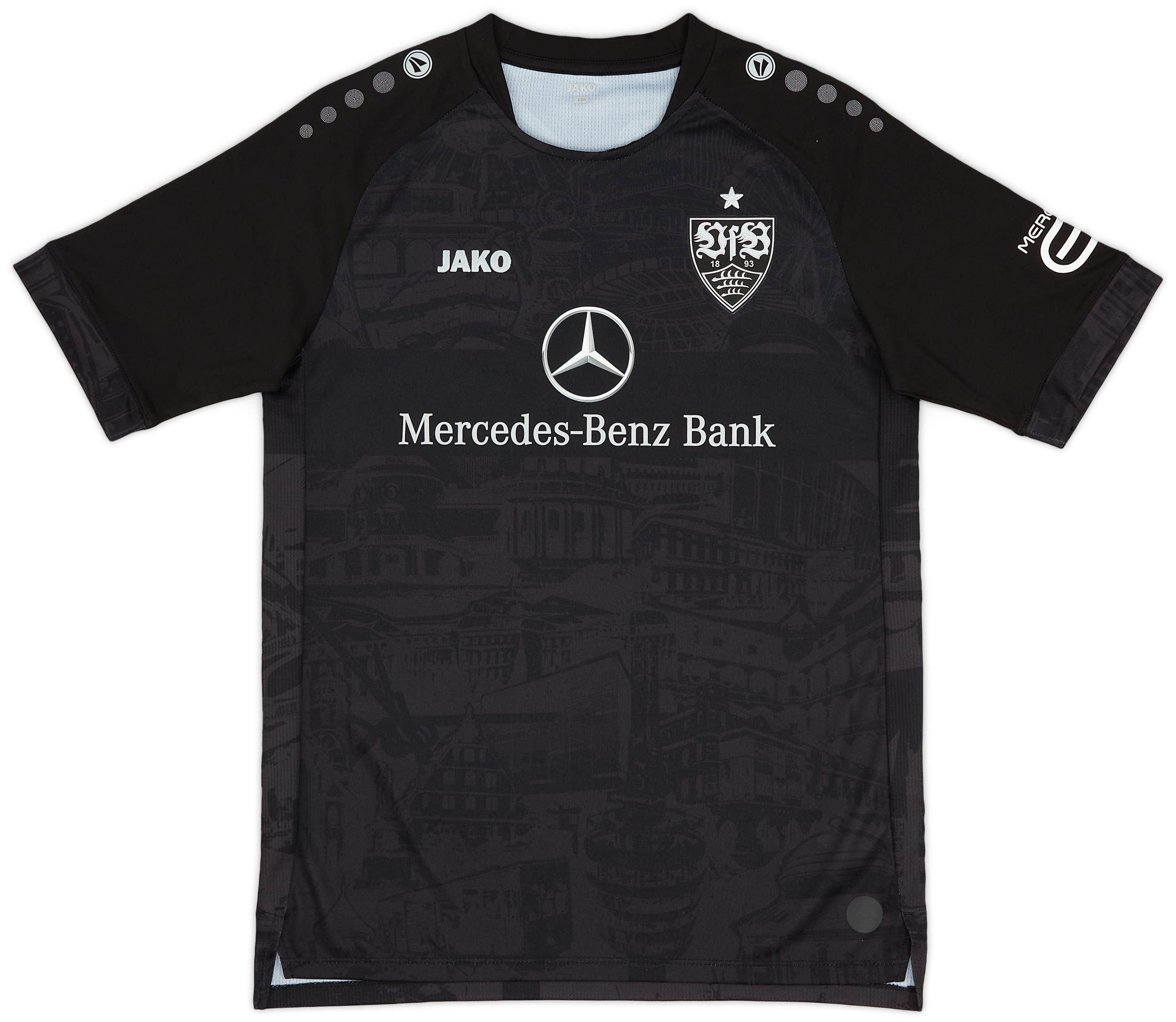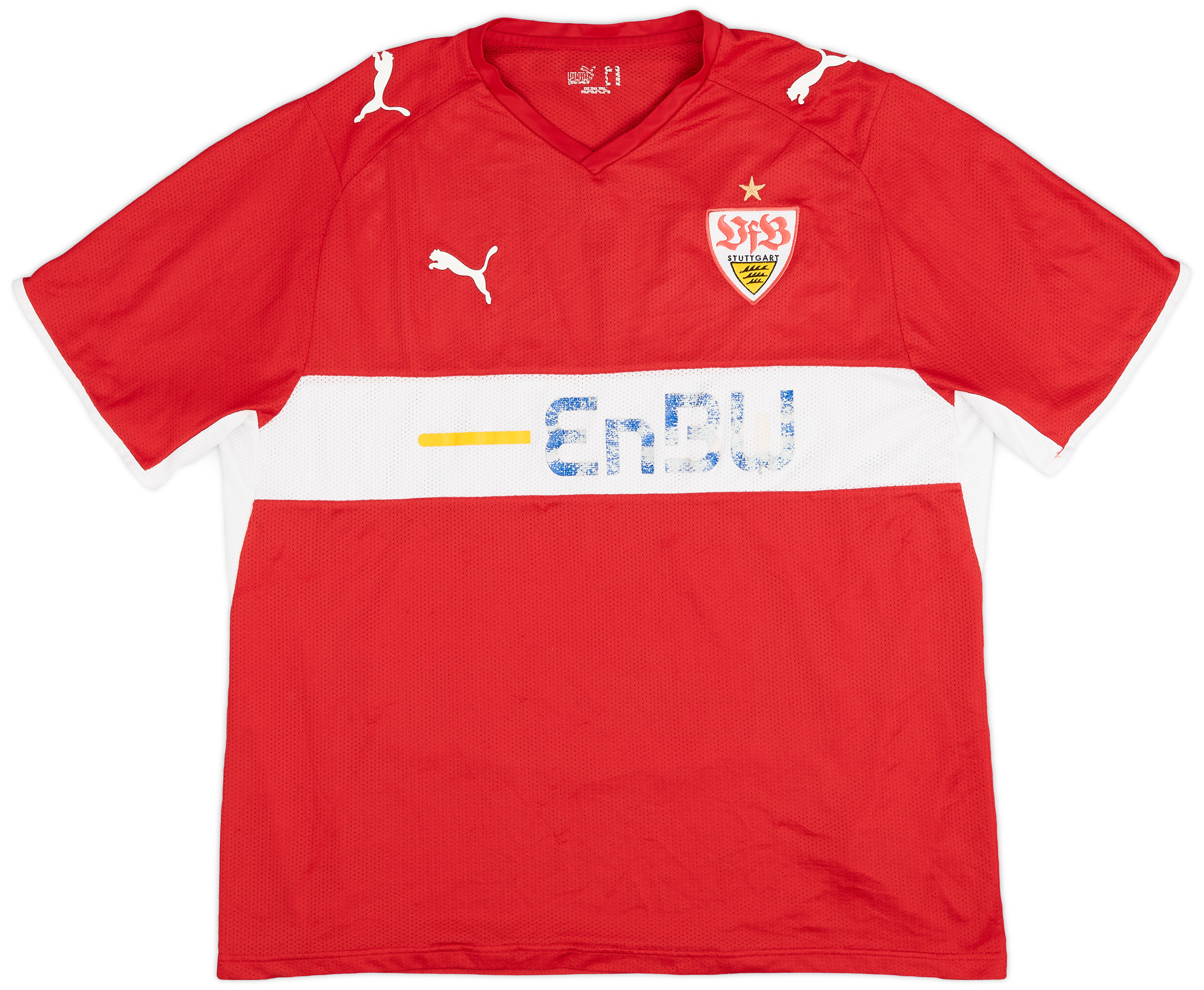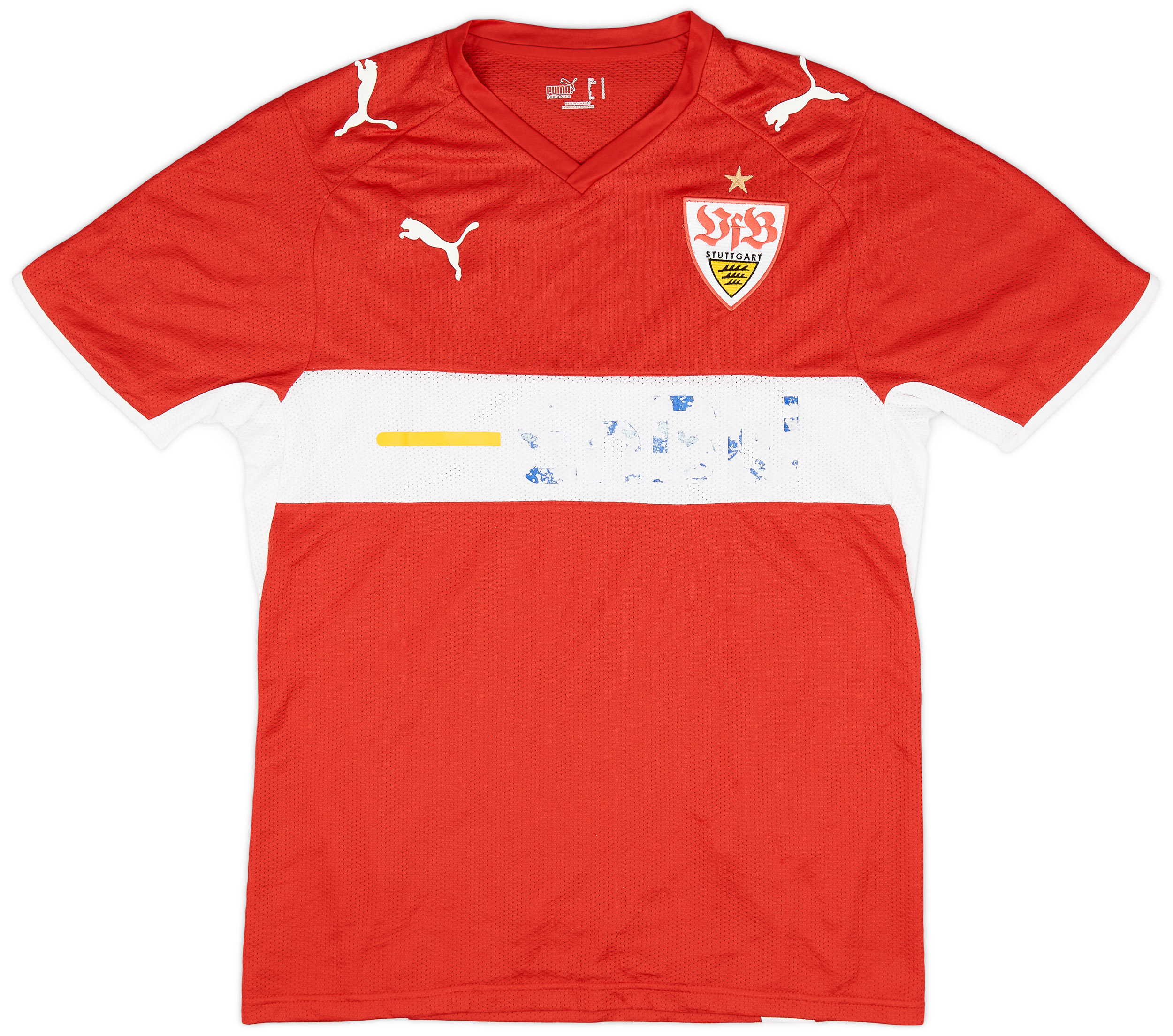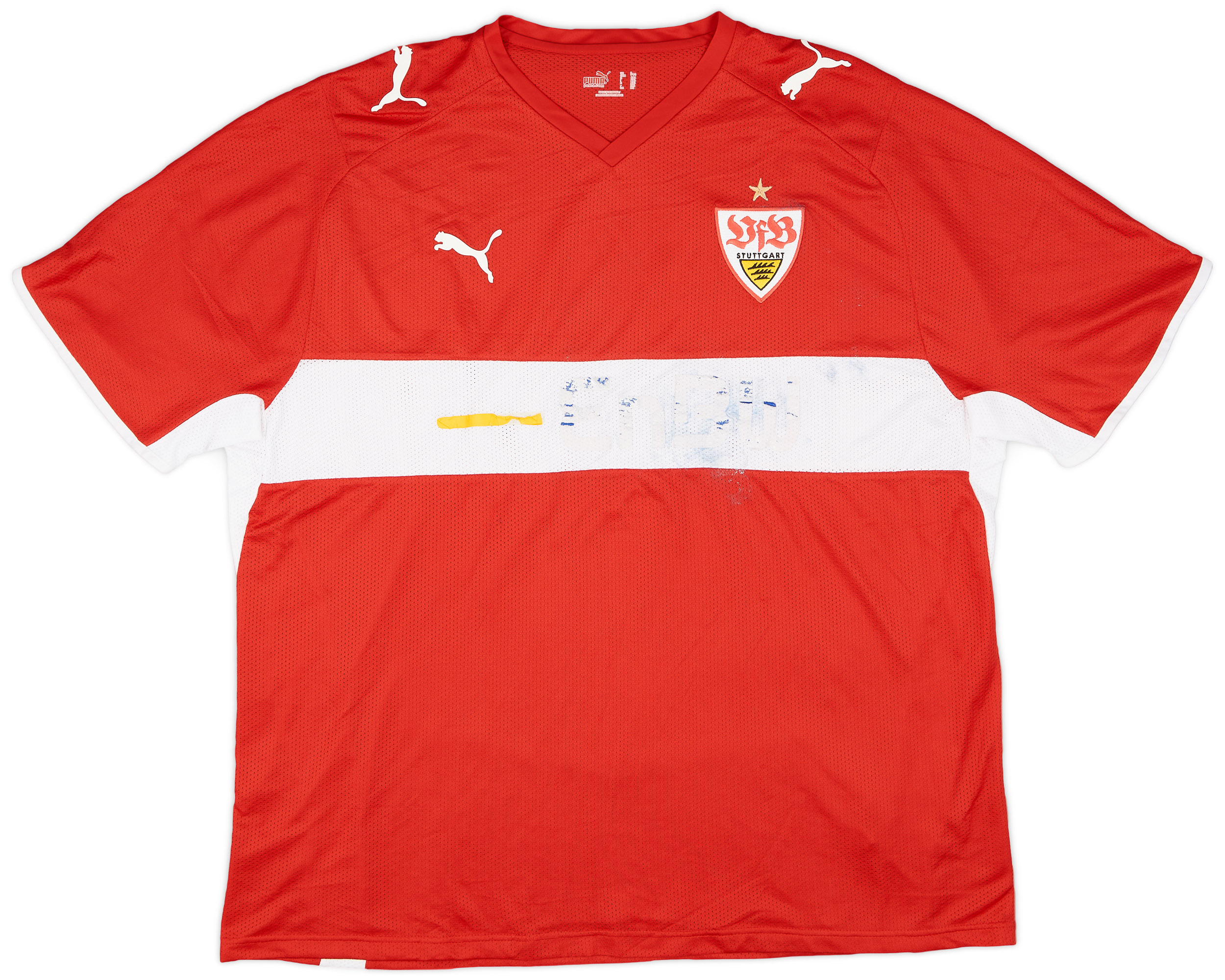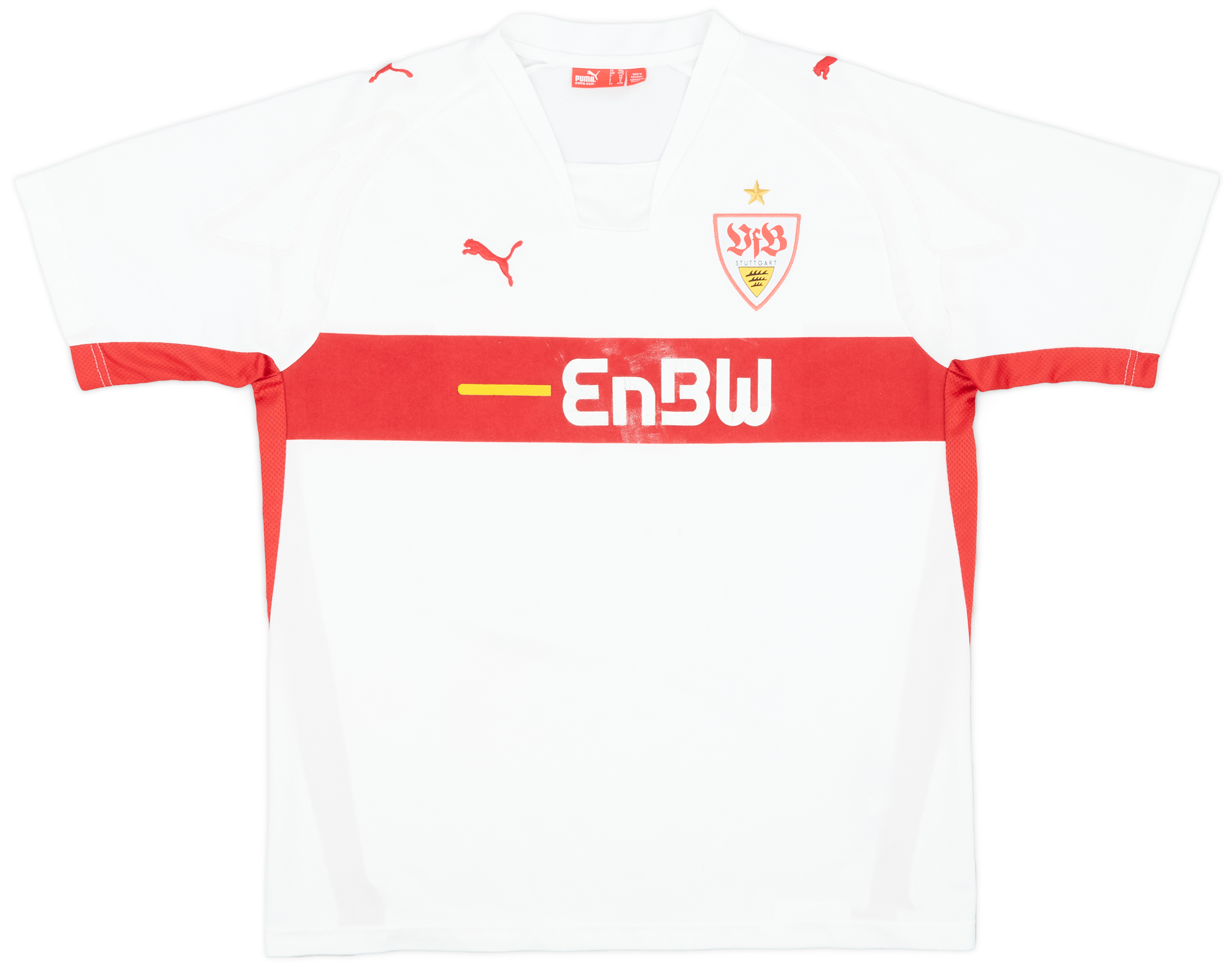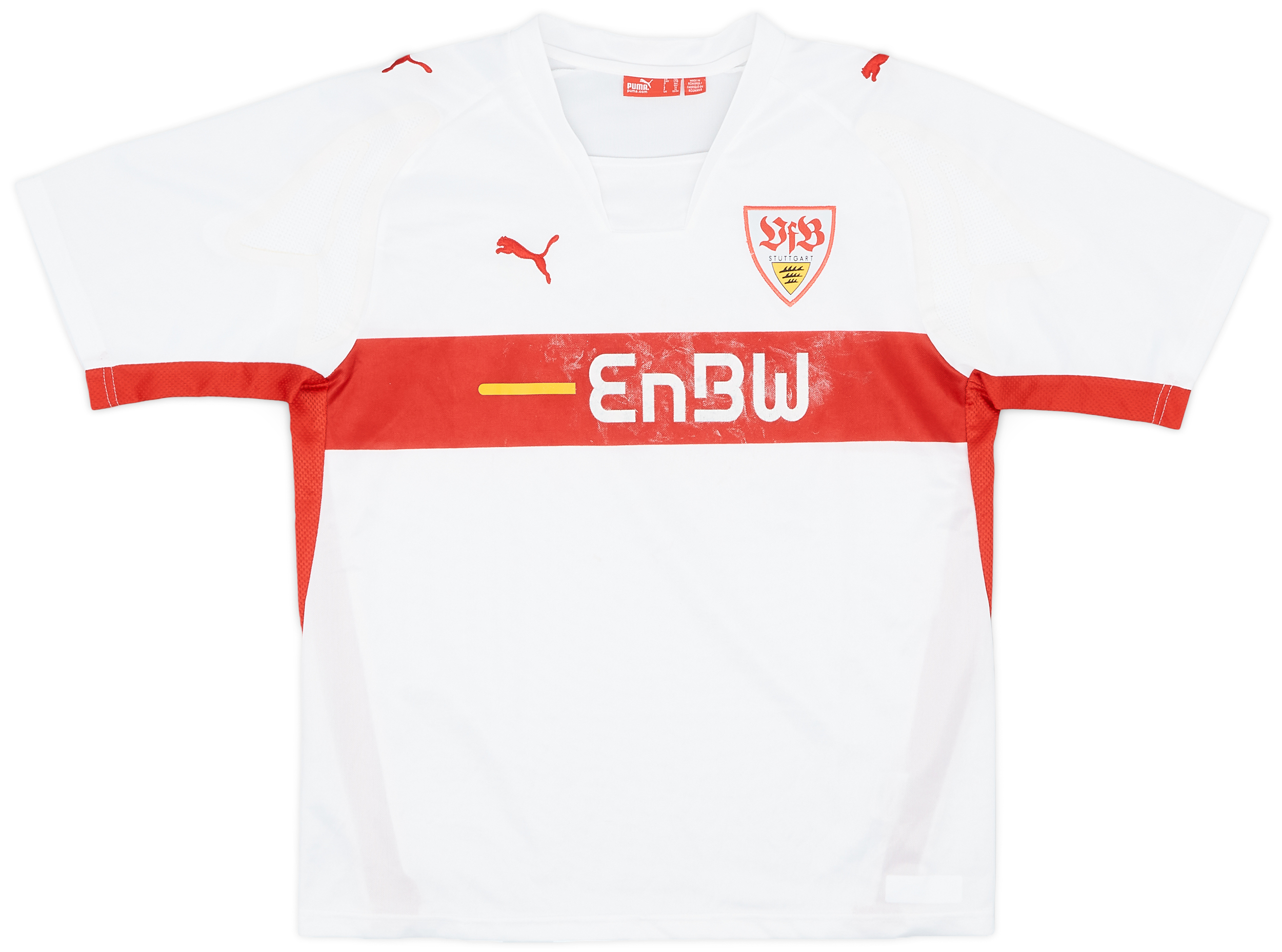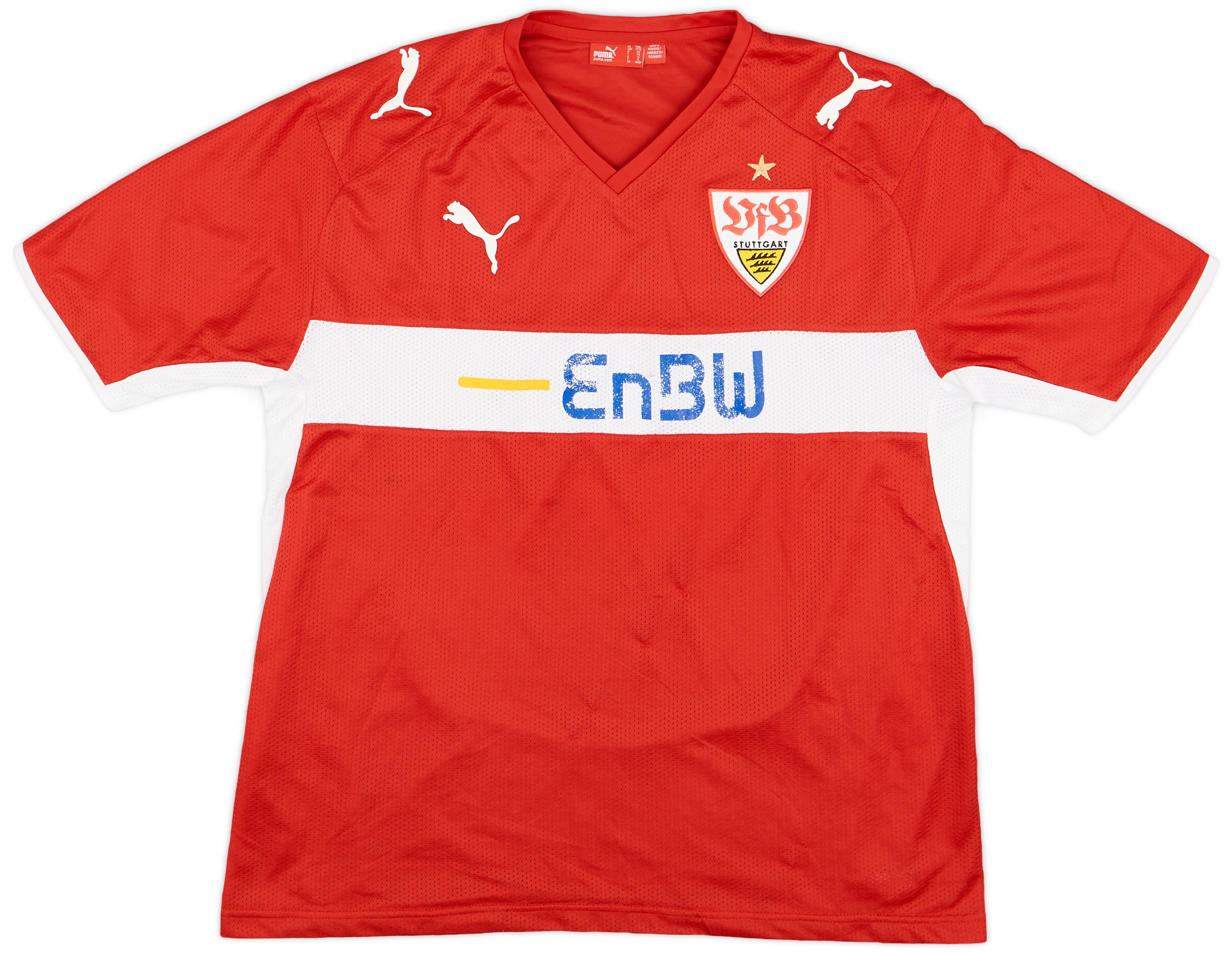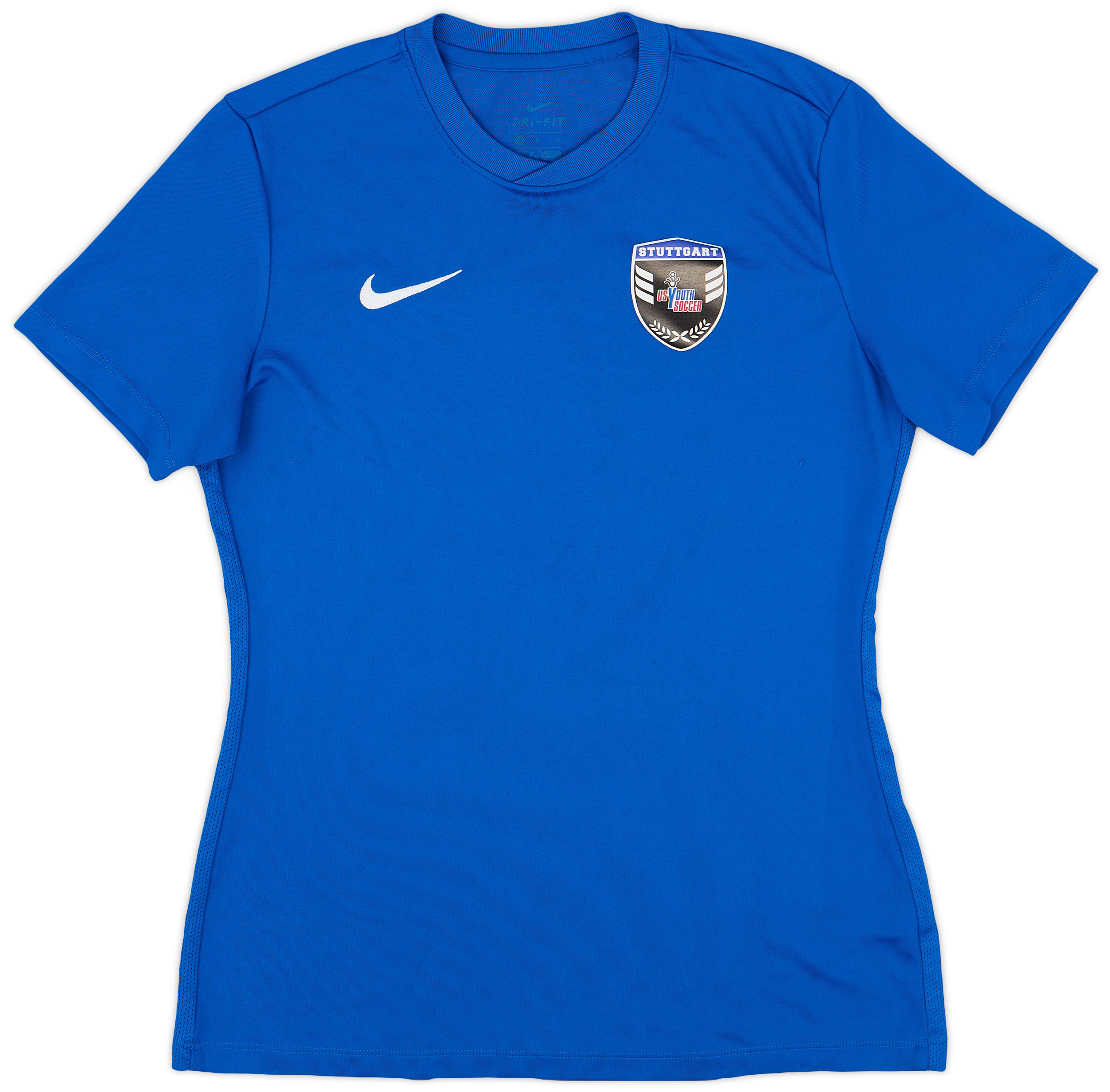Stuttgart
Introduction VfB Stuttgart, a cornerstone of German football, is renowned not only for its rich history but also for its passionate fanbase and significant contributions to the sport. Founded in 1893, Stuttgart is more than just a football club; it is a symbol of pride for many in the Swabian region. Nestled in the heart […]
1980-81 Stuttgart Home L/S Shirt - 6/10 - (M)
237.99£ - ca: €281
1993-95 Stuttgart Home Shirt - 9/10 - (S)
207.99£ - ca: €245
1993-95 Stuttgart Home Shirt - 7/10 - (S)
177.99£ - ca: €210
1993-95 Stuttgart Home Shirt #10 - 9/10 - (XS)
177.99£ - ca: €210
2001-02 Stuttgart Away L/S Shirt - 9/10 - (XL)
118.99£ - ca: €140
1999-00 Stuttgart Home Shirt - 8/10 - (L)
106.99£ - ca: €126
2009-10 Stuttgart Home Shirt Hleb #23 - 8/10 - (XXL)
106.99£ - ca: €126
2002-03 Stuttgart Match Issue Away L/S Shirt #14
94.99£ - ca: €112
2022-23 Stuttgart Away Shirt (L)
94.99£ - ca: €112
2005-06 Stuttgart Third Shirt - 8/10 - (XL.Boys)
82.99£ - ca: €98
2004-05 Stuttgart Away L/S Shirt - 8/10 - (XXL)
82.99£ - ca: €98
1996-97 Stuttgart Home Shirt - 9/10 - (Y)
82.99£ - ca: €98
1996-97 Stuttgart Away Shirt - 9/10 - (Y)
82.99£ - ca: €98
1998-99 Stuttgart adidas Training Shirt - 8/10 - (XL)
82.99£ - ca: €98
2004-05 Stuttgart 'Kevin Kuranyi' Special Home Shirt - 8/10 - (L)
82.99£ - ca: €98
2004-05 Stuttgart 'Kevin Kuranyi' Special Home Shirt - 8/10 - (M)
82.99£ - ca: €98
2003-04 Stuttgart Home Shirt Kuranyi #22 - 6/10 - (S)
82.99£ - ca: €98
2003-04 Stuttgart Home Shirt - 8/10 - (S)
82.99£ - ca: €98
2004-05 Stuttgart Away Shirt - 8/10 - (S)
70.99£ - ca: €84
2004-05 Stuttgart 'Kevin Kuranyi' Special Home Shirt - 7/10 - (XL)
70.99£ - ca: €84
2004-05 Stuttgart Away Shirt - 8/10 - (XL)
70.99£ - ca: €84
1995-96 Stuttgart adidas Training Shirt - 7/10 - (L)
70.99£ - ca: €84
2004-05 Stuttgart Third Shirt - 8/10 - (XXL)
70.99£ - ca: €84
1980-81 Stuttgart Home L/S Shirt - 5/10 - (L.Boys)
70.99£ - ca: €84
1996-97 Stuttgart Away Shirt - 8/10 - (XL.Boys)
70.99£ - ca: €84
2016-17 Stuttgart Home Shirt Terodde #9 - 8/10 - (S)
70.99£ - ca: €84
2004-05 Stuttgart Home Shirt Kuranyi #22 - 6/10 - (S)
70.99£ - ca: €84
2008-10 Stuttgart Third L/S Shirt - 9/10 - (S)
70.99£ - ca: €84
2004-05 Stuttgart Away Shirt - 8/10 - (XL)
70.99£ - ca: €84
2004-05 Stuttgart Away Shirt - 8/10 - (S)
70.99£ - ca: €84
2012-13 Stuttgart Third Shirt Ibisevic #9 - 8/10 - (M)
70.99£ - ca: €84
2008-10 Stuttgart Player Issue Away Shirt - 7/10 - (XL)
70.99£ - ca: €84
2016-17 Stuttgart Player Issue Away L/S Shirt - 6/10 - (XL)
70.99£ - ca: €84
2002-03 Stuttgart GK Shirt - 6/10 - (S)
70.99£ - ca: €84
2014-15 Stuttgart Player Issue Home Shirt - 8/10 - (XL)
70.99£ - ca: €84
2005-06 Stuttgart Third Shirt - 8/10 - (S)
58.99£ - ca: €70
2004-05 Stuttgart Home Shirt - 7/10 - (S)
58.99£ - ca: €70
2000-02 Stuttgart Home Shirt - 7/10 - (Y)
58.99£ - ca: €70
2004-05 Stuttgart Home Shirt - 7/10 - (S)
58.99£ - ca: €70
2008-09 Stuttgart Home Shirt - 7/10 - (XL)
58.99£ - ca: €70
2004-05 Stuttgart Away Shirt - 7/10 - (M)
58.99£ - ca: €70
2004-05 Stuttgart Home Shirt - 6/10 - (S)
58.99£ - ca: €70
2004-05 Stuttgart Home Shirt - 7/10 - (S)
58.99£ - ca: €70
2003-04 Stuttgart Away Shirt - 7/10 - (M)
58.99£ - ca: €70
2010-11 Stuttgart Player Issue Third Shirt - 6/10 - (XL)
58.99£ - ca: €70
2008-10 Stuttgart Away Shirt - 8/10 - (XL)
58.99£ - ca: €70
2012-13 Stuttgart Third Shirt Harnik #7 - 7/10 - (M)
58.99£ - ca: €70
2004-05 Stuttgart Home Shirt - 8/10 - (S)
58.99£ - ca: €70
2014-15 Stuttgart Away L/S Shirt - 9/10 - (M)
58.99£ - ca: €70
2014-15 Stuttgart Youth Player Issue GK Shirt #22 - 10/10 - (XL)
58.99£ - ca: €70
2013-14 Stuttgart Third Shirt - 9/10 - (S)
58.99£ - ca: €70
2012-14 Stuttgart Away L/S Shirt - 9/10 - (S)
58.99£ - ca: €70
2003-04 Stuttgart Away Shirt - 6/10 - (XXL)
58.99£ - ca: €70
2010-11 Stuttgart GK Shirt - 6/10 - (XL)
53.99£ - ca: €64
2010-11 Stuttgart GK Shirt - 6/10 - (M)
53.99£ - ca: €64
2018-19 Stuttgart Away Shirt - 8/10 - (S)
53.99£ - ca: €64
2008-10 Stuttgart Third Shirt - 9/10 - (S)
53.99£ - ca: €64
2009-10 Stuttgart Home Shirt - 6/10 - (XXL)
53.99£ - ca: €64
2017-18 Stuttgart Away Shirt Gentner #20 - 8/10 - (S)
53.99£ - ca: €64
2004-05 Stuttgart Third Shirt - 7/10 - (XS)
53.99£ - ca: €64
2005-06 Stuttgart Home Shirt - 7/10 - (S)
53.99£ - ca: €64
2010-11 Stuttgart Home Shirt - 8/10 - (L)
53.99£ - ca: €64
2005-06 Stuttgart Home Shirt - 7/10 - (XXL)
53.99£ - ca: €64
2012-13 Stuttgart Home Shirt #12 - 7/10 - (L)
53.99£ - ca: €64
2004-05 Stuttgart Home Shirt - 6/10 - (XXL)
53.99£ - ca: €64
2003-04 Stuttgart Signed Home Shirt - 7/10 - (S)
53.99£ - ca: €64
2009-10 Stuttgart Home Shirt - 6/10 - (S)
53.99£ - ca: €64
2008-10 Stuttgart Third Shirt - 8/10 - (S)
53.99£ - ca: €64
2006-07 Stuttgart GK Shirt - 8/10 - (S)
53.99£ - ca: €64
2004-05 Stuttgart Puma 'Kevin Kuranyi #22' Vest - 8/10 - (S)
47.99£ - ca: €57
2013-14 Stuttgart GK Shirt - 9/10 - (M)
47.99£ - ca: €57
2010-11 Stuttgart Home Shirt - 7/10 - (S)
47.99£ - ca: €57
2010s Stuttgart Puma Track Jacket - 9/10 - (XL)
47.99£ - ca: €57
2004-05 Stuttgart GK Shirt - 9/10 - (S)
47.99£ - ca: €57
2014-15 Stuttgart Away L/S Shirt - 6/10 - (XL)
47.99£ - ca: €57
2004-05 Stuttgart Home Shirt Kuranyi #22 - 5/10 - (S)
47.99£ - ca: €57
2008-09 Stuttgart Player Issue Signed Away Shirt - 5/10 - (L)
47.99£ - ca: €57
2008-10 Stuttgart Third Shirt - 6/10 - (XL)
47.99£ - ca: €57
2006-07 Stuttgart GK Shirt - 7/10 - (XL)
47.99£ - ca: €57
2014-15 Stuttgart Away Shirt - 8/10 - (S)
47.99£ - ca: €57
2004-05 Stuttgart GK Shirt - 8/10 - (S)
47.99£ - ca: €57
2013-14 Stuttgart Home Shirt - 9/10 - (S)
47.99£ - ca: €57
2014-15 Stuttgart Home Shirt Baumgartl #32 - 7/10 - (3XL)
47.99£ - ca: €57
2010-11 Stuttgart Away Shirt - 8/10 - (L)
47.99£ - ca: €57
2004-05 Stuttgart GK Shirt - 9/10 - (S)
47.99£ - ca: €57
2013-14 Stuttgart Home Shirt - 9/10 - (S)
47.99£ - ca: €57
2014-15 Stuttgart Away Shirt - 9/10 - (XL)
47.99£ - ca: €57
2016-17 Stuttgart Third Shirt - 8/10 - (S)
41.99£ - ca: €50
2010-11 Stuttgart Away Shirt - 8/10 - (S)
41.99£ - ca: €50
2014-15 Stuttgart Third Shirt - 7/10 - (XXL)
41.99£ - ca: €50
2008-09 Stuttgart Home Shirt - 9/10 - (XXL.Boys)
41.99£ - ca: €50
2004-05 Stuttgart Puma Training Vest - 7/10 - (M)
41.99£ - ca: €50
2014-15 Stuttgart Away Shirt - 6/10 - (L)
41.99£ - ca: €50
2013-14 Stuttgart Home Shirt - 7/10 - (M)
41.99£ - ca: €50
2007-08 Stuttgart Away Shirt - 6/10 - (XXL.Boys)
41.99£ - ca: €50
2008-10 Stuttgart Away Shirt - 6/10 - (S)
41.99£ - ca: €50
2004-05 Stuttgart GK Shirt - 6/10 - (XL)
41.99£ - ca: €50
2000s Stuttgart GK Shirt - 6/10 - (XXL)
41.99£ - ca: €50
2011-12 Stuttgart Home Shirt - 5/10 - (XL)
41.99£ - ca: €50
2016-17 Stuttgart Third Shirt - 8/10 - (XXL)
41.99£ - ca: €50
2016-17 Stuttgart Third Shirt - 8/10 - (XXL)
41.99£ - ca: €50
2007-08 Stuttgart Football School Puma Track Jacket - 9/10 - (M)
41.99£ - ca: €50
2005-06 Stuttgart Home Shorts - 6/10 - (XL)
41.99£ - ca: €50
2014-15 Stuttgart Away Shirt - 6/10 - (S)
41.99£ - ca: €50
2011-12 Stuttgart Home Shirt - 5/10 - (XL)
41.99£ - ca: €50
2008-09 Stuttgart Home Shirt - 5/10 - (S)
41.99£ - ca: €50
2010-11 Stuttgart Third Shirt - 8/10 - (XL)
41.99£ - ca: €50
2009-10 Stuttgart GK Shirt - 7/10 - (XL)
41.99£ - ca: €50
2010-11 Stuttgart Third Shirt - 9/10 - (XL)
41.99£ - ca: €50
2014-15 Stuttgart Away Shirt - 7/10 - (L)
41.99£ - ca: €50
2010s Stuttgart GK Shirt - 6/10 - (L)
41.99£ - ca: €50
2016-17 Stuttgart Third Shirt
38.99£ - ca: €46
2008-09 Stuttgart Puma Training Shirt - 8/10 - (M)
35.99£ - ca: €42
2016-17 Stuttgart Home Shirt Ginczek #33 - 9/10 - (XL.Boys)
35.99£ - ca: €42
2012-13 Stuttgart GK Shirt - 8/10 - (M)
35.99£ - ca: €42
2008-10 Stuttgart Away Shirt - 8/10 - (XL.Boys)
35.99£ - ca: €42
2012-13 Stuttgart Puma Training Shirt - 9/10 - (XL)
35.99£ - ca: €42
2013-14 Stuttgart Third Shirt - 10/10 - (XXL.Boys)
35.99£ - ca: €42
2007-08 Stuttgart Player Issue Home L/S Shirt - 4/10 - (XXL)
35.99£ - ca: €42
2016-17 Stuttgart Home Shirt - 9/10 - (XL.Boys)
35.99£ - ca: €42
2017-18 Stuttgart Puma Training Shirt - 8/10 - (M)
35.99£ - ca: €42
2018-19 Stuttgart Home Shirt - 6/10 - (XL.Boys)
35.99£ - ca: €42
2007-08 Stuttgart Home Shirt - 5/10 - (S)
35.99£ - ca: €42
2007-08 Stuttgart Home Shirt - 5/10 - (S)
35.99£ - ca: €42
2005-06 Stuttgart Puma Training Bib - 9/10 - (S)
35.99£ - ca: €42
2007-08 Stuttgart Home Shirt - 8/10 - (XL.Boys)
35.99£ - ca: €42
2007-08 Stuttgart Away Shirt - 5/10 - (XXL)
35.99£ - ca: €42
2007-08 Stuttgart Home Shirt - 5/10 - (XXL)
35.99£ - ca: €42
2008-09 Stuttgart Home Shirt - 9/10 - (XL.Boys)
35.99£ - ca: €42
2004-05 Stuttgart Away Shirt - 5/10 - (XL)
35.99£ - ca: €42
2008-10 Stuttgart Third Shirt - 5/10 - (S)
35.99£ - ca: €42
2012-13 Stuttgart GK Away Shirt - 9/10 - (M)
35.99£ - ca: €42
2010s Stuttgart GK Shirt - 6/10 - (XL)
31.99£ - ca: €38
2012-13 Stuttgart GK Shirt - 6/10 - (M)
29.99£ - ca: €35
2009-10 Stuttgart GK Shirt - 5/10 - (L)
29.99£ - ca: €35
2008-10 Stuttgart Away Shirt - 5/10 - (XL)
29.99£ - ca: €35
2008-10 Stuttgart Away Shirt - 5/10 - (S)
29.99£ - ca: €35
2011-12 Stuttgart Home Shirt - 9/10 - (XL.Boys)
29.99£ - ca: €35
2012-13 Stuttgart Puma Training Shirt - 7/10 - (S)
29.99£ - ca: €35
2008-10 Stuttgart Away Shirt - 5/10 - (S)
29.99£ - ca: €35
2013-14 Stuttgart Third Shirt - 8/10 - (XL.Boys)
29.99£ - ca: €35
2018-19 Stuttgart GK Shirt - 8/10 - (YXXL)
29.99£ - ca: €35
2012-13 Stuttgart Home Shirt - 7/10 - (XL.Boys)
29.99£ - ca: €35
2010-12 Stuttgart Puma Polo Shirt - 9/10 - (L)
29.99£ - ca: €35
2008-10 Stuttgart Player Issue Away L/S Shirt - 3/10 - (XL)
29.99£ - ca: €35
2017-18 Stuttgart Puma Training Shirt - 7/10 - (3XL)
29.99£ - ca: €35
2010-12 Stuttgart Puma Polo Shirt - 8/10 - (M)
29.99£ - ca: €35
2009-10 Stuttgart Home Shirt - 6/10 - (XL.Boys)
29.99£ - ca: €35
2008-09 Stuttgart Away Shirt - 7/10 - (XL.Boys)
29.99£ - ca: €35
2012-13 Stuttgart Puma Training Shirt - 7/10 - (M)
29.99£ - ca: €35
2007-08 Stuttgart Away Shirt - 7/10 - (XL.Boys)
29.99£ - ca: €35
2000s Stuttgart Puma Cotton Tee - 8/10 - (XL)
29.99£ - ca: €35
2012-14 Stuttgart Away L/S Shirt #18 - 6/10 - (S)
29.99£ - ca: €35
2014-15 Stuttgart GK Shirt - 8/10 - (XXL.Boys)
29.99£ - ca: €35
2008-10 Stuttgart Player Issue Away Shirt - 4/10 - (L)
29.99£ - ca: €35
2011-12 Stuttgart Puma Training L/S Shirt - 9/10 - (M)
29.99£ - ca: €35
2013-14 Stuttgart Home Shirt - 8/10 - (XL.Boys)
29.99£ - ca: €35
2010-11 Stuttgart Puma Training L/S Shirt - 8/10 - (XL.Boys)
29.99£ - ca: €35
1996-97 Stuttgart Away Shirt - 8/10 - (M.Boys)
29.99£ - ca: €35
2004-05 Stuttgart Puma Training Shirt - 8/10 - (M)
29.99£ - ca: €35
2007-08 Stuttgart Away Shirt - 6/10 - (XL.Boys)
29.99£ - ca: €35
2010-11 Stuttgart Home Shirt - 9/10 - (XL.Boys)
29.99£ - ca: €35
2017-18 Stuttgart Home Shirt - 5/10 - (XXL)
29.99£ - ca: €35
2006-07 Stuttgart Home Shirt - 5/10 - (XL.Boys)
29.99£ - ca: €35
2012-13 Stuttgart Puma Polo Shirt - 8/10 - (XXL)
29.99£ - ca: €35
2000s Stuttgart GK Shirt - 8/10 - (XXL)
25.99£ - ca: €31
2010-11 Stuttgart Puma Training Shirt - 8/10 - (S)
25.99£ - ca: €31
2011-12 Stuttgart Puma Training Shirt - 8/10 - (M)
23.99£ - ca: €28
2007-08 Stuttgart Away Shirt - 4/10 - (XXL)
23.99£ - ca: €28
2011-12 Stuttgart Puma Training Shirt - 8/10 - (XXL)
23.99£ - ca: €28
2008-10 Stuttgart Player Issue Away Shirt - 3/10 - (S)
23.99£ - ca: €28
2011-12 Stuttgart Puma Player Issue Training Shirt #14 - 6/10 - (XL)
23.99£ - ca: €28
2010-11 Stuttgart Third Shirt Cacau #18 - 6/10 - (XL.Boys)
23.99£ - ca: €28
2009-10 Stuttgart GK Shirt - 7/10 - (XL.Boys)
23.99£ - ca: €28
2011-12 Stuttgart Puma Training Shirt - 9/10 - (S)
23.99£ - ca: €28
2016-17 Stuttgart Home Shirt - 4/10 - (M)
23.99£ - ca: €28
2013-14 Stuttgart Home Shirt - 7/10 - (XL.Boys)
23.99£ - ca: €28
2010-11 Stuttgart Third Shirt Ibisevic #9 - 5/10 - (L)
23.99£ - ca: €28
2010-11 Stuttgart Third L/S Shirt - 4/10 - (M)
23.99£ - ca: €28
2010-11 Stuttgart Home Shirt - 5/10 - (L)
23.99£ - ca: €28
2010-11 Stuttgart Away Shirt - 9/10 - (XL.Boys)
23.99£ - ca: €28
2016-17 Stuttgart Puma Training Shirt - 8/10 - (L)
23.99£ - ca: €28
2019-20 Stuttgart Home Shirt - 5/10 - (XXL)
23.99£ - ca: €28
2007-08 Stuttgart Home Shirt - 4/10 - (XL)
23.99£ - ca: €28
2010-11 Stuttgart Away Shirt Okazaki #31 - 4/10 - (XL.Boys)
23.99£ - ca: €28
2011-12 Stuttgart Puma Training Shirt - 8/10 - (XL)
23.99£ - ca: €28
2013-14 Stuttgart Third Shirt - 7/10 - (XL.Boys)
23.99£ - ca: €28
2022-23 Stuttgart Third Shirt (KIDS)
20.99£ - ca: €25
2018-19 Stuttgart Puma Training Shirt - 9/10 - (XL.Boys)
17.99£ - ca: €21
2008-10 Stuttgart Away Shirt - 4/10 - (XL)
17.99£ - ca: €21
2008-10 Stuttgart Away Shirt Christoph #19 - 4/10 - (XL)
17.99£ - ca: €21
2008-10 Stuttgart Away Shirt - 4/10 - (M)
17.99£ - ca: €21
2015-16 Stuttgart Third Shirt Kostic #18 - 6/10 - (XL.Boys)
17.99£ - ca: €21
2005-06 Stuttgart GK Third Shirt - 4/10 - (L)
17.99£ - ca: €21
2008-10 Stuttgart Away Shirt - 4/10 - (S)
17.99£ - ca: €21
2004-05 Stuttgart Home Shirt - 4/10 - (S)
17.99£ - ca: €21
2008-10 Stuttgart Away Shirt - 4/10 - (XXL)
17.99£ - ca: €21
2008-09 Stuttgart Home Shirt - 4/10 - (XL)
17.99£ - ca: €21
2009-10 Stuttgart Home Shirt Gomez #33 - 7/10 - (XL.Boys)
14.99£ - ca: €18
2010-11 Stuttgart Away Shirt - 9/10 - (M.Boys)
11.99£ - ca: €14
2007-08 Stuttgart Home Shirt - 4/10 - (YXXL)
11.99£ - ca: €14
2007-08 Stuttgart Home Shirt - 4/10 - (XL.Boys)
11.99£ - ca: €14
2000s Stuttgart Puma Cotton Tee - 4/10 - (XL)
11.99£ - ca: €14
2008-10 Stuttgart Away Shirt - 4/10 - (XXL.Boys)
11.99£ - ca: €14
Warning: A non-numeric value encountered in /var/www/netskribent.dk/retro-football-shirt.com/wp-content/themes/boot5/single-clubs.php on line 148
Introduction
VfB Stuttgart, a cornerstone of German football, is renowned not only for its rich history but also for its passionate fanbase and significant contributions to the sport. Founded in 1893, Stuttgart is more than just a football club; it is a symbol of pride for many in the Swabian region. Nestled in the heart of Baden-Württemberg, the club has cultivated a unique identity characterized by its vibrant colors – red and white – and its relentless spirit on the pitch. As a member of the Bundesliga, Germany’s top-tier football league, VfB Stuttgart holds a prestigious place in the annals of German football history.
Club History
VfB Stuttgart was originally established on September 9, 1893, as a gymnastics club known as Stuttgarter Fußballverein. It wasn’t until 1912 that the club recorded its first major success by winning the South German Championship. Stuttgart’s rise was punctuated by turmoil during the World Wars, which disrupted competitive play. Following World War II, the club re-emerged, becoming a founding member of the Bundesliga in 1963. Throughout the final decades of the 20th century, Stuttgart defined itself as a competitive force in German football. The team’s home games are played at the Mercedes-Benz Arena, a stadium with a history as rich and complex as the club itself.
Achievements
VfB Stuttgart has an impressive trophy cabinet, showcasing dominance in both domestic and international competitions. The club has claimed the Bundesliga title five times, with their most notable victories coming in 1950, 1952, 1992, 2007, and 2008. The 1992 victory was particularly momentous as the team completed the season with a remarkable record, having clinched the title with a blend of skillful play and tactical discipline under coach Christoph Daum.
In addition to their league success, Stuttgart won the DFB-Pokal, Germany’s premier football cup, three times: in 1954, 1958, and 1997. Their 1997 DFB-Pokal win saw them triumph over FC Schalke 04 in the final, marking a significant moment in the club’s history. On the European stage, VfB Stuttgart reached the semifinals of the UEFA Cup in the 1988-89 season and reached the knockout rounds of various European competitions, showcasing their prowess against some of the continent’s best teams.
Significant Players and Matches
Over the decades, Stuttgart has been home to numerous notable players who have made lasting impacts both at the club and in the wider football world. One of the most iconic figures is Jürgen Klinsmann, who began his professional career at Stuttgart before going on to achieve international fame. Klinsmann’s explosive speed and goal-scoring ability made him a fan favorite, and he played a critical role in helping the team secure the 1992 Bundesliga title.
The club also featured legendary midfielder Wynton Rufer and goalkeeper Sven Ulreich, both of whom contributed significantly to Stuttgart’s rich legacy. One of the most memorable matches in recent history took place on April 22, 2007, when Stuttgart clinched the Bundesliga title with a stunning 3-1 victory against Arminia Bielefeld, illustrating their resilience and attacking prowess. That match encapsulated the club’s determination and ability to perform under pressure.
Cultural Impact
VfB Stuttgart’s influence goes beyond the football pitch; it is deeply woven into the fabric of local culture. The club has a storied rivalry with FC Schalke 04 and Bayern Munich, which has fostered an intense atmosphere during local derbies. The supporters, known as ‘Die Roten’ (The Reds), passionately back their team, creating an electrifying ambiance at the Mercedes-Benz Arena. Their chants and presence symbolize the strong emotional ties between the team and the community.
Moreover, Stuttgart serves as a breeding ground for talent, with its youth academy producing numerous skilled players who have gone on to succeed in the Bundesliga and beyond. The club is involved in various community outreach initiatives, allowing them to connect with local youth and promote the sport, further solidifying their legacy as a cultural institution in Stuttgart.
Conclusion
VfB Stuttgart stands as a pillar of German football history, marked by a rich legacy of achievements, iconic players, and passionate fans. With a mix of tradition and modernity, they continue to be a formidable presence in Bundesliga while inspiring future generations of footballers. The club’s journey through the leagues reflects not only its resilience and strategic prowess but also its profound connection to the community it represents. As Stuttgart moves forward in the annals of football history, its commitment to excellence reminds us why it remains an enduring giant of the sport.
